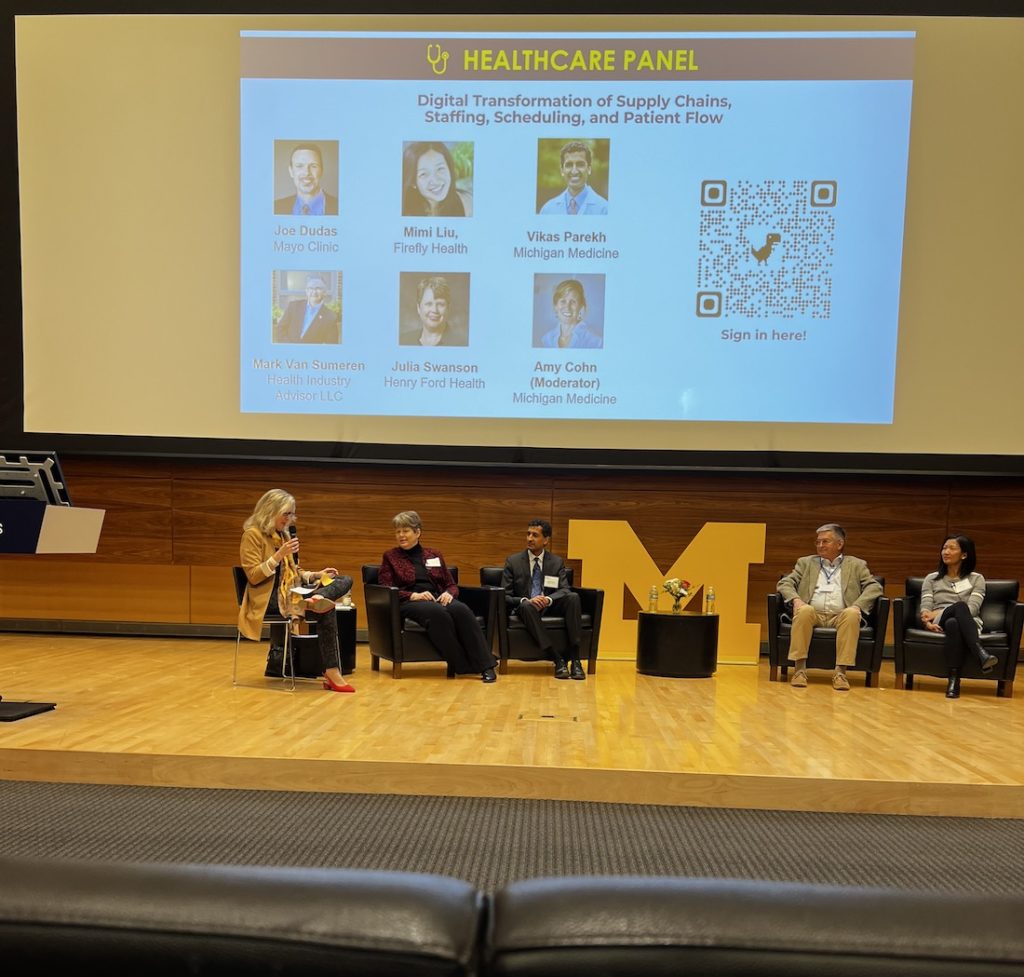
December 19, 2022
The primary focus of the healthcare panel of the Global Operations Conference on December 2nd, 2022 was regarding the value of transformation and operationalization in the healthcare space to spearhead innovation and efficiency.
The diverse panelists included Joe Dudas from Mayo Clinic, Mimi Liu from Firefly Health, Dr. Vikas Parekh from Michigan Medicine, Mark Sumeren from LLC, and Julia Swanson from Henry Ford Health. The panel was moderated by Dr. Cohn, who asked questions about how technology was used in the COVID-19 pandemic to prepare and address supply chain challenges. Mark Sumeren discussed the dashboard he developed detailing data trends as a predictive factor to allow those in healthcare to anticipate and address challenges preemptively. Joe Dudas also described the importance of how data can be used to “cut through the noise” to be prepared.
Beyond physical supplies. Dr. Parekh explained the creation of M2C2 at Michigan Medicine to optimize the patient’s journey at the hospital, taking into account hospital beds and care teams using the power of digital technology along. Julia Swanson added to this by emphasizing the complexity of the health care system and the development of a staffing model that takes into account different patient settings and locations in an effort to shift towards greater flexibility.
Mimi Liu added a unique perspective on healthcare access through her work at Firefly health which provides virtual primary care to create a shift from “sick care to health care”, and increase engagement with primary care, especially among the youth. She described how this model could provide more opportunities for patients to develop a trusting relationship with their providers in a more accessible manner.
The panelists also touched upon how a data-driven approach can allow for changes in healthcare policies through payment models and the need for value-based contracts that start-ups such as Firefly create. These types of innovations, including hospital care at home and the intersection of technology with a human touch, have their set of challenges but also provide an opportunity to create a system that reflects the quality of care over cost. The panelists concluded by stressing the importance of interdisciplinary teams to promote innovation and urged the audience to be open-minded to new experiences and opportunities.
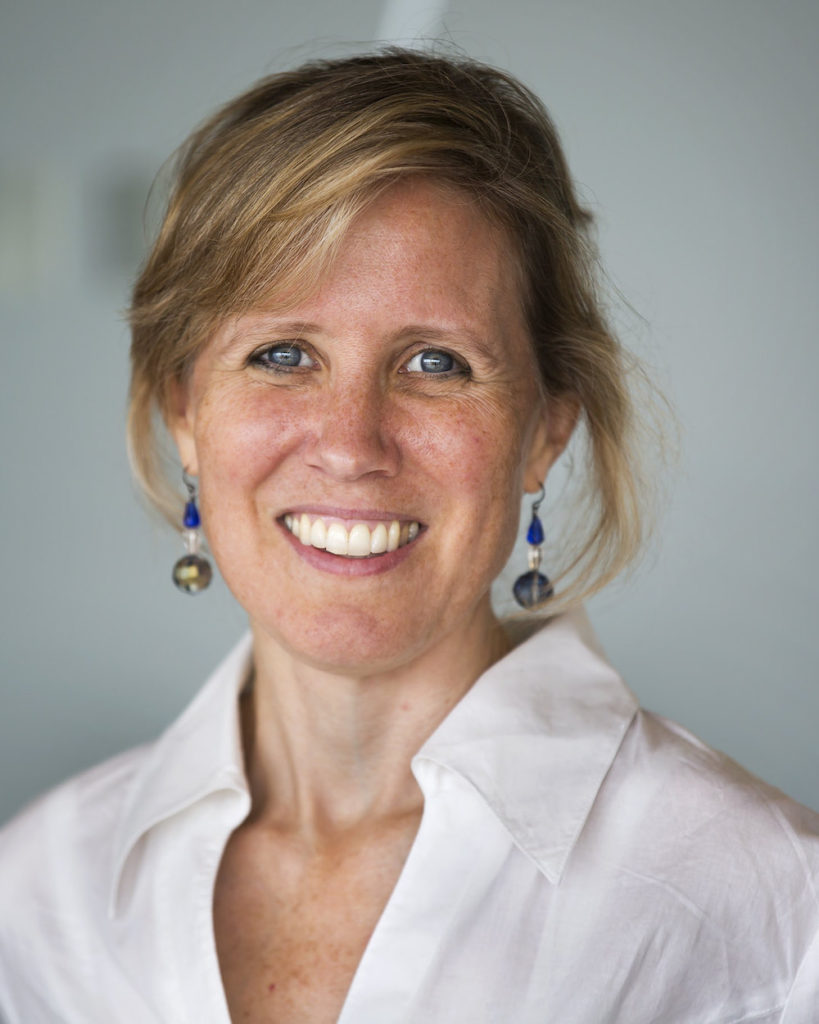
May 17, 2022
CHEPS Faculty Director Amy Cohn co-authored a clinical applications paper that was recently published by BMC Ophthalmology. This paper titled “Measuring impact of a quality improvement initiative on glaucoma clinic flow using an automated real-time locating system” was first presented at the American Glaucoma Society Annual Meeting in March 2019 and has now been been published. The publisher BioMed Central (BMC) Ophthalmology is a peer-reviewed journal that publishes articles regarding the overall prevention, diagnosis and care of eye diseases and related topics in genetics, pathophysiology, and epidemiology. Congrats to Professor Cohn on this amazing accomplishment!

May 8, 2022
CHEPSters Harini and Nick were invited to the ACOG’s (American College of Obstetricians and Gynecologists) Annual Clinical and Scientific Meeting in San Diego where they were able to present their research. Despite being the youngest attendees, Harini described how they felt well prepared “thanks to such extensive support and opportunities CHEPS has already given us to grow professionally and academically.” Dr. Peahl of Michigan Medicine exclaimed how Harini and Nick were more than prepared “bringing humility, keen intellect, and genuine curiosity to every conversation.” Beyond this, they were able to highlight the key values of CHEPS, using engineering to optimize healthcare, through their ability to easily communicate with physicians and also clearly educate physicians on key IOE concepts that will improve healthcare long term. Congrats to Harini and Nick on their outstanding work!
– Written by Prachi Fozdar, CHEPS Student

April 24, 2022
CHEPS Student Rachel Zhang was recently named the 57th Drum Major of the University of Michigan Marching Band! While majoring in Biomedical Engineering through the Honors Engineering program at Umich, Rachel has also been pursuing a music minor and has been a three year member of the marching band’s clarinet section. Rachel also previously served as her high school’s drum major her junior and senior years. This is an incredible accomplishment and opportunity for Rachel and the CHEPS community is extremely proud of her!
– Written by Prachi Fozdar, CHEPS Student

April 14, 2022
CHEPS Faculty Director Amy Cohn was one of fifteen professors in the state of Michigan to be nominated for a Distinguished Professor of the Year award from the Michigan Association of State Universities (MASU). According to MASU, the award “recognizes the outstanding contributions and dedication exhibited by the faculty from Michigan’s 15 public universities to the education of undergraduate students.” Congratulations to Professor Cohn on the much-deserved nomination!
– Written by Liz Fisher, CHEPS Staff

March 24, 2022
The Bellwether League Foundation (BLF) has sponsored a capstone project at the Center for Healthcare Engineering and Patient Safety (CHEPS). According to their website, “Bellwether League Foundation brings to light the efforts of the influencers, innovators, pioneers, and risk-takers that helped and continue to help mold and shape the healthcare supply chain profession. Their successes serve as education and inspiration for future generations.”
Mark Van Sumeren, one of the BLF members working with CHEPS on this project said the organization was originally launched, “to recognize both end of career and early career people that were making an impact on the healthcare supply chain. And through the last 14 years, they realized that education was a vital element of advancing the profession. And it was not only education of early and mid-career people but it was also educating younger folks and attracting them to the field.”
As part of BLF’s support of future healthcare supply chain leaders, CHEPS is proud to be the home of the foundation’s inaugural capstone project. The team is working with Michigan Medicine to analyze their supply chain and look at the different ways products come into the hospital. It’s important that the hospital get the products they order on time and in the correct quantity, something that became even more evident during the COVID-19 pandemic.
Students working on this capstone project have the opportunity to work directly with Michigan Medicine and its suppliers. They also benefit from the leadership of Bellwether League Foundation members Nick Gaich, CEO Nick Gaich and Associates, and Administrator, Bellwether League Foundation’s Bellwether Philanthropy division; and Mark Van Sumeren, Managing Director, Health Industry Advisor. Professionals honored and recognized by BLF “have demonstrated significant leadership in, influence on, and contributions to the healthcare supply chain.” Those near, at or beyond the end of their careers are inducted into BLF’s Hall of Fame for Healthcare Supply Chain Leadership; those in the beginning of their careers earn Future Famer status.
Laura Ely, an Industrial and Operations Masters student in Healthcare Engineering and Patient Safety concentration, has enjoyed the opportunity to work with and learn from leaders in healthcare supply chain. She said of working with Nick and Mark, “I call them mentors. They let us do all the work but they’re there to guide us along the way and make sure that our ideas are on the right track. It’s been cool to have that mentorship from people who are so experienced in the industry. They’ve been able to provide a lot of insight into things that we don’t necessarily have experience with and they’ve given us some resources from their other jobs that have been very helpful.”
Mark and Nick have both been impressed by the knowledge and professionalism shown by the CHEPS students on the team. Nick said, “I have just enjoyed the excitement we’ve seen come from the students and how engaged they are. From day one, I never felt that the students were doing this just to check off something as far as their resume. They’ve been very invested in trying to understand the core issues and what they can bring to the table and that’s just been a beautiful thing to be a part of.”
We’re honored to be a part of this collaboration with the Bellwether League Foundation and thank everyone who has made this project such a success. The CHEPS student team is made up of Laura Ely, Jeremy Segal, and Advaidh Venkat. They work closely with Bellwether League Foundation members Nick Gaich and Mark Van Sumeren; Daiwen Zhang, CHEPS Fellow; Amy Cohn, CHEPS Faculty Director; and Kristine Komives, SCM Director Michigan Health.
– Written by Liz Fisher, CHEPS Staff

March 8, 2022
On Tuesday, March 8th, CHEPS alum Jordan Goodman held a Lunch and Learn for CHEPS students. Jordan graduated from the University of Michigan in 2020 with B.S. and M.S. in Industrial and Operations Engineering. He worked at CHEPS for three years during his time at U of M. Since his graduation, Jordan has worked as a Product Analysist and now Technical Lead of Reporting and Insights at ArborMetrix.
Jordan started his talk by discussing his background and time at CHEPS. He then introduced ArborMetrix and the work he does there. He went into depth on his experiences using Tableau, SQL, Python, and mixed-integer linear programming and provided examples of several projects he’d done using those tools. Finally, Jordan took the time to answer CHEPS students’ questions on everything from Tableau to communicating with your coworkers and collaborators.
Thanks to Jordan for a wonderful Lunch and Learn!
– Written by Liz Fisher, CHEPS Staff

February 16, 2022
On Wednesday, February 16th, CHEPS held a speed “dating” social. CHEPS students Makayla, Emily, and Lauren came up with the idea to help CHEPSters who hadn’t met yet get to know one another. The setup was similar to speed dating where students rotated and had 3 minutes to chat with each of the other students attending only the goal was to make friends with your fellow CHEPSters. Pizza, snacks, and fun were had by all!
– Written by Liz Fisher, CHEPS Staff

January 20, 2022
CHEPS Senior Administrative Assistant Gene Kim has been awarded a College of Engineering (CoE) Staff Incentive Award. According to the CoE website, “The program recognizes staff who consistently demonstrate the College’s vision, mission and values.” Specifically, the program recognizes staff who live the core values of:
- Leadership and excellence
- Creativity, innovation and daring
- Diversity, equity and social impact
- Collegiality and collaboration
- Transparency and trustworthiness
We’re happy to see Gene recognized for all he does to make CHEPS such a special place!
– Written by Liz Fisher, CHEPS Staff

December 6, 2021
For the final seminar in the 2021 CHEPS Seminar Series, we were joined Dr. Nicoleta Serban, Ph.D., to discuss her work on “Data Analytics for Public Health Systems.” Dr. Serban is the Virginia C. and Joseph C. Mello Professor in the H. Milton Stewart School of Industrial and Systems Engineering at the Georgia Institute of Technology. Her research record is quite diverse, from mathematical statistics to modeling to data analysis to statistical learning, with recent contributions on drawing principled inferences on healthcare delivery and health policy. She has also been involved in broad impact research activities; the most noteworthy is her leadership of the Health Analytics initiative, a collaborative effort anchored in partnership with a varied network of clinicians, healthcare providers, and public health entities. To date, she has published more than 60 journal articles, and a collaborative book with Dr. William B. Rouse titled Understanding and Managing the Complexity of Healthcare published by MIT Press and single-authored book titled Healthcare System Access: Measurement, Inference and Intervention published by Wiley. She is the editor for physical sciences, engineering, and the environment for the Annals of Applied Statistics Journal. She has reviewed for multiple funding agencies and she has served in multiple workshops and meetings organized by the National Academies.
Dr. Serban’s recent work focuses on how data-driven methods can promote public health. During the seminar, she discussed how data collected within the public health system can be used to advance personalized medicine, target interventions, and evaluate guidelines and practices, among many other applications. It can provide opportunities to set up “policy” labs wherein policies and interventions can be tested without their direct deployment to the public. She went on to overview data analytics in healthcare within the paradigm of data science, integrating all data processes, from data acquisition and processing to data translation to data modeling and decision making. The key message from the presentation was that data science is at the core of informed decisions, interventions, and ultimately at the core of systems transformations. For more information on this aspect of Dr. Parekh’s work, please see chapter 6 of her book Healthcare System Access: Measurement, Inference and Intervention.
Thank you to Dr. Serban for the wonderful presentation! A video of the talk is available here.
This concludes the 2021 CHEPS Seminar Series. Thank you to everyone who attended, and we look forward to seeing you again next year!
– Written by Stephanie Ganzi, Public Health Undergraduate Student

November 29, 2021
For the November 29th seminar in the CHEPS Seminar Series, we were joined by Dr. Vikas Parekh, M.D., to discuss his work on “The Role of Command Centers in Health System Operations.” Dr. Parekh is a Professor of Medicine at the University of Michigan and the Associate Chief Medical Officer for UM Health. As Associate Chief Medical officer, he guides the health system’s work on capacity management and readmissions. He leads an operational analytics team working to optimize patient flow and operational challenges throughout the health system as part of the multi-million-dollar Command Center project. He has published and presented nationally in the fields of hospital medicine, residency education, and hospital operations and capacity management. Dr. Parekh is a graduate of the Harvard Medical School and completed his residency training at the University of Michigan. He has won several awards, including the Provost’s Teaching Innovation Prize, the Special Recognition Award for Contributions to the House Officer Teaching Program, the H. Marvin Pollard Award, the Department of Medicine’s highest award for resident teaching, the Chair’s Impact Award for his work during COVID-19, and was inducted into the Medical School’s League of Educational Excellence.
Dr. Parekh’s work focuses on how to increase hospital capacity by improving operational efficiency. During the seminar, he discussed how hospitals nationally have struggled with the challenges of increasing demand and limited overall capacity, which has led to bottlenecks in care and inefficient patient flow through the hospital. Given constraints on expanding bed capacity, including both high costs and regulatory barriers, hospitals have increasingly focused on improving operational efficiency as a method to improve patient flow. Michigan Medicine and UM Health have been on a journey to improve patient flow through the application of engineering principles, analytics, improved management of variation, and creation of a system-wide playbook for how to approach capacity management and patient flow in their hospitals. This work has culminated in a project to develop and implement a hospital command center, planned to begin operation in late 2022, as the next step in creating reliable, system-wide processes to manage patient flow and safety. In his talk, Dr. Parekh described UM Health’s journey in hospital capacity management, walked through the playbook and principles they follow, and explained how they are planning to integrate all of these lessons learned into the new hospital command center. For more information on Dr. Parekh’s work, please see his article, “Use of Systems Engineering to Design a Hospital Command Center.”
Thank you to Dr. Parekh for the fascinating presentation! A video of the talk is available here.
Our next and final seminar will be held on December 6th at 4:30 PM ET, when we will be joined by Dr. Nicoleta Serban, Ph.D., who will present her work on “Data Analytics for Public Health Systems.”
– Written by Stephanie Ganzi, Public Health Undergraduate Student

November 25, 2021
CHEPSter Dipra Debnath, a BME Master’s student, ran in the 2021 Strategic Staffing Solutions Turkey Trot Drumstick Double in Detroit, MI on Thanksgiving Day. The Drumstick Double is a 10K followed immediately by a 5K. He beat his personal best in the 10K on this run. While Dipra said the Turkey Trot was a highlight of his week, he also added “I’m not sure how people look so happy and graceful when they cross finish lines.” Happy and graceful or not, great job on completing the race, Dipra!
– Written by Liz Fisher, CHEPS Staff
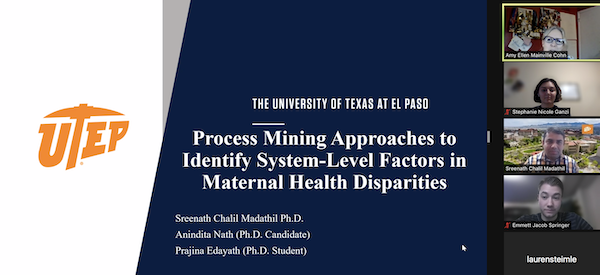
November 22, 2021
For the November 22nd seminar in the CHEPS Seminar Series, we were joined by Dr. Sreenath Chalil Madathil, Ph.D., to discuss his work on “Process Mining Approaches to Identify System-Level Factors in Maternal Health Disparities.” Dr. Chalil Madathilis an Assistant Professor in the Industrial Manufacturing and Systems Engineering (IMSE) at The University of Texas at El Paso (UTEP). Before joining UTEP, he worked as a research scientist at the Watson Institute of Systems Excellence at The Research Foundation of the State University of New York at Binghamton. Dr. Chalil Madathil received his Ph.D. and MS in Industrial Engineering from Clemson University. His current research interest is in applying operations research and data analytics to healthcare and supply chain domains. He is a member of the Institute of Industrial & Systems Engineers (IISE) and serves as chair for the IISE Health Systems Track. He is also a member of INFORMS and Alpha Pi Mu.
Dr. Chalil Madathil’s work focuses on how problems that lead to maternal health disparities can be identified using process mining. During the seminar, he discussed how the US has some of the highest maternal mortality and morbidity rates among all developed countries, despite spending the most on maternity care. Half of all maternal deaths, Severe Maternal Morbidity (SMM), and near-misses are preventable with timely and appropriate care. For maternal mortality and SMM due to several specific conditions, such as hemorrhage and preeclampsia, the rates of preventability are even higher. Socioeconomic factors have been shown to impact maternal outcomes, but there is little research explicitly examining system-level factors like delays, missed or late diagnoses, inadequate teamwork, and poor coordination within the healthcare system, all of which can contribute to these adverse outcomes and disparities. National and state-level efforts to improve maternal care have led to the development of pathways describing the best practices in maternity care, but many challenges still exist. By examining patients’ journey through the healthcare system, Dr. Chalil Madathil and his research team were able to identify, and ultimately predict, specific system features associated with adverse outcomes. This process mining approach evaluated the process of receiving maternal care using event logs. Preliminary data analysis using visualization and decision tree techniques offer insights about disparities in maternal care by identifying variability in captured care pathways that are associated with adverse maternal outcomes. For more information on Dr. Chalil Madathil’s work, please see his articles “Integrated Framework of Process Mining and Simulation—Optimization for Pod Structured Clinical Layout Design” and “Advancing Evidence-Based Healthcare Facility Design: a Systematic Literature Review.”
Thank you to Dr. Chalil Madathil for the wonderful presentation!
Our next seminar will be held on November 29th at 4:30 PM ET, featuring Vikas Perekh, MD., who will present his work on “The Role of Command Centers in Health System Operations.”
– Written by Stephanie Ganzi, Public Health Undergraduate Student

November 18, 2021
CHEPS students recently had the opportunity to visit The University of Michigan Clinical Simulation Center (CSC) thanks to small group visits coordinated by CHEPS students Stephanie Ganzi and Fumiya Abe-Nornes. According to the Center’s website it is “an innovative instructional environment and learning laboratory providing challenging, immersive simulation training for students, physicians, nurses and other health care professionals at the University of Michigan.”
Stephanie said, “It was a good opportunity to learn more about how physicians and medical staff train and about medicine in general. Dr. Cooke was fantastic and made sure to talk about some of the engineering-type projects they’ve done there.” She also appreciated the chance to interact with her fellow CHEPSters and said, “It was also a good bonding experience for CHEPS students. I know I at least talked more with people outside of my project groups than I ever have before.”
Thank you to Dr. Cooke and CSC team for welcoming CHEPSters and sharing your work with us!
– Written by Liz Fisher, CHEPS Staff

November 15, 2021
For the November 15th seminar in the CHEPS Seminar Series, we were joined by Dr. Oluwaferanmi Okanlami, M.D., M.S., to discuss his work on “Disabusing Disability™: Demonstrating That DISability Doesn’t Mean INability.” Dr. Okanlamiis an Assistant Professor of Family Medicine, Physical Medicine & Rehabilitation and Urology at Michigan Medicine, an Adjunct Assistant Professor of Orthopaedic Surgery at David Geffen School of Medicine at UCLA, and the Director of Student Accessibility and Accommodation Services at the University of Michigan, where he oversees the office of Services for Students with Disabilities, two Testing Accommodation Centers, and the Adaptive Sports & Fitness Program. He attended college at Stanford University and earned his MD from the University of Michigan before matching into Orthopedic Surgery at Yale. At the beginning of his 3rd year, he experienced a spinal cord injury, paralyzing him from the chest down. After two surgeries and intense rehabilitation, he regained some motor function, and navigates the world as a proud wheelchair user. He went on to earn a Master’s in Engineering, Science, and Technology Entrepreneurship from The University of Notre Dame, and completed his Family Medicine Residency at Memorial Hospital. Nationally, he serves as the Disability Issues representative on the Steering Committee for the Group on Diversity and Inclusion at the AAMC and sits on the National Medical Association’s Council on Medical Legislation. He speaks around the country on topics related to Diversity, Equity, and Inclusion, including, but not limited to creating a health system that is accessible to and inclusive of both patients and providers with disabilities, and providing reasonable and appropriate accommodations for students with disabilities in higher education.
Dr. Okanlami’s work focuses on improving the treatment of and accommodations available to people with disabilities. During the seminar, Dr. Okanlami facilitated a conversation about the treatment of people with disabilities. He discussed how disability is regularly neglected in conversations about diversity, equity, and inclusion, yet it is the one demographic that we may all identify with one day. Therefore, he argues, disability should serve as a means of demonstrating that we are all much more similar than we are different. As a disabled, black, Nigerian, immigrant, cis-gender heterosexual, male, physician, athlete, Dr. Okanlami focused his presentation on the intersectionality between all of those identities, striving to demonstrate that disability is not inability, and encouraging the audience to allow people to demonstrate what they can do, rather than attempting to limit them based on what they can’t. He also strove to engage attendees in conversation about what each of us can do within our own spheres of influence to make sure we are not perpetuating ableism in our personal, academic, and professional lives.
Thank you to Dr. Okanlami for the fascinating conversation! A video of the talk is available here.
Our next seminar will be held on November 22nd at 4:30 PM ET, featuring Sreenath Chalil Madathil, Ph.D., who will present his work on “Process Mining Approaches to Identify System-Level Factors in Maternal Health Disparities.”
– Written by Stephanie Ganzi, Public Health Undergraduate Student

November 11, 2021
CHEPS Faculty Director Amy Cohn has been appointed as Michigan Medicine’s Chief Transformation Officer. In an announcement about this appointment, Dr. Marschall S. Runge, Dean of the University of Michigan Medical School, Executive Vice President for Medical Affairs for University of Michigan, and CEO of Michigan Medicine, said, “She will lead a health care operational engineering team that will collaborate with executive leadership to define project priorities, provide rapid response to critical operational events, and improve outcomes by studying and implementing process re-design and enhancements.” In his announcement, Dr. Runge emphasized the many contributions Professor Cohn has made to the COVID-19 response at the University and Michigan Medicine including her work on testing, vaccinations, and the ResponsiBLUE app. He stated, “Her ability to drive large and complex projects, many new to our organization, and her unique engineering perspective were the predominant factors that led us to create the Chief Transformation Officer appointment.”
Congratulations to Professor Cohn on this new position! We know it will give her many opportunities to continue making a positive difference here at the University, Michigan Medicine, and beyond.
-Written by Liz Fisher, CHEPS Staff

November 10, 2021
On November 10, 2021, we were joined by Dr. Andrew Rosenberg, Chief Information Officer of Michigan Medicine, presenting on the unique challenges and opportunities of IT organization and data management at the University of Michigan, and in the healthcare industry at large.
Dr. Rosenberg’s background as a clinician and a manager helped him better understand the gap between the clinical, research, and IT sectors of the medical system. As the leader of the Health Information Technology & Services (HITS), Dr. Rosenberg and his team are paving the way for a new IT organizational structure that unifies relationships with service providers, better shares resources between clinical and research departments, and aims to reduce duplicated efforts. Beforehand, the University of Michigan medical system had multiple IT providers, many of which were legacy systems. HITS addresses this issue by supporting secure, cost-effective, interoperable, and reliable solutions across departments, mainly by being the main intermediary between departments and service providers.
Dr. Rosenberg also provided his insights from his time as the CIO for the University of Michigan. Most notably, Dr. Rosenberg explained how centralizing key IT infrastructure, appointing IT managers for domain-specific infrastructure (academic, clinical, business, etc.), and creating a vetted repository of usable code helps break down barriers to project execution.
Additionally, Dr. Rosenberg touched upon Michigan Medicine’s IT decision-making environment, highlighting the fact that no one committee has ultimate power over IT decisions. However, shared services like HITS touch nearly every department, which allows HITS to approach key IT decisions from a position of strength.
The final portion of the talk highlighted certain unique challenges about data infrastructure and storage at Michigan Medicine. Although many may believe most healthcare data comes from electronic health records, Dr. Rosenberg pointed out that one image of a light-sheet microscope could create more data than one year worth of health records. In other words, the majority of healthcare data comes from physical equipment such as continuous-time sensors and high-quality imaging technology. Simply asking researchers and clinicians to “clean up their data” would be unreasonable, as would paying for more and more data storage yearly. Dr. Rosenberg’s team is currently working on solutions to address this data challenge, by organizing the data by different use cases.
We thank Dr. Rosenberg for this insightful talk and look forward to learning more about UMich Med’s IT innovations in the future!
-Written by Kishor Bharadwaj, IOE Undergraduate Student

November 8, 2021
For the November 8th seminar in the CHEPS Seminar Series, we were joined by Alexander Hallway, BA, and Dr. Michael Englesbe, MD, to present their work on “Engineering Solutions to Surgical Pain Management.” Alex Hallway is a Research Area Specialist affiliated with the Michigan Opioid Prescribing Engagement Network and the Michigan Surgical Quality Collaborative (MSQC). Alex studied Human Biology and Supply Chain Management at Michigan State University and has worked on patient care and quality improvement initiatives at Michigan Medicine since 2017. As the Pain-control Optimization Pathway Lead, Alex works with Blue Cross Blue Shield of Michigan and the MSQC to promote surgical pain control innovation in Michigan hospitals. Alex also leads the MSQC Prehabilitation program, which aims to collect novel preoperative data elements and optimize patient health prior to surgery. He has published his work in journals such as JAMA Surgery, The Journal of the American College of Surgeons, and JAMA Network OPEN. Michael Englesbe, MD, FACS is the Cyrenus G. Darling Sr., MD and Cyrenus G. Darling Jr., MD Professor of Surgery at the University of Michigan in the Section of Transplantation Surgery. Dr. Englesbe received his undergraduate degree at Yale University, obtained his medical degree from the Robert Wood Johnson Medical School, and completed his general surgery residency at the University of Michigan Health System. Dr. Englesbe also did a surgical research post-doctoral fellowship at the University of Washington Medical Center. Dr. Englesbe specializes in kidney and liver transplantation in adults and children. He has a specific expertise in portal hypertension in children and adults.
Alex and Dr. Englesbe’s work focuses on reducing rates of opioid abuse through policy, innovation, and interdisciplinary collaboration at the local and state levels. In western medicine, it is common practice to prescribe opioids for pain after surgery. While these medications are an important tool for pain management, excessive opioid prescribing, especially after surgery, can lead to long-term dependence and medication diversion in our communities. This is a dangerous trend that has contributed to the rise of the opioid epidemic in the United States. Dr. Englesbe and Alex Hallway have spent the last 5 years studying these trends and developing solutions to reduce excessive opioid prescribing in acute care. By using engineering methods and collaborating with physicians, they have been able to effectively reduce the quantity of opioids prescribed, helping to limit the burden of the opioid epidemic. For more information on Alex and Dr. Englesbe’s work, please see their Journal of the American College of Surgeons article, “Patient Satisfaction and Pain Control Using an Opioid-Sparing Postoperative Pathway.”
Thank you to Alex and Dr. Englesbe for the wonderful presentation! A video of their talk is available here.
Our next seminar will be held on November 15th at 4:30 PM ET, featuring Dr. Oluwaferanmi Okanlami, M.D., M.S.
– Written by Stephanie Ganzi, Public Health Undergraduate Student
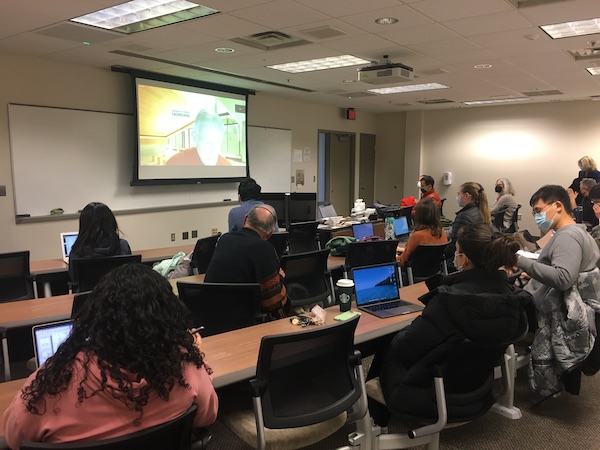
November 1, 2021
For the November 1st seminar in the CHEPS Seminar Series, we were joined by Dr. Michael W. Carter, a professor in the Department of Mechanical and Industrial Engineering at the University of Toronto, presenting his work on “How Can We Make a Real Difference in Healthcare? The Challenges of Implementation.” Dr. Carter is the Director of the Centre for Healthcare Engineering, founded by him in 2009. Since 1989, his research focus has been in the area of health care resource modeling. He is on the editorial board for the journals “Health Care Management Science,” “Operations Research for Health Care,” “Health Systems,” and “IISE Transactions on Healthcare Systems.” In 2012, he was inducted as a Fellow of the Canadian Academy of Engineering, and in 2013, he was inducted as a Fellow of INFORMS, the international society for Operations Research and Management Science. In 2018, he became a Fellow of the Canadian Academy of Health Sciences. In 2019, he won the Northrup Frye Award for Teaching Excellence from the University of Toronto Alumni Association, and in 2021, he was awarded the University of Toronto “President’s Impact Award” for his contributions to improving healthcare in Canada.
Dr. Carter’s work focuses on resource modeling within healthcare systems. Over the course of his career, he has noticed that there is a gap between what operations research is done and what actually is implemented in healthcare settings. There are many aspects of healthcare that create barriers to implementing models that operations researchers produce. Dr. Carter has encountered many of these obstacles in his time as an operations researcher and has been able to develop strategies to overcome them. In this talk, he identified what he sees as the five largest hurdles to model implementation in healthcare as well as approaches to counter them. For more information about Dr. Carter’s work, please view his papers “Data-Driven Generic Discrete Event Simulation Model of Hospital Patient Flow Considering Surge” and “Modelling the Future of Canadian Cardiac Surgery Workforce Using System Dynamics.”
Thank you to Dr. Carter for a fascinating presentation!
A video of his talk is available here.
Our next seminar will be held on November 8th at 4:30 PM ET, featuring Alexander Hallway, BA, and Michael Englesbe, MD, who will present their work on “Engineering Solutions to Surgical Pain Management.”
– Written by Stephanie Ganzi, Public Health Undergraduate Student

October 27, 2021
Several CHEPS students, alums, and faculty presented at the 2021 INFORMS conference which was held from October 24 – 27, 2021. CHEPS Faculty Director Amy Cohn also chaired a session focused on CHEPS projects. The majority of CHEPSters presented virtually at this year’s hybrid in-person/virtual conference. Presentations by CHEPS students and alumni included:
- Multi-criteria Objective Functions in a Real-world Clinical Provider Scheduling Problem
- Prenatal Care Scheduling of Patients with Varying Medical and Social Risk Factors
- Scheduling Family Medicine Residents to Shifts in Multiple Clinics Using Multi-criteria Optimization Methods
- Simulating the Impact of Including Predictive Modeling in Appointment Decision-making for Chronic Liver Disease
- A Two-stage Partial Fixing Approach for Solving the Residency Block Scheduling Problem
- Simulating Patient Backlog Mitigation Strategies for Nonemergency Procedures Under Reduced Capacity During The Covid-19 Pandemic
— Written by Liz Fisher, CHEPS Staff

October 25, 2021
On Monday, October 25th, CHEPS held a virtual Lunch and Learn with Marika Bonacorsi, Analytics Manager at Northwestern Medicine; John Palmateer, Manager at Northwestern Medicine; and Kelly Weiss, Analytics Developer at Northwestern Medicine. Northwestern Medicine is a system of 11 hospitals across the Chicagoland area with more than 33,000 employees. They try to make sure their “patients first approach” is central to all they do. To begin the presentation, John shared their mission, vision, and values as well as a timeline of how their health system has evolved over the years.
Marika, a University of Michigan alum, spoke about the Access Analytic Product Team. They work to “provide convenient, complete, and caring interactions with patients.” This may mean working on products to improve the time between scheduling and having an appointment, speed of answers to patient questions, and patient self-service through apps and MyChart. Marika discussed tools her team uses and tools they are continuing to learn in order to be successful. She also showed examples of products her team has developed throughout the years. One example is a model they developed to predict no-show appointments. She also offered an example of the type of projects interns work on at Northwestern Medicine.
Kelly, also a University of Michigan alum, discussed the Analytics Service Line Team. As someone earlier in her career, she was able to share internships and other opportunities she took advantage of while a student in order to prepare for her career including an internship at Spectrum Health and working as a Research Assistant for the Michigan Medicine Department of Psychiatry. She also showed an example of dashboards she has worked on since she’s been at Northwestern Medicine including one to better understand trends in staffing and operations trends.
John gave an overview of the Northwestern Medicine Internship Program including opportunities CHEPS students may be able to apply to for Summer 2022. He also spoke about the Intern Innovation Challenge their intern program hosts each year and shared some of the ideas that have come out of past innovation challenges. He, Marika, and Kelly also offered advice on what stands out when applying to internships.
Thank you to all three speakers for an interesting talk!
— Written by Liz Fisher, CHEPS Staff

October 14, 2021
Rachel Zhang is quoted in a recent article from The Advocate titled “Univ. of Michigan Band Blares LGBTQ+ Support in Halftime Show.” Rachel, a Biomedical Engineering undergraduate working at CHEPS, is also a clarinet player and a part of the halftime show on September 25th which honored the LGBTQ+ community. Throughout the performance which honored the 50th anniversary of the University of Michigan Spectrum Center, marching band members created formations spelling “love wins,” “spectrum,” and “family,” on the field as well as creating a field full of hearts. The performance included music from Lady Gaga, Whitney Houston, Cyndi Lauper, and more. Rachel is quoted in The Advocate article saying, “This was our week, this was the week for the LGBTQ+ community to feel seen and to feel valued and respected. And it was a really beautiful thing to see.”
A video of the performance is available below.
— Written by Liz Fisher, CHEPS Staff
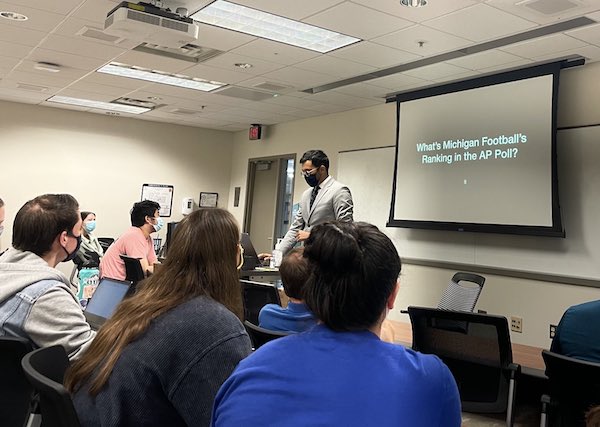
October 11, 2021
For the October 11th seminar in the CHEPS Seminar Series, we were joined by Erkin Otles, an M.D./Ph.D student, presenting his work on “Engineering Machine Learning for Medicine: Developing, Deploying, and Evaluating Dynamic Prediction Models.” Erkin Otles is a Medical Scientist Training Program Fellow (MD-PhD student) at the University of Michigan. He has completed three years of medical school training and is currently a Ph.D. candidate in the Department of Industrial and Operations Engineering. His research lies at the intersection of computer science, industrial engineering, and medicine, centered on creating machine learning and artificial intelligence tools for patients, physicians, and health systems. Erkin’s dissertation work focuses on the development, implementation, and prospective usage of dynamic health outcome prediction models, such as in early warning systems. He is co-advised by Dr. Brian Denton in the Industrial and Operations Engineering department and Dr. Jenna Wiens in the Computer Science and Engineering department. Erkin has a professional background in health IT, having managed electronic health record development and healthcare data science teams. He holds a Master’s of Industrial Engineering from the University of Wisconsin. After completion of his MD-PhD training, Erkin plans on pursuing medical residency training in emergency medicine.
Erkin’s work focuses on the development, validation, and implementation of machine learning (ML) models for use in healthcare. This research requires a strong understanding of clinical needs, analytical methods, and systems engineering. With ML seeing increasing use in health care, it is important to ensure that these tools are effective and accurate in doing the tasks attributed to them. Erkin presented his work on the development of an ML model for predicting the timing of returning to work for patients experiencing occupational injuries, using this as a launching point to discuss engineering ML for medicine more broadly. He gave an in-depth overview of the development process of a dynamic prediction model that used workers compensation claims data. He concluded his talk with a discussion of the issues surrounding ML model task framing, validation, and implementation. More information on Erkin’s work is available in his JAMA Internal Medicine article, “External Validation of a Widely Implemented Proprietary Sepsis Prediction Model in Hospitalized Patients.”
Thank you to Erkin Otles for a fascinating presentation!
Please note that there will not be a seminar next week or the week after. Our next seminar will be held on November 1st at 4:30 PM ET, featuring Michael W. Carter, Ph.D., LEL, FCAE, who will present his work on “Challenges in Healthcare Scheduling Applications.”
— Written by Stephanie Ganzi, Public Health Undergraduate Student

October 10, 2021
CHEPS alums Adam VanDeusen and Sarah Bach ran the Chicago Marathon on Sunday, August 10th. Running marathons together is a bit of a tradition for these two and they enjoyed meeting up in Chicago. Sarah said, “My time was four minutes off my PR but I was happy considering the conditions… it was 75 and 75% humidity when we started with highs in the 80’s midday so it was a hot one! They had cold sponges and water spray stations on the course and my parents handed Adam and me bottles/bags of ice when we went by which was a life saver!” Adam shared similar sentiments. He said, “Weather conditions were less than ideal but we both crossed the finish line with (exhausted) smiles.”
Credit for the mid-race photos below goes to Sarah’s brother!


— Written by Liz Fisher, CHEPS Staff
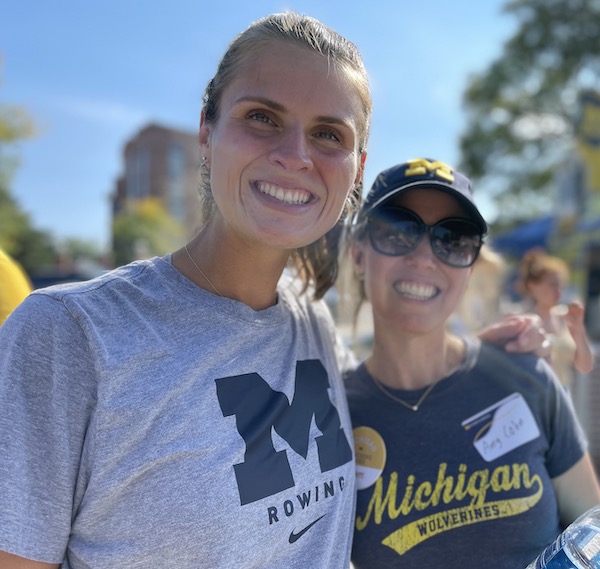
October 10, 2021
You may have spotted CHEPS alum, Kate Burns, on the field at halftime during the September 18th Michigan vs. Northern Illinois football game. Kate is a member of the Michigan Women’s Rowing team. They were honored on the field for winning a Big Ten Championship last Spring. This is the second Big Ten Championship win since Kate’s been on the team. They won six out of seven races, getting 2nd place in the race they didn’t win. It was the best finishing in Michigan history. The team went on the get 4th at NCAAs.
Kate is currently getting her Master’s in Industrial and Operations Engineering as part of the SUGS program. She’s doing her fifth year of rowing having gained an extra year of eligibility due to COVID. She said, “I am so lucky to come back for a fifth year and be part of the team the team the team, and get another chance to make history.”
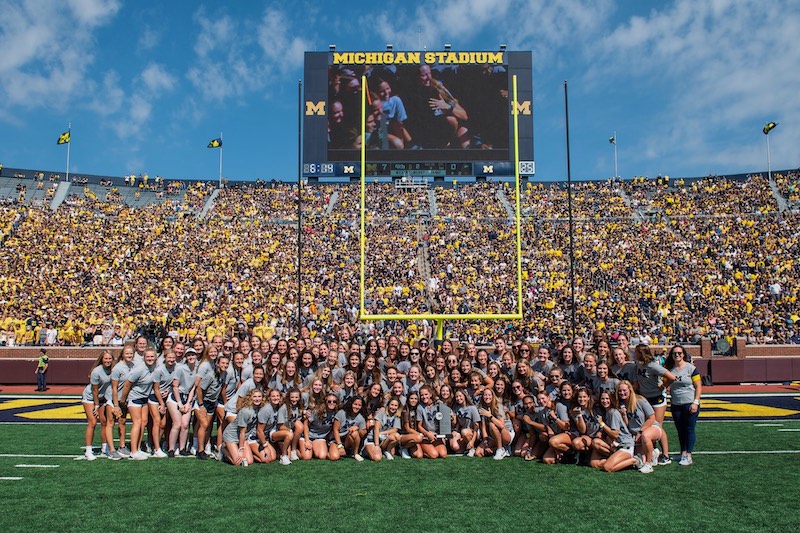
— Written by Liz Fisher, CHEPS Staff
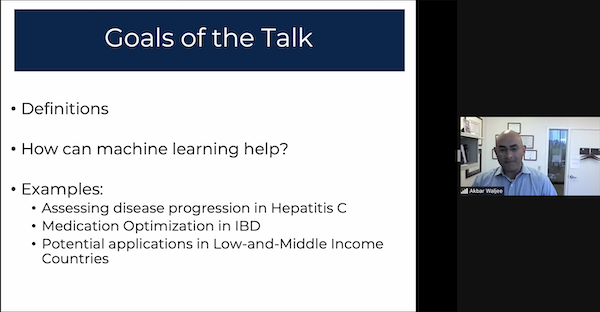
October 4, 2021
For the October 4th seminar in the CHEPS Seminar Series, we were joined by Dr. Akbar Waljee, presenting his work on “Applications of Artificial Intelligence in Low-Resource Settings.” Dr. Waljee is a Professor in the Department of Internal Medicine. At the UM Institute for Healthcare Policy & Innovation (IHPI), he serves as the Associate Director of the Data and Methods Hub and as the Director of the Michigan Integrated Center for Health Analytics and Medical Prediction (MiCHAMP). He also serves as the Director of the VA CCMR Prediction Modeling Unit (PMU) and, clinically, he is the Director of the Inflammatory Bowel Disease clinic both at the VA Ann Arbor Healthcare System.
Dr. Waljee’s work focuses on utilizing machine learning to better provide high-value medical care in resource-constrained settings. With increasingly effective and increasingly expensive treatments constantly being developed, there is growing concern among policymakers, payors, and health systems as to how to provide high-cost care to patients. Using the example of inflammatory bowel disease, Dr. Waljee described two novel methods for optimizing care delivery in low-resource settings. One of these approaches uses artificial intelligence/machine learning-based approaches to target treatments to those most likely to benefit. The other optimizes treatment delivery by minimizing costs while maximizing benefits. Both of these methods could have applications globally by helping guide treatment decisions in low- and middle-income countries. More information on Dr. Waljee’s work is available in his JCC article, “Machine Learning Algorithms for Objective Remission and Clinical Outcomes with Thiopurines.”
Thank you to Dr. Waljee for a wonderful presentation!
Our next seminar will be held on October 11th at 4:30 PM ET, featuring Erkin Otles, an MD/Ph.D. student, who will present his work on “Engineering Machine Learning for Medicine: Developing, Deploying, and Evaluating Dynamic Prediction Models.”
— Written by Stephanie Ganzi, Public Health Undergraduate Student
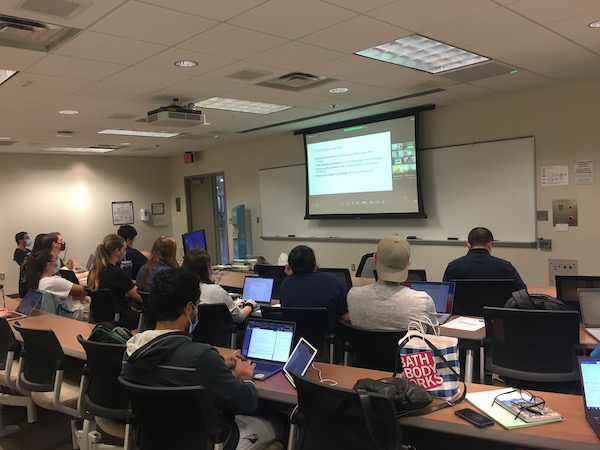
September 27th, 2021
For our latest installment in the CHEPS Seminar Series on September 27th, we were joined by a multidisciplinary research team made up of Mariel Lavieri, Ph.D.; David Hutton, Ph.D.; Neehar Parikh, MD; Luke DeRoos, Ph.D. Student; and Wesley J. Marrero Colón, Ph.D., presenting their work on “Understanding the Imbalance of Supply and Demand of Transplant Organs in the US: A Multidisciplinary Team Approach.” Dr. Mariel Lavieri is an Associate Professor of Industrial and Operations Engineering at the University of Michigan. Her most recent research focuses on medical decision-making, in particular on determining optimal monitoring and treatment by explicitly modeling stochastic disease progression. Dr. David Hutton is an Associate Professor in the School of Public Health and Industrial and Operations Engineering at the University of Michigan. His current research is focused on health policy and medical decision-making, in particular, the use of mathematical models to assist with the allocation of resources for health. Dr. Neehar Parikh is a physician and researcher at Michigan Medicine working in Gastroenterology, Internal Medicine, and Transplant Hepatology. His clinical and research work focuses on treatment and outcomes for hepatobiliary malignancies. He has research interests in liver cancer treatment allocation, treatment effectiveness modeling, cost and cost-effectiveness of healthcare interventions, quality of life, liver transplantation and allocation, and cancer screening and prevention. Luke DeRoos is a Ph.D. student in Industrial and Operations Engineering at the University of Michigan under the guidance of Dr. Mariel Lavieri. His research focuses on improving the quality of and access to healthcare. Dr. Wesley J. Marrero Colón is a Postdoctoral Research Fellow at the MGH Institute for Technology Assessment at Harvard Medical School. His current research focuses on the usage and creation of data-driven methods to make better decisions and aims to address healthcare applications from a population and patient perspective.
The research team discussed the growing issue of organ donor shortages. The lack of organ donors means that people who need organ transplants may be on the waiting list for an extended period of time, unable to receive potentially life-saving treatment. Looking specifically at liver transplants, the team explained their framework for understanding how different factors affect the supply and demand of organs. They went on to use this framework to predict organ supply and demand levels in the future, both under current conditions and if certain policy changes were enacted. For more information on their results, please see their Liver Transplantation article, “Projections in donor organs available for liver transplantation in the United States: 2014-2025.” One of the key policy changes they examined was the effect of making organ donation consent opt-out, rather than opt-in, which has the potential to increase organ donation rates. More information on the effect of this policy is available in their JAMA Network Open article, “Estimated Association Between Organ Availability and Presumed Consent in Solid Organ Transplant.”
A video of the talk is available here.
Thank you to all of our speakers for a wonderful presentation!
Our next seminar will be held on October 4th at 4:30 PM ET, where we will be joined by Dr. Akbar Waljee to discuss “Applications of Artificial Intelligence in Low-Resource Settings.”
— Written by Stephanie Ganzi, Public Health Undergraduate Student
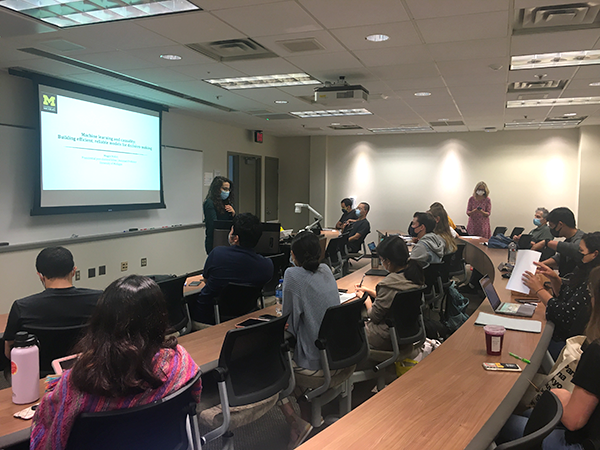
September 20th, 2021
For our second seminar in the CHEPS Seminar Series on September 20th, we were joined by Dr. Maggie Makar, presenting her work on “Machine Learning and Causality: Building Efficient, Reliable Models for Decision-Making.” Dr. Makar is a Presidential postdoctoral fellow at the University of Michigan and a visiting researcher at Microsoft Research. She received her Ph.D. in Computer Science at MIT, during which time she interned at Microsoft Research and Google Brain. Prior to MIT, Dr. Makar worked at Brigham and Women’s Hospital, studying end-of-life care. Her work has appeared in ICML, AAAI, JSM, the Journal of the American Medical Association (JAMA), Health Affairs, and Epidemiology, among others.
Dr. Makar discussed the rise in the use of machine-learning-based causal and predictive models by healthcare practitioners seeking to provide personalized patient care. She described the problems that arise in this practice due to the limitations of current machine-learning techniques. The limitations she focuses on are how casual inference techniques rely upon more data than is typically available in healthcare settings and how most predictive models are insufficiently robust when there are shifts at test time. Dr. Makar’s work focuses on the use of novel techniques that bound the data to circumvent these common problems. More information on Dr. Makar’s work on this topic is available in her ICML article, “Estimation of Bounds on Potential Outcomes For Decision Making.”
Dr. Makar then switched focus to explore solutions to distribution shifts, specifically in the context of contagious disease spread with incomplete testing. She explained how distribution shifts can occur when asymptomatic carriers are not identified as such in the training data set, as is often the case with incomplete testing in real populations. She then presented her solution to this problem: a causally-motivated regularization scheme that allows for high accuracy prediction of an individual’s true infection state, even with biased training data. Her ICML article, “Exploiting Structured data for Learning Contagious Diseases Under Incomplete Testing,” provides more information on this topic.
Thank you to Dr. Makar for a fascinating presentation!
A video of the talk is available here.
Our next seminar will be held on September 27th at 4:30 PM ET, featuring Mariel Lavieri, Ph.D.; David Hutton, Ph.D.; Neehar Parikh, MD; Luke DeRoos, Ph.D. Student; and Wesley J. Marrero Colón, Ph.D. to discuss “Understanding the Imbalance of Supply and Demand of Transplant Organs in the US: A Multidisciplinary Team Approach.”
— Written by Stephanie Ganzi, Public Health Undergraduate Student

September 13th, 2021
On Monday, September 13th, Dr. James Bagian, the Founding Director of CHEPS and now co-founder and the Executive Director of the Center for Risk Analysis Informed Decision Engineering (RAIDE), delivered the first seminar in our Fall 2021 Providing Better Healthcare through Systems Engineering Seminar Series. His talk was titled “How Safe Is Safe Enough: Analyzing Hazards and Risks in the Real World to Inform Decision Making.”
Dr. Bagian discussed how nothing is without risk and went on to describe how “engineering risk analysis provides a systematic, holistic approach for addressing risks associated with complex technical systems.” He discussed considerations that are important in any type of organization be it healthcare or another field such as how to look at what the hazards are in a given endeavor, how to evaluate risk, and the importance of communication in conveying risk. “It’s not enough to know the technical answer,” he said. “You have a number of stakeholders that you have to deal with within your company, your interest, your professional group, and others it will impact.” He said that successfully communicating with those parties plays a large part in determining whether you will be successful in achieving your goals.
Dr. Bagian provided examples of risk analysis from healthcare as well as from his time at NASA working with several shuttle missions. He also emphasized the importance of knowing how the amount of allowable risk is determined and who determines that and accepts the risk. More information about Dr. Bagian’s work in the area of risk analysis is available in our recent issue of CHEPS Pulse. He has also written an editorial “How Safe Is Safe Enough for Space and Health Care? Communication and Acceptance of Risk in the Real World” in JAMA.
Thank you to Dr. Bagian for an excellent seminar!
Our next seminar will be on September 20th at 4:30 PM ET with Maggie Makar, Ph.D. discussing “Machine Learning and Causality: Building Efficient, Reliable Models for Decision-Making.”
— Written by Liz Fisher, CHEPS Staff

September 10th, 2021
On Friday, September 10th, CHEPS students, faculty, staff, and even a few alums gathered at the fountain near the Michigan League for an ice cream social. We enjoyed Blank Slate ice cream and the chance to enjoy the beautiful fall weather while catching up with and getting to know our fellow CHEPSters. It was the perfect way to kick-off a new semester and a refreshing change of pace from the Zoom meetings of the past several semesters!
— Written by Liz Fisher, CHEPS Staff

September 8th, 2021
New and returning CHEPS students came together in-person and over Zoom on Wednesday, September 8th for a presentation by CHEPS Faculty Director Amy Cohn. While this was a time to go over some serious do’s and don’ts of CHEPS and review HIPAA compliance guidelines, it was also an exciting milestone because it was the first time many of the students attending in-person had been in the CHEPS space. While observing safety guidelines like masking, limiting the number of people in the space at any given time, giving a virtual option, and moving outdoors after the presentation, many of us were able to enjoy seeing one another in 3-D after a year and a half of only Zoom meetings!
— Written by Liz Fisher, CHEPS Staff
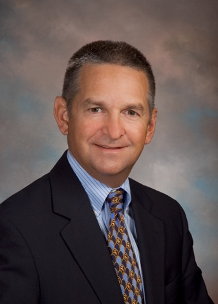
August 20th, 2021
Friend of CHEPS and University of Michigan Industrial & Operations Engineering alum Mark Van Sumeren will be inducted this fall into the Bellwether League Foundation’s Hall of Fame for Healthcare Supply Chain Leadership. According the the Bellwether League press release, Mark “may be most renowned during the last two years for his data-rich, innovative and inventive “COVID-19 Report.” That daily newsletter reaches a host of influential healthcare clinical, financial and operational leaders who rely on its accuracy and integrity to foster essential business decision-making. But his illustrious and long-standing career in healthcare distribution consulting and strategic planning propels Van Sumeren to the top of the list of most-sought-after strategic minds. To date he has helped guide a variety of award-winning provider and supplier organizations, both large and small, to make prudent and ultimately successful moves that benefit patient care as well as their businesses.is”
Mark said, “It is humbling to join my 8 classmates, each of whom made significant contributions to the industry during their careers.” CHEPS has been lucky enough to host Mark for several Lunch & Learns and seminars, including talks about his COVID-19 report. In addition, many of us are loyal subscribers to the report which provides an amazing breakdown of data related to the pandemic. We greatly value Mark as a colleague and a mentor to CHEPSters and congratulate him on this well-deserved honor!
— Written by Liz Fisher, CHEPS Staff

August 13th, 2021
On August 13th, Zachary VerSchure, CHEPS alumni and FTI consultant, presented during the CHEPS Lunch and Learn. In his interactive talk, Zachary focused on methods for effectively communicating technical information to clients. As an FTI consultant, Zachary uses data to reveal the truth of business operations during regulatory inquiries and with commercial disputes. He often needs to communicate his technical analysis to a broad range of clients and has learned to tailor his communication based on several factors.
To communicate effectively you must first gain an understanding of the client’s level of knowledge surrounding the topic. Starting broad and focusing on impacts at the start of a conversation leads to an easier buy-in from the client. The use of visuals/examples is also imperative to engage the client. Often, replacing technical jargon with concepts the client will understand, is a powerful technique. For example, clients may not be able to conceptualize what a database is or how it works, but if you provide examples in the form of an excel workbook that concept will click much easier.
Another factor that impacts communication is the method of delivery. In an email, the benefit of writing more information allows you to create a narrative around the technical analysis, and then use bold, underline, or italics to draw the eye to important information. You should also take advantage of pasting in images of key deliverables within the email. When sharing an excel workbook with a client it is important to leverage footnotes to define terms and create an overview tab to orientate the user.
Zachary complimented the UofM IOE program when he was asked during the Q&A section “What are some of the classes that you found more useful in terms of experience for your job?”. He accredited the general analytical approach he uses in his job every day to the various IOE classes he took during his undergraduate degree. He also most commonly uses technical knowledge from the “fundamentals of database” class and uses python and R as well.
The students thoroughly enjoyed discussing communication and work outside of the healthcare field this Friday!
— Written by Nathan Smith, Kinesiology Undergraduate Student
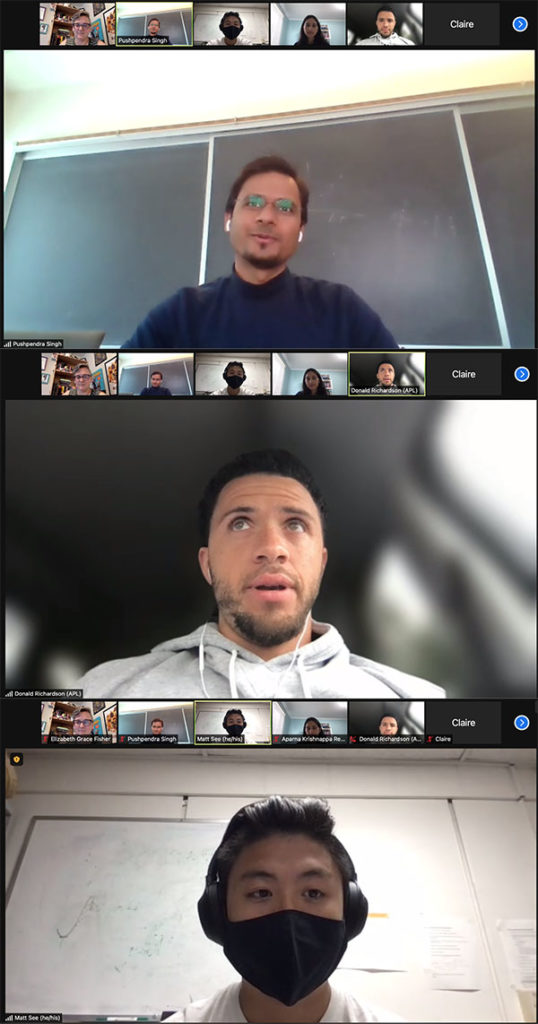
August 6th, 2021
On Friday, August 6th, CHEPS alums Matt See, Donald Richardson, and Pushpendra Singh joined us to discuss their Ph.D. experiences and answer any questions. Matt and Pushpendra are both working on their Ph.D.s at UC Berkeley and Dartmouth, respectively. Donald completed his Ph.D. at UofM working with CHEPS Faculty Director Dr. Amy Cohn.
Dr. Donald Richardson started at CHEPS in 2013. He was brought in by the Summer Undergraduate Research in Engineering program and then continued his work after the summer. He highlighted one project he did for a chemotherapy infusion center. His team focused on scheduling, staffing, and optimizing the pharmacy: how do you get drugs out to patients quicker? Another guest speaker, Matt See, worked on this project too. Donald also did some aviation projects. He knew that he wanted to go more of an “industry, government route” rather than academia. He now works at John Hopkins Applied Physics Lab doing military healthcare research. He enjoys his position because it’s not exclusively industry, it has that research component. He loves that he’s doing impactful work for many different spaces–military, navy, COVID research–and is involved in both the research and its implementation.
Matt’s sister and her husband actually met at CHEPS! Before he came to UofM he met Dr. Cohn at the wedding and she convinced him to apply to work at CHEPS. He initially came into school as a Chem major planning to go to Med School. He found out rather quickly that he is much more interested in research than practicing medicine. He is now at UC Berkeley working to get his Ph.D. in Chemistry. He loves how specialized his education is at Berkeley. There are no prerequisites, so you can just take classes you’re genuinely interested in and want to take. He is excited to be getting more involved in the lab this semester because of loosened COVID restrictions.
Pushpendra worked at CHEPS for over a year and is now getting his Ph.D. at Dartmouth focusing on optimization in the micro-mobility field. This involves electric bikes and scooters. He looks at where and how they should be located, what should their fares be, and the strategy for making these types of decisions. He actually is working with one of Dr. Cohn’s lab mates from her time at MIT!
In the Q&A portion of the presentation, Leena, a current CHEPS Ph.D. student, said, “Don’t worry about the name of the school. Worry about the advisor you are going to have.” All the other speakers shared this sentiment. They said this relationship paired with the work environment should be what you consider the most. 4-6 years is a long time, and getting a Ph.D. is incredibly difficult. They said to make sure that research is really what you want to be doing because then the hard work will be worth it.
-Written by Madelaine Emsden, IOE Undergraduate Student
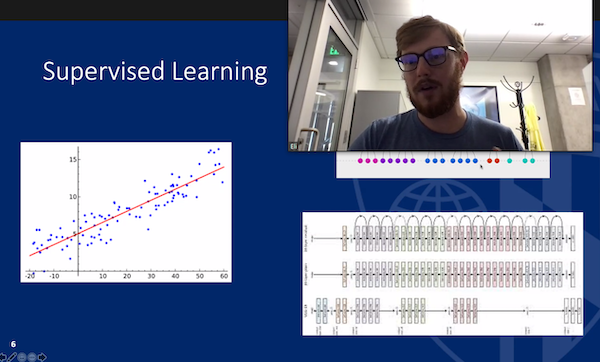
July 30th, 2021
On Friday, August 30th, CHEPS alum Eli Sherman joined us over Zoom to give an intro on machine learning and its applications in healthcare. Eli worked at CHEPS in 2015 and 2016 while he was earning his B.S. in Computer Science. He is now completing a Ph.D. in Computer Science at The Johns Hopkins University.
Eli began by discussing what machine learning is. He clarified that a lot of people think the machine is doing all the work in machine learning but “In reality, it’s the human that’s making the decision. If the human is telling the machine what to do, that’s different than the machine making the choices.” He then went on to describe some of the differences between supervised and unsupervised learning.
Eli shared some current case studies of healthcare-related machine learning. First, he shared a case study out of Johns Hopkins concerning sepsis. Sepsis is a bad systemic bacterial infection. Early detection is incredibly important. The case study uses time series modeling and latent risk estimation to look at the data collected about a patient and determine how far away the patient is from being septic. Secondly, he shared some work he’s a part of on analyzing language used on social media to look at population-level mental health. The study predicted depression based on the content of online posts.
Eli concluded by emphasizing how important it is to consider potential bias in machine learning. He shared some information from the article “Machine Bias” on Pro Publica which showed that machine learning used to predict recidivism is biased against black people.
Thank you to Eli for an engaging and informative talk!
-Written by Liz Fisher, CHEPS Staff
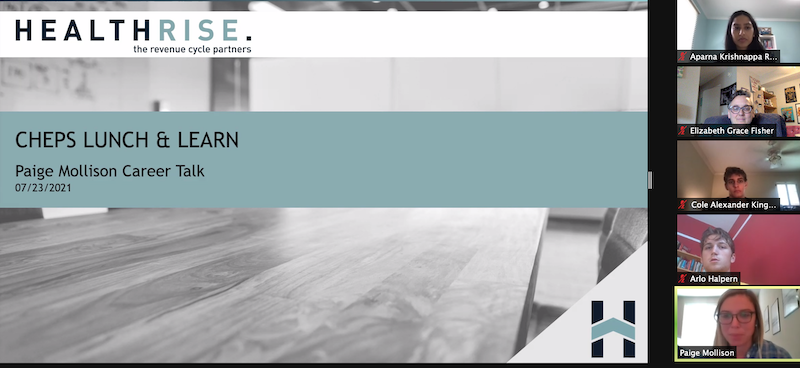
July 23rd, 2021
For July 23rd’s Lunch and Learn, we were joined by CHEPS alum Paige Mollison. Paige was a CHEPSter from 2015 to 2016 and made the most of her time at CHEPS by joining the Provider and Block scheduling teams and presenting her work at a conference in 2016. Billy and Paige even went on to win an award at that conference!
After graduating in May of 2016, Paige began a full-time position at HealthRise, somewhat unexpectedly. Throughout her recruiting experience, Paige wanted to do clinical process improvement at a big firm. Little did she know that she would instead end up at a small consulting firm of only 30 employees. However, Paige has enjoyed her time at HealthRise, even as it has grown to a larger, nationwide company. HealthRise, as a firm, drives financial improvement throughout the reimbursement process for hospitals. There are many points throughout this process where failure can occur, and HealthRise aims to lower this failure rate. Paige reminded us to keep an open mind about the type of job you want because of her own experience.
During her five years at HealthRise, Paige has had the opportunity to switch roles twice. Within six months of starting, Paige advanced from an internal role to a travel-focused, client-based role. She believed this better aligned with her company’s long-term goals of moving from a local to a nationwide consulting base. Paige switched roles again in 2018 when she noticed how inefficient recording was for her clients. After switching roles, she started researching how to solve this problem and came across Tableau, which she successfully pitched to her manager and VP. She summarized by telling us to not be afraid of being agile and making intentional career changes, especially at smaller companies where there is more flexibility within your role.
Paige went on to give more examples of how HealthRise has been a great company to work for over the years. In 2019, Paige’s boyfriend had to move to Texas for a new job, and when Paige asked her manager about relocation, they did not hesitate to allow the relocation. In 2020, Paige decided to go back to school to get an MBA. HealthRise not only offered to pay for part of her degree but also helped adjust her schedule so that she could study and take the GMAT. Paige reminded us to not underestimate the value of a supportive company when evaluating where to accept an offer.
Paige wrapped up her talk by reiterating some key points: keep an open mind about the type of job you want, don’t be afraid to be agile and make intentional career moves, the job you applied for doesn’t have to be the job you end up in, and don’t underestimate the value of a supportive company. With that, Paige opened the floor for questions.
One of the main questions asked of Paige was how her engineering background, including CHEPS, helped her get to where she is now. To this, Paige responded that being able to think logically and in a problem-solving manner has been very helpful since consulting is also problem-solving. For things unfamiliar to her, she was able to find a mentor at work to shadow and learn from in a hands-on manner. CHEPS, in particular, taught her how to handle clients and communicate with them in an effective way. She next answered questions about how COVID has impacted her company and how it functions, to which she responded by saying that it has made their IT infrastructure much stronger by shifting to fully remote and also made HealthRise more flexible in general. She mentioned how they’ll likely see a hybrid model now, where traveling will depend on the client’s preference.
Thanks again to Paige for the insightful talk and valuable conversation!
-Written by Heli Patel, BME Master’s Student

July 16th, 2021
It was exciting to have CHEPS alum Ryan Chen visit on Friday, July 16th for a virtual Lunch and Learn. Ryan graduated from The University of Michigan in 2014 with a dual bachelor’s degree in Industrial and Operations Engineering and Euphonium Performance. He went on to earn a Master’s in Management Science and Engineering at Stanford, then spent several years as a Basketball Data Scientist for the Orlando Magic. His next venture is pursuing a law degree at Harvard starting in Fall 2021.
As an undergraduate, Ryan knew research experience would be important to his future career so he pursued the opportunity to work on airline research with Professor Amy Cohn. As his work with Professor Cohn continued he got the opportunity to be involved with CHEPS right at the beginning. “That was a wild west of a time,” he said. “Seeing all of that take shape over time was pretty cool.” He said that experience gave him a sense of what research life was like, made him a competitive applicant, and allowed him to build several strong relationships that are still important to him today.
Ryan originally thought he might want to pursue a Ph.D. but, while at Stanford, he realized he had developed the technical capabilities to do interesting work in sports analytics. That and the realization that he wanted to leave grad school, led to him getting a job with his favorite hometown team, the Orlando Magic. In his position, he focused mostly on machine learning models for the NBA draft.
Basketball and healthcare engineering might not seem too similar but Ryan talked to CHEPS students about a thread that was important in both: the ability to communicate technical information to a non-technical audience. He said, “In a basketball context most people don’t have a technical background and it’s similar to CHEPS in that way. Tech com is super valuable but there’s a lot of perspective in doing it in a real scenario.”
He mentioned some principles he’s found useful. The first was “relationships come first.” He recommended starting a collaboration by identifying a small easy problem to fix to you’re your collaborator you can work together well. Over time you can work up to bigger projects and will have developed trust with your collaborators. Additionally, he emphasized “the power of iteration,” recommending talking with collaborators regularly throughout developing a solution. This gives more insight on all sides and develops a sense of security in how projects are progressing. He also stressed, that while you may have the technical know-how, your collaborators will have so much domain-specific knowledge that is key to solving the problem.
Thanks to Ryan for a great talk and for answering a wide variety of questions in our Q&A. He had some particularly insightful thoughts on weighing big life and career decisions.
-Written by Liz Fisher, CHEPS Staff
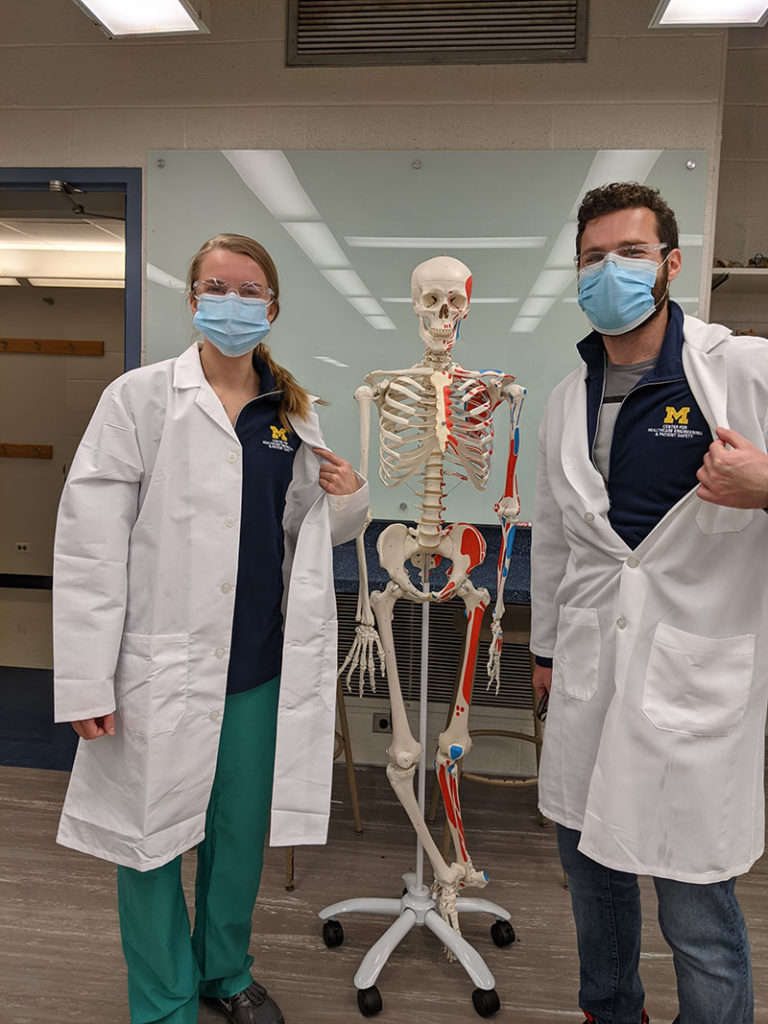
July 2nd, 2021
On July 2nd, 2021, UM medical school students and CHEPS alumni Lauren Hirth (BME ’19) and Bassel Salka (IOE ’19) shared their experiences as engineers pursuing medicine in a virtual Lunch & Learn with CHEPS students. Lauren and Bassel both joined CHEPS in 2016 and remained with the Center until their graduation in 2019, after which they both pursued research outside of Michigan for one year before starting as students at UM’s medical school in 2020. Lauren described her decision to pursue BME as her undergraduate major as a way to marry her fascination with engineering with her interest in medicine. Having a degree in engineering left the door open for her to find a career in engineering if she ultimately chose that route. However, her experiences with patient-oriented work tilted her decision in favor of studying medicine. She feels that the University of Michigan is a great place for someone with interdisciplinary interests to study medicine because of how strong so many departments here are.
When asked about how to get into medical school as an engineering student, Bassel leaned into the passion, skills, and network that engineering students have. Students who pursue engineering degrees but are interested in medicine tend to love engineering for a reason, as he does, which shines brightly when bringing the two fields together in applications. Bassel also felt that engineering gives students substantial technical skills through both coursework and unique work opportunities. Such engineering-centered activities stand out in a large pool of applicants. As such, engineering students tend to find themselves compared to many other pre-med students less frequently than they might otherwise, both during their education, when interactions with other pre-meds are more limited as engineers, and during the application process.
Bassel explained that exciting opportunities can often be obtained through good connections. Indeed, he found that his connections through CHEPS helped him to land several work and research positions before he enrolled in medical school. Finally, Bassel rounded out this part of the discussion by explaining that medical school is not inherently more challenging for past engineering students, despite the differences in material and pedagogy. What matters most in his eyes is how effectively one works, not necessarily how hard one works.
Lauren and Bassel both described how their experiences in undergrad helped them decide on medicine as a career and how their experiences have translated to medical school. Lauren felt that the hands-on and experiential components of her education and extracurricular involvements were key in her decision. At CHEPS, she spoke to dental school faculty and did hands-on work in clinical settings; through BME, she took a Clinical Observation and Needs Finding course and worked on a senior design project that designed a mobility device for a toddler. Bassel found that his experience in a challenging engineering curriculum and on-the-fly learning in engineering jobs made him resourceful and “comfortable with being uncomfortable,” both qualities that translate beautifully to medical school.
Ultimately, both Lauren and Bassel are grateful for the experiences and mindset that having an engineering background instilled in them, and they feel that they have been able to succeed in medical school because of them, not in spite of them. Bassel sees engineering playing a key role in his career as a physician, while Lauren is keeping an open mind and will continue to explore during her time at UM’s medical school. Both emphasized that individuals who particularly enjoy working directly with patients consider patient care professions, regardless of background.
— Written by Dipra Debnath, BME Master’s Student
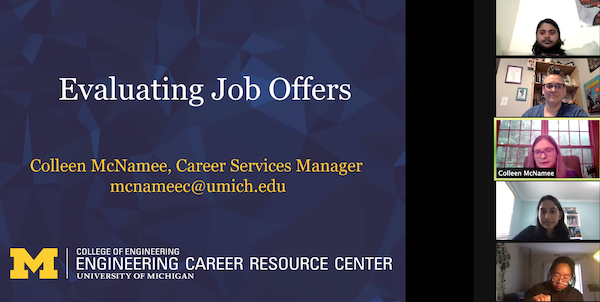
June 25, 2021
On June 25th, Colleen McNamee, Career Services Manager at the CoE Career Resources Center, presented during the CHEPS Lunch and Learn. In her talk, Colleen shared her knowledge on how engineering students should evaluate job offers and provided many great tips along the way that apply to all students as well. First, Colleen acknowledged that the job search process is a situationally based topic and offered her help to any student that reached out through her email then broke down the topic into four sections.
Job Offer: Offers are typically extended from an employer through the phone or via email. It is important to first express appreciation for the offer and ask for an official offer letter regardless of the situation. Do not feel pressured to respond to the offer immediately and avoid accepting the offer on the spot. It is critical that students fully review the offer because there are often components of an offer that students do not think to evaluate. Make sure that the decision deadline is clearly stated by the employer and in writing. Usually, students receive 1 to 3 weeks to accept or decline an offer depending on the circumstance.
Evaluating the Offer: Factors to consider when evaluating a job offer include work experience (is this job what you want to do?), salary and benefits (is this a competitive salary?), geography (what is the cost of living here?), work culture (are your values in line with the company’s values/mission?), advancement opportunities (is this industry favorable long term?), and various personal factors. Do some introspection to decide what factors are the most important to you as an individual while trying to avoid overvaluing a single part of the job offer.
Vital to making a well-informed choice on a job offer is an understanding of total compensation and employee benefits. Your total compensation in a job offer is essentially the total amount of money you as an employee cost the company. This includes your salary, potential bonuses, and the value of your benefits. A word from the wise, make sure to read the fine print when it comes to sign-on bonuses. They are often paid at the start of the job, are taxable, and must be repaid if you leave the company too quickly after being hired. Additionally, it is important to understand the health plans, life insurance, stock options, wellness options, tuition reimbursement, and 401K/403B plans potentially offered to you as well.
Meeting the Deadline: The most difficult part about meeting an offer deadline is potential conflicts between other job offers or prescheduled interviews with different companies. It is good practice to learn how to respectfully request an extension on your offer deadline when you are in a pinch. Reach out to the employer before the deadline via phone or email and graciously request and extension while providing legitimate reasons for the extension. In addition, after accepting the job offer make sure to discontinue campus interviews in accordance with the cancellation policy stated in the ECRC Job Search Code of Ethics and to avoid reneging your commitment.
Negotiation: Knowing how to negotiate an offer and advocate for yourself as a professional is an important skill for both your first job and the rest of your career. Some items you might consider negotiating are salary, start date, time off, relocation, and professional development. Make sure to negotiate in person or over the phone and know all your requests at once with a rationale for each. Research information from at least three different sources such as the ECRC Salary Report, Salary.com, Glassdoor, O*NET, or the Salary Calculator Center to gain a holistic understanding of the typical salary in your field and what you should expect in a job offer.
With this information you are geared up and ready to accept your first job offer! Make sure to consider all aspects of the offer and opportunity, do your research, and maintain a positive tone throughout the process to keep a good relationship with the company in the future. Many thanks to Colleen for sharing this helpful advice with us!
— Written by Nathan Smith, Kinesiology Undergraduate Student
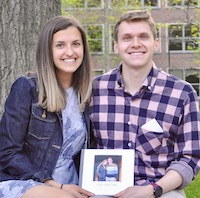
June 18, 2021
CHEPS alums Nina Scheinberg and Mark Grum are engaged! Nina said, “I proposed to Mark in the Diag with a photo album of all of the pictures we had taken over the last three-and-some years, and the last page said, ‘Mark, will you marry me?’ And he said yes! Our sisters were hiding nearby to snap photos, and we all celebrated afterward at Ashley’s.”
Nina’s busy scheduling her school’s classes for next year and is looking forward to a relaxing summer break after a challenging year of teaching 6th grade. Mark is traveling quite a bit as a Manager of Analytics at GE Healthcare. Congrats to both of them on the engagement and their professional accomplishments! It’s nice to see CHEPSters and CHEPS romances thrive.
— Written by Liz Fisher, CHEPS Staff
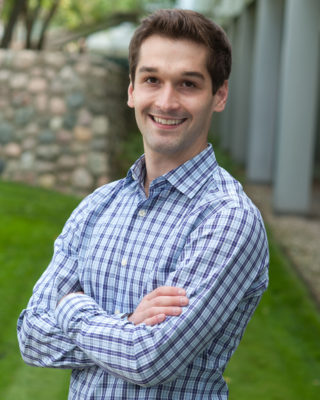
May 28, 2021
Alexander Hallway joined CHEPS students for a Lunch and Learn on Friday, May 28th. Alex is the Michigan Pain-control Optimization Pathway Lead at Michigan Medicine.
Alex started by sharing some facts about the opioid epidemic. Michigan has concerning levels of opioid deaths and those levels have risen in the past ten years. Synthetic opioids are a rising problem in the US and Michigan. Most opioids prescribed after outpatient surgery go unused. Medication disposal can be challenging in the U.S. so many opioids end up sitting in medicine cabinets at home. People who misuse opioids often get them from friends or relatives.
The Michigan Pain Optimization Pathway (POP) utilizes three steps to address the over-prescription of opioids. First, pre-surgery patients are educated about the risks of opioids and also told about alternatives to pain relief including holistic approaches. Secondly, they have worked to standardize best practices for the prescription of opioids after surgery, and post-op they’ve worked to increase evidence-based prescribing of opioid alternatives.
In 2018 POP was tested at Michigan Medicine. Patients received a survey after their surgery and results showed that patient satisfaction was high, pain levels were low, and patients’ needs were met with far fewer opioids prescribed. In short, conservative prescribing of opioids meets patient needs and results in many fewer pills left over after surgery. The team is now working to have a greater impact by expanding efforts to different specialties and providers. They are also expanding beyond Michigan Medicine to the whole state of Michigan.
Thank you to Alex for taking the time to share his work with us!
— Written by Liz Fisher, CHEPS Staff
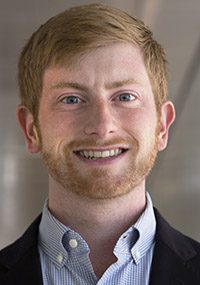
May 17, 2021
Congratulations are in order! CHEPSter Adam VanDeusen had his Industrial and Operations Engineering Ph.D. defense on May 17th, 2021. He presented his work on “An Industrial Engineering-Based Approach to Designing and Evaluating Healthcare Systems to Improve Veteran Access to Care” and officially became Dr. VanDeusen.
Access is a big challenge for rural veterans especially and veterans report greater delays in seeking care than non-veterans. As part of his Ph.D. research, Adam developed facility location models that assist VA leaders in understanding which clinic locations should offer eye disease screening, what provider type(s) should staff each location, and which patients should be screened each location. The models developed utilize mixed-integer programming and consider several objectives, including screening the most patients possible or minimizing cost, subject to a set of constraints. These models can help the VA understand how to organize eye care providers throughout a region, allowing more veterans to access preventive eye care.
CHEPSters past and present attended Adam’s virtual defense as well as many of his IOE colleagues and, of course, CHEPS Faculty Director Amy Cohn who was also his thesis chair. His committee was Professor Seth Guikema, Professor Lisa Prosser, and Dr. Sameer Saini. At the end of his presentation, Adam thanked many people who supported him and contributed to his work including his committee, all of the CHEPS students who have worked on his projects through the years, CHEPS staff and faculty, and his family and friends. Congratulations on your successful defense, Dr. VanDeusen!
— Written by Liz Fisher, CHEPS Staff
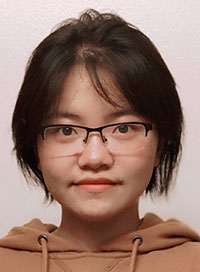
May 4, 2021
Fall 2020 IOE and HEPS Masters graduate Ziqi Wang is now working as a data scientist at the Institute for Hospital Management at Tsinghua University in Beijing where she has the opportunity to work with one of her undergraduate professors, Prof. Xie. They work with Chinese hospitals to help them deliver high-quality and patient-centered care. Ziqi said that, in the first months of her job, “I found what I learned in CHEPS is really meaningful.” Congrats on the new job, Ziqi!
— Written by Liz Fisher, CHEPS Staff
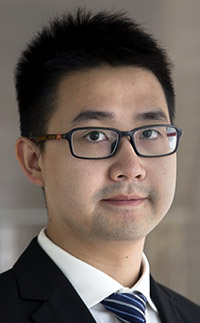
April 8, 2021
We have a new doctor of the Ph.D. variety in the house! Junhong Guo successfully defended his Industrial and Operations Engineering Ph.D. dissertation on April 8, 2021. According to Junhong’s abstract, “Personnel scheduling is one of the most critical components in logistical planning for many practical areas, particularly in transportation, public services, and clinical operations. Because manpower is both an expensive and scarce resource, even a tiny improvement in utilization can provide huge expense savings for businesses. Additionally, a slightly better assignment schedule of the involved professionals can significantly increase their work satisfaction, which can in return greatly improve the quality of the services customers or patients receive.”
His dissertation titled “Optimization Approaches for Solving Large-Scale Personnel Scheduling Problems” looked at three real-world personnel scheduling problems in aviation and healthcare and proposed new models and solution approaches to address challenges in each instance. In addition to his committee and several current colleagues, a few CHEPS alums who had worked with Junhong attended the virtual defense to support their fellow CHEPSter. Congratulations, Dr. Guo!
— Written by Liz Fisher, CHEPS Staff

April 5, 2021 CHEPS alum and current Senior Manager at HealthRise Solutions Paige Mollison is engaged! Paige’s fiancé Max proposed on a recent ski trip to Vail. Paige said, “We were walking between Lionshead and Vail Village on a little path by a creek, and next thing I knew Max was on one knee and my best friend (who is also a photographer) pops out of the bushes. It was wonderful!” Congrats to Paige and Max! — Written by Liz Fisher, CHEPS Staff |
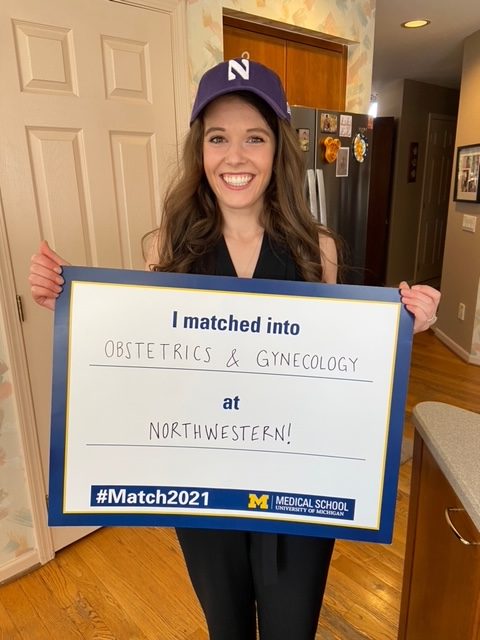
March 25, 2021 CHEPS alum Anna (Munaco) Rujan got some great news on Match Day! Anna, who worked with CHEPS while pursuing her undergraduate degree and is now a fourth-year medical student at the University of Michigan, has matched to Northwestern Obstetrics and Gynecology for her residency. Congratulations, Dr. Rujan! Northwestern is lucky to have you. — Written by Liz Fisher, CHEPS Staff |
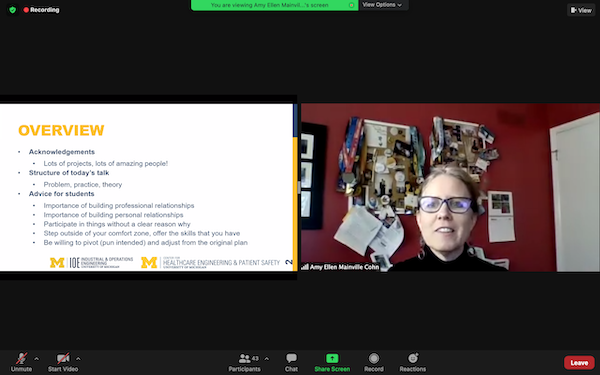
March 12, 2021
On Friday, March 12, CHEPS Faculty Director Amy Cohn gave a virtual Lunch and Learn for the Industrial and Operations Engineering Department. She touched on seven different COVID-related problems she’s worked on over the past year, what it was like to be a part of a team solving these problems, and how Industrial Engineering can be an effective way to solve these problems. From these experiences, she found reinforcement of the importance of multidisciplinary work and the strength of multidisciplinary teams in solving complex problems. While there were almost always disagreements in these teams, not surprising given the variety of perspectives “at the table”, Prof. Cohn offered some tips for dealing with differences of opinions. These include starting with common values, a clear agenda/plan for meetings, ensuring that everyone feels comfortable sharing their perspectives, and establishing who, at the end of the day, has the authority to make final decisions. Prof. Cohn also reflected on how generous the people she has been working with on these various projects have been, both in terms of time and in terms of welcoming crazy/wild ideas without judgment. Additionally, Prof. Cohn emphasized the importance of not losing what we’ve learned during the pandemic as things “go back to normal”. The following are a few of the projects, Prof. Cohn discussed:
Aerosolization: In March, a major question was “Does the use of heated high-flow nasal cannula increase aerosolization of COVID-19 and what are the implications of this?”. Using a high-flow nasal cannula is an alternative to putting a patient on a ventilator, which should really be a last resort since being on a ventilator is not the most healthy thing for the patient. In the short-term, the question was if this was even a problem and how we would measure it. The team found that we have ways of measuring things regarding aerosolization that we didn’t think we could measure.
N95 Reprocessing: Given the shortage of N-95 masks, could we find a way of reprocessing them? This was a prominent question in April, as the supply chain of N-95 masks was strained. In the short-term, a multidisciplinary team figured out the best way to treat masks to deactivate the virus, evaluate structural integrity, and established logistics of collecting, reprocessing, and redistributing masks. In the long-term, this work sparks conversations about the supply of PPE, the risks in the supply chain, and alternatives to new acquisition
Field Hospital Staffing: At the peak volume last summer, we needed to prepare for the demand for COVID care exceeding hospital capacity. In the short-term, this entailed building staffing models for a 1000-bed field hospital. In the long-term, this work can be related to and build upon other complex combinatorial optimization problems, such as staffing levels, shift scheduling, and stochasticity. Prof. Cohn gave some valuable advice to those going into industry or service environments for their careers: Do what you have to do to get the job done! You won’t have the luxury to explore the problem as deeply as you want or spend as much time as you want, but that doesn’t mean you can’t still do quality work on the timeline necessary!
In addition to the projects discussed, Prof. Cohn imparted some advice for us students. Firstly, it’s really important to build professional and personal relationships. Relating to that, step out of your comfort zone and don’t be afraid to participate in things that don’t fit neatly into your educational or career plan because you never know what you could get out of that experience! You may make a connection with someone that becomes very valuable later or has a more profound impact on you than you may initially realize. Of course, there is an obvious need for balance here. Being able to say “no” to things is really important and make sure that what you do with your time and energy aligns with your values. Finally, be willing to pivot and adjust “the plan”. Whether this is your own academic/career plan or a plan on a project, it’s important to be flexible and change directions when necessary!
— Written by Emmett Springer, BME Undergraduate Student
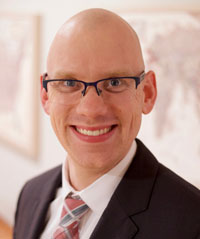
March 2, 2021
CHEPS alum Joe East is back in Michigan! Joe is now Director of Strategic Integration at Beaumont Urgent Care. Joe graduated from the University of Michigan in 2014 with a dual master’s in Industrial and Operations Engineering and Health Care Administration. After graduation, he spent nearly six years working at Maine Medical Center, most recently as Director of Patient Flow. Joe’s wife Nicole has also started a dental practice in Grand Ledge, Michigan. Joe says he’s excited to be back in Michigan closer to family and advancing his career. And, of course, we here at CHEPS are happy to have him back in the state! Congrats, Joe and Nicole!
— Written by Liz Fisher, CHEPS Staff
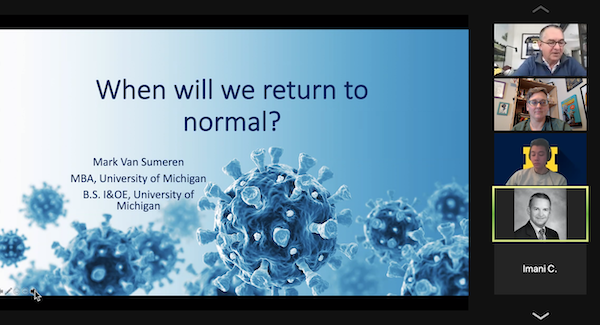
February 17, 2021
On February 17th, U of M IOE alumni and longtime friend of CHEPS, Mark Van Sumeren, presented at a CHEPS Lunch and Learn. In his talk, Mark discussed many important topics related to our future with COVID-19. The projection models he has been developing can help to answer questions of how to reach herd immunity in the US and when can we get back to normal.
One of the first questions Mark had to address in his models was how we define “normal.” Normalcy amidst COVID-19 can be measured by the percentage of the population that is immune, or by other standards such as the reproduction rate of the virus. Mark described the term “herd immunity” to be a certain level of immunity against COVID-19 across a population such that the virus will become more of a nuisance, rather than a crisis, somewhat like the flu. The percentage of a population that needs to be immune in order to achieve herd immunity is typically thought to be in the range of 60% to 80%.
Mark went on to discuss the inputs, assumptions, and variables that go into his projection models. Model inputs include the vaccines that have Emergency Use Authorization through the FDA, the quantity of those vaccines that have been given, and the effectiveness of the vaccines. So far, only two vaccinations have been authorized (Moderna and Pfizer), but Mark anticipates Johnson & Johnson’s vaccine to be authorized in early March and Novavax’s in late spring or early summer. The assumptions made in Mark’s models include the amount of natural immunity for those who have previously contracted the virus, and there are a number of decision variables that incorporate the new COVID-19 variations which are emerging around the world and vaccine hesitancy within the US, accounting for the people who are resistant to receiving a vaccine. Mark believes that vaccine hesitancy will decrease in the coming months because many Americans have a “wait and see” mentality, which will shift once more people around them begin to receive vaccines.
In Mark’s modeling, he began with a baseline which starts in early 2021 and is projected out to December 2021. The baseline simply projects immunity levels if 1 million doses are administered every day in the US, there’s a 65% vaccine willingness, and no outside factors such as natural immunity or other vaccines getting authorized are taken into consideration. This baseline alone would be inadequate in reaching 60% immunity in the US by the end of 2021. Mark then went on to model the Biden administration’s plan for accelerated vaccination rates, which would get us to 60% immunity by the end of the year. He also modeled the current US projection where natural immunity and the Johnson & Johnson vaccine are added in, further increasing the immunity levels. However, when emerging variants are taken into consideration, immunity levels are set back by four to six weeks from the model without these variants. Finally, Mark modeled the projection if vaccine willingness dropped to 50%. This change would cause more long-term effects as vaccine supply catches up to demand.
From his projections, Mark predicts that non-priority groups can begin to expect vaccinations by late April or early May of 2021, and the US will reach a more “normal” state with herd immunity of 60% by June or July of 2021. However, he also warned that we will need to be cautious in the fall as more emerging variants from the developing world may spread to the US. To end the presentation on a positive note, Mark also shared that he is optimistic about being able to watch Michigan football play in the Big House this fall.
— Written by Caroline Hirth, IOE Undergraduate Student
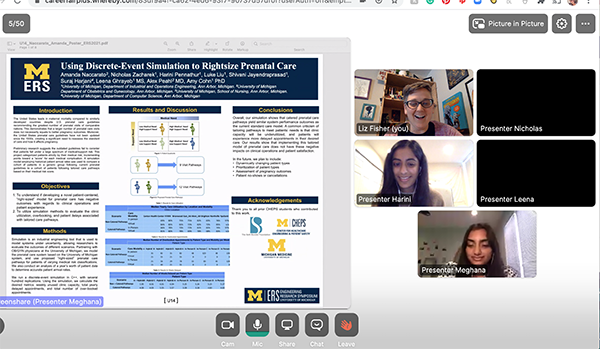
February 5, 2021
Four CHEPS teams presented their work at the Engineering Graduate Research Symposium on Friday, February 5th, 2021. The event, held virtually this year, included sessions for both undergraduate and graduate presenters. CHEPS students presented the following posters:
- Evaluating Patient Triage Strategies for Non-Emergency Outpatient Procedures Under Reduced Capacity Due to the COVID-19 Pandemic
- Incorporating Patient Deterioration When Simulating Utilization of a Cardiovascular Intensive Care Unit
- Scheduling Family Medicine Residents at the American University of Beirut Medical Center to Clinics Using Optimization Methods With Multi-Objective Criteria and Priority Rules
- Using Simulation to Rightsize Prenatal Care
Each CHEPS team did an impressive job and got positive feedback from the event judges. Advaidh Venkat and the GI Clinical Recovery team, which also includes Adam VanDeusen, Che-Yi Liao, CHEPS Faculty Director Amy M. Cohn, Dr. Jacob Kurlander, and Dr. Sameer Saini were recognized with 3rd place in the Undergraduate Research Symposium.
— Written by Liz Fisher, CHEPS Staff
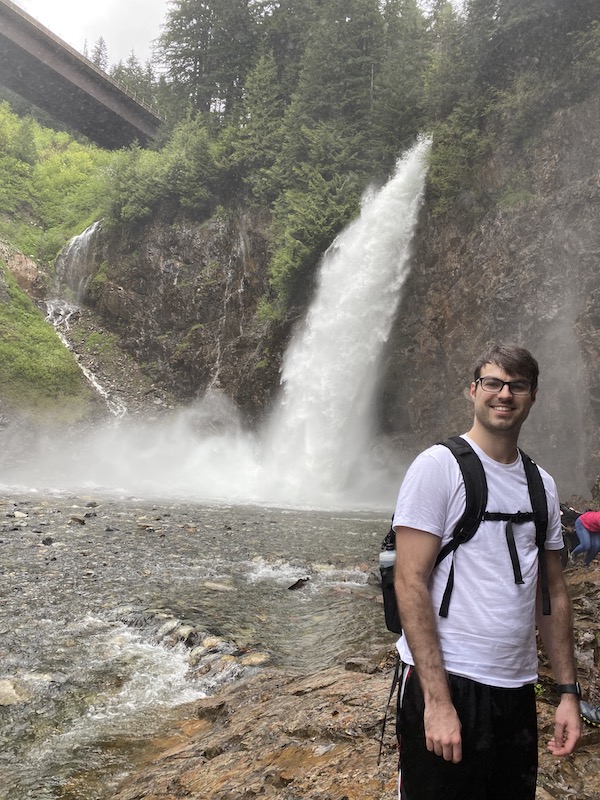 |
December 14, 2020 “I joined CHEPS in the summer of 2017. I graduated from the University of Michigan with a degree in Computer Engineering in May 2018. After graduation, I joined Microsoft in the Greater Seattle area, primarily working on the Azure Machine Learning platform. During my time there, I was one of the first engineers on the Azure Machine Learning Data Labeling service and shipped this to General Availability and is currently used by 100+ customers. I also spent a brief time on the core Inferencing stack, helping improve the performance and reliability of customer models in making predictions. I have since moved to the Azure Networking team, working on the network graph that models the interconnectivity between our data centers across the world. I’m also currently interested in grad research programs in CS and am looking to return to school in the next few years. In my free time, I enjoy what Seattle has to offer, going on snowboarding trips with friends and enjoying nature hikes.” |
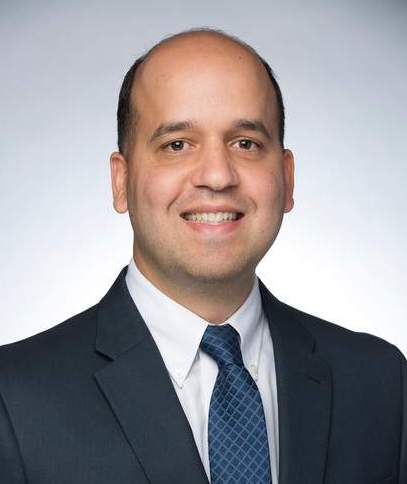 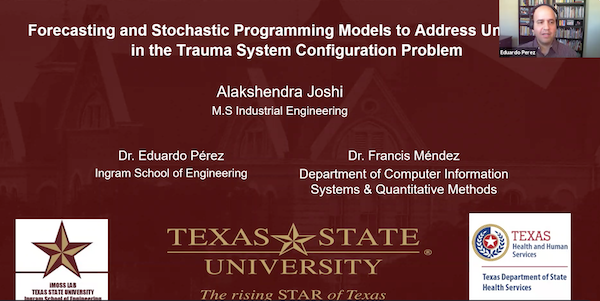 |
December 7, 2020 As our final seminar in the CHEPS Seminar Series, we had the honor of having Dr. Eduardo Pérez present his work on “Forecasting and Stochastic Programming Models to Address Uncertainty in the Trauma System Configuration Problem” on December 7, 2020. Dr. Pérez is currently an Associate Professor at Texas State University at the Ingram School of Engineering. He completed his B.S. in Industrial Engineering at the University of Puerto Rico at Mayagüez, Puerto Rico, and later completed his Ph.D. in Industrial and Systems Engineering at Texas A&M University. He is interested in researching operation systems engineering, decision theory analysis, and discrete-event simulation to streamline and solve issues within service systems. He has worked with many sponsors on his research projects including the National Science Foundation (NSF), the Department of Homeland Security (DHS), among many others. The research he presented to us was with the support of the Texas Department of State Health Services and funded by the NSF. Dr. Pérez began this Trauma System research because trauma and injuries can easily lead to death if proper care is not given. To avoid these negative outcomes, Dr. Pérez decided to analyze and forecast patient accident trauma and created a stochastic programming model that uses the injuries to place trauma centers in the most optimal locations. The first objective of this project was to collect and analyze data on trauma injuries at different population regions in Texas and forecast service needs based on zip code locations. The second objective was to develop a decision-making model for the stochastic trauma system configuration problem (STSCP). This would allow the current trauma network in Texas to expand based on the geographic location of injured individuals. Dr. Pérez’s work is very innovative and will allow both patients and health systems to benefit by allowing for more efficient use of trauma resources and greater access to better trauma care. These findings have become even more relevant as improved access to Trauma Centers has become increasingly important due to the pandemic. We thank Dr. Pérez’s research presentation as a great end for our 2020 Seminar Series. |
 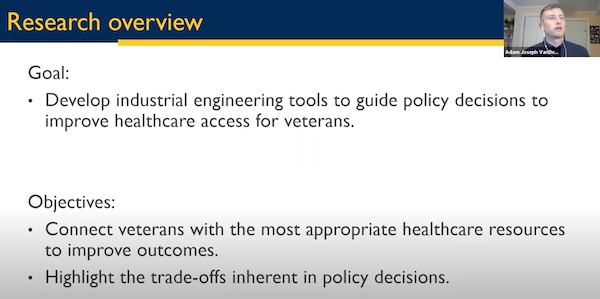 |
November 30, 2020 Adam’s research goal was to develop industrial engineering tools to guide policy decisions to improve healthcare access for veterans, as veterans have a greater delay in seeking care than non-veterans, which can result in poorer health outcomes for these individuals. Diabetes is 4% higher in this population and is a strong indicator of many diseases, including eye diseases. Eye disease screening was the focus of this research, specifically in Georgia. The models the study utilized worked to understand which clinics should be offering these screening services, the type of staff needed, and the distribution of patients among these clinics – by looking at the average driving distance and time of patients. The results show that by offering screening services at these locations, a much larger number of veterans will be screened for eye diseases which could maximize the cost of treatment and maximize the number of veterans receiving care. We believe this work is extremely important when it comes to providing better health outcomes for vulnerable and at-risk populations and are very proud to see this work happening at CHEPS. A video of Adam’s talk is available here. |
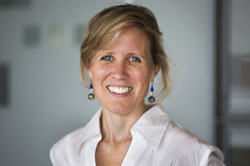 |
November 20, 2020 On November 20th, Professor Amy Cohn presented at the IOE lunch and learn seminar, which is open to all University of Michigan students, faculty, and staff. Professor Cohn addressed many topics including her academic journey, CHEPS work, and her ongoing COVID-19 projects. Professor Cohn completed her undergraduate degree in applied math at Harvard where she enrolled in a course equivalent to IOE 310 at UofM, which focuses on optimization and computational methods. Upon graduation, she went into industry and worked in various sectors including airline industries and vehicle routing. She later pursued her Ph.D. in Operations Research at MIT and became a professor at the University of Michigan in the IOE department. Professor Cohn advised students to not be afraid to pursue something that seems unrelated or outside of your field of study. It’s the connections and interdisciplinary work that are the most impactful in creating the best solutions. Professor Cohn also shared that her passion for engineering ties back to people. Putting order to data, looking for structure, and designing code can have a real positive impact on people. Professor Cohn encouraged students enrolled in the IOE program to get involved at CHEPS or with research with a professor. She emphasized that industrial engineers are much needed today and have the opportunity to play an important role in shaping policies. She spoke of a few CHEPS projects like the pre-natal team, which is investigating the role of telehealth for women who are in pregnancy. For example, there is potential for insurance policies to be altered to cover telehealth appointments based on data analysis and modeling by the pre-natal team. There is a strong connection between engineering and policy. The multi-disciplinary problem-solving approach also plays into Professor Cohn’s important work with Michigan Medicine studying COVID-19. Professor Cohn partnered with doctors, experts, and professors in mechanical engineering, material science, and epidemiology to name a few. Professor Cohn and her collaborators worked together to research high flow nasal cannula used to treat patients with COVID. It was investigated if this method of treatment was infecting doctors and nurses. Another project focused on the supply chain management of PPE like N95 masks. Additionally, methods of cleaning and reusing masks were studied. The staffing and scheduling of the new field hospital were examined. Furthermore, Professor Cohn was responsible for organizing the COVID testing operations for students who wanted to get tested before traveling home for Thanksgiving. To conclude the seminar, Professor Cohn highlighted the versatility of an IE degree and expressed her excitement in working on her future project of staffing pharmacists, doctors, and other personnel when delivering the COVID vaccine. |
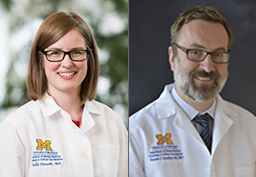 |
November 18, 2020 On Wednesday, November 18th, the Institute for Healthcare Policy and Innovation (IHPI) hosted “Caring for the Critically Ill During 1st Wave COVID: A Conversation with Hallie Prescott and Jack Iwashyna.” Dr. Hallie Prescott and Dr. Jack Iwashyna are both pulmonary medicine and critical care physicians and professors in the Michigan Medicine health system. In this talk, they shared their experience at the forefront of the early coronavirus response at the Michigan Medicine University Hospital and VA. Both Dr. Prescott and Dr. Iwashyna emphasized how amazed they were by the speed with which the VA responded and converted its operations to handle COVID cases. During the first wave, the VA opened up to non-veteran patients per the VA’s fourth mission: to assist the nation in times of emergency and serve the American public at large. While the virus itself and treatment methods were not particularly new (Covid-19 infection behaves much like ARDS (acute respiratory distress syndrome), the magnitude was new. Much of the early critical care work surrounded what other treatments, such as ECMO, “worked” or “didn’t work” with Covid. Furthermore, due to the volume of Covid cases, there were many nurses and physicians were not used to critical care, or even inpatient care at all, who were pulled from their normal units to Covid units. Therefore, not only were people overworked, but they were “out of their element” and there was additional pressure on the system, making mistakes more likely. In response, the hospital implemented reminders for standard practices to ensure that care providers weren’t causing preventable harm. Additionally, while the VA of Michigan Medicine University Hospital never had to resort to rationing care, Both Dr. Prescott and Dr. Iwashyna discussed the difficult conversations they had to have during the first surge of cases about how decisions would be made if resources became too scarce. Dr. Prescott discussed the “Mi Covid-19 Initiative”, and how it has shed light on the effects of Covid-19 other than deaths and hospitalizations. Phone follow-ups of Covid patients 60 days after release from the hospital showed that about 40% were not back to work yet and 10% used up most of all of their life savings due to their Covid hospitalization. Furthermore, only about half followed up with their doctors after 2 weeks out of the hospital, and about one-fifth had not followed up at all after 60 days. The biggest challenge for care providers now, they both say, is fighting off “Covid fatigue” and continuing to work hard to meet the needs of all patients and be prepared for future surges. In the future, Dr. Prescott believes that telehealth visits will likely continue to be heavily utilized, especially for “snowbird” patients who live outside of the state during the winter months and who in the past had been restricted to appointments during the months they were physically living in Michigan. |
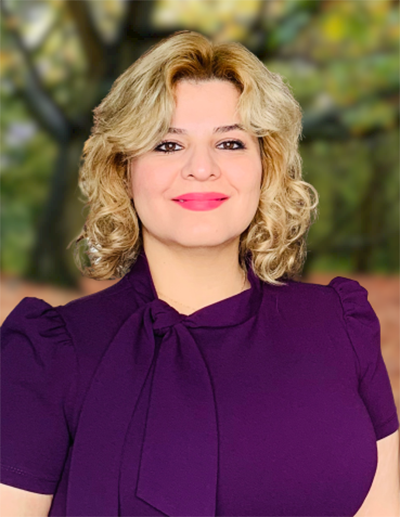 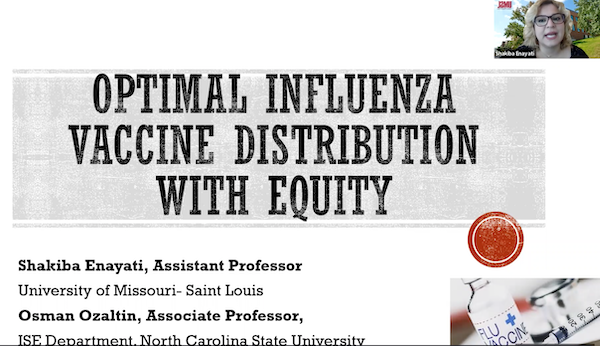 |
November 16, 2020 On November 16, the CHEPS Seminar Series guest lecturer was Dr. Shakiba Enayati, who presented her research on “Optimal Influenza Vaccine Distribution With Equity.” Dr. Enayati is currently an Assistant Professor in the College of Business Administration at the University of Missouri-Saint Louis. She completed her Ph.D. in the Operations Research Program at North Carolina State University. She completed her Masters and Bachelors in Industrial Engineering from Tarbiat Modares University and Iran University of Science and Technology. Her research uses predictive analytics to evaluate, predict, and recommend health actions at the individual and system level. She also uses operational engineering methods to help with public health policy and health systems management. Her motivation for this research was that 5 to 15 % of the global population is infected with influenza, resulting in 3 to 5 million severe cases and 250,000-500,000 deaths. The model focuses on a heterogeneous group of individuals with multiple subgroups. Each subgroup has different characteristics and age groups and can be modified depending on policy decisions. The model also evaluates group-specific transmission rates and social distancing and finds the optimal amount of vaccine usage. The main focus of her study was to try to provide equitable vaccine distribution and inform public health professionals on the number of vaccine stockpiles needed for future infectious outbreaks. The research she presented was incredibly useful as we get closer to approving and distributing a possible COVID-19 vaccine in an equitable manner. A video of Prof. Enayati’s talk is available here. All of our seminars this fall will be virtual. If you’d like to attend, RSVP here.. Please join us again on Monday, 11/30 when Adam VanDeusen, a Ph.D. Candidate at the University of Michigan, presents “An Industrial Engineering-Based Approach to Designing and Evaluating Healthcare Systems to Improve Veteran Access to Care.” |
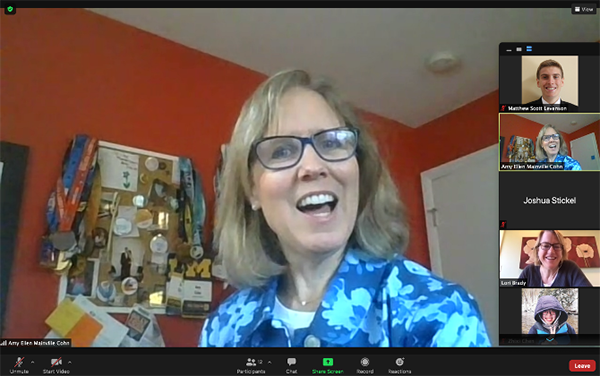 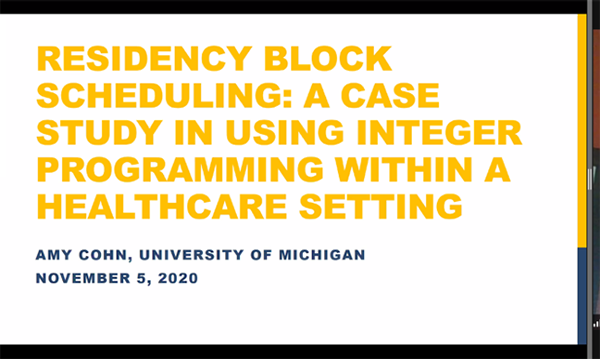 |
November 5, 2020
On November 5th, CHEPS Faculty Director Amy Cohn presented her research on “Residency Block Scheduling: A Case Study in Using Integer Programming within a Healthcare Setting” virtually at Johns Hopkins University’s civil and systems engineering graduate seminar series. Amy Cohn is a Thurnau Professor in the Department of Industrial and Operations Engineering at The University of Michigan and conducted this research in partnership with her Ph.D. student Junhong Guo. The research focuses, at a high level, on the creation of ‘optimal’ schedules of residents utilizing integer programming. These schedules are extremely complex, with millions of variables and possible variations. Prior to this research, chief residents would create master schedules by hand through manual iterations on whiteboards. This was a tedious effort that was not properly utilizing the expertise of the resident and the schedules would often not be able to fulfill all scheduling requirements. Every resident has a yearlong block schedule with ~2 week periods in which they focus on specific services (emergency medicine, inpatient, nights, etc). As a result, the schedule must assign every resident to specific shifts, while considering both the educational benefit to the resident and ensuring proper patient care. These schedules ensure a thorough education for the resident and a high level of care for the patients. As Dr. Cohn highlighted, “the residents today are the doctors of tomorrow,” but these future doctors are currently hindered by the current manual method. This problem lends itself to a classic integer programming-based approach as it revolves around specific variables with clear linear constraints. These constraints can be broadly grouped into assignment constraints, educational constraints, coverage constraints, and additional side constraints that may differ in each block based on the residents or other outside factors. The variable governing each resident can be classified as binary with a 1 indicates that a specific resident, r, will work on service, s, during block, b: “does Michael work in cardiology on his 4th block.” While this may appear to be a fairly simple IP problem, the combination of educational and coverage requirements yields over 1 million variables and 2.7 million constraints and a solving time of over 11 days. The novel solution, which makes up the groundwork of this research hinges on a timeline that would enable real-time scheduling and variations that can be leveraged by the clinical partners. An algorithm was developed to significantly reduce calculation time by first prioritizing the more difficult service constraints without regard to coverage prior to solving the rest of the IP. If the IP is feasible once the coverage constraints are added in, the schedule is complete. If infeasible, specific “cuts” would be identified to the original problem and the system would re-solve considering the new formulation. A cut would eliminate one of the infeasible constraints and create possible constraints to guide the system towards a feasible solution. This algorithm was able to drastically cut the solution time to 9.6 hours, a promising decrease, yet still too long in practice. As a result, the team revisited the original problem definition and were able to identify the possibility of solving for the senior resident’s assignments prior to solving for the remaining residents. This slashed the total solve time from an initial 11 days to ~4 min with the combination of the algorithmic solution and problem redefinition. Dr. Cohn concluded her presentation by sharing some of her overall findings from this research process that can also be applied in any other application: |
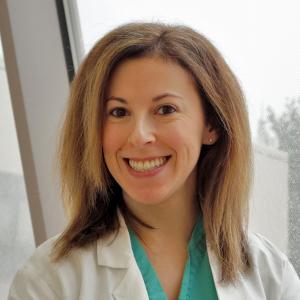 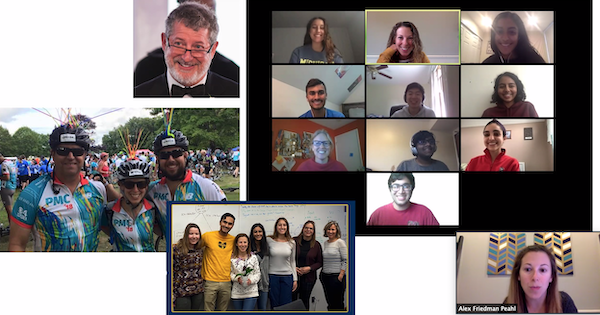 |
November 2, 2020
On November 2, Dr. Alex Peahl presented her research on “Rightsizing Prenatal Care: Tailoring Prenatal Services to Match Patients’ Needs” for our Seminar Series. Dr. Peahl works at the Department of Obstetrics and Gynecology at the University of Michigan as an Obstetrician Gynecologist and a physician-investigator. She is nationally recognized for her work on prenatal care redesign and is the research lead for the prenatal care redesign team at the University of Michigan. The new guidelines she and her team proposed were recognized for use for nationwide practice during the COVID-19 pandemic by the American College of Obstetricians and Gynecologists. Her research idea stems from the antiquated recommended prenatal care visit schedule. 12-14 visits are recommended and this number has remained unchanged since 1930, failing to address massive inequities in prenatal care including low-income and black women, as well as failing to adapt to the needs of modern patients. Dr. Peahl decided to research how they could redesign this system of prenatal care to fit the needs of the patients, not the health system. They took prenatal patients both at the U-M hospital system and an outpatient clinic in Detroit for their research and divided them into four different phenotypes based on medical care need and social need. The research found that the optimal visit number was 9, with only 4 of those being in-person visits and the rest through remote visits and home health monitoring. In the next step, Dr. Peahl’s research partnered with CHEPS to assess different care paths and incorporate support services to redesign clinic structures. This work has resulted in MiPATH, the Michigan Plan for Appropriate, Tailored, Healthcare in Pregnancy where patients can work with providers to tailor their specific health care needs. More recently their work has focused on recalculating staffing needs for COVID to reduce system capacity and compose new guidelines that have been extremely successful and recognized by many health organizations. We thank Dr. Peahl for coming to speak for us and for all her work with our CHEPS prenatal team! A video of Dr. Peahl’s seminar is available here. All of our seminars this fall will be virtual. If you’d like to attend, RSVP here. We’ll have no seminar on Monday, 11/9. Please join us again on Monday, 11/16 when Shakiba Enayati, Ph.D. of University of Missouri – St. Louis will discuss “Optimal Influenza Vaccine Distribution Considering Equity.” |
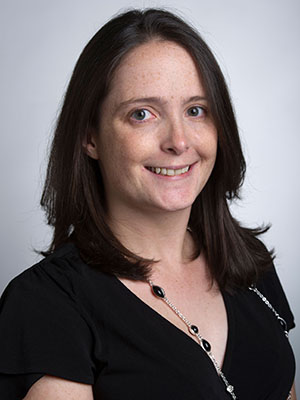 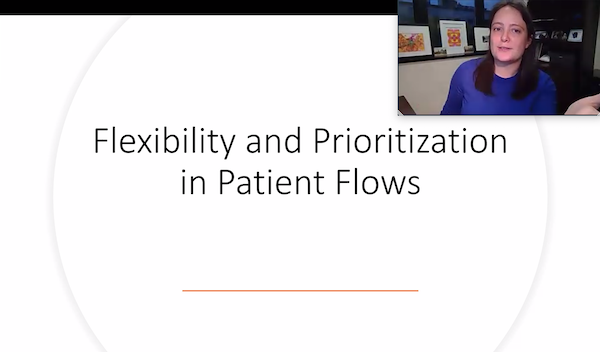 |
October 26, 2020 Professor Griffin’s research focuses on tackling the best way to create efficient health care delivery. Besides the obvious struggles that the pandemic has put on the system and especially inpatient, she revealed that there are continuous struggles before and despite the pandemic, involving inpatient, outpatient, and emergency department services. She discussed three projects that each dealt with different issues. The first was on flexibility in resource allocation. In this model, she went beyond the common simulation model of room allocation and focused on room allocation of both the MA-patient visit and the MD-patient visit phase. She also revealed the importance of increasing both space and physician flexibility when analyzing room assignment in outpatient clinics. The second is flexibility in the design of analysis methods. With this, Professor Griffin told us how recommendations for multiple clinics can be with the same simulation model if that model has the ability to change any model parameter. The last was on flexibility and prioritization in patient flows. This research found that in order to achieve best results hybrid prioritization should be used, as it is not always necessary to prioritize only higher priority patients. All findings are very useful as we try to optimize our health system, especially during times of high patient flow like in COVID-19. A video of Professor Griffin’s seminar is available here. All of our seminars this fall will be virtual. If you’d like to attend, RSVP here. |
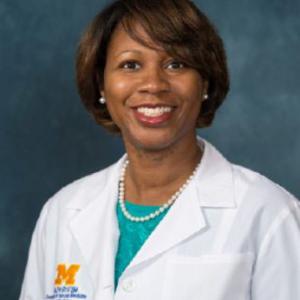 |
October 20, 2020 Dr. Kimbrough Marshall started by addressing structural racism. She explained that we more or less take for granted a context of white leadership, dominance, and privilege. This dominant consensus on race is the frame that shapes our attitude and judgments about social issues. Structural racism has perpetuated the accumulation of white privilege, national values, and contemporary culture. Dr. Kimbrough Marshall then shared the definition of Institutional Racism: ways in which institutional policies and practices create different outcomes for different racial groups. This creates advantages for whites and oppresses/disadvantages those of color. Dr. Kimbrough Marshall next presented a graph detailing the US State and Federal prison population from 1925-2014 where there was a clear exponential increase in the number of incarcerated in the mid ’90s. This spike can be explained by the 1994 Crime Bill leading to mass incarceration which disproportionately affects Black Americans. Furthermore, she shared drug sentencing data; crack cocaine, a drug primarily inflicting urban/black population, has a minimum mandatory sentence of 5 years for possession of 28 grams while powder cocaine has an equivalent sentence for possession of 500 grams. Dr. Kimbrough Marshall then went on to explain that a disproportionate rate of poverty yields a different pandemic experience. Those living in poverty have a larger reliance on public transport, more frequent shopping for basic necessities, lack of health insurance or access to regular medical care, residence in small, multi-family apartments or homes, essential jobs in transportation, government, health care, and food supply services, low wage or temporary jobs that may not allow telework or provide paid sick leave, distrust in institutions, and lack of access to high-speed internet/telephone services. Dr. Kimbrough Marshall finished by sharing that if we expect responsible personal choices from patients, then we have to have responsible societal options for them to engage in. She lastly provided the following tips to be a champion to help promote targeted interventions and advocate for the communities that you serve: 1. Change the narrative — Written by Harini Pennathur, Industrial and Operations Engineering Undergraduate Student |
 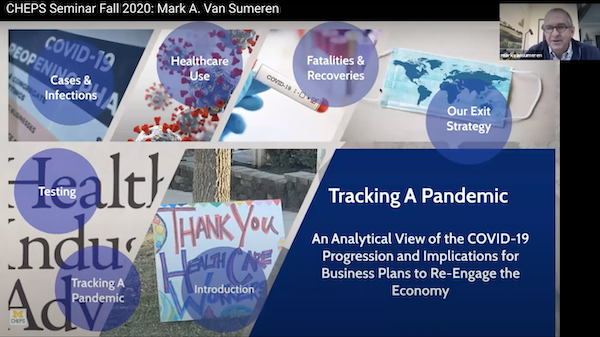 |
October 19, 2020 Mark went through the various data sources that he has utilized to put together the report, as well as the components of his reports. The components include a variety of visualizations for many different analyses, using different scales and color schemes to provide the information in the most clear and comprehensive way possible. Mark also reported on the challenges of testing, including availability and accuracy of tests, the difference between infection vs infectiousness, and barriers and issues with reporting, all of which can make a lot of data reports inaccurate. He stressed that the number of cases is the least accurate measure of exposure, as his analysis revealed they are often off by over a factor of 4. In addition, he warned against the idea that the United States is on its third wave, as this could be a misconception since the cases we detected in the past are not comparable to the cases we are detecting now. We are very grateful that Mark has shared this reliable and objective analysis of the virus progression with us. To subscribe to the report please use this link. A video of Mark’s talk is available here. All of our seminars this fall will be virtual. If you’d like to attend, RSVP here. Join us on Monday, October 26th for a talk on “Analyzing the Value of Flexibility and Adaptability in Outpatient Health Center Operations” with Jackie Griffin, Ph.D. of Northeastern University. |
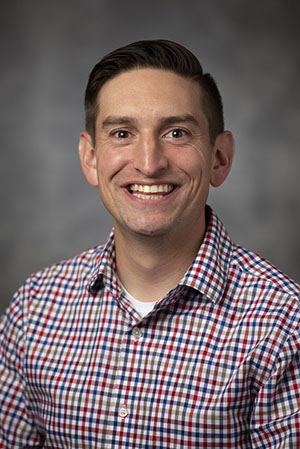 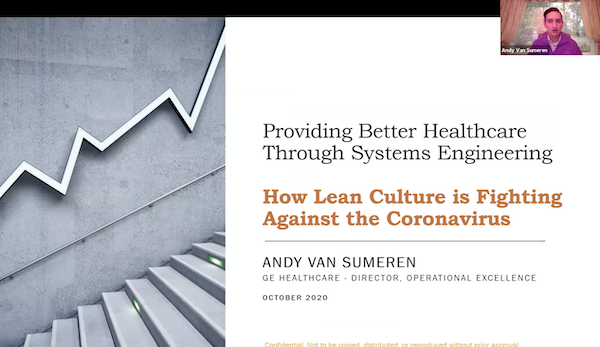 |
October 12, 2020 Andy Van Sumeren presented his research on Lean Culture and its role in fighting COVID-19 for the October 12th Providing Better Healthcare Through Systems Engineering Seminar. Andy has an Industrial Operations Engineering Degree from U-M and took many courses in Medical Sciences. He also graduated from the GE Healthcare Operations Management Leadership Program, which is where he currently works. Besides working at GE, he started ripple Solutions LLC, an educational and consulting group that focuses on Lean techniques. Andy has been working in GE Healthcare for the past 15 years, performing in many different roles, and was now requested by GE to implement his Lean methodology knowledge to help GE’s ventilator manufacturing business.
In this session, Andy explained how utilizing Lean techniques is and was essential in the production of ventilators for the pandemic. Some of the largest issues that GE was facing, and why they needed Andy’s expertise, was needing an immensely larger ventilator output in such a short time frame, the constant volatility of the workplace (with constantly changing staff), and the new safety measures being implemented in manufacturing floors. In order to implement these Lean tools, they followed a “Plan, Do, Check, Act” process. For the “Plan” aspect, they created a process map to lay out exactly what pieces were needed to build and how to build the ventilators, and the process map became the basis for their plan. In the “Do” aspect, they had to implement a culture change, as many more employees were hired to meet the higher demands and they were running 24/7 on these new Lean methodologies. Then, they implemented “Check” by having a daily management system and worked to understand the linearity of their production – to see how much they could produce and how to smooth out the process. Lastly, they used “Act” to take in everything they learned in previous steps to make their system as efficient as possible and maintain consistency throughout the process. Andy showed us that Lean can be used for everything, but was especially useful in this case as it allowed GE to have a reliable daily output and continue to take on manufacturing challenges during these unprecedented times. A video of Andy’s talk is available here. All of our seminars this fall will be virtual. If you’d like to attend, RSVP here. Join us on Monday, October 19th for a talk on “Tracking A Pandemic: An Analytical View of the COVID-19 Progression and Implications For Business Plans to Re-Engage in the Economy” with Mark A. Van Sumeren. |
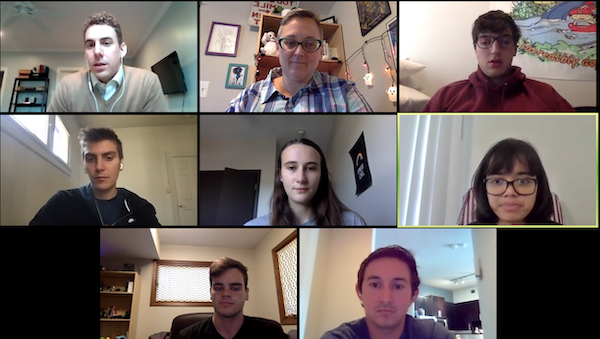 |
October 9, 2020 On Friday, October 9th, Nicolas Tempels, an IOE Master’s alum who is now a Manager at ECG Management Consultants, had a Lunch & Learn discussion with several CHEPS students. Nicolas discussed the current state of healthcare and additional topics of interest to CHEPS students.
Nicolas discussed his career path, including his time at UCHealth where he worked on a project to decrease the percentage of patients who left the Emergency Department without being seen by a provider. His team developed an intake process with a physician that was basically an accelerated triage based on the patient’s ESI score. After UCHealth, Nicolas moved on to a position at ECG Management Consultants. He discussed several of the projects he’s tackled at ECG including working with a regional hospital in Indiana to standardize operations across a new physician group as well as work with a national women’s health organization to redefine strategy and governance at the organization. Nicolas wrapped up his talk by going into some of the changes he’s been seeing in healthcare due to COVID-19. He then took questions from the CHEPS students which included everything from advice on pursuing consulting as a career to how hospitals use predictive analytics. He shared that throughout his career he’s been most passionate about data and analytics in healthcare. “I’m still an industrial and operations guy at heart,” he said. Thank you to Nicolas for taking the time to share his experience and expertise with all of us at CHEPS! |
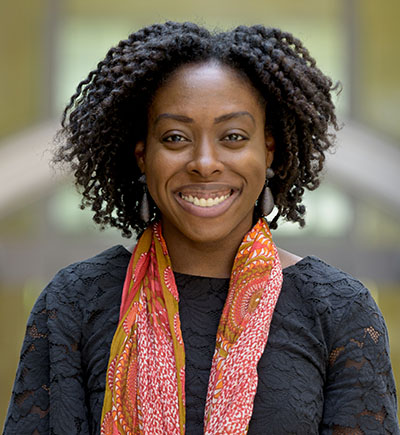 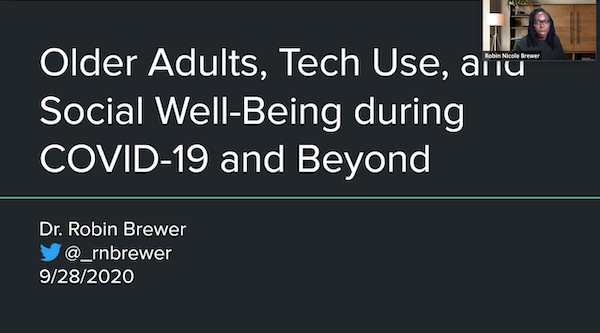 |
September 28, 2020 Professor Robin Brewer presented her research on “Older Adults, Tech Use, and Social Well-Being During COVID-19 and Beyond” on September 28 for our CHEPS Seminar Series. Dr. Brewer is an Assistant Professor in U-M’s School of Information and holds a courtesy appointment in Computer Science and Engineering. Dr. Brewer got her Ph.D. in Technology and Social Behavior at Northwestern University, A M.S. in Human-Centered Computing from the University of Maryland – Baltimore County, as well as a B.S. in Computer Science from the University of Maryland – College Park. Her research focuses on Human-Computer Interaction (HCI) and expanding that access to communities that are digitally constrained and using technology for social well-being.
In this seminar, she presented her research on tech-use for older adults for social well-being before, during, and after COVID-19. Dr. Brewer explained how social isolation and loneliness are both risk factors for poor health and aging outcomes, and that both of these have been increasing among older adults, especially during the pandemic. In her first study, the focus was on how older adults use voice assistants for social and emotional well-being. The data showed that the adults frequently used more subjective rather than objective requests, would seek advice, and would want to get to know their voice assistant (i.e. asking “How was your day, Alexa?). Dr. Brewer found that the pandemic allowed these adults to learn new technology skills. While the study showed that tech-use met older adult’s needs for small group interactions, technology did not substitute their need for large group interactions, intimacy, or authenticities like hugs and face-to-face interactions. This research is very useful as the world becomes increasingly more reliant on technology use for social interactions and the data can help reveal how technology use could aid in managing loneliness for older adults. All of our seminars this fall will be virtual. If you’d like to attend, RSVP here. Join us on Monday, October 12 for a talk on “How Lean Culture is Fighting Against the Coronavirus” with Andy Van Sumeren, Director of Operational Excellence at GE Healthcare. |
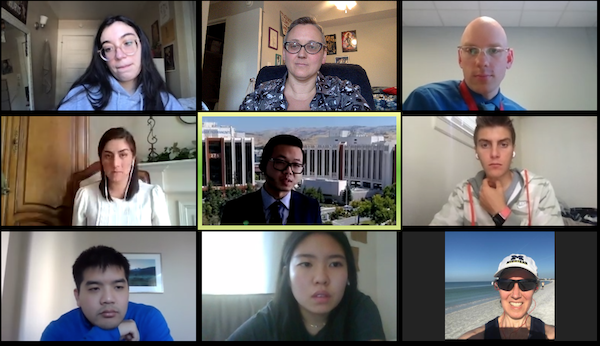 |
September 21, 2020 On Monday, September 21st, we invited three CHEPS alumni back to present at the Providing Healthcare Through Systems Engineering Seminar. The three alumni were Pamela Martinez, who is currently a Process Engineer and Project Manager at the UCHealth system in Colorado, Bill Zhang a Director of Hospital and Procedural Services at Kaiser Permanente, and Joe East a Director of Patient Flow at Maine Medical Center.
We began by discussing why they chose the HEPS IOE concentration for their master’s degree. A reason why they chose healthcare engineering is because it is a high impact field where you can see the direct results of helping people. IOE is still relatively new to healthcare, although it’s been applied to aviation and manufacturing for years. We’re also at a financial impasse where 18% of our GDP is spent on healthcare. We need analytic mindsets to optimize this system, healthcare engineering can have a huge financial impact. The experience at CHEPS of working with different stakeholders was incredibly valuable as doctors, nurses, and administrators may all see the same problem differently. Clinical professionals often come with a vague problem that engineers must turn into a specific solution – a skill that the alumni were able to develop at CHEPS. Additionally, CHEPS gave them a wide network of both professional colleagues and also friends that they stay in contact with to this day. Joe is currently working in the Maine Medical Center system which is a 640-bed, 11 hospital system in Maine. On a day to day basis, he works to coordinate transfers into the hospital and bed placements in hospitals, calculates the admissions vs discharge rate, and tracks daily patient flow challenges. In terms of long-term improvement, Joe works on identify parts of the process that increase patient wait times since longer wait times are proven to lead to worse clinical outcomes. Throughout the pandemic, Joe has been working on converting parts of the hospital to dedicated COVID ICU units, training elective surgery surgeons for the ICU, slowly increasing the elective surgery schedule, dealing with financial loss, and accelerating efforts for telehealth. The hospital has gone from 400 monthly video visits to 200 daily video visits. Pamela joined UCHealth in 2016 and connected with a recruiter at the INFORMS conference. She started on a data analyst role and transitioned into an innovation project manager at the CARE innovation center. She works with digital health companies to co-develop products, test, produce products, and optimize for hospital systems. During the pandemic, other projects were put on hold and they became the command center for COVID logistics. They supported the integration of organizational charts, tracked schedules for clinicians, creating a tracking mechanism for all ventilators in the system, and designed a new process for rapid home oxygen delivery. Bill currently manages 10-12 outpatient specialties and works on strategic development, financial model, facilitating equipment purchasing, and staffing. On a day to day basis, he may be developing a staffing model, doing a deep dive into financial analysis, or evaluating surveys from dissatisfied patients to improve hospital processes. As San Jose was one of the earliest areas hit, Bill’s hospital system was one of the first to implement COVID-19 drive through testing. He really enjoyed designing the queue process and traffic flow for testing. Doctors and nurses also began using virtual visits for patients’ families, holding three-way conversations with the family, doctor, and patient. Beyond the necessity to transition to telehealth in the last months, the payment changed to pay the same rate for telehealth as in-person visits making it much easier to pay for telehealth visits. Video visits can also save money for the patient and insurance company, but telephone visits usually result in another in-person visit which doesn’t save money and insurance companies are less willing to cover. Thank you so much to Joe, Bill, and Pamela for coming to speak with us! We wish you all the best in the future. A video of the alumni panel is available here. All of our seminars this fall will be virtual. If you’d like to attend, please RSVP here. |
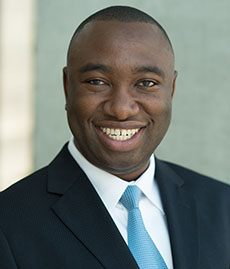 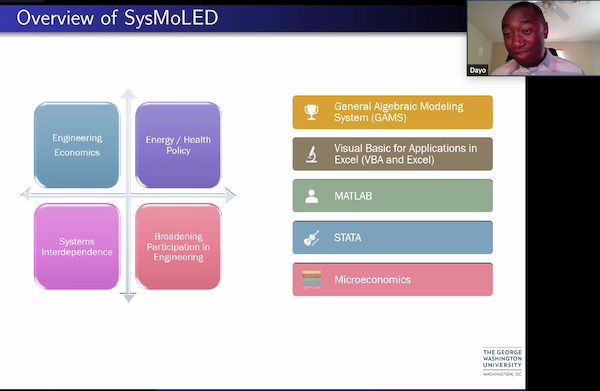 |
September 14, 2020 On September 14, Professor Ekundayo Shittu presented his research on Improving Vaccine Access: Optimizing Storage and Hub Location in a Developing Country for our Providing Better Healthcare Through Systems Engineering Seminar Series. Professor Shittu did his undergraduate studies in Nigeria and his Ph.D. at the University of Massachusetts before becoming an Associate Professor at George Washington University in the Engineering Management and Systems Engineering department. His research is published in major health journals and he conducts research on a wide range of topics. These topics include researching stakeholders dealing with climate change risk and uncertainty, improving supply chain issues in healthcare logistics, and studying how to value renewable energy in the evolution of storage technologies, among others.
In this seminar, Professor Shittu explained how issues in a country’s vaccine supply chain can have a huge impact on the high prevalence of preventable childhood diseases, especially in Least Developed Countries (LDCs). In his lecture, he specifically focused on Nigeria and its specific issues with vaccine distribution. His goal was to create models to evaluate different supply chain scenarios to identify what changes could be implemented to achieve a 100% fill rate. His research team determined the supply hub locations and developed a total cost-minimizing routine to determine the optimal capacities at the hub. They discovered that by moving from a six-hub system to a three-hub system, the capacity needed to reach a 100% fill rate was not as high as they previously thought. The research findings were very useful and were shown to significantly decrease the number of preventable polio cases in Nigeria. In addition, he and his team hope that many health policy changes come from their discoveries. Mainly health policies that improve vaccine system performance by having the right quantities available to vaccinate the population, reducing the hierarchical complexities of the supply chain, and enabling continuous improvement of the supply chain be implemented. This research is not only relevant to preventable diseases in Nigeria but will now be extremely useful as we expect to see issues in the supply chain and distribution of the novel coronavirus vaccine. A video of Professor Shittu’s talk is available here. Please join us on Monday, 9/21 for the next seminar in our series, “CHEPS Alums and their Experience Fighting COVID-19” with speakers Joe East, Pamela Martinez, and Bill Zhang. All of our seminars this fall will be virtual. If you’d like to attend, please RSVP here. |
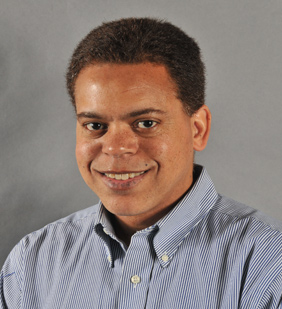 |
September 10, 2020 CHEPS students Allison Vanderstoep and Emily Lindblad attended the seminar “Diversity, Equity and Inclusion in Operations Research and Analytics: A Research Agenda for Scholarship, Practice, and Service” presented by Prof. Michael Johnson on September 10th and hosted by the Department of Industrial & Operations Engineering. Professor Johnson is a faculty member in the Department of Public Policy and Public Affairs at the University of Massachusetts Boston.
Or/analytics has the power to make existing inequalities worse by benefitting the higher-ups of companies and making conditions worse for the low-wage employees. However, Professor Johnson spoke about how operations research (OR) and analytics can also be used to promote diversity, equity, and inclusion in the workplace, higher education, and other environments. The tools within OR/analytics can create a more equitable society. Professor Johnson cited a quantitative and qualitative study conducted about the members of INFORMS (Institute for Operations Research and the Management Sciences). Currently, INFORMS is dominated by white males. The breakdown of race and gender of INFORMS is similar to the breakdown of race and gender for all STEM professions. Survey questions revealed that many members do not feel that INFORMS treats its members fairly regardless of race, gender, sexual orientation, and other identities. Professor Johnson stressed how it is important to recognize oppression, call out privilege, and foster allies in order to begin the work of OR in increasing equity. “It is important for me to think about the lack of diversity in my chosen area of study and how I can have an impact. OR methods can be applied to the workplace as well as higher education in many different ways. We can use OR/analytics to design affirmative action programs and implement methods to increase the pay of employees in the hopes of decreasing the pay gap,” said Emily. Two applications of Professor Johnson’s work are: One, routing mobile dental services to serve low-income and uninsured residents of rural areas. And two, creating a new market design for marijuana legalization in order to end criminalization. Both of these projects strive to help the underserved and support racial and social justice. Other applications noted of OR in DEI were disaster response, staff scheduling, and homelessness services. At the end of the seminar, Professor Johnson challenged listeners with a thought experiment: “how can the tools I have in my OR/analytics toolbox help DEI now?” He gave the example of protests against police brutality and systemic racism and a decision variable problem that solves how to reallocate police funding to other programs like education and mental health services. |
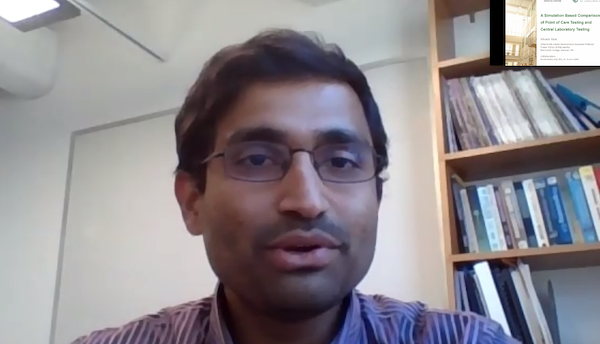 |
August 31, 2020 On August 31, to kick off our Fall 2020 Providing Better Healthcare Through Systems Engineering Seminar Series, Professor Vikrant Vaze presented his work on comparing Point-of-Care testing (POCT) and Central Laboratory Testing. Professor Vaze has two master’s degrees and a Ph.D. from Massachusetts Institute of Technology in transportation and operations research, as well as a bachelor’s degree from the Indian Institute of Technology in Mumbai in civil engineering. He is now an Associate Professor at the Thayer School of Engineering in Dartmouth College. His interests include developing optimization, game theory and analytics to improve large-scale systems, like transportation and healthcare. He is also the recipient of various academic and research honors, including the Faculty Early Career Development Program (CAREER) Award from the US National Science Foundation, among many others.
During his lecture, Professor Vaze explained the prevalence of POCT in the US healthcare system and the system’s emphasis on speed, cost, convenience, specificity, and sensitivity in terms of testing. However, while POCT seems to be increasing across the US, there is a lack of comprehensive and holistic research on the tradeoffs in cost and quality of POCT. His research was novel in that it was the first to actually evaluate these tradeoffs in a holistic manner. Professor Vaze constructed a simulation model of patient flow in an outpatient care setting to compare measures of patient outcomes in different clinical settings, testing regimes, and patient conditions. These measures allowed for his research to compare POCT with centralized lab testing to evaluate which type was more beneficial in its entirety for different healthcare settings. It was found that POCT, although reducing average patient time spent in the system, is at a disadvantage when it comes to total productive hours lost and testing quality. These findings are especially relevant now due to the COVID-19 pandemic and the current testing methods in the US. Vidoe of Professor Vaze’s talk is available on our YouTube chanel. We thank Professor Vaze for talking to us about his innovative work in healthcare and wish him the best of luck as he starts teaching next week at Dartmouth. There will be no seminar on September 7th due to the holiday but please join us on Monday September 14th when Ekundayo Shittu, Ph.D. of George Washington University discusses “Improving Vaccine Access: Optimizing Storage and Hub Location in a Developing Country.” All of our seminars this fall will be virtual. If you’d like to attend, please RSVP here. |
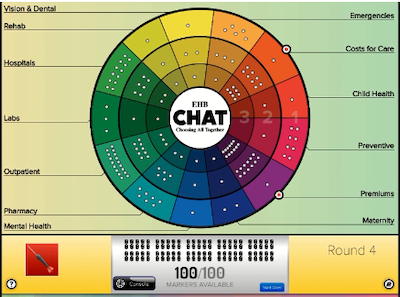 |
August 18, 2020 This summer, CHEPS was able to participate in an online course through the University of Michigan Institute for Healthcare Policy and Innovation (IHPI). The course is called MOOC: Understanding and Improving the U.S. Healthcare System. MOOC stands for Massive Open Online Courses. Students spent nine weeks watching videos, participating in discussions, and completing interactive activities over zoom. Some topics included the four main players in the healthcare system – patients, providers, payers, and public health, the history of U.S. Healthcare reform dating back to the 1950s, the disparities in health coverage, and Michigan’s Medicaid expansion.
Students had conversations about the evolution of healthcare reform throughout the years, which gave great insights into the similarities in conversations about healthcare through the years. For example, many students, including us facilitators, didn’t realize that there were Senators, such as Senator Kennedy, who were advocating for “healthcare is a human right” in the 1960s. We also discussed the social determinants of health that determine outcomes for individuals in different neighborhoods, including factors such as economic stress, access to fresh foods, a walkable neighborhood with parks, older housing units, crime rates, and discrimination. The course also included an activity called the CHAT (Choosing Health plans All Together) exercise where students first picked an ideal health insurance plan for themselves, then created one from the perspective of a different stakeholder group and combined with others to compromise and make one healthcare plan for everyone. Some stakeholder groups included members above 65 with a chronic condition, couples with children, and single healthy young adults. Since there are a limited amount of benefits that you can choose from the healthcare plan everyone must sacrifice certain benefits for others. Students also discussed the impact of previous experiences and pre-existing conditions on the types of benefits that were chosen. If you have been in a car accident or have a certain chronic condition, you may want to buy more benefits in the areas of emergency care and hospital stays. Another aspect we noticed was that those of higher-income could afford higher premiums (upfront cost) could receive more benefits that lowered the cost of emergency events such as ambulance rides. Someone who could not afford these benefits would end up paying more in the long run, increasing disparities. Here’s what a few of the CHEPS students who participated had to say about the course: “I loved being able to get a more full picture of the healthcare system through the MOOC. As healthcare engineers, we are always trying to understand the bigger system and individual’s perspectives. MOOC gave me good information on the United States history of healthcare through presidents, the role that insurance plays, and a better understanding of public health.” “It was really interesting to learn about the U.S. healthcare system through MOOC! We covered important topics like public health and reforms implemented by past presidents. My favorite part of the course was creating my own personalized health care plan in the CHAT activity.” “The MOOC gave me valuable insight about the development of health policy over the years. I learned about the issues that people have with accessing care and preventative measures that could help reduce stress on the healthcare system.” |
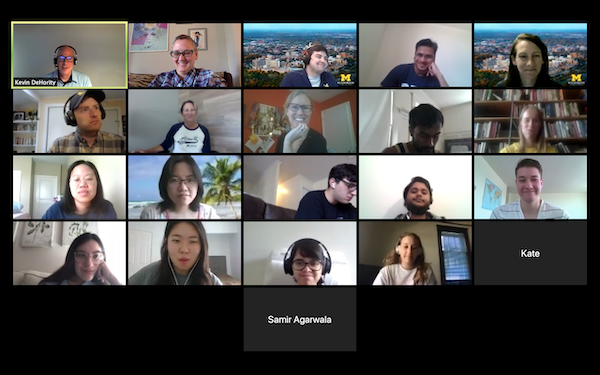 |
August 7, 2020 On August 7th, 2020 Friday we had our virtual lunch & learn with guest speakers from the Quality Department of Michigan Medicine. Kevin DeHority is a Coach and Manager in the Performance Improvement Division. Jakob Kiel-Locey, a CHEPS alum, is an Administrative Fellow in Continuous Improvement. Tara Moler is a Senior Continuous Improvement Specialist Lead. And Patti Craig is a Continuous Improvement Specialist Lead. All four of our guests shared with us their experiences in this domain of quality in healthcare.
The discussion kicked off with the speakers talking about the career paths in healthcare quality. They introduced us all with the concept of “Continuous Improvement” in their discussion. Basing the discussion on the fact that their team utilizes the skills and strengths of both continuous improvement practitioners and industrial engineers to enable extraordinary care for patients by developing problem-solving skills among people working in healthcare. They train individuals with diverse backgrounds such as business, teaching, public health experts, coaches, engineers, etc. The training includes six sigma, lean, simulation, modeling, and data analysis. Patricia and Tara shared their experiences along their journey through their career paths. Patricia had a background in nursing which helped her understanding the challenges in the sector and find solutions along with teaching them to the new aspirants. Tara discussed the continuous improvement coaching classes, its curriculum, and class format. Jakob shared his experiences as a recent graduate of both CHEPS and Industrial and Operations Engineering at the University of Michigan. Jakob also discussed one of his projects in Michigan Pharmacy where he worked on reducing the operating cost. Kevin talked about starting his career in Lean Manufacturing Engineer at Ford Motor Company after he graduated from Western Michigan University. He got his Master’s in Business Administration from Wayne State and moved on to Grant Thornton, LLC as a Senior Consultant. Kevin provided us good insight on selecting mentors in specific career paths and how to learn from them. He also answered questions about whether continuous improvement work is specific to certain domains and specializations. Overall, the session was very informative and insightful acquainting us with the dynamics of quality in healthcare. We wish our speakers good health and luck for their future and hope to see them again at CHEPS. |
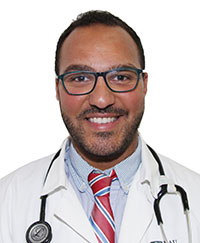 |
August 7, 2020 We all mourn for the lives lost and countless injuries in Beirut after Tuesday’s devastating explosion. We are, however, relieved to report that MohammadAli H. Jardaly, a CHEPS alum and now Family Medicine Resident at the American University of Beirut Medical Center, and his family are safe and stepping up to support their community. If you would like to assist the people of Beirut, you can donate to the Lebanese Red Cross or another organization of your choosing. — Written by Liz Fisher, CHEPS Staff
|
 |
July 24, 2020 CHEPS hosted its 9th virtual Lunch and Learn of Summer 2020 on July 24. Our guest speaker was Pamela Martinez Villareal, an alum who is now working at the UCHealth CARE Innovation Center in Colorado. Pamela spoke about her experience working as an Operations Analyst and the work the UCHealth system has been doing in response to COVID-19.
Pamela graduated from the University of Texas at El Paso with an undergraduate degree in Industrial Engineering and first came to the University of Michigan through the Summer Research Opportunity Program (SROP) which brings students from other universities to Michigan. She completed a master’s in Industrial & Operations Engineering (IOE) with a concentration in Healthcare Engineering & Patient Safety (HEPS) in 2015. She moved to Denver in 2016 to work for UCHealth as a Process Improvement Consultant and Data Analyst before joining the CARE Innovation Team in 2018. The goal of the CARE Innovation Center is to partner with industry disruptors to fundamentally transform the way we deliver care. This is divided into five categories. They work with the digital patient experience to improve the usability of the hospital site and mobile applications, personalized medicine to use genetic information for a more individualized treatment plan, data science and AI to create predictive models for clinical decision making, wearable and virtual health such as devices to remotely monitor heart rate, and virtual reality to help with clinical training. Beginning in March, the Innovation Center mainly focused on 38 different COVID-19 projects. These projects included monitoring staff and critical equipment. For example, the Ventilator Data Integrity project tracked UCHealth’s 700 ventilators to ensure optimal usage and allocation while the Employee Wellness ensured that employees were placed effectively and not overworked. COVID-19 testing was also increased by bringing in in-house PCR testing and also providing testing for other external organizations. A really exciting aspect of the Innovation Center is the possibility of remote patient monitoring which is being tested during COVID-19. Around Easter, a pregnant woman contracted COVID-19 and spent two days in the ICU. She was selected to test an FDA approved remote monitoring device which transmitted oxygen levels, respiratory rates, and heart rates to a cloud server. She reported feeling safer and more supported after leaving the hospital system with the remote monitoring device in place. During the Q&A portion, students asked about any areas of virtual health that aren’t being addressed right now and how that will be incorporated in the future. Pamela spoke about the main problem being the implementation of this technology. However, COVID-19 has increased demand for telehealth with UCHealth performing 400 virtual visits a month and Pamela spoke about how exciting it is to see these advances. Students also asked about the remote monitoring device and how it worked. Pamela described it as a biosticker that attaches to a patient’s finger and can monitor certain vital signs. This data is then uploaded to a cloud server. As there are patient privacy concerns, they work closely with the IT and legal teams to ensure a safe transfer and storage of patient data. Lastly, students asked about supply chains and whether hospitals were still in need of personal protective equipment. Pamela said that supplies have increased at UCHealth since the beginning of the pandemic and guidelines are in place to optimize usage and reuse. This presentation was insightful and helped us learn more about healthcare innovation in the real world and how hospital systems such as UCHealth are at the forefront of implementing new technology. Thank you so much to Pamela for coming in and answering our questions! |
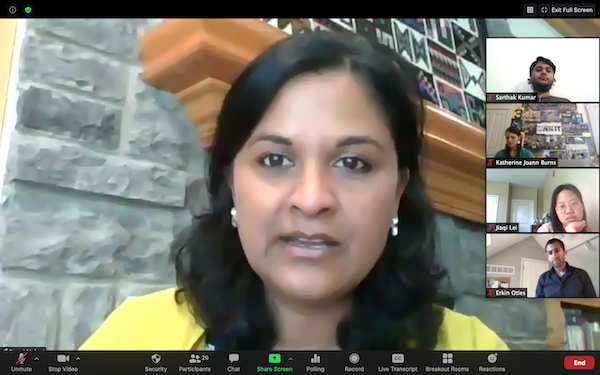 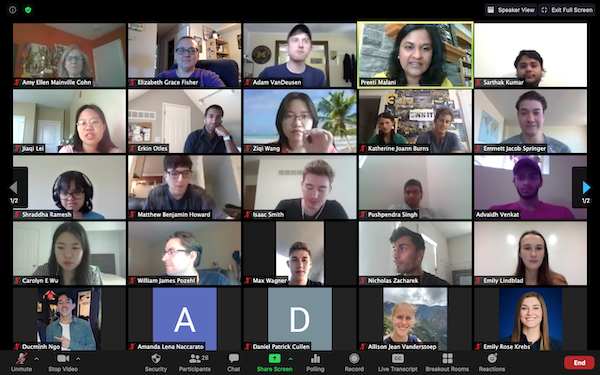 |
July 17, 2020 CHEPS hosted its 8th virtual Lunch and Learn of summer 2020 on July 17th. Our invited speaker was Dr. Preeti Malani, the Chief Health Officer and a Professor of Medicine in the Division of Infectious Diseases at the University of Michgan. She serves as the advisor to the President on matters of the health and wellbeing of the community, especially focused on disease prevention and control, an ever-important role in the coming school year. Dr. Malani hosted a Q&A session with the students, allowing them to ask questions facing the University about the upcoming semester.
Dr. Malani opened her talk by explaining her involvement with the University’s handling of COVID-19. She also discussed the trajectory of the virus in the United States and Michigan. The first few questions asked pertained to COVID procedures at Michigan, as well as “what-if scenarios” with potential outbreaks. Dr. Malani emphasized plans will be flexible because the virus is an ever-changing issue. She acknowledged that there would be cases on campus and that the University has made plans for monitoring likely outbreak locations, quarantine housing, and more. The conversation then shifted to the discussion of some important campus programs, particularly Maize and Blue Cupboard. If you don’t know, Maize and Blue Cupboard, located in the old Betsy Barbour kitchen, is the one-stop-shop for free groceries, SNAP benefits sign-ups, Medicaid sign-ups, and much more for all students. With increased financial strain as well as difficult logistics many face as far as getting necessities due to COVID, more and more students may need to access this amazing space. As of now, the Maize and Blue Cupboard is still operational, albeit in a socially distant way. Students were very curious as to the impacts on their daily lives with the new COVID procedures when returning to campus in the fall, including the bus system. Dr. Malani noted that Alec Gallimore, the Dean of Engineering, has spent a lot of time on the issue of handling busses safely. She relayed that, in addition to the short length of most trips, precautions like required masks, open windows, and plexiglass between the driver and passengers will keep the risk of COVID spread in U of M buses low. Students also asked about mental health with increased isolation and social distancing in the upcoming semester, which Dr. Malani noted was a potential issue. She replied by suggesting that we focus more on what we can do rather than what we can’t and to always wear masks. She also recommended trying to establish a “social pod,” a small group of friends that you hang out with a lot so that you limit the number of people you are exposed to but still get to socialize. The last questions of our Q and A dealt with the prospects of a vaccine and the future of our social world adapting to the “new normal.” Dr. Malani said that the vaccine production has been incredible to watch, as there were only 60 days between the first identified case and the first test vaccine created, which is amazing and the byproduct of a massive collaborative effort between scientists and government. She did mention, however, that barriers to nationwide and worldwide immunity exist, including that the vaccines may not work, ethical issues of human testing, and the anti-vax movement. The hope is that a working vaccine is available by early 2021, but we need to understand if it takes longer. The last question students asked was if she foresees any COVID protocols lasting beyond the pandemic. Dr. Malani thinks that virtual healthcare will continue because it has been great in increasing access to care, as well as some virtual university classes, which also increases access. Lastly, she thinks that remote research, when possible, could also stick around and again allow more access, but also more collaboration across the country – or even across the world, which could lead to great innovation. |
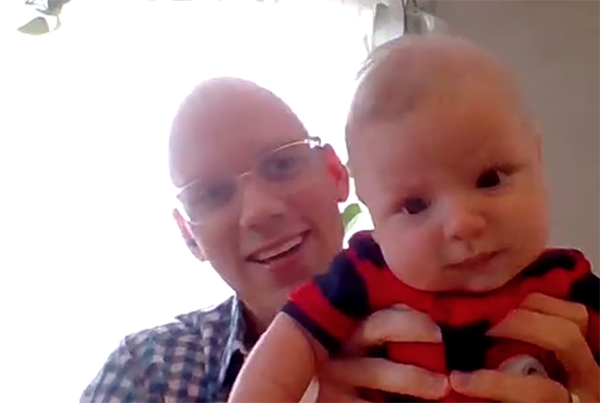 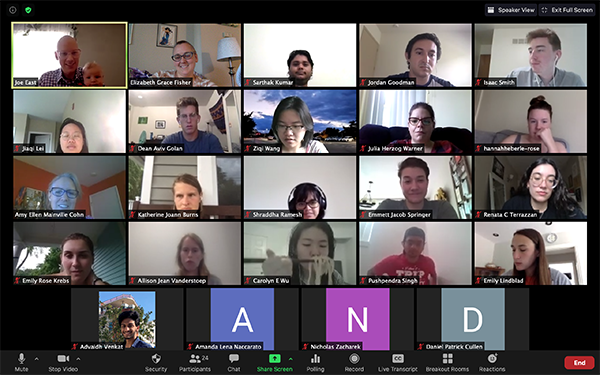 |
July 10, 2020 CHEPS hosted its 7th virtual Lunch and Learn of summer 2020 on July 10th. The speaker for this seminar was CHEPS and U-M alumni Joe East with a guest speaker – his adorable baby – who would pop in occasionally for a fun surprise. Joe spoke about his current role in the Maine Medical Center, the new challenges brought on by COVID, his graduate studies, and his time at CHEPS. Throughout the talk, students were able to ask questions about his time at Michigan and his career path.
Joe graduated with two master’s degrees in 2014, one in the School of Public Health for Health Management and Policy and another in the College of Engineering in Industrial and Operations Engineering (IOE) in. He joined CHEPS in 2012 and continued until he graduated from U-M in 2014. During his time at CHEPS, he worked in the ADMIN project, which is no longer a current project but has many similarities to the current AD ICU project. Now, Joe works at Maine Medical Center, an 11-hospital system and the only academic hospital in Maine. Joe started there as an administrative manager and is currently working on patient flow and patient coordination throughout the state. He is responsible for running the patient transfer center, which gets around 120-150 admissions per day, where he has to maneuver how to get patients in the best bed location in the fastest way possible so they can be treated quickly. He also coordinates transfers coming in and around regions. Lastly, he optimizes capacity in the hospital. During COVID, this has become a very important task, since this means deciding on bed allocations and how to best utilize capacity at the hospitals. Joe also elaborated on how his roles have shifted with the pandemic. He reported that his hospital in Maine was thankfully not hit with super high volumes of patients, but still required a lot of changes. They began with converting units into extra ICUs and with canceling elective procedures, they were able to have more beds and monitoring equipment available for ICU use. Another main concern was with PPE and how best to protect his staff when so much is still left unknown about the virus. In addition, they developed a tracking system for COVID volumes and tracking to see where patients were coming from in order to see trends to be prepared for another potential spike. Towards the end of the presentation, students were able to ask more specific questions about Joe’s work experience and the particularities of his job. Students were very interested in the use of engineering procedures and how useful they are in informing his hospital decisions, as well as what kind of diagnostic tools he uses in order to track the patient transfers. Joe said that they mainly use historical data to back up his decisions and that his engineering skills are very valuable in order to accurately analyze and take the right decision. We are very grateful to Joe for taking the time to talk to us about his work and being very engaging throughout the lunch and learn by letting us have insight into his experiences as a Michigan alumnus. |
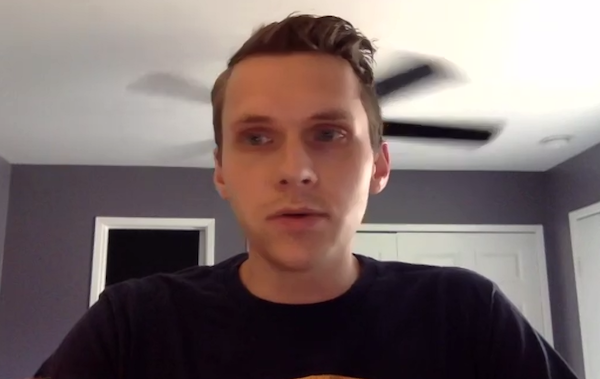 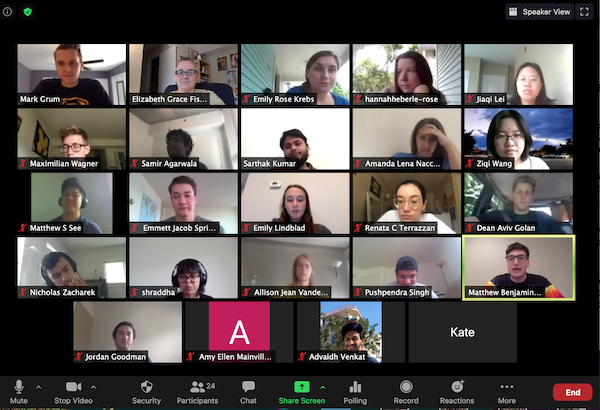 |
June 26, 2020 CHEPS hosted its 6th virtual Lunch and Learn of summer 2020 on June 26th. The speaker was Mark Grum, a University of Michigan and CHEPS alum. Mark spoke on his experience as an analyst with General Electric (GE) Healthcare and discussed technological methods such as simulation which GE leverages to help hospitals improve delivery of patient care. He then went over how GE works with hospitals to setup command centers for monitoring patient care, before discussing the COVID-19 related work GE is doing in order to improve dissemination of information to hospital staff and practitioners.
Mark graduated with a bachelor’s degree in Industrial and Operations Engineering (IOE) from the University of Michigan, before continuing onto do a master’s degree in IOE with a concentration in Healthcare Engineering and Patient Safety. He joined CHEPS as a rising junior in 2012 and stayed on until he graduated with his master’s degree in December 2015. After graduation, he joined GE Healthcare as an analytics consultant in January 2016 and has been working there ever since. Mark started off his talk by introducing GE’s Digital Twin simulation model. He explained how GE’s Digital Twin is being used with partner hospitals to simulate the impact of changes made to a hospital’s processes to patient care. He also walked us through the process of applying a Digital Twin to a hospital system, which entails several steps from data collection and analysis to simulation, and then ultimately making recommendations to hospitals based on the results of the simulations. The second major aspect of Mark’s talk was his discussion of command centers which GE setups in partnership with hospital systems to monitor real-time data from the hospitals and facilitate a more efficient allocation of resources. He showed us pictures of command centers and talked to us about how real-time data is visualized onto screens in the form of tiles to allow people working at the command center to understand data easily and take actions as necessary. Mark then spoke about how GE is contributing to the COVID-19 effort. GE analyzes data related to COVID and generates COVID tiles which provide an overview of critical healthcare resources in a region such as the number of beds occupied amongst other things. He also talked about how GE is able to provide analytics at a hospital system level where hospitals would be able to use real-time data to analyze their state of affairs at the patient level across their entire system. Mark’s presentation was very interesting and gave students more exposure to how technology is being used in healthcare to allow for better provision of patient care. We are very grateful to Mark for taking time out of his busy schedule to meet us virtually and discuss these interesting topics. We look forward to seeing him again in the future! |
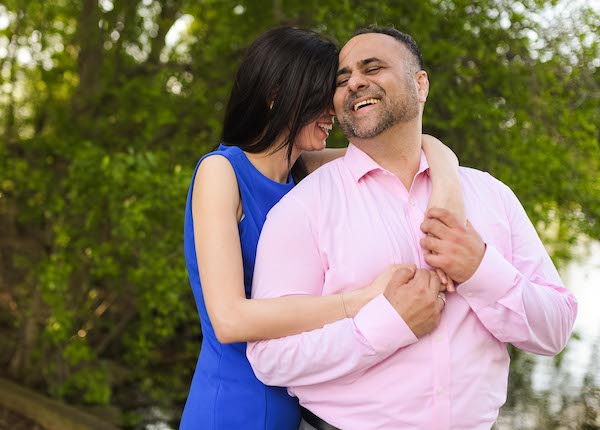 |
June 26, 2020 CHEPS and IOE alum Karmel S. Shehadeh is engaged! Congratulations to Karmel and her fiancé, Dr. Tamer Fathy. In addition to the excitement of her engagement, Karmel will be joining the Industrial and Systems Engineering Department at Lehigh University in the fall as an Assistant Professor after spending the past year as a Heinz College Presidential Postdoctoral Fellow at Carnegie Mellon. Congratulations on all counts, Professor Shehadeh! — Written by Liz Fisher, CHEPS Staff
|
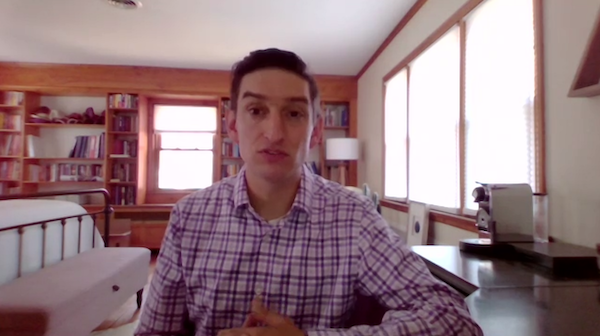 |
June 19, 2020 CHEPS hosted its 5th virtual Lunch and Learn of summer 2020 on June 19th. The invited speaker was Andy Van Sumeren, a University of Michigan alum. Andy spoke on his experience working for GE Healthcare as a lean manufacturing manager during the COVID-19 ventilator crisis. He then touched on his new role at GE that is focused on the commercial side of the business. Throughout the talk as well as afterward current CHEPS students were given the opportunity to ask Andy numerous questions about his experiences working as a part of the COVID relief group.
Andy graduated with a bachelor’s degree in Industrial and Operations Engineering in 2007. He has been working for GE healthcare in a variety of roles and locations since 2005 beginning with internships while he was completing his IOE degree. After graduation, he started as a manufacturing process engineer and then moved into various managerial roles within lean manufacturing. His current role is Director of Operational Excellence which is a newer role within GE. Andy focused much of his talk on his experience with the COVID-19 fight at GE’s Madison, WI facility. He described it as two months of “crazy hard work”. Their goal was to increase the production output of ventilators by three-fold. He described every day as a different safety and emotional experience. He shared his IOE mindset during the project and how he used lean thinking to triple the output of ventilators in such a short time frame. He provided several examples of the tools he used for his team including a Fishbone diagram that explained how a ventilator was put together as well as a Production Process at a Glance. This showed all of the steps that go into making a ventilator including anything of value that ensures quality. Andy also did a great job addressing challenges that he and his team faced both emotionally and technically. Andy finished up his talk briefly explaining his new role within GE as the Director of Operational Excellence. This role is focused on taking lean methodologies and transforming them into how to sell, service, and contract products on the commercial side of GE Healthcare. He is working to help GE Healthcare switch from being a reactive service provider to being a proactive service provider for their customers. Throughout the presentation and at the end, CHEPS students asked very thoughtful, engaging questions. Students were especially interested to learn about how COVID-19 impacted the culture at GE and what the hardest part of the relief effort was. Andy said that the culture shift was difficult as people were initially very scared of the unknowns resulting from the virus. We are very grateful to Andy for taking the time to talk to us about his work and answer our questions. |
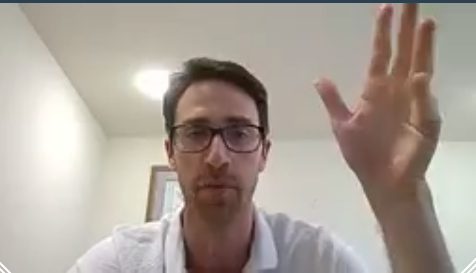 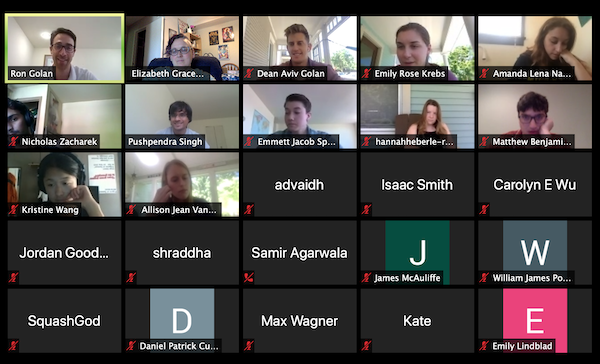 |
June 11, 2020 CHEPS hosted its fourth virtual Lunch and Learn of Summer 2020 on Thursday, June 11. The invited speaker was Dr. Ron Golan, an endourology fellow at New York Presbyterian- CUMC. Dr. Golan spoke about the importance of Ergonomics in surgical procedures with a focus on urological surgeries. He went over the important ergonomic considerations, risks involved, and prevention of injuries in operating rooms. The talk ended with current CHEPS students utilizing this opportunity to ask questions about Dr. Golan’s research and other related topics.
After finishing his B.S. from The College of New Jersey, Dr. Golan went to medical school at the University of Pennsylvania School of Medicine. He spent the next six years doing a urology residency at Weill Cornell Medicine. In August 2019, he joined Columbia University Irving Medical Center as an endourology fellow and has been there since. The session started with Dr. Golan introducing us to surgical ergonomics and its goal to enhance the safety, effectiveness, and quality of life while decreasing the risk of workplace injury. Then, he discussed the role of Knoll Inc. in helping to build the improved hospital design and the challenges that are faced in healthcare design such as 24/7 operation and a wide range of physical activities. From his research and literature review in urology ergonomics, Dr. Golan found out that for the most part there is no formal training for surgeons to learn about the ergonomic effects of doing surgery and this is limited not just to urology but to other departments as well. His research shows that on an average 30-40% urologists have none to little knowledge about their ergonomics while they are in OR; the ramifications of which are seen in terms of surgeons complaining about stiffness in shoulder, neck, back, thumb and other related problems. Dr. Golan then discussed the different types of surgeries performed in urology as well as robotic surgeries with their pros and cons. We learned about room/patient positioning in urological procedures and important considerations such as room layout, instruments’ availability, and performance optimization factors such as distractions from temperature i.e. when the lead surgeon is wearing multiple gowns and feels warmer and wants the operating room to be colder, but has to keep in mind that scrub nurses and remaining staff aren’t as heavily clothed as them, so the temperature has to be a bit higher than the surgeon’s liking. Dr. Golan also talked about the effect of the weight of flexible ureteroscopes and risk factors for surgeon injuries. He also pointed out that 86% of urology surgeons have musculoskeletal discomfort attributed to operating. Later in the discussion, Dr. Golan gave an excellent pictorial presentation of correct and incorrect postures of surgeons in the operating rooms for both normal surgeries as well as robotic surgeries. He also presented the work which suggests ways to prevent the work-related injuries of surgeons in urology and a preventive program for work-related musculoskeletal disorders. Dr. Golan also focused on ways CHEPS can be of help by working on areas like improvement of the workflow by reducing bottlenecking, reducing redundancy, looking at the durability of equipment, etc. In Q&A, Dr. Golan answered a few interesting questions such as what happens if the focus of surgeons is divided between ergonomics and actual surgery and if are there any related studies that point out such effects. We had a very interesting question from Dean (Dr. Golan’s brother), asking about issues that left-handers face while training as surgeons. To this Dr. Golan, a left-hander himself, answered that on account of most people being right-handed, we are taught to practice most of the procedures with the right hand as the leading hand (Go Left-handers!). We are very grateful to Dr. Golan for taking time out of his busy schedule to meet us virtually and sharing his firsthand experience of the hospital and operating room environment. We look forward to having him back sometime in the future for another interesting talk. |
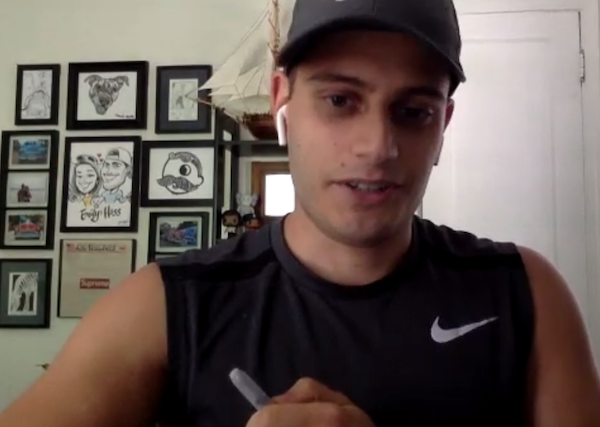 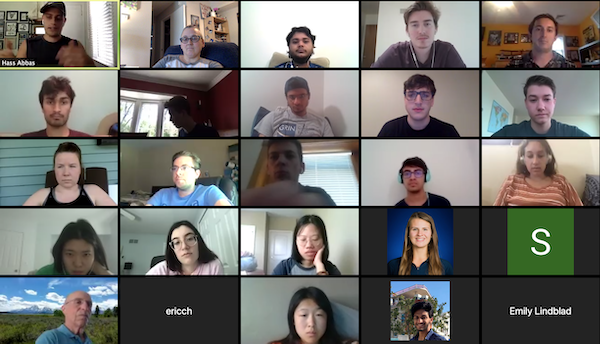 |
June 5, 2020 CHEPS hosted its third virtual Lunch & Learn on Friday, June 5. The invited speaker was Hass Abbas, a University of Michigan graduate and CHEPS alum. Hass spoke of his CHEPS experience, life as a nurse, and COVID-19. Afterward, current CHEPS students were given the opportunity to ask Hass questions about his experiences.
Hass completed his undergraduate degree at the School of Nursing here at UofM. Hass began working at CHEPS the summer after his freshman year and worked there for 4 years until the summer after he graduated in 2017. Hass discussed working on the “Asthma Project” as well as Surgical Instruments. Hass was able to attend the Society for Health Systems Conference and thanks CHEPS for the friends and sense of community it gave him. Through CHEPS, Hass learned how to look at his work from a more holistic perspective. After graduation, Hass worked in the Cardiovascular ICU at Johns Hopkins for two years as an RN. Afterward, he moved back to Detroit to work in the Cardiovascular ICU at the Detroit Medical Center. Hass talked about his day-to-day life as a nurse. He explained the intensity of the ICU as well as the amount of autonomy he has in his job. Hass also discussed how important teamwork is within his job and the healthcare system as a whole, especially during the height of COVID-19. Hass explained how he worked 16 shifts in a row during the peak of the pandemic and how unpredictable and crazy it truly was. In the Q&A, Hass answered questions about his toughest CHEPS experience, how he deals with anxiety in a high-stress job, and how he is able to stay up to date on any new policies and procedures relating to COVID-19. He emphasized how important it is to work as a team with his coworkers and also how difficult it can be to make change in a hospital. We are very grateful for Hass taking the time to talk to us about his work and answer our questions. |
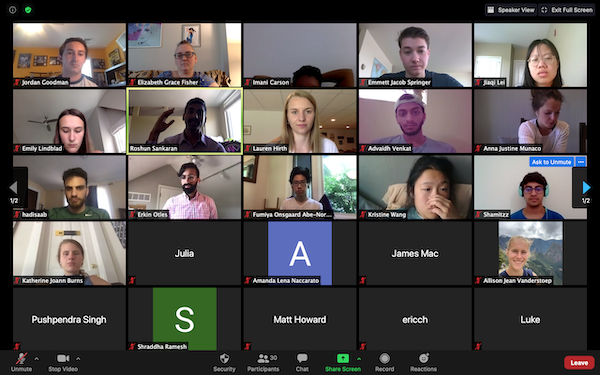 |
June 4, 2020 On Thursday, June 4th, CHEPS hosted a student panel with CHEPS alumni including Roshun Sankaran, Lauren Hirth, Bassel Salka, Anna Munaco, and Erkin Otles. This event took place at CHEPS weekly student-led Lunch & Learn on Zoom. The panel addressed what sort of opportunities students should take and seek out to prepare for medical school, MCAT tips and strategies, gap year plans, other medical school application tips and tricks!
Roshun Sankaran, a student who joined CHEPS during the Summer 2014 semester, joined us for this panel. He is currently a second-year medical student at the University of Michigan Medical School. Roshun studied Neuroscience and applied statistics during his undergraduate years at CHEPS and got a Master’s in Public Health during his gap year. After both having taken a gap year after concluding their engineering and pre-med undergraduate careers at U of M, Lauren Hirth and Bassel Salka, both plan on attending the University of Michigan Medical School, joined CHEPS during their sophomore year. Lauren spent her gap year in a Post-Bachelor program at the National Institute of Health while Bassel spent his gap year at the Johns Hopkins Applied Physics Lab. Anna Munaco is currently going into her M4 year at Michigan, applying to residencies in the fall. She joined CHEPS during the Winter 2015 semester as an IOE student but pivoted her focus toward medicine during her undergraduate career. Finally, Erkin Otles, an MD Ph.D. student researching in the field of IOE, joined us and expanded on the interconnection between research and medical school. While not a Michigan alum (yet!), Erkin graduated from the University of Wisconsin with the intent of working as an engineer. After working at Epic for a couple of years, he landed here at U of M. Thank you to the group for their excellent insights into all aspects of medical school! |
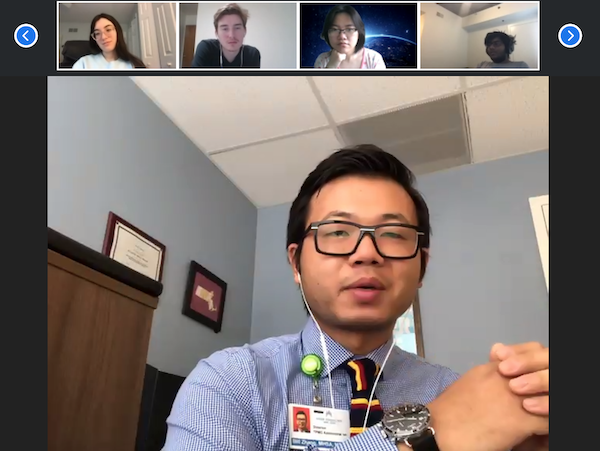 |
May 29, 2020 CHEPS hosted its second virtual Lunch & Learn on Friday, May 29. The invited speaker was Bill Zhang, a University of Michigan graduate and a CHEPS alum. Bill spoke of his academic and professional journey beginning from his undergraduate degree and leading into his career today. Afterward, current CHEPS students were given the opportunity to ask Bill questions about his day-to-day work duties and advice about pursuing an occupation in healthcare engineering.
Bill completed his undergraduate degree in industrial engineering at a small college in Massachusetts. After graduation, he worked at the VA hospital in Boston, implementing several logistics projects, such as linen distribution for supply chain. Additionally, Bill was a data analytics consultant for hospitals for 2 years. Bill described to us his growing interest in healthcare public policy throughout his experiences. He desired to learn more and so, he applied to the University of Michigan School of Public Health and the Department of Industrial and Operations Engineering for a dual-degree. He was accepted and began his master’s program. As a part of the program, he interned at the Cleveland Clinic. During his time as a graduate student, he also worked at CHEPS where he made several great friends and still has many fond memories! His favorite memories are the pre-CHEPS symposium happy hour dinner with alumni and the Christmas party! After finishing his graduate education, Bill relocated to California where he currently works at Kaiser Medical Center. He is accountable for the budget, patient satisfaction, equipment, and strategic planning of the 12 departments. Bill has taken the lead on several COVID-19 operations. A critical system he developed for the hospital was a drive-thru testing location where individuals suspected of contracting the virus can be tested in their cars. He also designed a sustainable entry point check-in; healthcare workers check the temperature, read through the symptoms checklist, and distribute face masks to patients. Bill is working to organize a flu shot drive-thru and other facility modifications including a one-way patient traffic flow, implementing 6ft distancing, and reducing waiting room capacities. His work reduces patient exposure to COVID and other harmful sicknesses. In the Q&A session, Bill advised students seeking a career in healthcare engineering to develop their data analytics skills. Visualizing and communicating information to those who are not familiar with the data is very important. Furthermore, the ability to work in an interdisciplinary team is a valued skill in the workplace. We’re very grateful for Bill and the time he took to answer our questions and share with us about his work! |
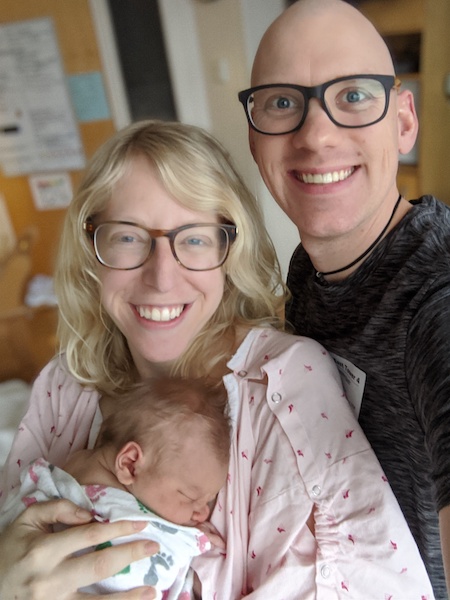 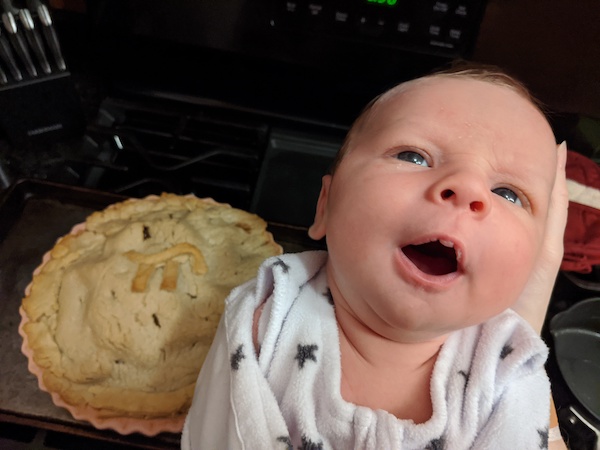 |
May 28, 2020 CHEPS alum and Director of Access and Flow at Maine Medical Center Joe East recently welcomed a new member to his family, Peter Ignatius East. To the left, Peter is pictured with his parents and celebrating his first Pi day which was 3 weeks and 1 day after he was born. Welcome to the world and the CHEPS family, Peter Ignatius East! — Written by Liz Fisher, CHEPS Staff
|
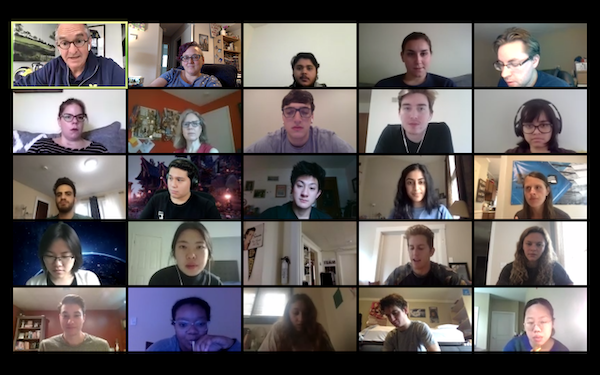 |
May 22, 2020
On Friday, May 22, CHEPS had its first virtual Lunch & Learn. Friend-of-CHEPS and Industrial and Operations Engineering alum Mark Van Sumeren was generous enough to share with all of us some of his work on the existing COVID-19 situation. Mark is Managing Director of Health Industry Advisor LLC, which offers health systems as well as medical device and healthcare suppliers critical thinking and expertise to address challenges in the healthcare industry. Mark acquainted us with his work on “an analytical perspective on the virus progression.” He began by emphasizing the propagation of conflicting and misleading information in the population and countered many adversities that are caused due to false information. He and his collaborators have come up with an approximately 150-page dashboard that contains credible information about the virus progression, its existing state, and some of the projections that could be made based on the existing data. This dashboard covers data derived from across 30 countries, 50 states, and 2,908 counties & municipalities. It contains information about the number of tests being conducted, the number of active cases, as well as the number of deaths and recovered patients. He also presented some of the statistical data based on counts in different locations such as Rhode Island, Maryland, and Michigan. He also touched on the data from the CDC on whether the states could be opened soon or not. During a Q&A, Mark also shared his perspective on some of the questions asked about the pattern of the projected second wave, were hospitals really pushed to their limits, measuring of the data, and monitoring of the active cases, etc. He provided some good analysis and it was a great time getting an opportunity to learn things from him. We hope to see him again in the future and have him share more of his valuable insight with us. |
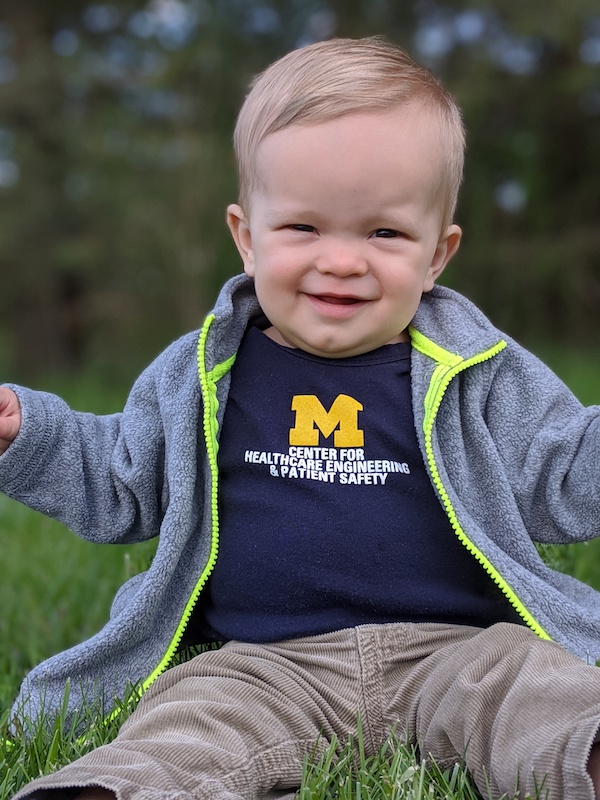 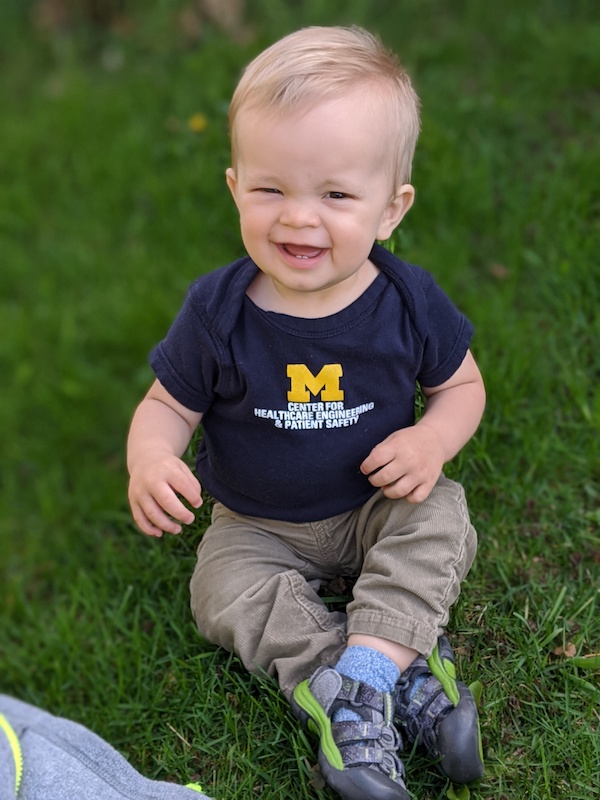 |
May 19, 2020
CHEPS alum Jessica Southwell sent us some adorable photos of her son, Foster, sporting his CHEPS gear. Jessica worked at CHEPS in the fall of 2018 before graduating from the University of Michigan with a degree in nursing. She now works with the Hospital Medicine Safety Consortium (HMS) which coordinates data collection on hospitalized medicine patients around the state to help inform clinical quality improvement. The team she works with recently built a COVID data collection database. Congrats on your professional achievements and the addition of Foster to your family, Jessica! |
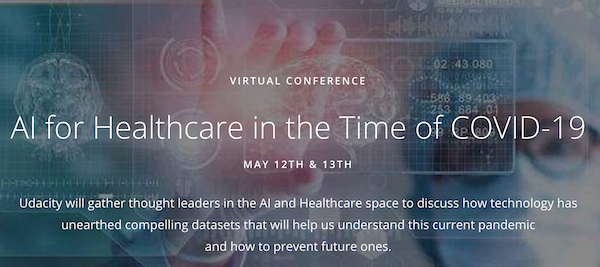 |
May 13, 2020 On May 12th and 13th, 2020, several CHEPSters attended the Udacity Virtual Conference on AI for Healthcare in the Time of COVID-19. The conference brought together “thought leaders in the AI and Healthcare space to discuss how technology has unearthed compelling datasets that will help us understand this current pandemic and how to prevent future ones.”
In addition to the opening remarks and keynote with Q&A with Dr. Eric Topol, they attended sessions titled, “Predicting Disease with AI, how AI improves Clinical Decision Making,” “How AI is Helping Fight the Spread of COVID-19 and Can AI Predict/Prevent the Next Pandemic,” and “Deciphering the Data of Covid-19.” |
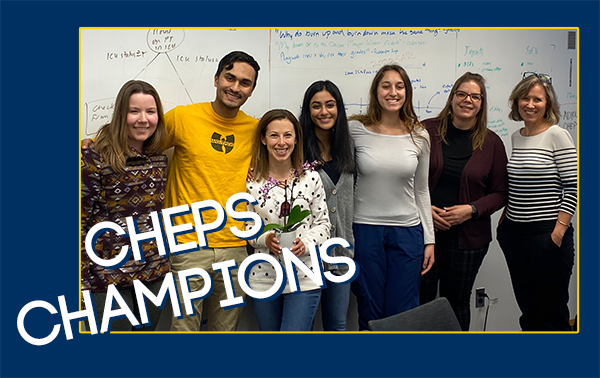 |
May 8, 2020
Dr. Alex Friedman Peahl, a CHEPS collaborator, has been doing valuable work on delivering prenatal care during the COVID-19 pandemic. She was recently featured on Good Morning America discussing how to “keep moms and babies safe before, during, and after pregnancy.” As part of keeping patients safe during the pandemic, Dr. Peahl and her collaborators have reduced in-person prenatal visits and replaced some of those visits with virtual prenatal care. She and her team have also started a new online pregnancy support program, Stay Home, Stay Connected: a unique collaboration between the department of Ob/Gyn, Psychiatry, and Social Work, to give moms additional support and peer mentorship. For the past year, a CHEPS team has been working with Dr. Peahl on a project that also looks at prenatal appointment scheduling and how to best meet patient needs. The CHEPS team is helping Dr. Peahl with research focusing on a group of patients who delivered children over a one-year time frame. The group then follows the cohort’s pregnancies and postpartum care in order to define the cohort’s medical and social support. They look at factors such as comorbidities to determine medical needs and factors like social work consults and patient portal messages to determine their needed support. This information can then be used to ensure the healthcare services delivered match the patient’s needs by better understanding the number and type of appointments patients need. “We helped Dr. Peahl with the COVID-19 related scheduling,” said Harini Pennathur, an Industrial and Operations undergraduate student and member of the CHEPS prenatal team. While their results on patient medical and social support were not ready to use in determining the number of virtual appointments during the pandemic, their groundwork in understanding scheduling informed prenatal care redesign during the pandemic. Harini said, “Our work is kind of intermingled with that work because we are working towards seeing how to make appointments virtual.” CHEPS students on the prenatal team for the winter and summer semesters of 2020 are: Jordan Goodman, Hannah Heberle-Rose, Amanda Naccarato, Harini Pennathur, and Nicholas Zacharek along with CHEPS Associate Director Amy Cohn and CHEPS staffer Julia Herzog Warner. For all of their excellent work to make pregnant patients and their babies safer, Dr. Peahl and the CHEPS prenatal team are this week’s CHEPS Champions! |
 |
May 1, 2020
CHEPS alum MohammadAli H. Jardaly checked in with us this week. He’s currently a Family Medicine Resident at the American University of Beirut Medical Center. He spent the past month working in the COVID-19 outpatient testing clinic there. In addition to filling us in on his professional life and touching base with Billy Pozehl about resident scheduling, he also shared some exciting personal news. He got married in 2018 and he and his wife, Rana, are almost to their two-year wedding anniversary! He also sent along this wonderful wedding photo! Congrats, MohammadAli! |
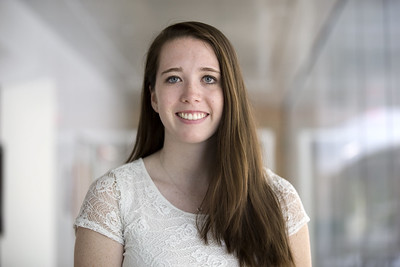 |
April 30, 2020
CHEPS alum Sheridan Tobin is headed to graduate school. Friday, April 24th was match day for genetic counseling programs and she matched into the University of Wisconsin, Madison program. Sheridan graduated with her B.S. in Public Health in May 2019 and worked at CHEPS during her final year at the University of Michigan. For the past year, she’s worked as a support counselor at a community-based mental health non-profit that serves young people in foster care and the juvenile probation system. Best of luck in graduate school, Sheridan! Having worked with you at CHEPS, we know the University of Wisconsin is lucky to have you. |
 |
April 29, 2020
CHEPS Associate Director Amy Cohn is part of a team that recently shared initial results from their research looking at the use of heated high-flow nasal cannula (HHFNC) to treat patients with COVID-19 in acute hypoxemic respiratory failure. The team’s work may have long-term implications as far as how patients with COVID-19 are cared for. Professor Cohn previously worked with members of this team when she was a committee member on then nursing Ph.D. student Emily Boltey’s defense. Dr. Boltey’s research focused on patients on mechanical ventilation in intensive care units, specifically looking at interprofessional teams. As a result, her committee included Professor Deena Kelly Costa from the Nursing School, Dr. Jack Iwashyna from Pulmonary Critical Care Medicine, and Professor Cohn from the College of Engineering. Because they had worked together in the past, when Dr. Iwashyna decided to research a question related to ventilation, he knew where to turn. He approached Prof. Cohn explaining he wanted to better understand how the use of HHFNC impacts the aerosolization of COVID-19 which could be a cause of contagion for providers taking care of infectious patients. Prof. Cohn was able to help facilitate the quick assembly of a group including Mechanical Engineering faculty with expertise in measuring aerosolization, Dr. Jim Cooke who runs the Michigan Medicine Simulation Center and is also a long-time Friend of CHEPS. They were joined by respiratory therapist Ric Eakin from Respiratory Care, Dr. Hallie Prescott from Pulmonary Critical Care Medicine, Prof. Jesse Capecelatro from Mechanical Engineering (ME), Prof. Margaret Woolridge from ME, and Prof. Andre Boehman from ME to do experiments to test aerosolization from HHFNC. The team completed experiments in less than two weeks and posted a paper in less than six weeks from start to finish. Their research showed some surprising results. The paper, titled “Variation in Aerosol Production Across Oxygen Delivery Devices in Spontaneously Breathing Human Subjects” is now under peer review and is available to read online. While the takeaways about aerosolization are notable, this research also shows the value of bringing together people from different backgrounds and areas of expertise to tackle a complex problem. “At a time where everyone is committed to solving an important problem, bringing together such a team can lead to high-impact results,” said Professor Cohn. The team was able to share some important preliminary results based on their quick study, but the research project will go on well-past the immediate urgency of the spike in COVID-19 cases. They are currently working together on a grant proposal to do a more thorough and in-depth, conscientiously designed study. |
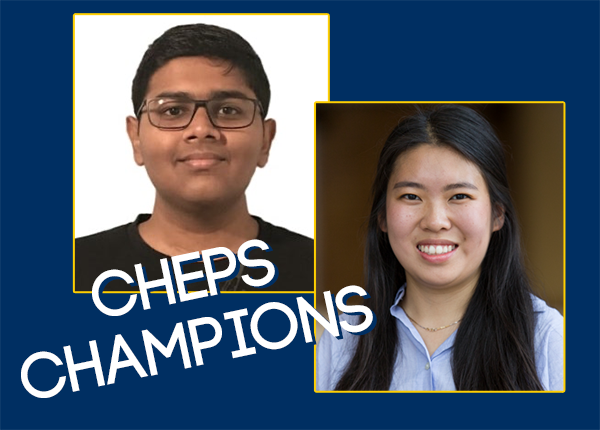 |
April 24, 2020
So many CHEPS team members have been doing excellent work. This is the first of a new weekly series where we’ll recognize some of our ‘CHEPS Champions.’ Every day since classes moved online, CHEPS students Carolyn Wu (Informatics Undergraduate) and Samir Agarwala (Computer Science Undergraduate) have alternated days sending CHEPS Associate Director Amy Cohn a daily COVID-19 regulatory report. They watch White House press briefings, search online for news from Lansing, and more. Then they compile a daily summary of important news related to personal protective equipment (PPE), testing, and other topics. These reports are invaluable in informing how CHEPS contributes to the pandemic response. Thank you for your hard work, Carolyn and Samir! |
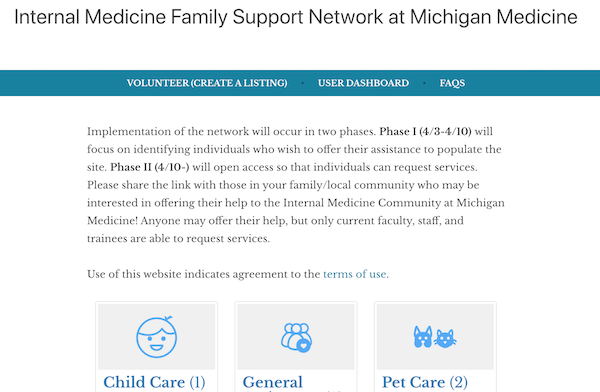 |
April 7, 2020
The Office of Diversity, Equity & Well-Being in the Department of Internal Medicine recently launched the Internal Medicine Family Support Network, a website that will connect practitioners in Internal Medicine with helpers in areas such as grocery shopping, childcare, pet care, and more. The hope is that the site will simplify the process of practitioners finding help with personal needs as they work long hours to fight COVID-19. The site was developed in collaboration with a team from the Center for Healthcare Engineering and Patient Safety (CHEPS) and the Department of Industrial and Operations Engineering (IOE). Implementation of the new network will occur in two phases. Phase I began on Friday, April 4th and focuses on allowing individuals who wish to offer their assistance to populate the site with postings. Phase II will begin on Friday, April 10th, opening access so that current faculty, staff, and trainees in the Department of Internal Medicine can browse listings and request services. The team from the Office of Diversity, Equity & Well-Being in Internal Medicine included Michael Lukela, Eve Kerr, Sarah Gualano, and Erin Price. The team from CHEPS consisted of Liz Fisher, Rod Capps, Billy Pozehl, and Amy Cohn as well as several CHEPS students who helped test the platform while it was in development. |
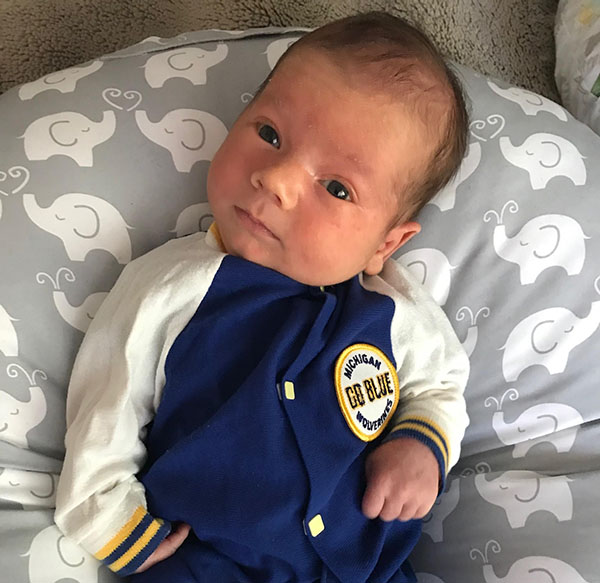 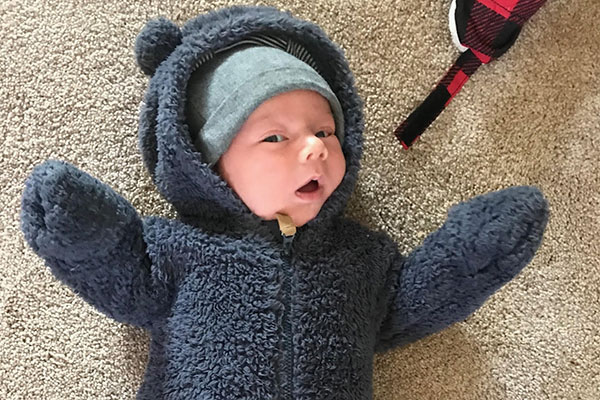 |
March 26, 2020
Katie Esper, Friend-of-CHEPS and a University of Michigan Industrial and Operations Engineering alum, welcomed baby Archer Thomas Wallach on February 19, 2020. Katie, now a Program Manager in Force Health and Readiness at Johns Hopkins, says both she and Archer are doing well and have been connecting with friends and family over FaceTime and Zoom plus getting in lots of snuggles and long walks. |
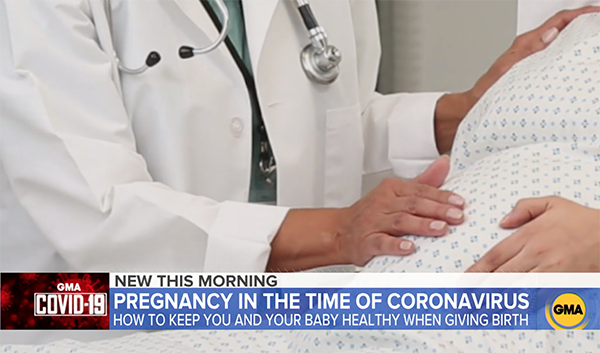 |
March 23, 2020
CHEPS collaborator Doctor Alex Friedman Peahl was featured on Good Morning America on Monday, March 23, 2020 discussing prenatal care amid COVID-19. “Our top goal is to keep moms and babies safe before, during, and after pregnancy,” she said. The entire segment is available on Good Morning America’s website. |
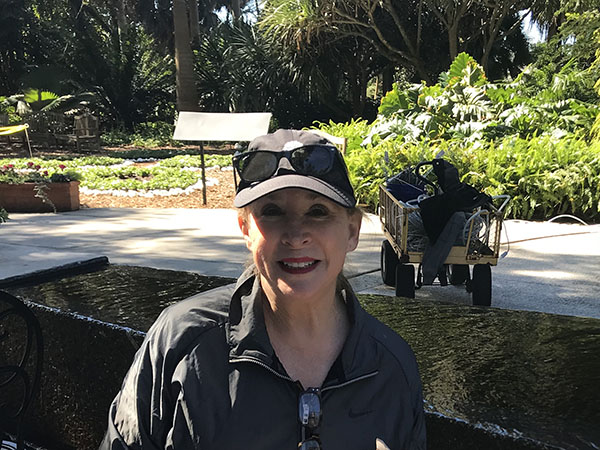 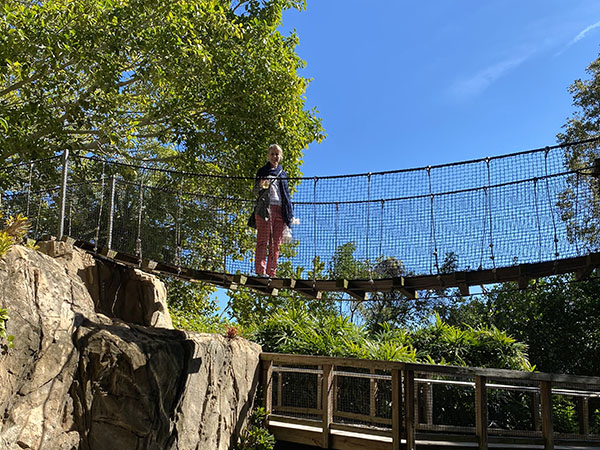 |
March 2, 2020
The great work we do at CHEPS wouldn’t be possible without the wonderful supporters who make it all happen. CHEPS Associate Director Amy Cohn recently had a chance to visit with a longtime Friend-of-CHEPS Merrill Bonder on a trip to Florida. Mrs. Bonder not only provides financial support to CHEPS through the Seth Bonder Foundation but is also one of our students’ biggest cheerleaders at conferences and other events. Professor Cohn was delighted to spend some time visiting with Mrs. Bonder and to escape the Michigan snow for a few days. In addition to brainstorming about CHEPS plans, the two spent some time at the Marie Selby Botanical Gardens in Sarasota. More CHEPSters will have a chance to connect with Mrs. Bonder again when she visits CHEPS in May. As always, we’re looking forward to her visit! |
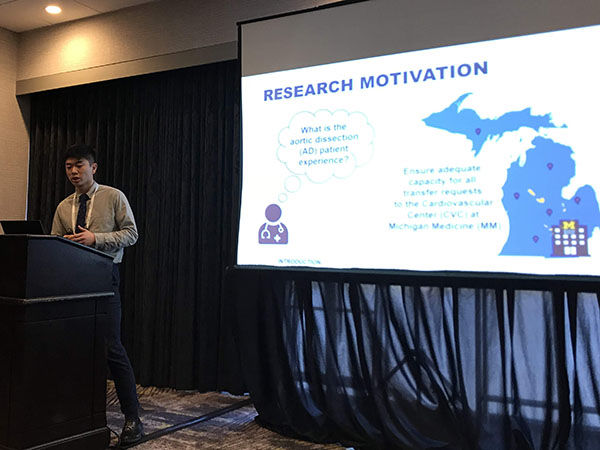 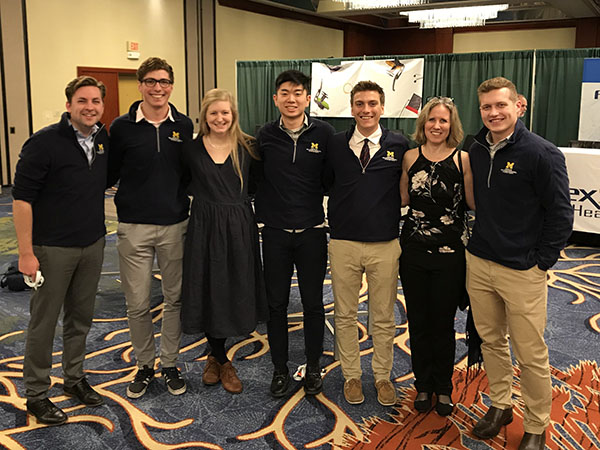 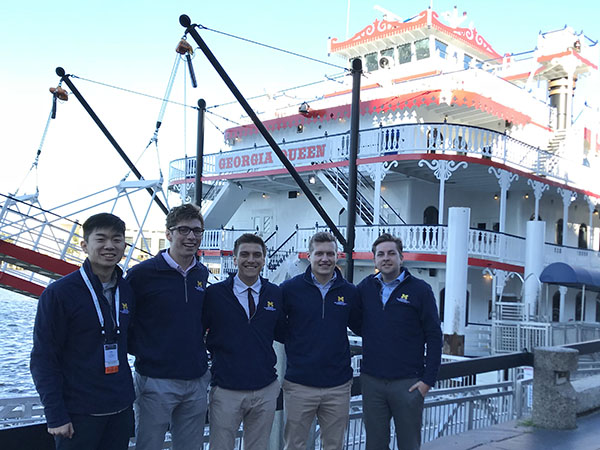 |
February 28, 2020
CHEPS students and faculty attended the 2020 HSPI Annual Meeting in Savannah, Georgia this year from February 26th-28th. The HSPI Annual Meeting brings together healthcare professionals to provide them with the latest operational and quality improvement tools through poster sessions and presentations. This year, the CHEPS presentations included:
The CHEPS posters included:
HSPI was a valuable opportunity for CHEPS students to interact with and go to presentations of different medical professionals. These presentations and interactions allowed students to further their knowledge on different techniques for process improvement in the medical field. Students who attended said that the best part of the conference was: “I would say the best part of the conference was going around, networking, meeting new people, and finding people for good job opportunities.” – Jake Martin “I think the best part of the conference was the poster presentation. I got to talk to a lot of people from similar industries and experiences that were able to give some very valuable advice on the next steps we can take.” – Malcom Hudson “The best part about the conference was being able to have the opportunity to speak with other industry professionals and learn best practices from their respective projects.” – Matt Levenson [View photos from the conference here.] — Written by Luke Liu, IOE Undergraduate Student |
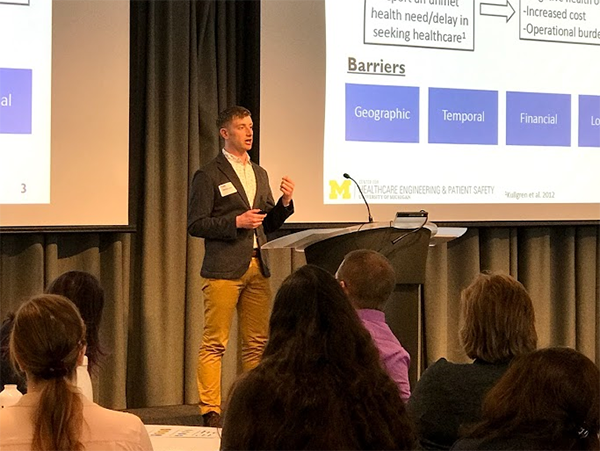 |
February 25, 2020
On Tuesday, February 25, CHEPS student Adam VanDeusen presented at the 3rd Annual University of Michigan Data for Public Good Symposium. This event, hosted by the Michigan Institute for Data Science (MIDAS) in collaboration with Statistics in the Community (STATCOM), the Center for Education Design, Evaluation, and Research (CEDER), and the Community Technical Assistance Collaborative (CTAC), brought together researchers and practitioners from multiple disciplines to discuss how they make a social impact using quantitative, data-driven methods. This event sponsors were the Michigan Institute for Data Science, the SPH Dean’s Fund, and the Rackham Student Government. Adam, who is an IOE Ph.D. student, presented work from the first chapter of his Ph.D. dissertation in a talk titled “Designing and Evaluating Hierarchical Healthcare Networks to Improve Access.” He shared examples of how the work we are doing at CHEPS can be leveraged in the design of healthcare systems in order to better serve the public. His presentation, among others, showed how researchers can use insight from data to combat inequality while also providing real efficiency gains in practice. |
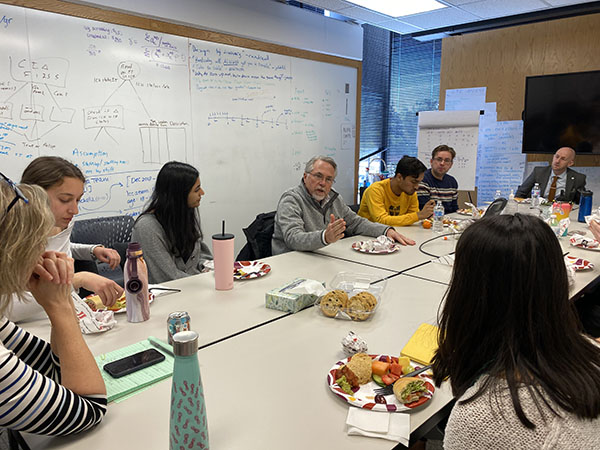 |
February 14, 2020
Last Friday, February 14th and Valentine’s day, CHEPS students and faculty gathered together to hear from Doug Wanty during a Lunch and Learn. Doug brought a very interesting perspective to share about healthcare. His background is actually in clinical psychology and the beer distribution industry. Doug completed his Ph.D. in clinical psychology and his wife is a retired OBGYN nurse. Doug has been in the beer industry for quite some time and runs a beer distribution company, O & W, Inc. Doug mentioned the similarities between optimizing administration and logistics within a hospital and his beer distribution business. As a small business owner who is involved in overseeing employee healthcare options, he was also able to give us unique insight into employer-provided health insurance. He touched on the quickly rising cost of health insurance and educated us on the healthcare insurance system. Doug also spoke of how hospitals and businesses differ. A business’s primary goal, as Doug mentioned, was to lower cost. A hospital’s main goal is not to find the cheapest method to complete something, but rather the safest and highest care option. It was a pleasure getting to know and learn from Doug, and we hope to have him and his wife come in again to speak with us more in the future! |
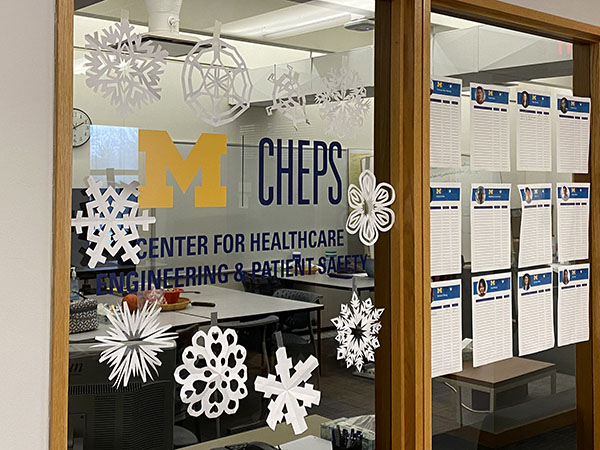 |
February 7, 2020
On Friday, February 7th, on their first day of IOE graduate recruitment weekend, more than 20 potential Industrial and Operations Engineering (IOE) Ph.D. candidates stopped by CHEPS to learn more about what we do! Ph.D. Candidate Adam VanDeusen and Masters students Isaac Smith and Malcolm Hudson told them about what it looks like to do research at CHEPS and answered their questions about being a grad student in IOE. |
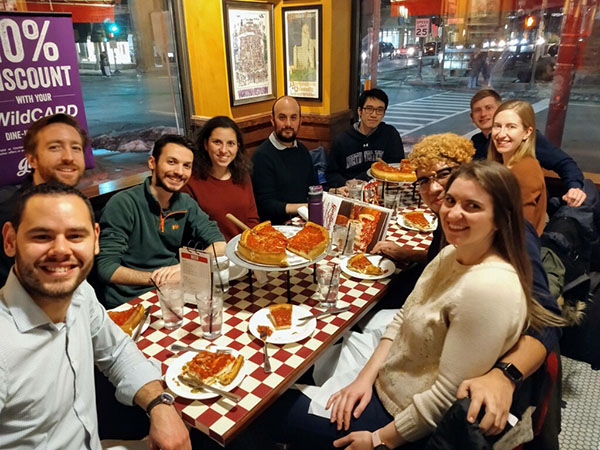 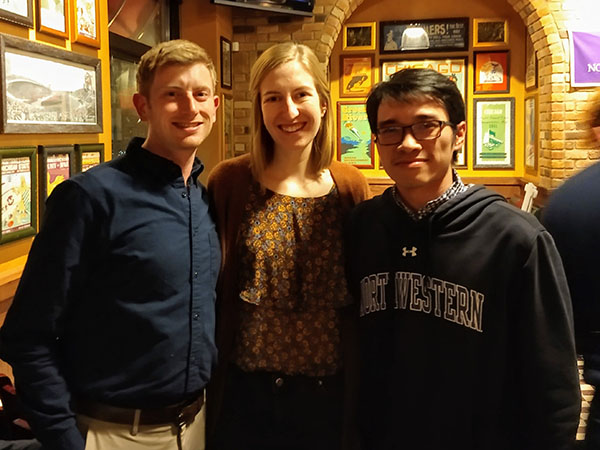 |
February 1, 2020
In the summer of 2017, members of the Institute for Operations Research and the Management Sciences (INFORMS) student chapter from Northwestern University came to Ann Arbor to meet with the University of Michigan INFORMS student chapter. The visit gave the two groups a chance to talk about how they run their chapters, their research, and more. CHEPS alum Moses Chan is now pursuing his Ph.D. at Northwestern and is their INFORMS president. He reached out to fellow CHEPSter Adam VanDeussen, who is outgoing Michigan INFORMS president about making another exchange happen. As a result, five members of the Michigan INFORMS chapter traveled to Northwestern this February to meet with members of the INFORMS chapter there. “We spent the morning on research talks, so like various talks similar to conference presentations, just in a smaller group,” said Adam. “And in the afternoon we talked more about challenges our chapters were facing like ‘how do we hold events that are interesting and inclusive of undergrads?’ or ‘what kind of challenges do we have around funding?’ and things like that.” The group also had a chance to enjoy a tour of Northwestern and have dinner together. There was even a mini-CHEPS reunion. Sarah Bach and Michelle Chen, also CHEPS alums now at Northwestern pursuing their Ph.D.s, also participated in the exchange event. The four CHEPSters had a great time catching up! |
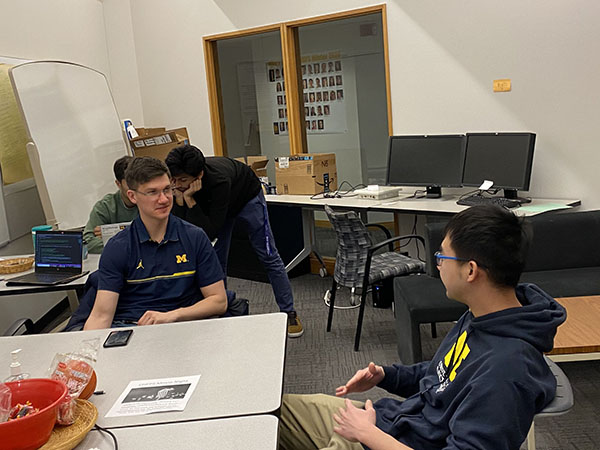 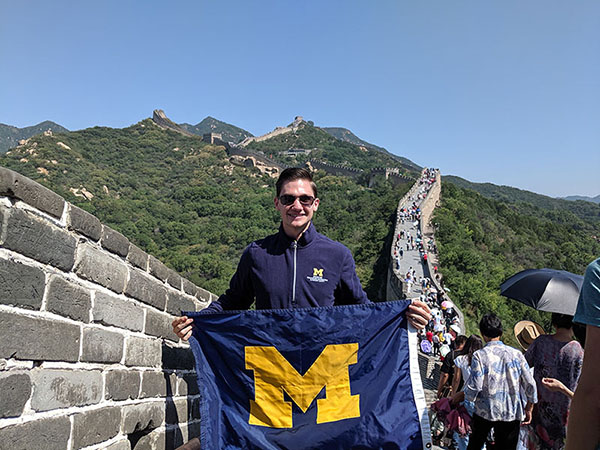 |
January 31, 2020
CHEPS alum Theodore Endresen recently stopped by CHEPS for a visit while on break from his master’s program in Management Science and Engineering at Tsinghua University. “Tsinghua is an excellent school,” he said. “It offered a unique opportunity to learn about aspects of industrial engineering that we’d learn here but with a specific focus on China. A lot of companies I would work for do business with China so that’s an interesting thing to have the opportunity to use later on.” Many of his classes have semester-long projects. He said, “Working at CHEPS gave me a leg up on all of those, especially when you had to do a bunch of literature reviews and then formulating large models.” Aside from his studies, Theodore has also had the opportunity to train with Tsinghua’s track team. He participated in track as a club sport while he was at the University of Michigan. He said track at Tsinghua is a different experience. “Over there, everyone’s a professional athlete on the team, except for me,” he explained. “We train at the national training center and that’s interesting. I’m a little out of place with like the Chinese Olympic team that’s also there.” In addition to being a good way to make friends, Theodore said that participating in track has also been an excellent way to practice his Chinese. While he has a Chinese class once a week, the rest of his classes are in English. “If you want to actually learn Chinese, you have to self-study. So I self-study every day. But then I get to go meet with the track team. Going to meet with them is great practice because only one team member can speak English fluently so it’s a great way to practice my Chinese and I can help them with their English.” |
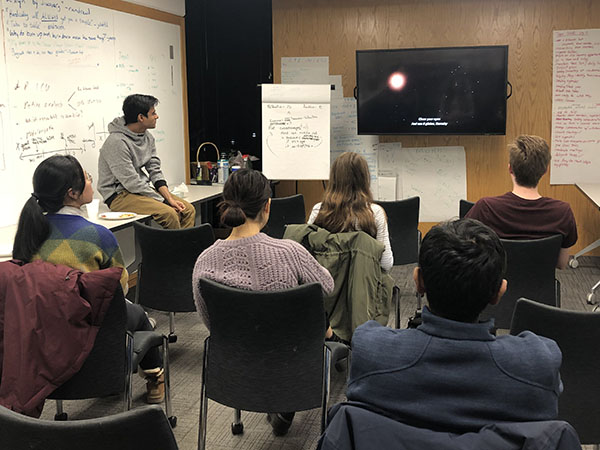 |
January 31, 2020
On Friday, January 31st, CHEPSters watched a private screening of Disney’s WALL-E while enjoying pizza, veggies, and snacks at a social planned by our HEPS masters students. Both students who were watching the movie for the first time and those rewatching the movie were captivated by the funny yet serious storyline. We can’t wait for the next CHEPS social! |
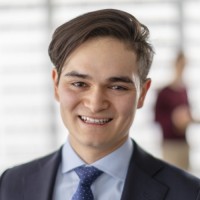 |
January 23, 2020
Josh Lustig, a CHEPS alum who graduated with bachelor’s degrees in Industrial and Operations Engineering and Computer Science from the University of Michigan in 2018, has been accepted into and awarded a scholarship at Northwestern Law. He’ll start next fall and be part of the class of 2023. He plans to focus on intellectual property/technology law, particularly on the role of patents and patent law in encouraging investment in R&D and commercialization of technologies. Currently, Josh is a patent agent at McDonnell Boehnen Hulbert & Berghoff LLP in Chicago, IL. Josh primarily prepares and prosecutes U.S., Chinese, and European patents directed to robotics, cloud computing, wireless communications, artificial intelligence, and other technologies for various Fortune 500 companies and startups. In addition to focusing on technology law, Josh also plans to work with Northwestern’s legal aid clinics to help defend low-income tenants against unwarranted evictions, a problem that is becoming increasingly prevalent in the Chicago area. |
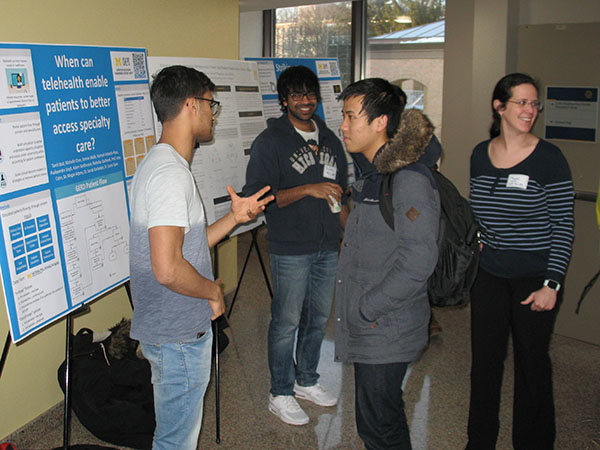 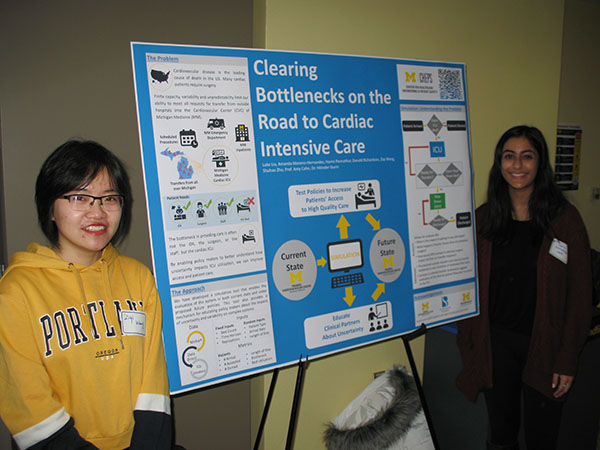 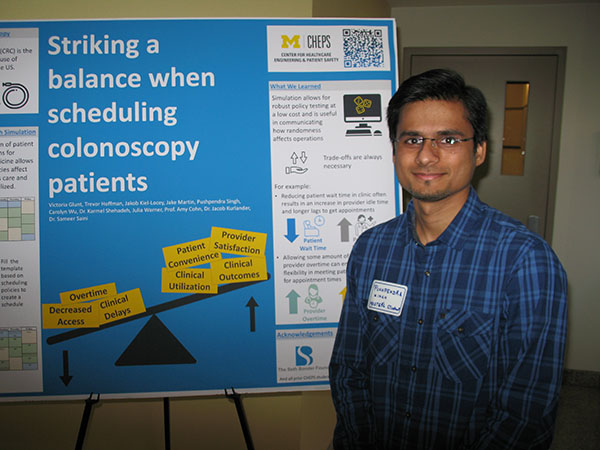 |
January 21, 2020
Several CHEPS students presented posters at an Industrial and Operations Engineering (IOE) open house on Tuesday, January 21st. The open house was geared toward undeclared students in the College of Engineering who were deciding if IOE might be the path for them. IOE students presented posters and spoke to attendees about their experiences in the IOE program. Among the presenters were CHEPSters majoring in IOE whose posters highlighted some of the ways IOE can be applied to healthcare. The CHEPS students who participated presented the following posters:
The poster session was followed by an alumni panel about careers in IOE. — Written by Liz Fisher, CHEPS Staff |
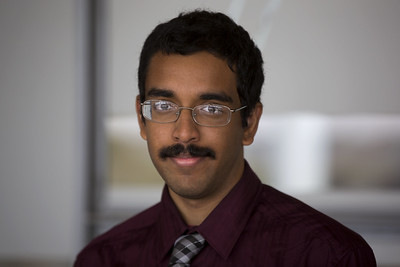 |
January 17, 2020
CHEPS alum Ajaay Chandrasekaran recently accepted a new position as a Software Engineer on the Advanced Driver Assistance System (ADAS) initiatives at Fiat Chrysler Automobiles (FCA) in Auburn Hills, MI. FCA, in collaboration with BMW Group, Intel, and Mobileye, is developing a state-of-the-art autonomous driving platform for global deployment. Ajaay, who graduated from the University of Michigan with his BS in Computer Science in 2017 and MSE in Electrical and Computer Engineering in 2018, is involved in the development of that platform. “In my opinion, implementation of autonomous vehicle technologies is among the greatest technical challenges today, and I consider it to be a very exciting problem to tackle,” said Ajaay. He spent 2 years at CHEPS during his time at Michigan and has taken many of the things he learned here into his post-CHEPS career. “Though I no longer work in healthcare as I did at CHEPS, there are a lot of similarities in my work,” he said. “Having a background in computer science and algorithmic methods for robotics, I have to collaborate and interface with others from a wide variety of backgrounds, including mechanical engineering, electrical engineering, and automotive engineering. This is very similar to the environment at CHEPS where I had an opportunity to work with peers from a variety of fields, ranging from public health to operations engineering.” And that’s not where the similarities to his work at CHEPS end. Ajaay said, “Another lesson that I carry with me from CHEPS is the ability to evaluate the impact of my work on the safety of users. At CHEPS, patient safety was an extremely important factor influencing my work, and I learned to practice great care for how my work impacts individual patients’ lives–either directly or indirectly. In the autonomous vehicle domain, I similarly recognize that my work has little room for error since human lives are directly on the line when individuals decide to trust an autonomous vehicle to take them from one place to another without an accident.” |
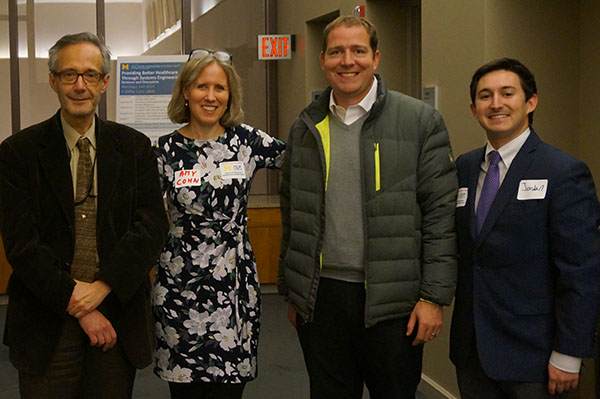 |
January 15, 2020
A CHEPS team has been awarded funding from the State of Michigan Department of Health and Human Services to understand how variability in staffing impacts patient care in the State Health System. The team consists of CHEPS Associate Director Amy Cohn and CHEPS students Jordan Goodman (Industrial and Operations Engineering Masters with a concentration in Healthcare Engineering & Patient Safety), DucMinh Ngo (Computer Science Undergraduate), Nikita Ramachandran (Public Health Masters), and Matt See (Chemistry Undergraduate). They are working closely with Dr. George Mellos, the lead psychiatrist and deputy director for the Behavioral Health and Developmental Disabilities Administration at the Michigan Department of Health and Human Services, as well as his excellent staff. Understaffing at a state hospital leads to an increase in the potential risk of harm to both patients and caregivers. Harm to caregivers leads to increases in absenteeism which can spiral. The research team is looking at the impact of absenteeism on injury and how to staff state hospitals in a way that keeps both the patients and their caregivers safer. “We’re dealing with some of the state’s most vulnerable and in-need patients and so it’s incredibly rewarding to apply our engineering skills in such a direct way that’s going to help people,” said Professor Cohn. |
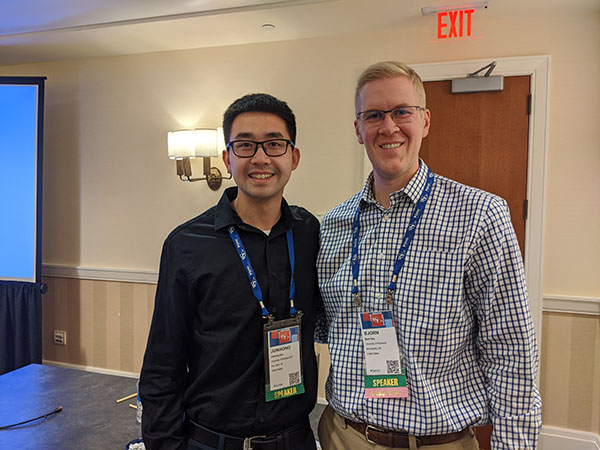  |
December 11, 2019
Current CHEPSter and IOE Ph.D. student Junhong Guo attended the 2019 Winter Simulation Conference (WSC) in National Harbor, Maryland from December 8 – 11. According to the conference website, “The 2019 conference seeks to highlight the latest simulation technologies for more accurately anticipating risks and for making more robust decisions in the face of uncertainty, ambiguity, and variability. These include methods for robust and accurate simulation modeling, analysis, and optimization. We also invite papers describing applications of simulation to risk management in a broad variety of domains, including healthcare, disaster response, power grids, construction, transportation, finance, cybersecurity, and more.” Junhong presented a paper titled “Using Discrete-Event Simulation to Find Ways to Reduce Patient Wait Time in a Glaucoma Clinic.” The paper details a project collaborating with the glaucoma clinic at the Kellogg Eye Center at UM and it has been accepted to be published in the conference proceedings. During the conference, Junhong got the chance to meet and talk with many researchers. He also attended several sessions to learn about how simulation can be applied to help address different problems in a variety of fields, e.g. evaluating different heuristics in terms of scheduling providers in a specialty clinic; how airplane separation rules impact the number of tactical resolution maneuvers required during air traffic control; the propagation of the flight delay caused by the buffers conservatively imposed by the air traffic controllers when the weather is calm but the vision is not good, and so on. Junhong described the most exciting part of the conference for him saying, “I feel truly happy that I met my previous advisor at Cornell, Prof. Shane Henderson, during the conference. Shane also came to my talk to support me. He asked many great questions and provided me with many valuable comments, which would definitely help us further improve our work.” |
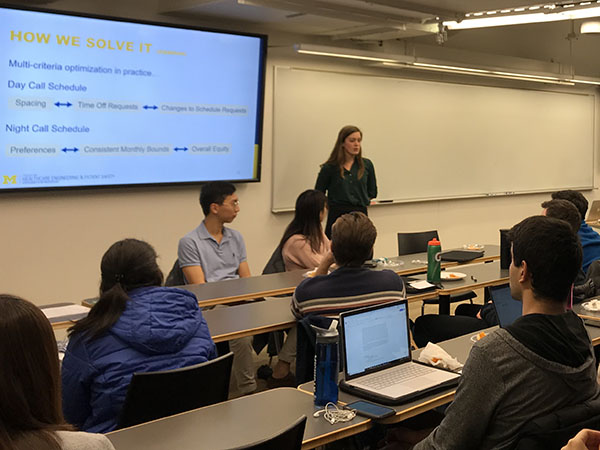 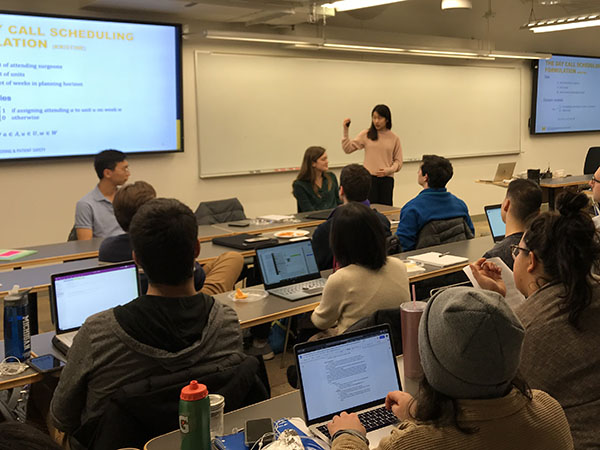 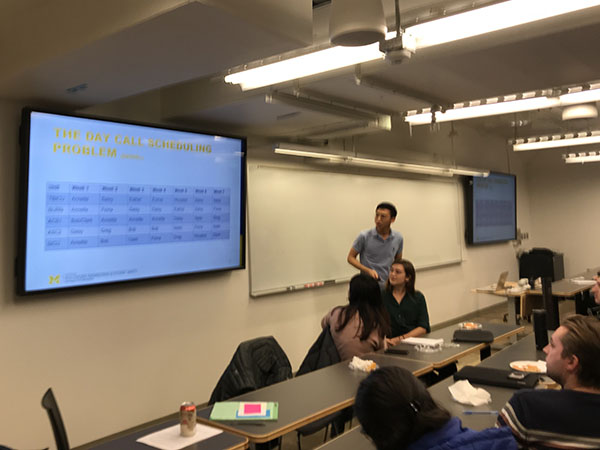 |
December 9, 2019
On December 9th, Dr. Amy Cohn and engineering students Hannah Strat, Daniel Cao, and Kristine Wang presented their work on “Addressing Multi-Criteria Objective Functions in Healthcare Provider Scheduling Projects” as part of our Providing Better Healthcare Through Systems Engineering Seminar Series. Dr. Amy Cohn is the Associate Director of the Center for Healthcare Engineering and Patient Safety and a Thurnau Professor of Industrial and Operations Engineering at the University of Michigan. Hannah Strat is a Master’s student studying Industrial and Operations Engineering with a concentration in Healthcare Engineering and Patient Safety (HEPS) and completed her Bachelor’s degree in Chemical Engineering at the University of Michigan in 2018. Daniel Cao is an undergraduate studying Industrial and Operations Engineering and Kristine Wang is an undergraduate student studying Computer Science Engineering at the University of Michigan. Dr. Cohn and the student team collaborated directly with Dr. Krishnan Raghavendran who currently works as the Division Chief of Acute Care Surgery and a Professor of Surgery at Michigan Medicine. This collaborative project between engineers and clinicians centers around creating a scheduling template to allow for faster and easier creation of schedules for attending physicians in the Division of Acute Care Surgery at Michigan Medicine. Dr. Raghavendran, unfortunately, was not able to attend the lecture due to four emergency surgery cases that required his attention, but the student team and Dr. Cohn presented the challenges and successes associated with creating an “optimal” schedule. The complexity of this problem stems from the lack of an objective function around which an optimization model can be constructed. As you can imagine, all physicians have competing priorities such as time-off requests for important family events, the balance of night-shift and day-shifts, and the number of weekend shifts that they are scheduled for. Other rules such as restrictions on how many consecutive night shifts and consecutive weeks attendings can work are crucial to avoid fatigue and maintain the health of healthcare providers. The balance of these rules and individual scheduling preferences makes for a difficult problem that the CHEPS Trauma team worked to solve. By defining several model constraints and frequently soliciting clinician feedback from Dr. Raghavendran, the team succeeded in creating a schedule that granted 108 of 110 time-off requests on day shift and 152 out of 182 assignments within the preferences outlined by physicians. Dr. Cohn emphasized the importance of collaboration between engineers and healthcare providers to solve complex problems. Engineers and clinicians tend to have drastically different perspectives and priorities which can make communication difficult, however, both perspectives are crucial to allow for the best project outcomes. CHEPS was established on the philosophy of the importance of collaboration and the fantastic results on this and other projects demonstrate the value of clear communication. We thank Dr. Cohn, Hannah, Daniel, and Kristine for their outstanding presentation and offering their unique perspective on the challenges and benefits of clinician collaboration. |
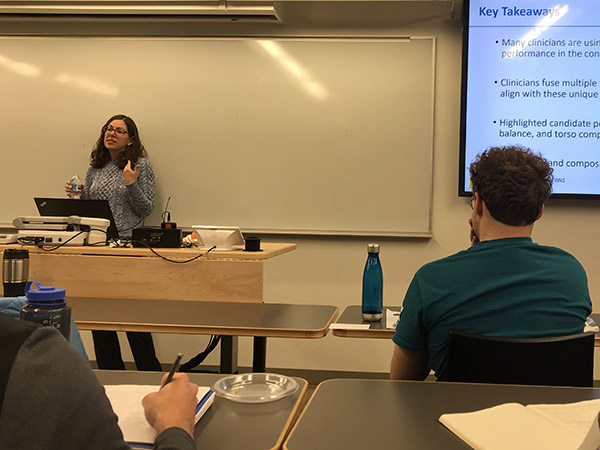 |
December 2, 2019
On December 2nd, Dr. Leia Stirling presented her work on “Using Wearable Motion Sensors for Augmenting Occupational Therapy Assessment” as part of our Providing Better Healthcare Through Systems Engineering Seminar Series. Dr. Stirling is an Associate Professor in Industrial and Operations Engineering at the University of Michigan. She previously worked as a postdoctoral researcher at Boston Children’s Hospital and Harvard Medical School, on the Advanced Technology Team at the Wyss Institute for Biologically Inspired Engineering, and as an Associate Professor at MIT before coming to U of M. Her research focuses on the use of wearable technologies to track human performance, mitigate injury risk, and assist clinicians and other experts in tracking patient health and progress. During her lecture, Dr. Stirling outlined the benefits associated with the use of wearable sensors to track patient progress in occupational therapy clinics. One of the main challenges that occupational therapists face is determining whether a lack of patient progress is due to noncompliance, incorrect exercise technique, or inadequately prescribed therapy. With no way to monitor at-home behaviors, therapists must conduct assessments in clinic to determine if patients are doing exercises properly and trust that patients will be truthful about their level of compliance. The incorporation of wearable sensors would enable therapists to track and monitor patient progress much more accurately. The challenge with wearable sensors, however, is that raw sensor data can be very difficult to interpret and utilize for decision making. Dr. Stirling and her colleagues studied three qualification metrics associated with wearable inertial measurement units (IMU): coordination, static balance, and compensatory torso motion. These three studies were conducted healthy, aging, and stroke recovery patients respectively with the goal of creating models that are easy to interpret, display motion patterns, and can help augment decision making. We thank Dr. Stirling for presenting her intriguing work and welcome her to the University of Michigan as a new faculty member. |
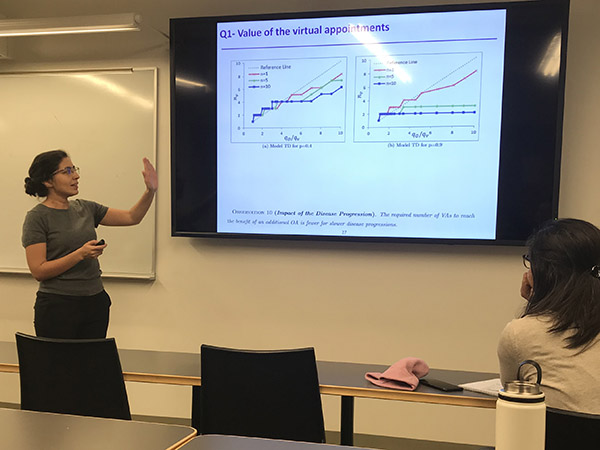 |
November 25, 2019
On November 25th, Dr. Armagan Bayram presented her work on “Managing Virtual Appointments in Chronic Care” as part of our Providing Better Healthcare Through Systems Engineering Seminar Series. Dr. Bayram is an assistant professor in the Department of Industrial and Manufacturing Systems Engineering at the University of Michigan- Dearborn. Her research centers around the development of stochastic models and solutions for resource allocation and appointment capacity in healthcare clinics. Her lecture focused on her work related to optimization of virtual and office appointment patient scheduling. In recent years, the demand for virtual appointments that allow patients to see their physicians remotely has substantially increased. Virtual appointments allow patients to seek treatment and diagnoses from their physicians without physically traveling to the clinic. By 2020, it is expected that over 25 million virtual appointments will be conducted in the U.S with a projected growth of 10% each year. As this demand increases, questions about how to best schedule patients and achieve the best patient outcomes continue to intrigue researchers like Dr. Bayram. As such, Dr. Bayram and her colleagues have worked to design stochastic models centered around patient health status (how sick patients are) and needs (diagnosis or treatment). These models allow for quantification of the impact of virtual appointments on patient outcomes, the availability of office appointments for the sickest patients, and the number of return patient visits. Specifically, Dr. Bayram and her team sought to model the benefits of a myopic heuristic model in which the sickest patients receive office appointments versus the rotation heuristic model in which appointments are allocated equally. Through the use of these powerful models, we can better predict real-world outcomes and design a scheduling system to contribute to the best possible patient outcomes. We thank Dr. Bayram for participating in our seminar series and for showing us the impact that virtual appointments can have on our future healthcare system. |
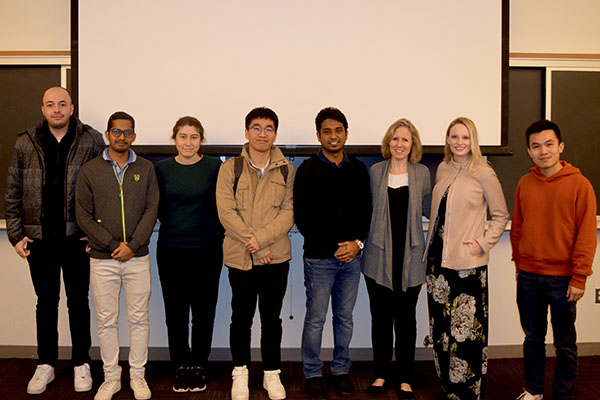  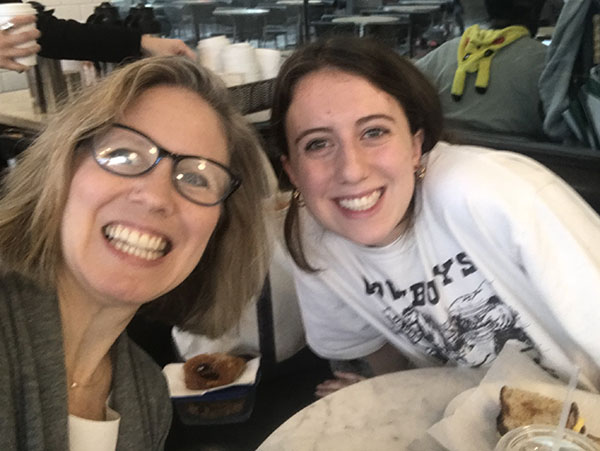 |
November 22, 2019
HEPS Associate Director Amy Cohn traveled to Northeastern University on November 22nd to present a talk titled “Solving Complex Combinatorial Scheduling Problems in Healthcare with Multiple Objective Criteria.” She enjoyed the opportunity to share the work we’re doing at CHEPS with friends and colleagues at Northeastern. And, in true industrial engineer fashion, Professor Cohn was able to optimize her trip, fitting in several more activities. She met with faculty members, including graduate school friend Ozlem Ergun who is now a faculty member in Mechanical and Industrial Engineering at Northeastern. University of Michigan IOE alum Kayse Maass is also now a faculty member at Northeastern and Professor Cohn was able to spend some time with her and meet with members of the Northeastern student INFORMS chapter. The trip also gave her the chance to catch up with Louise Knabe, a friend from Ariadne Labs. And, finally, she spent some time with her niece who is a sophomore at Northeastern. |
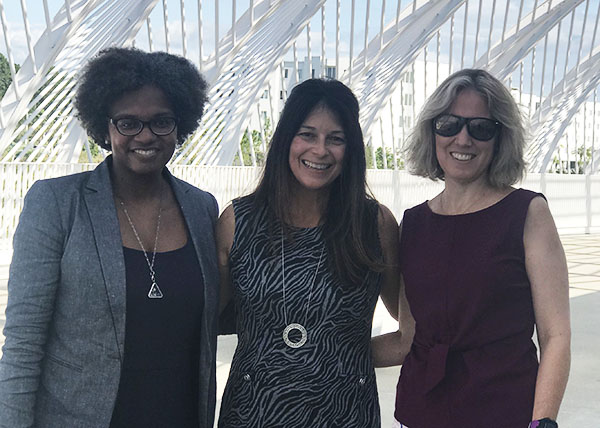 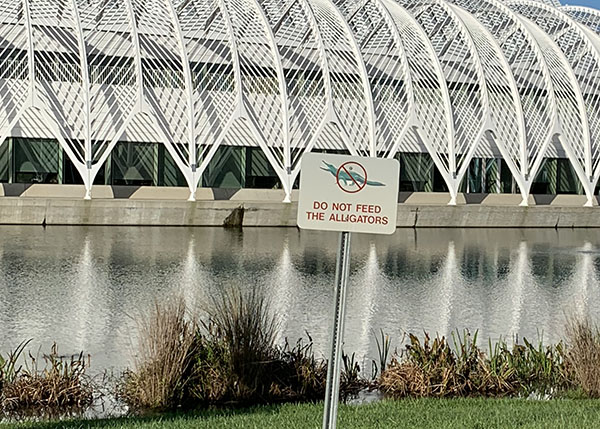 |
November 21, 2019
CHEPS Associate Director Amy Cohn recently traveled to Florida Polytechnic University to advise faculty there as they work to develop their own center similar to CHEPS. Professor Julie Ivy, a Fitts Faculty Fellow in Health Systems Engineering at North Carolina State University and a long-time friend of CHEPS, joined Professor Cohn on the trip. They were invited by Professor Grisselle Centeno, a new faculty member at Florida Polytechnic who serves as the Director for the health systems engineering center there. Professor Centeno is also a friend of CHEPS and has presented her work in our seminar series. Professor Cohn appreciated the opportunity to share lessons learned from her work at CHEPS. “Part of the mission of CHEPS is not only to do our own work and train our own students but share our work to help others broaden the reach,” she said. Professors Cohn and Ivy spent two days discussing their work in healthcare to the university president, provost, advisory board members, and faculty while helping Professor Centeno work toward her vision of the health systems engineering program at Florida Polytechnic. In addition to enjoying the chance to share their knowledge and collaborate with friends, they enjoyed the beautiful campus and warm Florida weather while not feeding the alligators. |
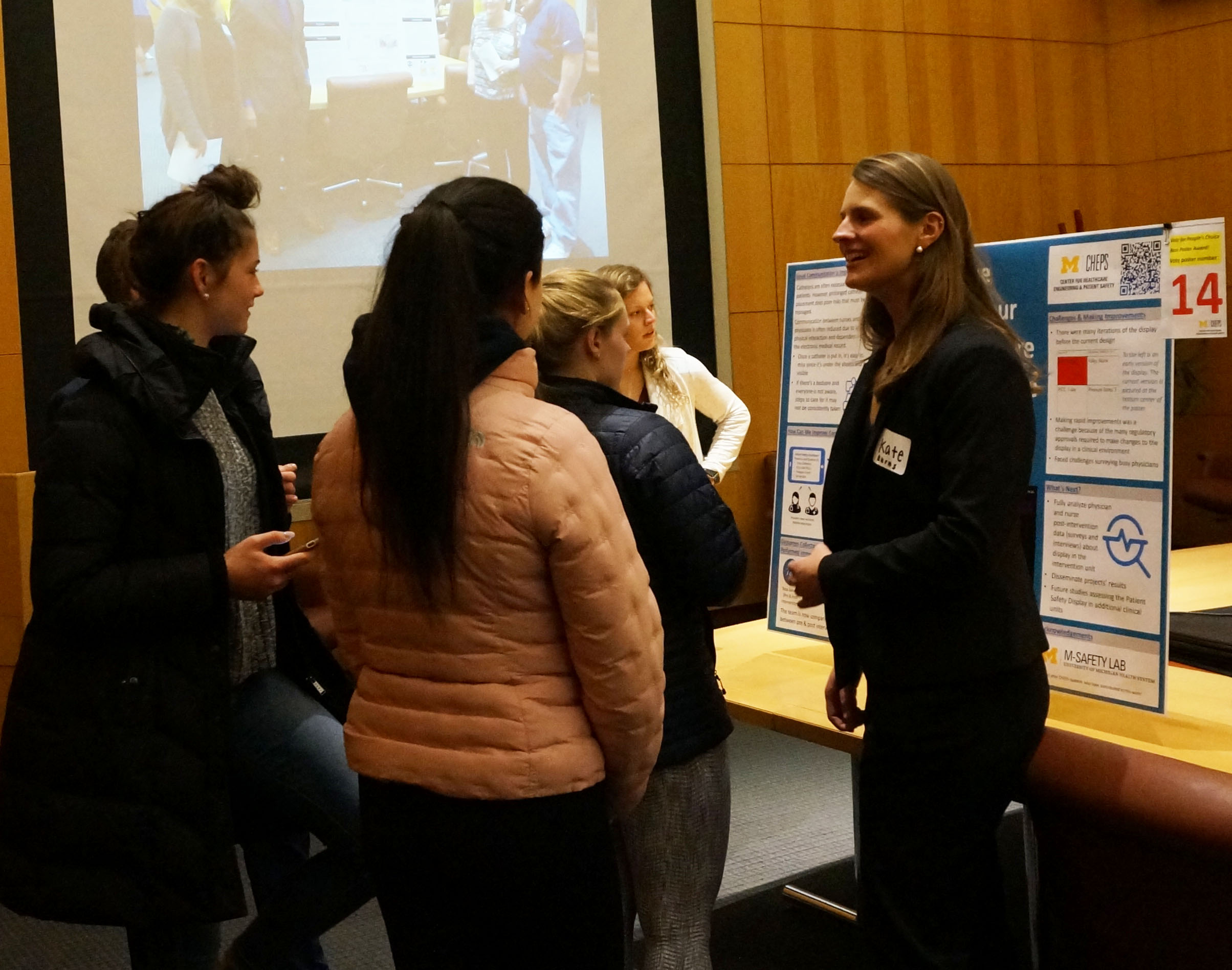 |
November 18, 2019
CHEPS community members gathered at the Annual Healthcare Engineering and Patient Safety Symposium on Monday, November 18th. The symposium attracted over 150 guests from the College of Engineering, School of Public Health, School of Nursing, Michigan Medicine, the VA Health System, the Institute for Healthcare Policy and Innovation, and many others interested in healthcare engineering and patient safety including several CHEPS alums. Attendees shared research posters, discussed their work, caught up with old friends and collaborators and made some new ones, and enjoyed delicious food and lively music. A video from the event is available below and photos and posters from the event can be viewed at the link.
|
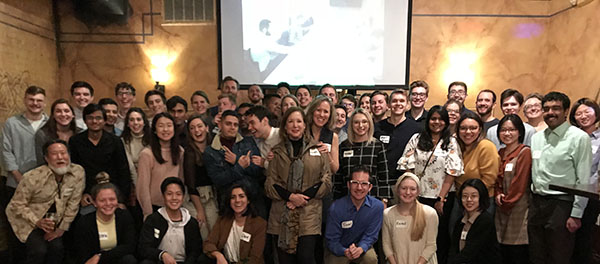 |
November 15, 2019
The Friday before our annual CHEPS Symposium, CHEPS alums, students, faculty, staff, and more gathered to enjoy dinner together at Conor O’Neill’s in downtown Ann Arbor. Alums returned from all over including Chicago, IL; Seattle, WA; and Laurel, MD. CHEPS has been around long enough now that not all of the alumni know one another but even those who hadn’t met before chatted like old friends. One of the highlights was seeing current students catch alumni up on the happenings at CHEPS and the progress made on some of our long-running projects. It’s always a pleasure bringing our alumni and students together. Donald Richardson and Bassel Salka, alums now working at the Johns Hopkins Applied Physics Laboratory, even held office hours in CHEPS on Monday, November 18th. They were able to give current students career and academic advice as well as insight on working at Johns Hopkins and some job and internship opportunities available there. |
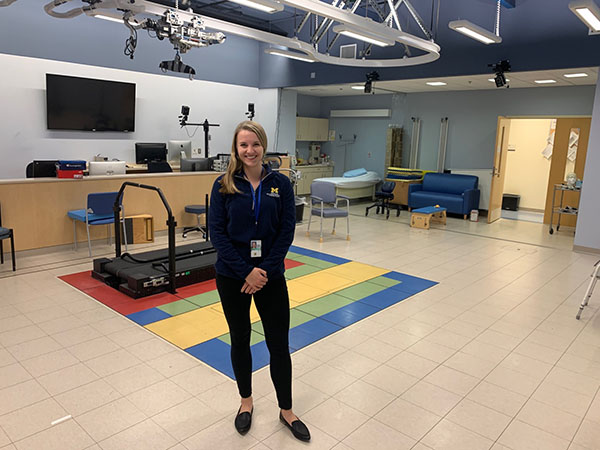 |
November 15, 2019
Lauren Hirth worked with CHEPS for three years as an undergraduate Biomedical Engineering student. After graduating in the spring of 2019, she started work at the National Institutes of Health. She recently checked in with an update about her work: “I am currently working as a postbaccalaureate research fellow at the National Institutes of Health Clinical Center. Specifically, I work in the Functional and Applied Biomechanics Lab in the Rehabilitation Medicine Department. My main project is a longitudinal study with infants that are at risk of a cerebral palsy diagnosis. I am using both EEG and near-infrared light technologies to monitor brain activity during different motor tasks. I am really looking forward to learning more about the onset and development of motor tasks in this population and hope to help bridge the gap between engineering applications and clinical diagnoses and treatments. I have also worked to standardize and streamline a new pipeline script that can be used by others in the lab to process EEG data. Just as I learned through my projects at CHEPS, there are always ways to improve the functioning of healthcare systems and processes!” Thanks to Lauren for the update! We love seeing our CHEPS alums continue to do exciting and innovative work. On the left, Lauren is pictured in the lab where she works. |
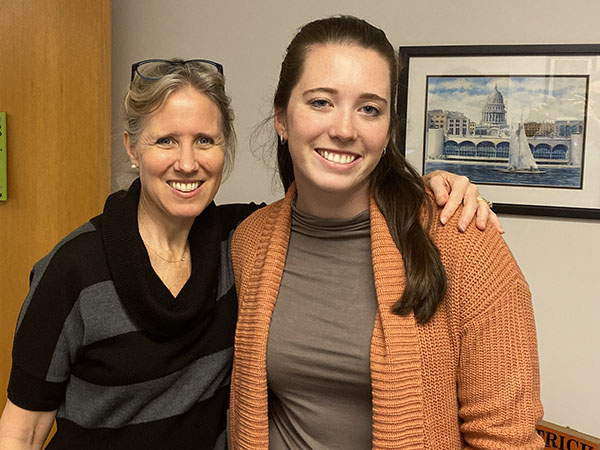 |
November 14, 2019
CHEPS had the pleasure of a visit from recent alum Sheridan Tobin recently when she returned to Ann Arbor for a football game. Sheridan, who graduated with her B.S. in Public Health in May 2019 worked at CHEPS during her final year of studies. She’s now working as a support counselor at a community-based mental health non-profit that serves young people in foster care and the juvenile probation system. She said that, while her job now is definitely different than what she did with CHEPS, she took what she learned at Michigan with her. “In working in the hospital systems, a lot of it is figuring out the logistics of how working in direct-care works. I think having some experience observing at hospitals and just being in the thick of it in a clinical setting, it looks different in community-based, but I think having some of that background was helpful,” she explained. “Also, when I came into CHEPS, I didn’t know anything about what CHEPS was doing. I was non-engineer learning all of that. And, in my current job, I don’t have a mental health background like my colleagues do. I’m kind of learning again in a different way how to take my background into something new and with people coming from different places so it’s interdisciplinary in kind of a similar sense.” Thank you for visiting, Sheridan! We love seeing our alums! |
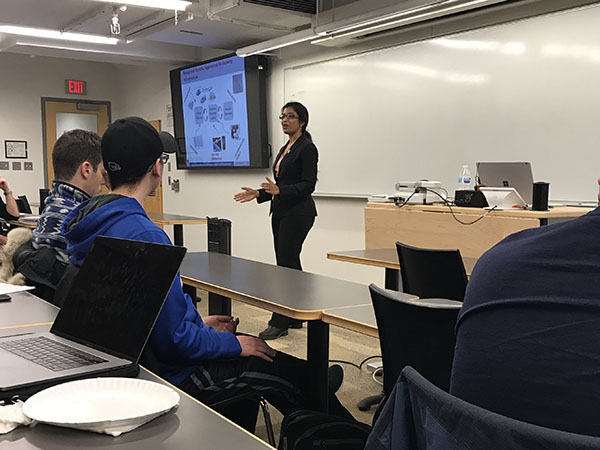 |
November 11, 2019
On November 11th, Dr. Lavanya Marla presented her work on “Data-Driven Greedy Policies and Performance Bounds for Ambulance Location and Deployment” as part of our Providing Better Healthcare Through Systems Engineering Seminar Series. Dr. Marla is an Assistant Professor in Industrial and Enterprise Systems Engineering at the University of Illinois- Urbana Champaign. Dr. Marla previously worked as a Systems Scientist with Heinz College at Carnegie Mellon University. Her research currently focuses on using data-driven optimization, statistics, and machine learning to construct robust, decision-making models specifically related to transportation logistics. Dr. Marla’s lecture outlined her work related to modeling and optimization of ambulance location and deployment. Her research started with observations of the ambulance system in India where only 750 ambulances are available per 75 million people. This highly resource-constrained system sparks questions about how access to a limited number of ambulances can be improved and optimized when adding additional ambulances to the system may not be possible. Dr. Marla and her colleagues worked model the current ambulance system using data from 10,000 emergency calls and by incorporating congestion and human behavior patterns. Use of the Greedy Algorithm allowed for simulation of system changes at various ambulance sites to see how the number of calls answered in 15 minutes or less, number of calls answered in 30 minutes or less, and the number of unserved calls could be affected or improved. By carefully determining model constraints, Dr. Marla and her colleagues were able to show that through static ambulance repositioning, they could improve the number of calls served in 15 minutes or less by 6.1% and by dynamic repositioning, improvements of 39% were possible. Through careful data analysis and proper constraint definition, complex real-world systems can be significantly improved and lives can ultimately be saved. We thank Dr. Marla for braving the terrible snowstorm to participate our seminar series and present her fascinating, complex, and impactful work. |
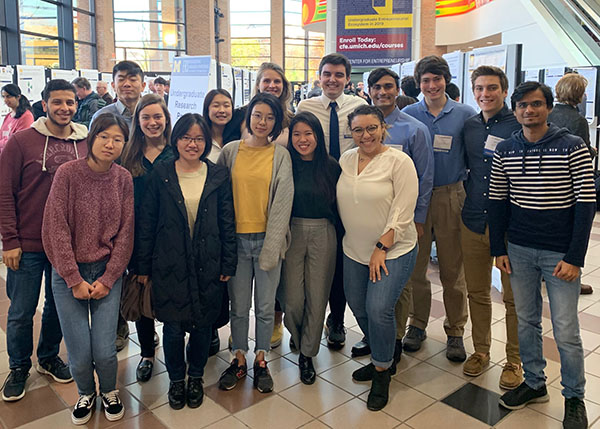 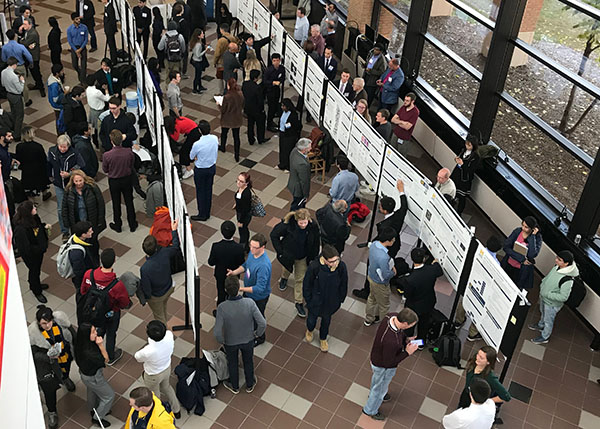 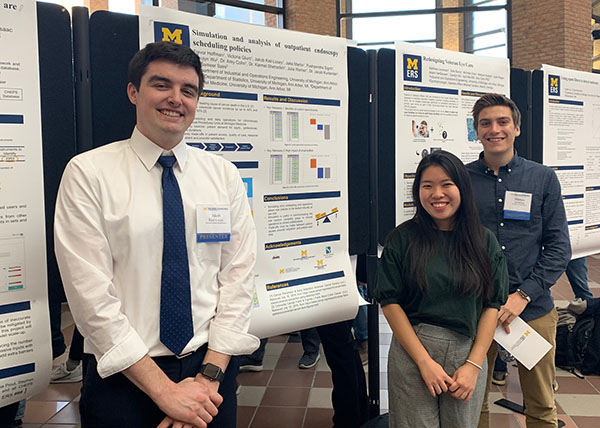 |
November 8, 2019
On Friday, November 8th, many CHEPS students presented at the Engineering Research Symposium (ERS). ERS is a university-wide event that showcases undergraduate and Ph.D. student research. CHEPS students had the opportunity to submit an abstract and poster for research projects that they are involved in at CHEPS! Here are the posters that were presented at the symposium:
This event gave students a chance to show off their work and network with other engineering students and faculty. Here are some quotes from CHEPS students about their experience during the symposium: “I think ERS was a fun experience. I loved that it was in the Dude so we could run into classmates and friends. I also think it was good practice for the CHEPS Symposium. It made me think about how to quickly explain the important parts of the project to someone that has no idea what the project is about. Usually we talk to collaborators or peers about our work, so it was good to get practice talking to other people prior to the symposium.” – Kate Burns “This symposium was a great experience for me to not only show off the great work we have been doing at CHEPS but to also learn about other impressive research being conducted throughout the university. Although my poster had minimal turnout, the people that did stop by seemed extremely interested and had interesting perspectives and ideas that our team had not previously considered.” – Matt Levenson “I really enjoyed being able to talk to other presenters about my project as it gave me valuable experience in being able to verbalize all that we have done since the summer. I also enjoyed being able to see other projects. Everyone’s projects were all very interesting!” – Luke Liu “I would say the ERS was a great opportunity to share our work with the other members of the Michigan Engineering community. I was happy to see so many people engaged and interested in the work we do on the TRAUMA team.” – Hannah Strat |
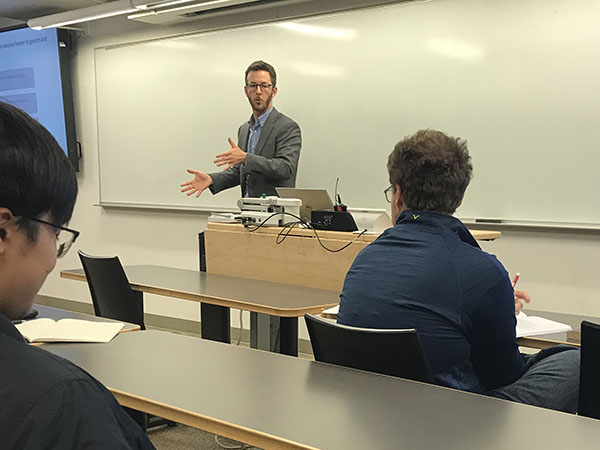 |
November 4, 2019
On November 4th, Michael Krautmann presented his work on “Improving Access to Medicines in Low- and Middle- Income Countries” as part of our Providing Better Healthcare Through Systems Engineering Seminar Series. Michael is an alumnus of the U of M Industrial and Operations Engineering Department and worked as a Peace Corps volunteer in Zambia for three years after graduating. Michael joined the William Davidson Institute Healthcare Initiative at the University of Michigan in 2015 and his research and consulting currently centers around strategy and decision-making to improve public health efficiency, services, and supply chain. Michael’s presentation highlighted his experience on the ground-level in Zambia where he worked to understand and identify supply chain inefficiencies in health care clinics. Lack of access to basic medications in many parts of the world is thought to be a direct result of bad roadways, lack of electricity, and other physical barriers when, in reality, many companies outside of healthcare have already successfully bridged those gaps to make their products available in the most remote areas of the world. Instead, Michael pointed to a lack of infrastructure and organization as the major barrier to proper healthcare access. In order to effectively convey the complexity of the supply chain system in countries like Zambia, Michael and his colleagues use detailed process maps, supply chain software tools, and relevant performance metrics such as clinic reporting rates and accuracy. Throughout his lecture, Michael stressed the importance of effectively presenting the problem when trying to motivate change and spark action, especially in the incredibly complex healthcare industry. Michael’s slides and a video of his talk are available for viewing. We thank Michael for taking the time to participate in our seminar series and sharing his valuable life experience and advice about navigating difficult healthcare problems and truly making an impact. Join us on Monday, November 11th when Lavanya Marla, Ph.D. will discuss “Data-driven Greedy Policies and Information-Relaxation Bounds for Ambulance Location and Deployment.” |
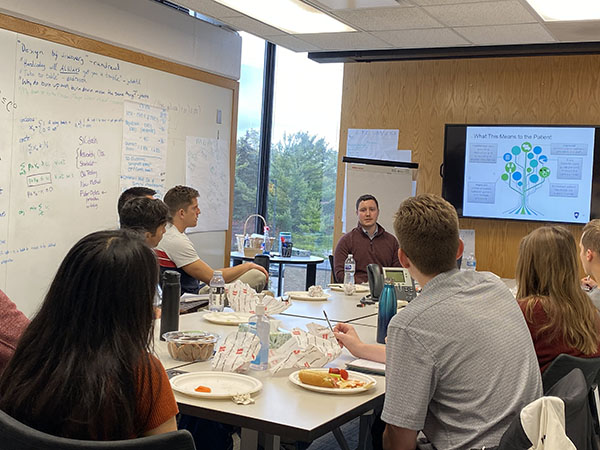 |
October 29, 2019
CHEPS alumnus Jason Card came back to the University of Michigan to give a Lunch & Learn discussing his experience working with the Johns Hopkins Applied Physics Laboratory (APL). The APL was started during World War II to develop a better way for the US Navy to combat fighter planes. From that point, they have started to tackle different challenges, such as developing technology to allow a paraplegic to use prosthetics, a tool to manage epidemic outbreaks, and a tool to reduce healthcare-associated infections. When it comes to healthcare research they hope to revolutionize health through science and engineering. Jason’s main focus of work is on value-based care and the musculoskeletal (MSK) applied value atlas. For value-based care, the project goal is to create a patient-centered healthcare process. The idea behind this is to get coordinate multiple specialists in one facility and get them to talk about complex patients together. By doing this, it reduces the number of appointments needed and allows the doctors to effectively communicate with one another. In regards to the MSK applied value atlas, they want to be able to create an atlas of historical data on injuries in the military. With this data, they will be able to accurately predict which occupations and areas are susceptible to specific injuries. In addition to an alumnus working on it, our own CHEPSter Jordan Goodman interned at the APL this summer and helped Jason with this project! Jason also filled attendees in on the positions APL will be looking to hire interns and graduates in soon and took the time to talk one-on-one with several CHEPS students. Thank you, Jason, for traveling back to UofM to discuss ways to apply the knowledge we learn in CHEPs. |
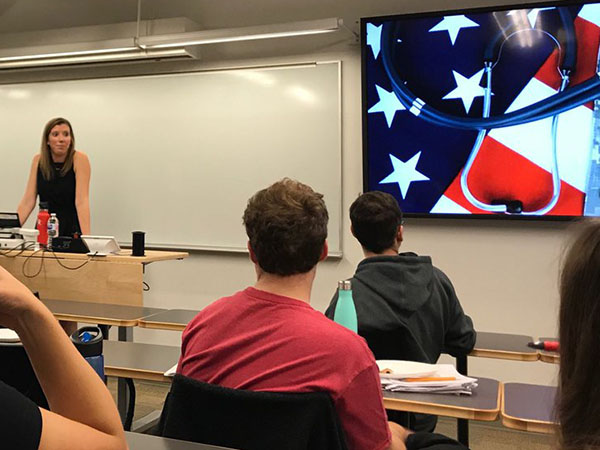 |
October 28, 2019
On October 28th, Katie Esper presented her work on “Applying Systems Engineering to Ensure Military Readiness and Health” as part of our Providing Better Healthcare Through Systems Engineering Seminar Series. Katie Esper joined the Johns Hopkins University Applied Physics Laboratory in 2010 as a health systems engineer and is currently the Program Manager of Force Health and Readiness. Her work centers around a mission to ensure a medically ready force, ready medical force, and delivery of safe and effective healthcare across all military and humanitarian missions. Katie is also an alumna of the University of Michigan Industrial and Operations Engineering Department. During her presentation, Katie highlighted the dual mission of the U.S. Military Health System which consists of the readiness and benefit missions. The readiness mission focuses on ensuring that there is a medically ready military force as well as a ready medical force to be deployed in wartime and on humanitarian missions around the world. The benefit mission refers to providing healthcare benefits to the 9.5 million military health beneficiaries in the U.S. Both of these missions present unique engineering challenges related to the determination of readiness measures, root cause analysis, and prevention of injuries sustained during training, and prediction of materials, staff, and other resources needed at military hospital sites. The medical force deployed on these missions must be adequately prepared for the scenarios that they are likely to encounter. In peacetime, it is critical to ensure that medical staff have opportunities to practice their skills in complex trauma cases through hospital experience or simulation. By employing systems engineering approaches, Katie and her colleagues tackle these challenging problems in order to ensure the safety, health, and welfare of our military personnel and those who support the front lines. We thank Katie Esper for participating in our seminar series and highlighting the important and often overlooked challenges present in our military health system today. |
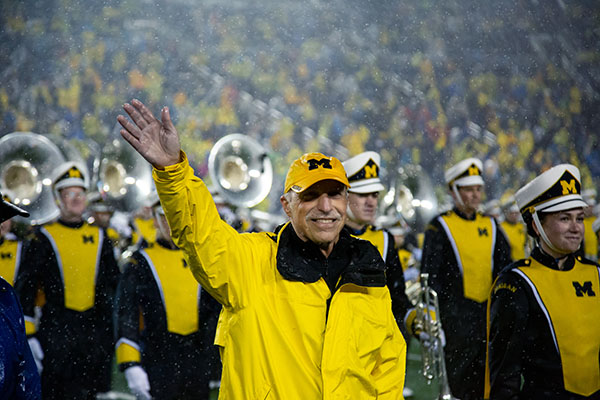  |
October 26, 2019
On Saturday, October 26, 2019, the Michigan Marching Band performed a halftime show titled “We Choose to Go” in honor of the National Aeronautics and Space Administration (NASA). The halftime performance at the University of Michigan vs. Notre Dame football game was a celebration of the long-standing collaboration between the University and NASA as well as the 50th anniversary of Apollo 11’s moon landing. The band performed several space-related songs and created formations such as a rocket and the NASA logo on the field. CHEPS Director Jim Bagian, a former NASA astronaut, joined the band on the field during their performance along with many other special guests. — Written by Liz Fisher, CHEPS Staff |
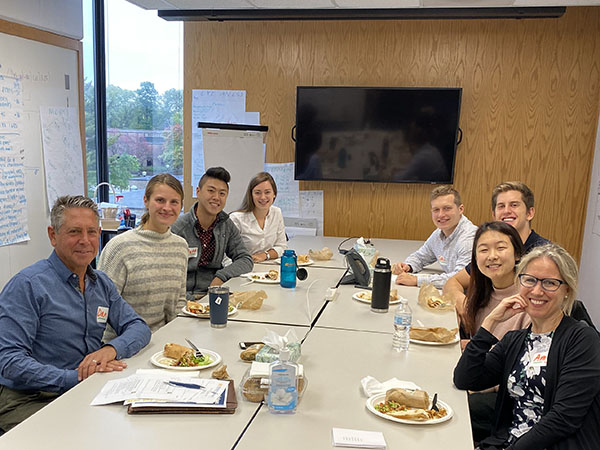 |
October 25, 2019
On Friday, October 25th, University of Michigan alum and Friend-of-CHEPS Dan Herman returned to campus to get to know some of our current CHEPSters as well as give a talk about his experiences in industry and consulting. After graduating from the University of Michigan in 1982 with a degree in Industrial and Operations Engineering, Dan began his career in the Healthcare IT industry and later founded Aspen Advisors. Now he works as a self-employed consultant and enjoys hiking throughout Colorado’s mountains in his spare time. Dan and a group of CHEPS students had a casual lunch together. And CHEPSters were able to exchange questions and get to know Dan on a personal level. With over 35 years of experience in the field of healthcare analytics, Dan provided lots of tips to help us succeed in our future endeavors. He stressed the importance of building relationships early on and expanding upon personal networks in order to ensure opportunities in the future. He also emphasized the value of building a reputation for being dependable, hardworking, and productive, as well as having meaningful mentors and asking questions whenever possible. A huge thanks to Dan Herman for taking the time out of his schedule to visit us! We look forward to seeing him again in the future! |
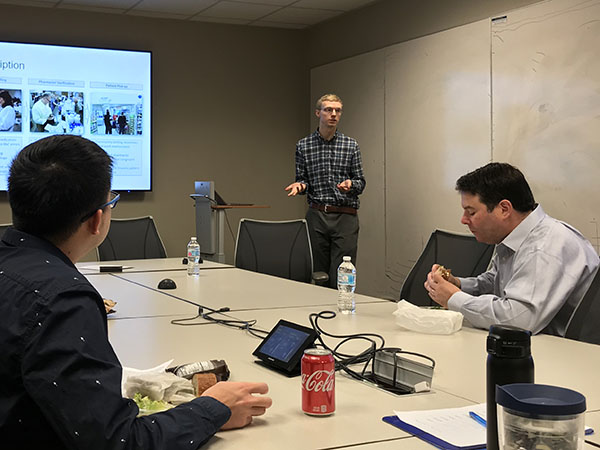 |
October 25, 2019
CHEPSters attended the IOE Lunch and Learn seminar “Leveraging Pharmacy and Medication Data to Improve Human Health” by Dr. Corey Lester of the U-M College of Pharmacy on Friday, October 25th. Dr. Lester spoke about his research on improving patient safety through efforts to reduce medication dispensing errors in community pharmacies. He described some background on the operations of community pharmacies and presented his Medication Event Framework showing how dispensing errors happen; he then spoke about his upcoming research on solutions to these issues. We look forward to hearing more about Dr. Lester’s awesome work in the future! |
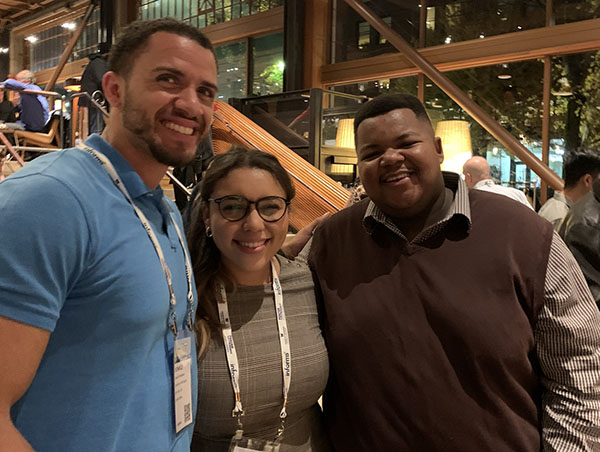 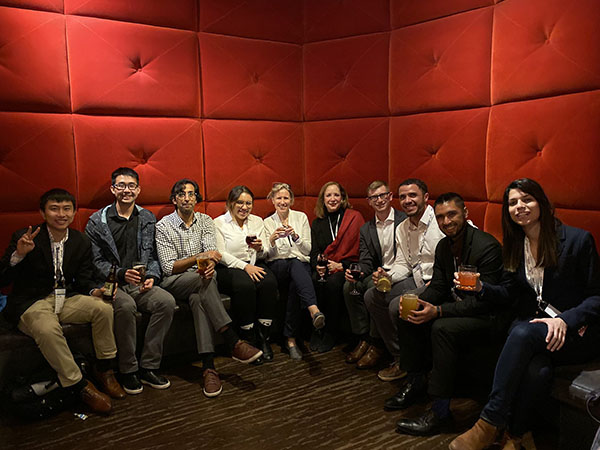 |
October 23, 2019
CHEPS students, alumni, and faculty attended the 2019 INFORMS Annual Meeting in Seattle, Washington from October 20th-23rd. The INFORMS Annual Meeting brings together academic researchers and industry thought leaders working in the fields of operations research, management sciences, and data analytics. The CHEPS presentations included:
INFORMS was a great opportunity for current CHEPS students to visit with alumni who are continuing their great work of moving healthcare forward using engineering tools. Current students particularly enjoyed seeing Drs. Karmel Shehadah and Donald Richardson, two CHEPS alumni who each defended their dissertation earlier this year. Students also attended several sessions from colleagues doing great work at other institutions, including Northeastern University, North Carolina State University, and Mayo Clinic. Students who attended said their favorite thing about attending this year was: “I met Peter Jackson, the advisor of my Master’s degree’s very first case study project, at the AAS dinner. Peter had given us a lot of great advice and help for the project and also for the whole Master’s journey. Not long after the project, he retired and went to SUTD in Singapore, so it feels really amazing to be able to meet and greet him again.”-Junhong Guo, IOE Ph.D. Student “Watching Dr. Jenna Wiens [Assistant Professor, Computer Science and Engineering] present for the first time at INFORMS on learning from clinical time series…she was eloquent and very inspiring to me. She was part of the session in which I presented, which was empowering because she is a powerhouse. Others in the session included Dr. Marina Epelman [Professor, Industrial and Operations Engineering] and Carolina Riascos [Ph.D. student, University of Toronto]. I felt honored to be part of such a strong session of women making a difference in healthcare” – Amanda Moreno Hernandez, IOE Masters student “Getting to share a newer project on access to specialty care for rural patients. This is a newer project and it was my first time sharing it outside of CHEPS. There was great feedback and many new ideas that I’m excited to explore. I am thankful to Dr. Kayse Maass (Assistant Professor, Northeastern University) for inviting me to speak in the session. My second favorite part of visiting Seattle was the Cinnamon Works cookies!” – Adam VanDeusen, IOE Ph.D. student Additional highlights of the conference included a “Michigan Night” reception at the Starbucks Reserve Roastery, exploring Pike Place Market, and of course, catching up with Mrs. Merrill Bonder. [View photos from the conference.] — Written by Adam VanDeusen, IOE Ph.D. Student |
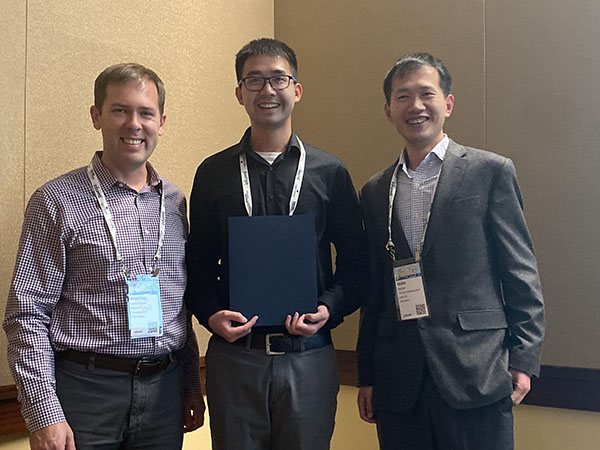 |
October 20, 2019
On Sunday, Oct 20th, CHEPS Associate Director Amy Cohn and current Ph.D. student Junhong Guo attended the business meeting held by Aviation Applications Section (AAS) during the annual INFORMS meeting in Seattle, WA. During the award ceremony at the end of the meeting, Junhong was awarded Honorable Mention for the AAS 2019 Best Student Presentation Competition, where he presented his work on “A Delayed Column Generation Approach for Solving a Cargo Crew Scheduling Problem”. This research has been generously supported by many other CHEPSters and staff during the past one and a half years, and wouldn’t be such a success without their great help! Following the meeting, Junhong joined with several other AAS members, had dinner at Hard Rock Cafe Seattle, and furthermore exchanged thoughts and ideas not only on aviation but also on healthcare applications. |
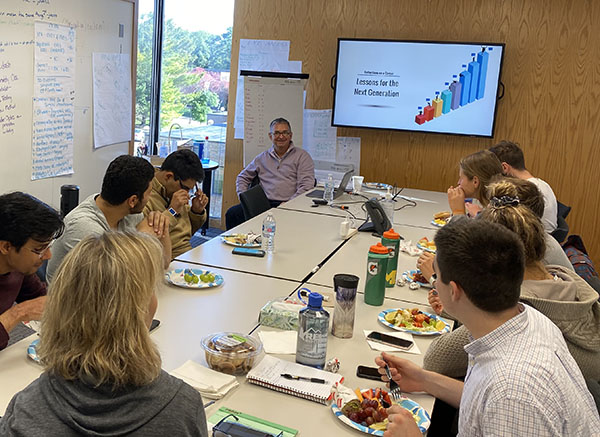 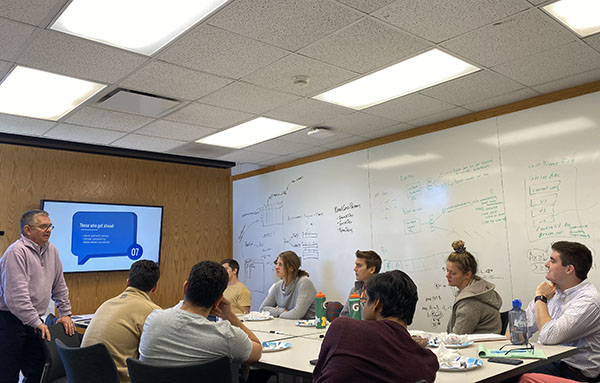 |
October 18, 2019
Friend-of-CHEPS Mark Van Sumeren took time out of his busy schedule (including welcoming a granddaughter to the family this week!) to speak with CHEPSTERs this past Friday. Drawing on his vast experience in the industry, Mr. Van Sumeren shared seven key tips on launching a successful career in healthcare. Mark described his career as “anything but a straight line” and shared his journey from UM to the Detroit Medical Center to Ernst & Young to Owens & Minor before starting his own consulting firm, Health Industry Advisor LLC. In brief, Mr. Van Sumeren’s seven tips were: 1. Healthcare is a great career industry, due to the passionate workforce and need for talent with IOE skills. 2. You must reinvent yourself continually by growing your skillset to match the needs of the industry. 3. Lifelong learning is key! You must surround yourself with people from whom you can learn and who want to learn from you. 4. Culture matters! If the culture of the organization you find yourself in is toxic, run! 5. Passion is everything! “Go where it takes you, leave when it’s gone.” If you’re not passionate about the work you’re doing and don’t have that same “drive” it’s time to find a new problem to solve and place to do it. 6. Take on the problem that no one else will, by finding a tough problem and attacking it. If you choose the problems you want to solve, you won’t get stuck with the uninteresting ones. 7. Those who get ahead: Work well with others, deliver consistently, and make others successful. Above all else, Mr. Van Sumeren emphasized that those who have a “Hall of Fame” career find ways to make the people around them successful. He relayed the anecdote that at Ernst & Young, the measure of success for Partners was not how many projects they sold, but how many other partners they made. Mr. Van Sumeren fielded several questions from students including sharing that to motivate training coworkers on a task, you have to get over the “It’s faster to do it myself” attitude. By focusing on the time you’ll save not having to do the task next time and the benefits of having a new set of eyes on the problem, you set yourself and your coworkers up for success. He also shared some of the nuances of working in different corporate structures including non-profit, partnerships, publicly traded, and private equity. Mr. Van Sumeren also reminded students that perceived risk in a career move should be viewed as exciting rather than daunting since it represents an opportunity for growth. Thanks to Mr. Van Sumeren for sharing so many valuable insights and taking the time to carefully consider students’ needs as they enter their next phase of life. We look forward to having you visit CHEPS again in the future. |
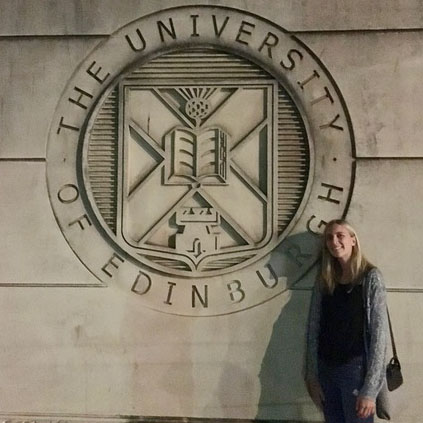 |
October 18, 2019
CHEPS alum Chloe Smither recently completed her MSc in Operational Research at The University of Edinburgh. Her master’s thesis was titled “Integer Programming Formulations for Edge Deletion Problems.” Chloe got her B.S.E. in Industrial and Operations from the University of Michigan and worked with CHEPS for nearly two years of her undergraduate career. Now that she’s completed her master’s Chloe is working out of London as a Data Analyst at British Airways. We hope she’ll make it back to the States and Michigan to visit us at CHEPS occasionally! |
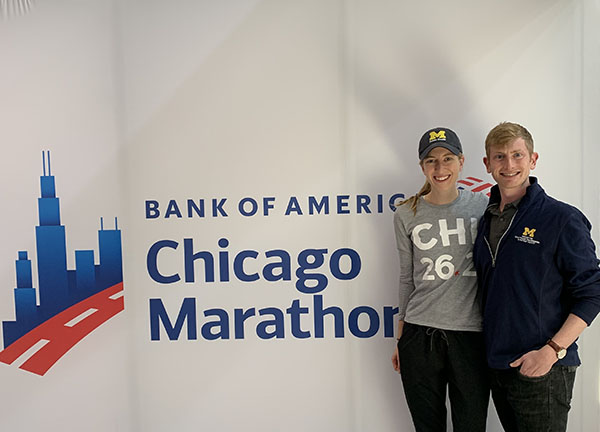 |
October 13, 2019
CHEPS took over the 2019 Chicago Marathon. Current CHEPSter, Adam VanDeusen, and CHEPS alumna, Sarah Bach, ran 26.2 miles around the windy city on October 13. Adam and Sarah kept each other motivated remotely throughout months of training, leading to each of them earning their best marathon times on race day. They look forward to cracking more personal records at future marathons! |
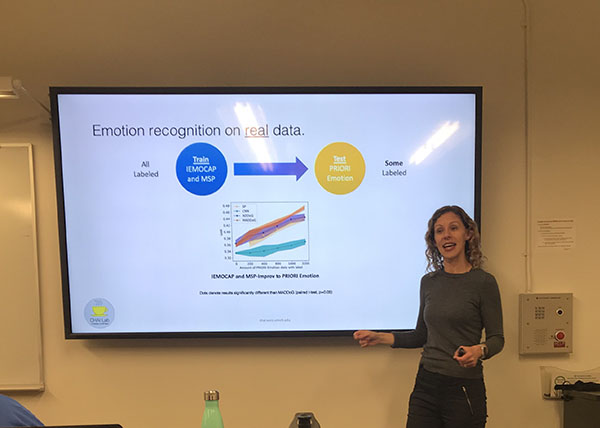 |
October 7, 2019
On October 7th, Dr. Emily Mower Provost presented her work on “Human-Centered Computing: Using Speech to Understand Behavior” as part of our Providing Better Healthcare Through Systems Engineering Seminar Series. Dr. Mower Provost is an Associate Professor in Computer Science and Engineering at the University of Michigan. Her research is focused on analysis and modeling of complex human behavior and expression of emotion for potential applications in improving diagnosis and treatment techniques for mood disorders. Using algorithm approaches, Dr. Mower Provost and her colleagues aim to characterize and predict human behavior, emotions, and moods. Although speech analysis has applications in several fields, Dr. Mower Provost highlighted the use of speech assessment and algorithms for monitoring bipolar disorder. Human speech patterns are incredibly complex and are influenced by many external factors such as the environment in which people are speaking, the personality of the speaker, emotions, and lexical content of the conversation. Pharmaceutical treatments do currently exist for bipolar disorder, however, patient compliance can be problematic. Frequent check-ups and potential rehospitalization can be incredibly costly and often follow potentially catastrophic manic and depressive episodes. Within the Chai Lab, Dr. Mower Provost focuses on audio-visual emotion modeling and assistive technology development to track mood patterns of bipolar patients, monitor patient conditions, and predict possible manic or depressive episodes before they occur. Personal and clinical assessment calls of bipolar patients and healthy controls were monitored by the research team (with participant consent) over a 6-12 month period and speech patterns were annotated for rhythm and acoustics. After several years of work to control data variability, the team was able to successfully demonstrate a correlation between mood and emotion and valence (positivity) and activation (energy) which has immense potential to be applied in clinical mood disorders as well as other diseases. A video of the presentation is available for viewing. We thank Dr. Mower Provost for her presenting her outstanding work and we are excited to see where this data can be applied in the future. There will be no seminars on Monday 10/14 and 10/21. Please join us again on Monday, October 28th when Katie Esper, MPH, MHCDS of Johns Hopkins APL presents “Applying Systems Engineering to Ensure Military Readiness and Health.” |
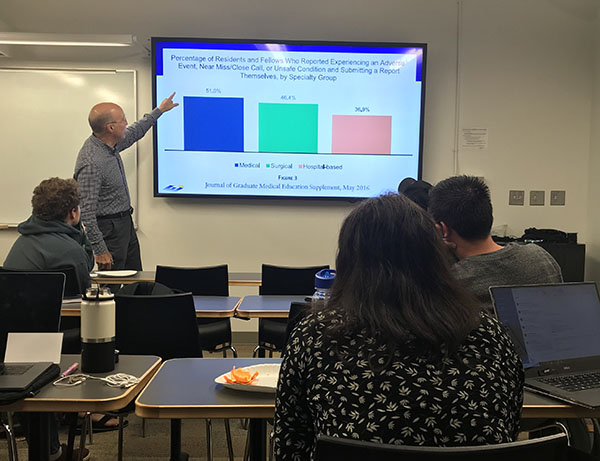 |
September 30, 2019
On September 30th, Dr. James Bagian presented his work on “Embedding Patient Safety into the Fabric of an Organization: Critical Elements to Make it Happen” as part of our Providing Better Healthcare Through Systems Engineering Seminar Series. Dr. Bagian is the Director of the Center for Healthcare Engineering and Patient Safety and a Professor of Anesthesiology in the Medical School and College of Engineering at the University of Michigan. He served as the first Director of the VA National Center for Patient Safety (NCPS) and the first Chief Patient Safety Officer for the Department of Veteran’s Affairs from 1999 to 2010 where he launched numerous patient safety programs and tools that have been adopted worldwide. Dr. Bagian also served as a NASA astronaut on two Space Shuttle missions and was an investigator of both the Challenger and Columbia space shuttle disasters. His work currently centers around implementation of systems engineering approaches to the investigation and analysis of adverse medical events to offer solutions, prevent repeat occurrences, and enhance patient safety. Throughout his lecture, Dr. Bagian drew parallels between adverse events and statistics in the aviation and healthcare industries. The differences in the reporting of adverse events and employment of corrective actions between the two industries was striking. A 2010 study carried out by the Center for Medicare and Medicaid Services (CMS) found that approximately 1.5% of patients treated in hospitals die per year as a result of adverse medical events. Another 27% of patients were victims of adverse events resulting in temporary or permanent injury. Dr. Bagian highlighted the impact that culture within the healthcare industry has on the occurrence of these events. The “compliance culture” in which care providers uncritically and robotically follow rules and regulations rather than actively considering the appropriateness of the policy or procedure for the individual being treated and when necessary questioning before acting can be very dangerous. Shifting to a “safety culture” is essential to avoid shaming of individuals who make mistakes and to encourage proper reporting of close-call or near-miss events that can be studied to employ effective solutions that prevent harm in the future. In healthcare, there is an expectation that people will never make any mistakes which is simply impossible. Through his work with the VA and at Michigan Medicine, Dr. Bagian has shown how systems engineering approaches related to patient safety can change the culture within the hospital and attitudes that focus on identifying the underlying root causes and contributing factors so that meaningful and sustainable countermeasures and improvements can be implemented. Offering new tools and programs to support accident reporting, including close calls, and swift systems-based corrective actions can ultimately ensure patient safety and save lives. We thank Dr. Bagian for his engaging presentation and for bringing his unique perspective and background to the extremely important topic of patient safety. Join us for our next seminar on October 7th at 4:30 pm in 1123 LBME when Emily Mower Provost, PhD discusses “Human-Centered Computing: Using Speech to Understand Behavior.” |
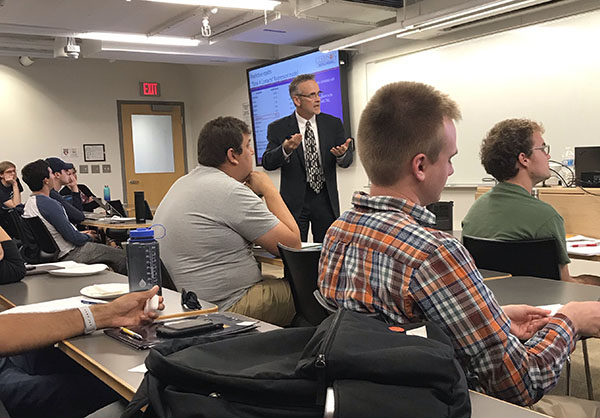 |
September 23, 2019
On September 23rd, Dr. Kevin Taaffe presented his work on “The Impact of Communication, Coordination, and OR Design on Surgical Patient Flow and Safety” as part of our Providing Better Healthcare Through Systems Engineering Seminar Series. Dr. Taaffe is the Harriet and Jerry Dempsey Professor of Industrial Engineering at Clemson University and worked in the transportation logistics industry for American Airlines and Sabre earlier in his career. His research centers around the use of simulation models to optimize patient and provider workflows in the clinical environment. During his lecture, Dr. Taaffe focused on the use of simulations to pilot a mobile application designed to map patient flows through the perioperative stages of surgery and to optimize operating room design. The perioperative stage of surgery includes pre-operation, during operation, and post-operation care. As you can imagine, there are several tasks involved in moving patients through this process and communication and coordination between various job functions are essential. The complexity of this process can make communication between lab technicians, nurses, physicians, surgeons quite challenging. As a result, Dr. Taaffe and his team sought to streamline the process of updating and accessing patient statuses through the Periop Mobile Learning System (PeriopMLS). PeriopMLS is a mobile application for Android phones which organized patient status updates through a convenient checklist and color-coded system. Nurses and clinicians could use this application to see completed and upcoming tasks for each of their patients. Dr. Taaffe and his team made use of ARENA simulation modeling to pilot this application without disrupting the clinical environment through a live test. The use of simulation modeling to test the application provided the team with valuable feedback and the opportunity to train users. User feedback and application prototypes were passed onto Epic to potentially integrate and improve features of the current electronic medical record system. Dr. Taaffe’s second project involved collaboration between his engineering team and architects to determine key design considerations affecting work-flow in the operating rooms. Clutter caused by equipment and people in the OR can pose safety risks to patients and providers. After studying video recordings of 35 procedures and noting contact events (when individuals were with 0.6m of each other) and traffic patterns, Dr. Taaffe and his team developed a simulation model to determine how several factors including room size, number of doors, number of staff members, table orientation, location of nursing workstations, and procedure type influence the total number of contact events between staff members. One interesting finding was the statistically significant impact of table orientation on contact events. The impact of design factors can be further assessed to determine optimal room design and potential impact of design choices. Dr. Taaffe’s slides and a video of his talk are available for viewing. We thank Dr. Taaffe for participating in our seminar series and demonstrating the importance of stakeholder and user feedback to improve our healthcare system and workflows. Join us for our next seminar on September 30th at 4:30 pm in 1123 LBME when CHEPS Director Jim Bagian, MD, PE discusses “Embedding Patient Safety into the Fabric of an Organization: Critical Elements to Make it Happen.” |
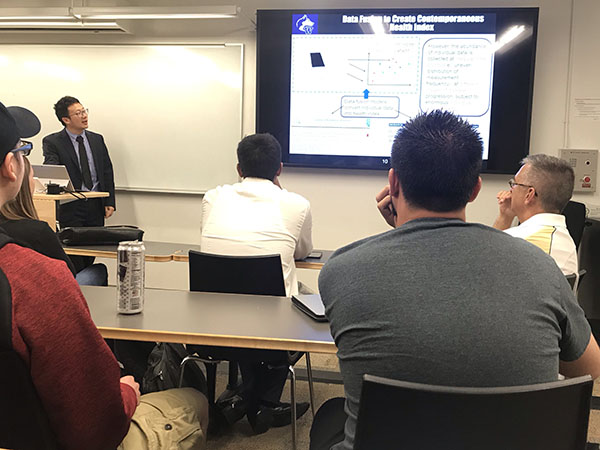 |
September 16, 2019
On September 16th, Dr. Shuai Huang presented his work on “Smartphones Medicalized, with Data Analytics for Complex Disease Management” as part of our Providing Better Healthcare Through Systems Engineering Seminar Series. Dr. Huang is an Associate Professor in the Department of Industrial and Operations Engineering and an adjunct faculty member in the Department of Biomedical Informatics and Medical Education (BIME) and the Integrated Brain Imaging Center (IBIC) at the University of Washington. His research focuses on the development of new methods for modeling, diagnosing, and monitoring complex network diseases such as Alzheimer’s disease, Type I diabetes, and clinical depression. He also works to develop statistical and data mining tools for a variety of large datasets including genomic, neuroimaging, and demographic data to facilitate new scientific discoveries. In his presentation, Dr. Huang highlighted the potential of using smartphone data to track disease trajectories and monitor patient conditions. Currently, 81% of adults in the U.S. own smartphones which can track, collect, and store enormous amounts of data ranging from GPS to audio/video recording to proximity sensing. By harnessing the data tracked by our phones, we can gather valuable behavioral data which can be used to track diseases such as Alzheimer’s and depression. Dr. Huang gave examples of video and audio data that can be used to diagnose and monitor patients through their speaking patterns and facial expressions recorded on smartphones. Biomarkers such as changes in the distance between facial features and the ratio of laughter to words when we talk can be indicative of depression. Development of new methods for sorting the data recorded by smartphone technology offers exciting new ways of informing physicians with real-time patient data recorded outside the clinic. Painting a more complete picture of the patient’s responses to treatment can allow for the design of more precise treatment plans and connect patients with accurate and valuable health information. Dr. Huang’s slides and a video of his talk are available for viewing. We thank Dr. Huang for his willingness to participate in our seminar series and present his fascinating work. Join us for our next seminar on September 23rd at 4:30 pm in 1123 LBME when Kevin Taaffe, Ph.D. discusses “The Impact of Communication, Coordination and OR Design on Surgical Patient Flow and Safety.” |
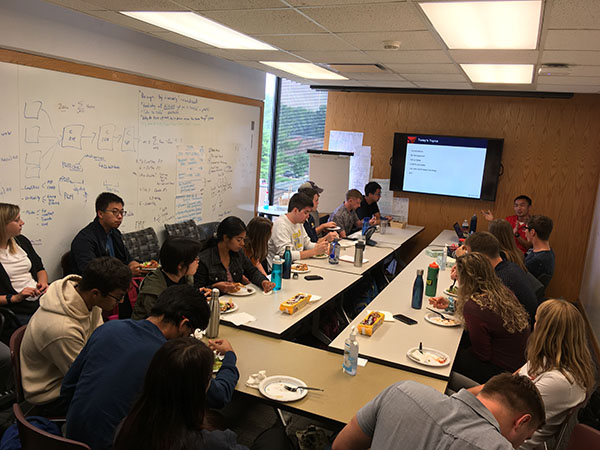 |
September 9, 2019
George Tam, a CHEPS alum who earned his B.E. in Industrial and Operations Engineering in 2014 and M.Eng. in the same field in 2015, returned to campus this week as to recruit for Delta Airlines where he’s employed as Senior Analyst in Transatlantic Revenue Management. While in Michigan, he also stopped by his old stomping ground at CHEPS. In addition to giving a Lunch & Learn for an audience of about half CHEPSters and half IOE undergraduates, he spent the day at CHEPS, having informal conversations with students. “Whenever I meet with students, it’s a two-way street,” said George. “I tell them about Delta or give career advice, but I learn from them as well.” And, we got the benefit of not one but two CHEPS and IOE alums! Sanjeev Muralidharan who also works as a Network Planner at Delta, spent much of the day at CHEPS as well and chimed in with many helpful insights during George’s Lunch and Learn and the Q&A session after. Dean Golan, an IOE undergraduate, said, “Having the chance to speak with George one-on-one about his experiences at Delta provided me with an in-depth understanding of network planning and revenue management career opportunities. I am also now incredibly interested in pursuing a career in the airline industry, so I am very grateful for this opportunity!” In his Lunch and Learn presentation, George discussed how all of the aspects of IOE that are involved in his work at Delta Airlines. “In scheduling, I’ve used so many IOE 310 and 510 skills,” he mentioned. He also pointed out that aviation and the work students are doing at CHEPS isn’t as different as some might imagine. “The beauty with healthcare and aviation is there are transferable skills and concepts,” he said. Another tie between CHEPS and the airline industry George observed was the importance of cross-collaboration. As an example, he cited an app Delta developed to allow all employees involved with a flight, from catering to the flight crew to gate agents, to talk with one another. He compared to his time at CHEPS where, as an engineer, he was able to collaborate with healthcare practitioners and gain valuable insights on how to solve problems in the healthcare industry. Another area where George had some excellent insights to share was preparing for career fairs and corporate information sessions. He’s been recruiting for Delta for several years and emphasized the importance of the 4 Ps to students, “print (resume and what you’ve achieved), pitch (what makes you unique), personality (Would someone want to work with you?), passion (Would you like working here?).” He also helped students with some factors to consider when deciding whether to pursue grad school or a full-time job after their undergraduate studies. In all decisions, he urged the students to “Think about your aspirations. Where do you want to be later in life, not just next year?” George wrapped up his presentation by encouraging attendees to consider several factors when deciding on their first full-time job: work/life balance, opportunities for mentorship, building bridges, maintaining bridges, and productively addressing setbacks. |
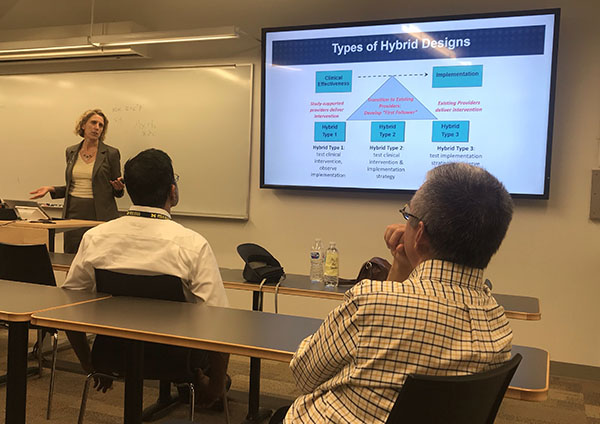 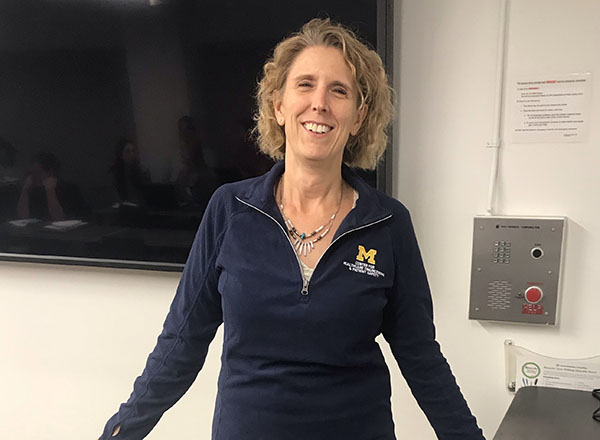 |
September 9, 2019
This week, Dr. Amy Kilbourne presented her work on “Driving Innovation, Implementation, and Sustainability in a Learning Health System” as part of our Providing Better Healthcare through Systems Engineering Seminar Series. Dr. Kilbourne is the Director of the VA Quality Enhancement Research Initiative (QUERI) and a Professor of Psychiatry at the University of Michigan Medical School. QUERI aims to improve the health of veterans in 40 cities nationwide by accelerating the implementation of researched treatments and therapies in real-world practice. Currently, the lead time for implementing new, researched treatments on the frontline is approximately 17 years. As you can imagine, this timeline stalls innovation and prevents the improvement of patient outcomes which can be incredibly frustrating for researchers, clinicians, and patients alike. In her presentation, Dr. Kilbourne attributed treatment implementation failures to the lack of organized implementation strategies, education, and methods of training for frontline clinicians. So-called “late adopter” healthcare sites frequently delay implementation of new treatments due to low bandwidth, newly established competing innovations, or competing priorities. To address the hesitations of late-adopting sites, QUERI works to combat their concerns by providing education through internal and external facilitators and replicating effective programs (REP). Additional facilitators and support are offered to sites that prove more difficult to engage through enhanced REP programs. In addition, Dr. Kilbourne discussed the innovative use of Sequential Multiple Assignment Randomized Trials (SMART) to inform the development of adaptive intervention strategies and better accommodate the changing needs of sites and individuals. Through the organized implementation plans offered by these initiatives, improved patient outcomes have been recorded and other potential applications including mental health treatment access in schools are being explored. Dr. Kilbourne’s slides and a video of her talk are available for viewing. We are so grateful for Dr. Kilbourne’s engaging lecture and her incredible work to improve mental health outcomes of our beloved veterans. Join us next week on September 16th when Shuai Huang, PhD presents “Smartphones Medicalized, with Data Analytics for Complex Diseases Management.” |
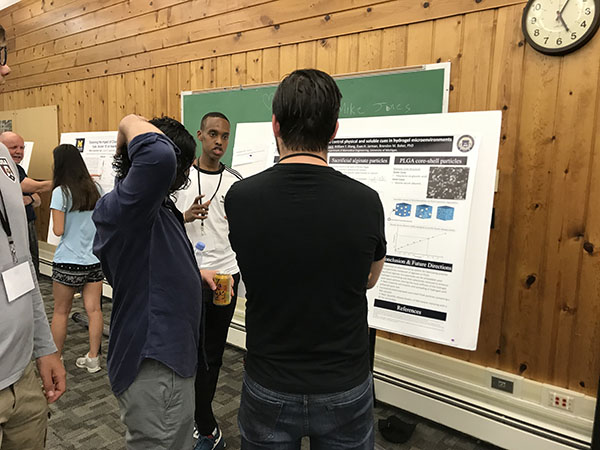 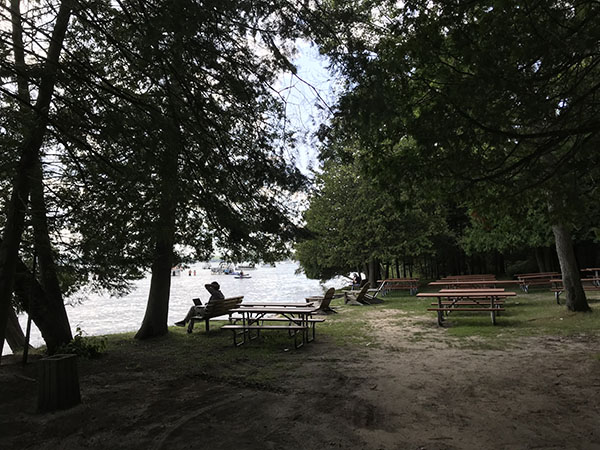 |
August 29, 2019
CHEPS Associate Director Amy Cohn had the privilege of speaking to students in the University of Michigan Medical Scientist Training Program (MSTP) at their annual weekend retreat at the Ralph A. MacMullan Conference Center on Higgins Lake this August. The MSTP Program “prepares physician-scientists for careers in academic medicine” by enabling them to pursue their M.D. and Ph.D. simultaneously. While many of the students are pursuing Ph.D. in a field that is traditionally paired with medicine such as biology, there are a growing number of students from less common fields including some from the Industrial and Operations Engineering Department. In fact, CHEPS collaborator and IOE Ph.D. student Erkin Otles introduced Professor Cohn before her talk and hosted her during the event. “I enjoyed getting to spend some time informally with the students and appreciated doing so near the beauty of Higgins Lake,” said Professor Cohn. “I was particularly impressed by the poster sessions and really enjoyed talking to the undergraduates who were participating in the retreat. I hope to see some of them at CHEPS in the future.” Her presentation was titled “An Engineer’s Perspective on How to Improve Healthcare Delivery.” While she was prepared with fifty slides, Professor Cohn was only able to get through about ten of them due to having so many questions during her presentation and engaging in a lively discussion with the attendees. “It was exciting to see how many students, even in more traditional fields, were interested in ways that engineering could contribute to healthcare,” she said. “I’m grateful for the opportunity to present at the retreat and to connect with these students. I hope the relationship between CHEPS and MSTP will continue to grow.” |
 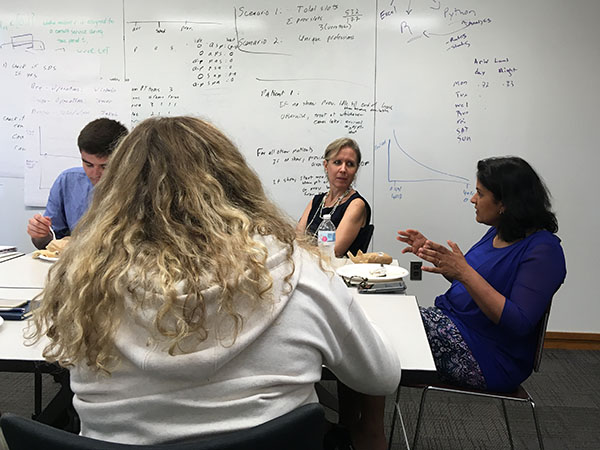 |
August 21, 2019
On Wednesday, August 21st, CHEPS had the privilege of hosting Dr. Anurag Malani for a Lunch and Learn. Dr. Anurag Malani is an alumnus of the University of Michigan’s IOE Department and is currently the Medical Director for the Infection Prevention and Antimicrobial Stewardship Programs at St. Joseph Mercy Health System. Dr. Malani spoke to the CHEPS students about his path from engineering to medicine and cited his IOE studies as being immensely valuable in his career as a medical doctor. According to Dr. Malani, the IOE curriculum provides skills that are important to practicing physicians including the ability to understand data, take a systematic view of processes, and problem solve. Students also learned Dr. Malani’s advice on how engineers can best communicate with physicians. We also had the pleasure of hearing from a second Dr. Malani! Dr. Preeti Malani, the Chief Health Officer and a Professor of Medicine in the Division of Infectious Diseases at the University of Michigan and Dr. Anurag Malani’s sister, attended the Lunch and Learn and shared her insights with students as well. She also spoke about her experience working with Maize & Blue Cupboard whose mission is “to ensure members of the University of Michigan community, whether on a tight budget or physically restrained from getting to a grocery store, receive equitable access to healthy, nutritious, and nourishing food and the ability to prepare it for themselves or others.” We appreciated learning about this valuable resource on campus! Thank you Dr. Anurag Malani and Dr. Preeti Malani for sharing your experiences with the CHEPS students! |
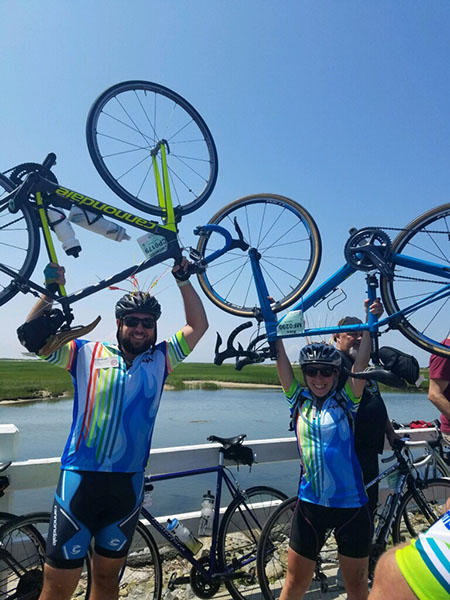 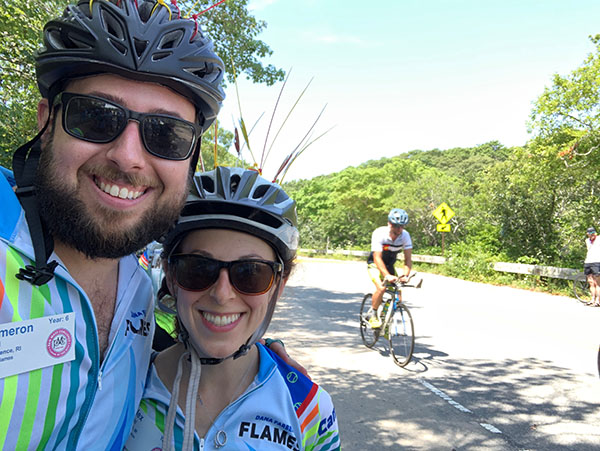 |
August 19, 2019
CHEPS collaborator Dr. Alex Peahl rode in the 2019 Pan-Mass Challenge at the beginning of August to raise money for the Dana-Farber Cancer Institute. The annual bike-a-thon is a two-day and 168-mile ride that crosses Massachusetts and raises funds for cancer research and treatment. 2019 was Dr. Peahl’s third year riding in the challenge. She road alongside her husband and father-in-law in honor of their good friend Dudley as well as the people in her life affected by cancer, her patients, and the team of doctors, nurses, and residents she works with at Michigan Medicine. She said on her fundraising page, “The riders’ passion, the volunteers’ encouragement, and the community support as we rode past cheering families was truly inspirational.” More information is available on the Pan-Mass Challenge website as well as Dr. Peahl’s fundraising page. Donations can be made for this year’s challenge until October 1, 2019. Tucker Supports PMC from Alex Friedman Peahl on Vimeo. — Written by Liz Fisher, CHEPS Staff |
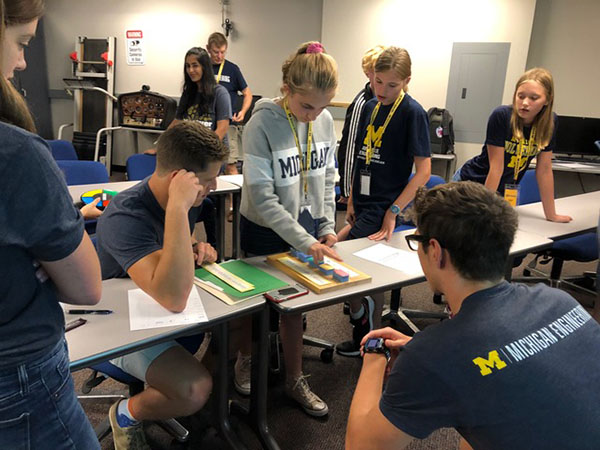 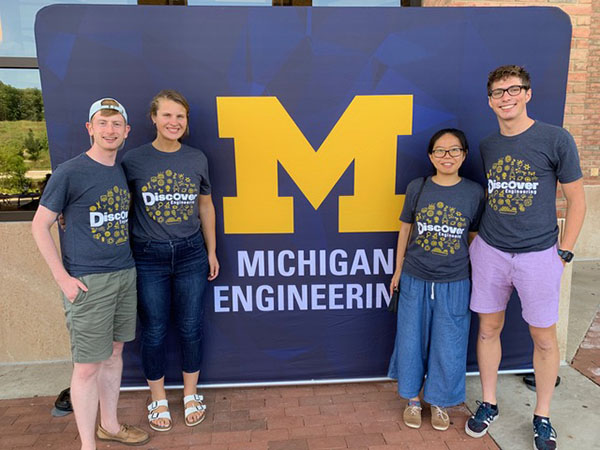 |
August 2, 2019
On Aug 1st and 2nd, CHEPS students woke up bright and early to volunteer at Discover Engineering. CHEPSters collaborated with high school students on an emergency room simulation game and several Ergolympics activities, which were games designed to demonstrate ergonomic principles. By the end of the 20-hour ER staffing simulation, Team Fish pulled ahead with a net hospital profit of $10,925. The high school students loved the Ergolympics stations, especially cornhole and Stroop. For cornhole, students lifted weights between rounds to understand the effects of fatigue on posture and performance. Meanwhile, during Stroop, students tried to match a list of colored words to colored squares on a board as quickly as possible. In the debrief session, students were taught the aims of the games and also gained a foundational understanding of what industrial engineering is all about. By the end of Discover Engineering, all the high school students learned one very important lesson: “Engineers make things. Industrial engineers make things better.” |
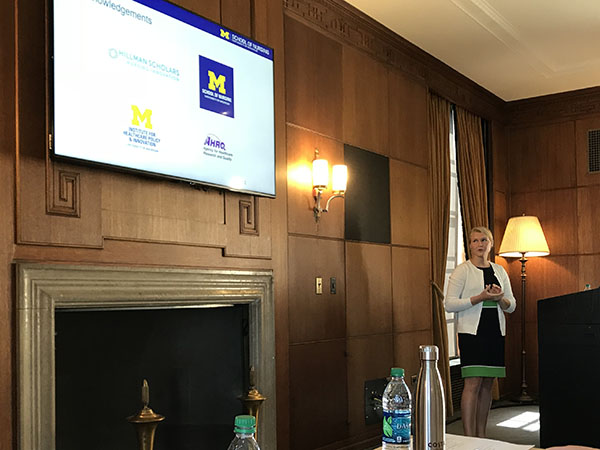 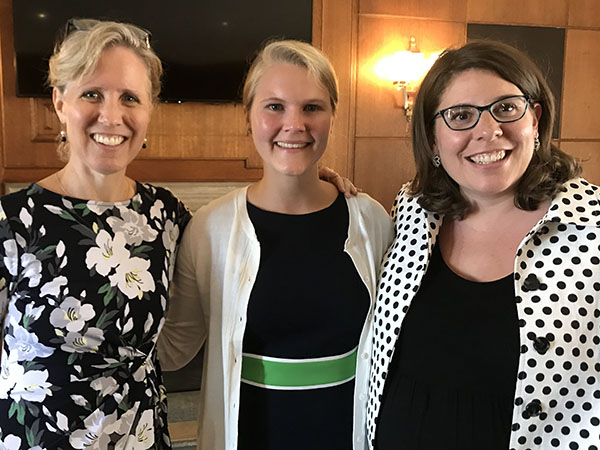 |
August 2, 2019
CHEPS collaborator Emily Boltey successfully defended her Nursing PhD dissertation, titled “Measuring the process of interprofessional collaboration in the care of critically ill adults,” on Friday, August 2nd. In her research, Emily conducted a time-motion study on interprofessional collaboration in the ICU. Many errors in the ICU originate from systematic problems, not individuals. Emily realized that one way to address this was to improve teamwork and the first step to doing so was to be able to measure collaborative actions between coworkers. Emily collaborated with CHEPS to create an app that allowed her to record collaborative actions quickly and efficiently while performing observations. CHEPS Associate Director Amy Cohn was a member of Emily’s committee along with Chair Professor Deena K. Costa, Dr. Jack Iwashyna, and Dr. Julia Seng. To learn more about Emily’s work and her collaboration with CHEPS, see CHEPS Pulse: Quantifying Collaboration in the ICU. Congratulations, Dr. Boltey! |
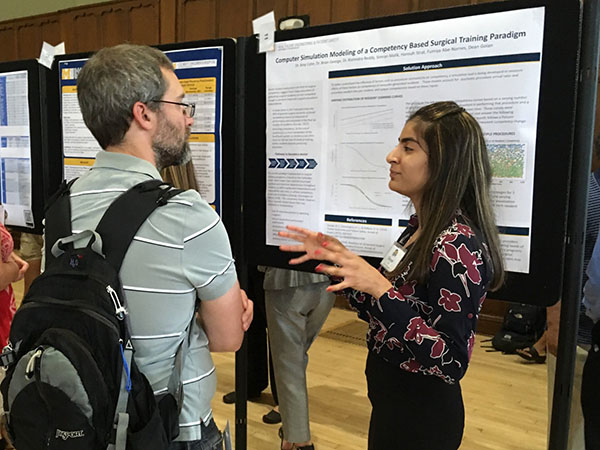 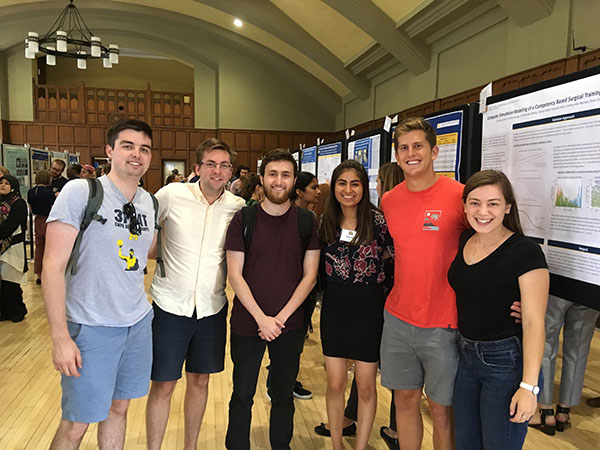 |
July 31, 2019
On Wednesday, July 31st, Simran Malik shared her research at the Undergraduate Research Opportunity Program (UROP) Summer Symposium in the Michigan League. Simran, a Computer Science undergraduate working at CHEPS this summer, presented a poster titled “Computer Simulation Modeling of a Competency-Based Surgical Training Paradigm.” The symposium was bustling from start to finish and many attendees stopped at Simran’s poster to discuss her research and ask questions. And, of course, several CHEPSters came by to show their support! Simran has been an excellent addition to the CHEPS team this summer and we’re all proud of her and her work! |
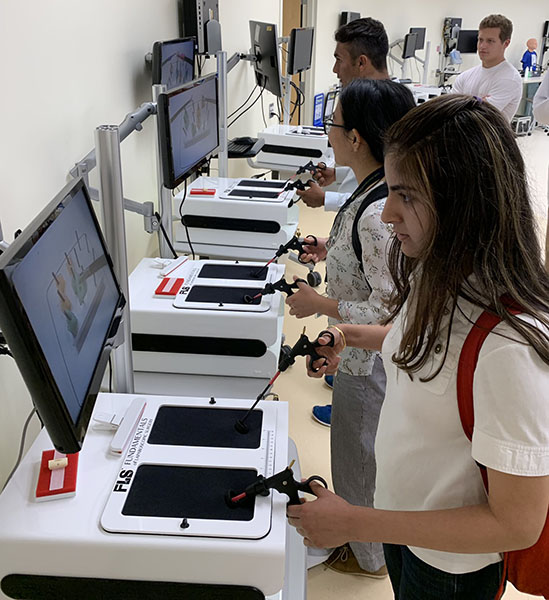 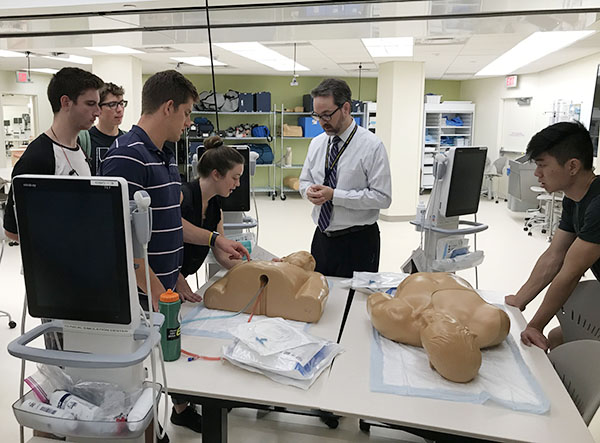 |
July 30, 2019
On July 14 and 30, groups of CHEPS students visited Michigan Medicine’s Clinical Simulation Centers. These centers serve as innovative environments and learning laboratories, with realistic manikins and advanced computer programs used to simulate realistic scenarios, and are used as training by physicians, nurses, and other healthcare professionals. During the tour, CHEPS students had a chance to see rooms with manikins serving different purposes, such as training on inserting jugular vein needles, operating rooms for a patient on oxygen supply, a delivery room, and a pediatric surgery room. |
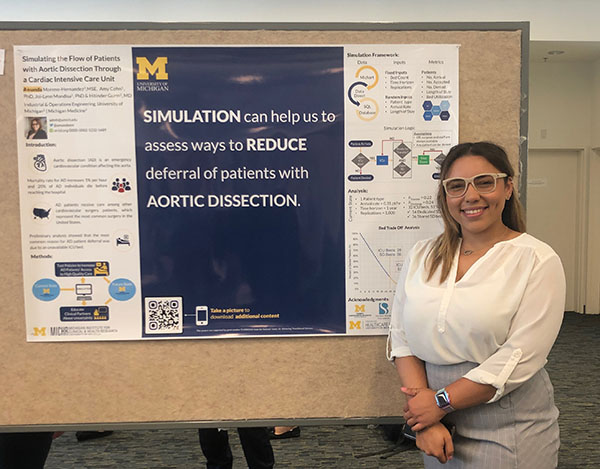 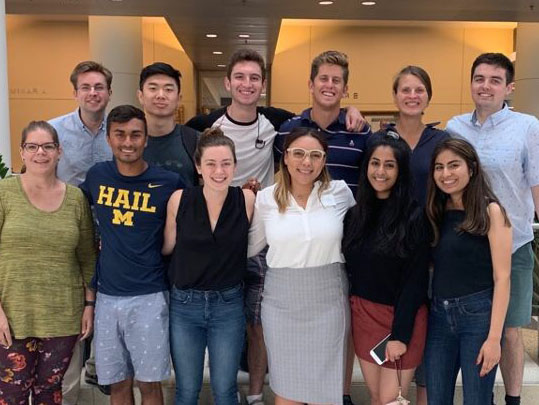 |
July 30, 2019
On July 30th, CHEPSters flocked the BSRB Seminar room to support our very own Amanda Moreno-Hernandez while she presented at the Michigan Institute for Clinical and Health Research (MICHR) poster session. The poster session showcased many different projects involving healthcare and clinical research. Holding her own as the only engineer in the entire room, Amanda spoke to the importance of simulation in aortic dissection patient flow in the ICU in order to optimize costs and number of patients treated. She was asked a multitude of questions involving the simulation model and input metrics, answering each one with immense knowledge and enthusiasm. Other projects included topics such as effects of consent in HIV research testing and how schizophrenia medications lead to other health-related issues. We are so proud of Amanda and cannot wait to see how this project develops from here! |
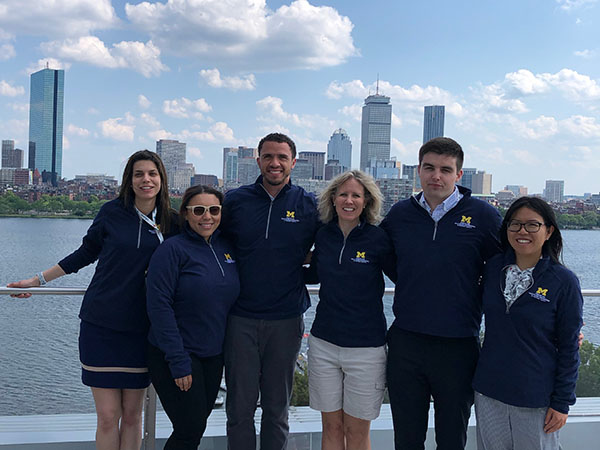 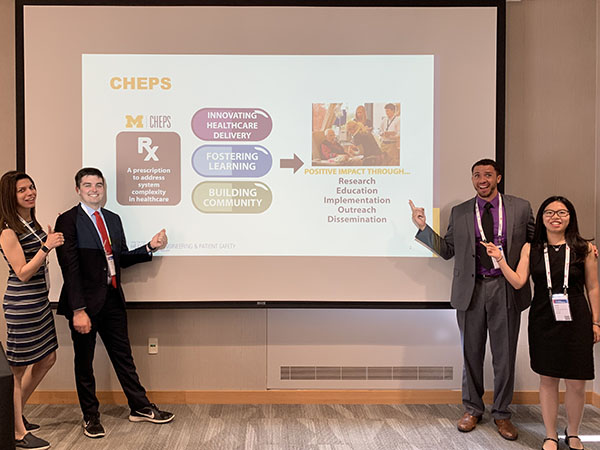 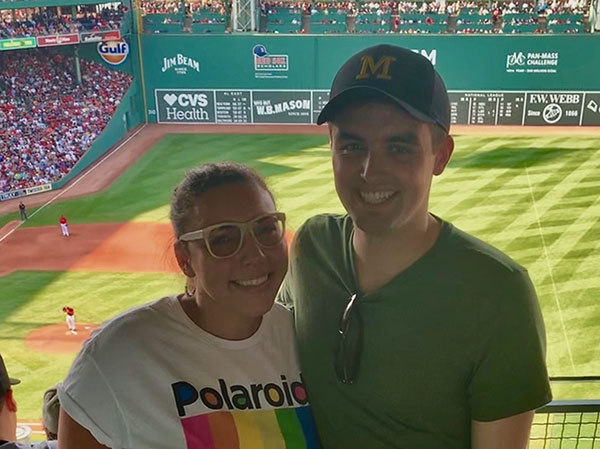 |
July 29, 2019
A group of CHPES students, as well as CHEPS Associate Director Amy Cohn, attended the 2019 INFORMS Healthcare Conference in Cambridge Massachusetts from July 27th to the 29th. Following this year’s conference theme “Transforming Health with Data, Mind and Hand” our CHEPSters Jakob Kiel-Locey, Michelle Chen, Amanda D. Moreno-Hernandez, our recent Ph.D. alums Karmel Shehadeh and Donald Richardson, and Professor Amy Cohn participated as speakers of multiple technical sections. The conference kicked-off with a full house technical session titled Improving Patient Access and Flow in Outpatients Clinical Settings. Karmel, Jakob, Michelle, and Donald presented their work and projects in this session. Their presentations were:
“I was thrilled to present our work on simulating an outpatient endoscopy clinic to an audience with such a wealth of healthcare experience. Watching my fellow CHEPSters and IOE students present their work and gracefully answer tough questions from the audience was so fun and a great reminder of how awesome CHEPSters are,” said Jakob. Our very own Amy Cohn also gave a talk titled “Implementing Provider Scheduling Decision Support Tools in Clinical Practice.” Many of our friends from the Industrial & Operation Engineering Department also attended the conference and presented their work. Daniel Otero and Luke DeRoos, both first-year IOE Ph.D. students, presented talks titled “Cholesterol Follow-Up Policy in the context of Preventive Treatment of Cardiovascular Disease” and “Modeling the Effect of Presumed Consent on Organ Transplant Waiting List Candidates” respectively. Other sessions were built around topics such as application of optimization in disease dynamic and treatment policy, prediction and prevention of diseases with the use of different models, resource allocation, policymaking, and many more. During the last day of the conference CHEPSter Amanda presented work done on “Simulating the Flow of Patients with Aortic Dissection through a Cardiac Intensive Care Unit.” Without a doubt, the conference was a great experience and opportunity to connect with other professionals who are “Transforming Health with Data, Mind, and Hand.” As Michelle said, “It was great to broaden my view of IE in healthcare and meet brilliant people.” We all also enjoyed learning about the landmarks of Boston and Cambridge from our Associate Director. In addition, our baseball fans Jakob and Amanda got to see the Red Sox playing the Yankees at Fenway Park. [View photos from the conference here.] — Written by Amanda Moreno-Hernandez, IOE Masters Student |
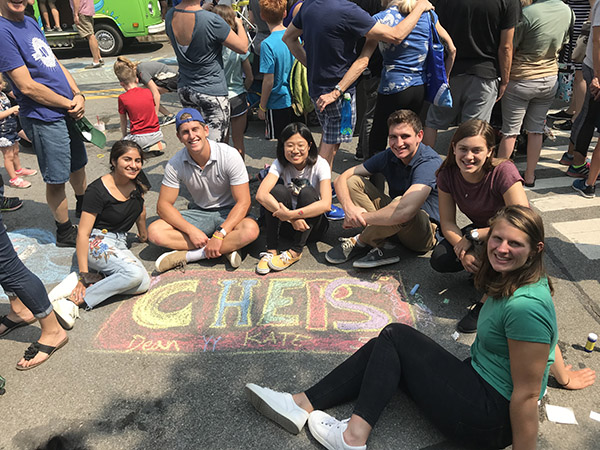 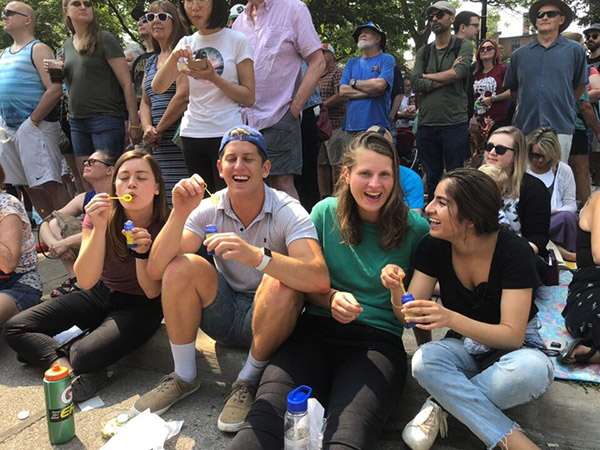 |
July 25, 2019
On Thursday, July 25th, CHEPSters went to Ann Arbor’s weekly Sonic Lunch Concert Series. The band Guster, a famous Boston-based alternative rock band, played at the event. Upon arriving at the venue, the students decked themselves with Sonic Lunch temporary tattoos, stickers, and pins. As the opening act played, they filled the air with bubbles, illuminating the crowd and atmosphere with excitement. They also worked together to decorate the ground, using colorful chalk to draw the CHEPS logo. When the band finally arrived, CHEPSters gathered together and cheered. From “Bad Bad World” to “Satellite”, Guster took the crowd through a lively musical adventure, certainly one for the books. |
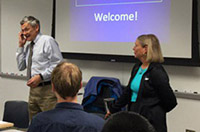 |
July 18, 2019
On Thursday, July 18, all of the newly admitted summer CHEPS students attended an IHPI Skill-Building Seminar with Dr. Grum, a professor of Internal Medicine, and Cathy Strachan, a Registered Nurse, to learn about professionalism, personal safety, and security when dealing with patient care in University of Michigan Hospitals. Dr. Grum began his seminar by speaking about the principles of professionalism in hospital wards and highlighted what is expected of CHEPS students whenever they visit the hospital. The seminar was highly interactive, with Dr. Grum and Mrs. Strachan asking for the CHEPS students’ perspectives and opinions on various matters throughout the talk. In addition to professionalism in hospital culture, the students also learned about the importance of patient confidentiality and how to effectively de-identify patient information. This was an extremely valuable seminar and will directly benefit CHEPS students as they interact with hospital wards in their current and future projects! |
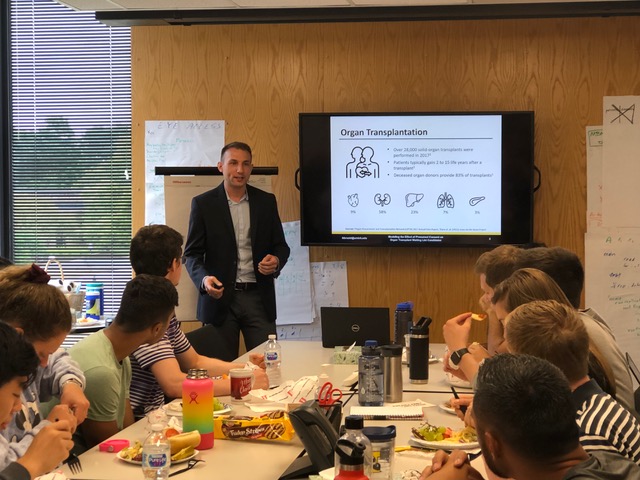 |
July 12, 2019
On Friday, July 12th, CHEPS students welcomed IOE PhD candidate Luke DeRoos for a Lunch and Learn. Luke shared his research related to the possible influence of presumed consent in organ transplantation. Luke began with data illustrating a long-existing challenge in organ transplantation which is the extremely high organ demands across the United States. “Over a hundred thousand people are waiting for organs” and “22% have died while waiting for organs,” he explained. Presumed consent policy, if implemented, could be a very effective way to mitigate the high demands. How will presumed consent affect the organ waitlists? That’s where Luke’s research started. Luke intended to understand the number of waiting patients, waitlist removal, and years of life gained after transplantation under the influence of higher organ supply due to presumed consent. He built up the predicted model and generated data under ideal allocation and random allocation of organs. The result will fall between that range when in practice. The results showed that the higher impact the policy is expected to produce, the fewer people who will die or become too ill on the waitlist before getting a transplant, and the more years of life the patients will gain after transplantation. As a result, Luke drew the conclusion that presumed consent would bring large gains in years of life. But the organ shortage situation will still exist. Luke also shared other research he is working on, including finding appropriate metrics to measure the performance of OPOs across the country. CHEPS students and others in attendance were very interested in Luke’s research. They asked questions like “Will wealthy people get advantages on the organ waitlist?” and “How long can it be between the organ beingremoved and implanted?” At the end of the Lunch and Learn, Amanda represented CHEPS thanking Luke for his presentation and giving him a small gift from CHEPS. |
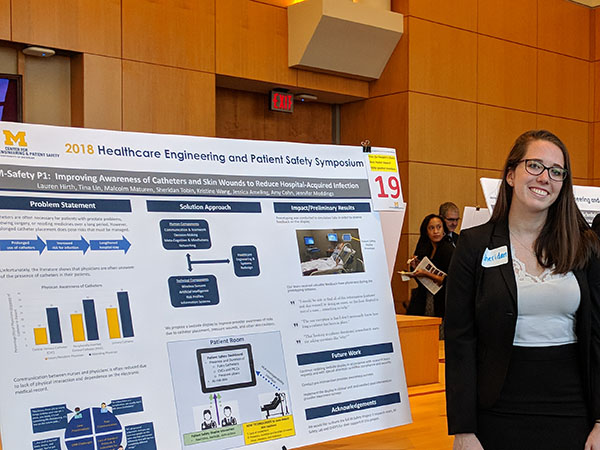 Sheridan Tobin presenting M-Safety’s work at the 2018 CHEPS symposium |
July 12, 2019
The M-Safety team marked a big milestone in June as the patient safety displays they’d been working on went live on one hospital unit at Michigan Medicine! The display, which was developed through a collaboration between the University Hospital 8DNS unit at Michigan Medicine, a multidisciplinary team of researchers from Internal Medicine, Nursing, and Engineering, and CHEPS, shows real-time data on the presence and duration of medical devices and skin issues. Clinicians in the 8DNS unit are excited to be utilizing the displays. The goal of the displays is to improve provider awareness of medical device placement and skin issues, which should enable prompt delivery of risk-reducing interventions, such as medical device removal and targeted skin care or repositioning. You can learn more about the M-Safety project on the project page. |
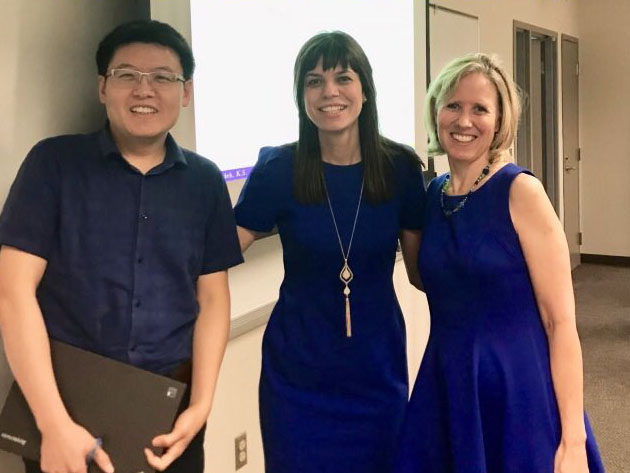 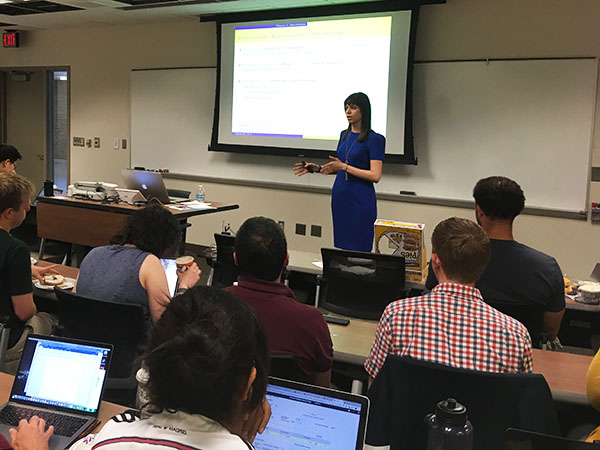 |
July 10, 2019
CHEPS PhD student Karmel Shehadeh successfully completed her PhD defense on Wednesday, July 10th. Karmel’s dissertation was titled “Stochastic Optimization Approaches for Outpatient Appointment Scheduling under Uncertainty.” The dissertation studies three challenging stochastic outpatient scheduling problems with broader applications within and outside of healthcare and proposes new and tractable stochastic optimization models and approaches for solving them. First, the dissertation proposes a new stochastic mixed-integer programming model that overcomes the computational challenges of outpatient procedures scheduling with random durations contrast to the existing models in the literature. Second, the dissertation studies a stochastic adaptive outpatient scheduling problem which incorporates the patients’ random arrival and service times. Finally, the dissertation proposes a tractable distributionally robust (DR) optimization approach to outpatient colonoscopy scheduling with bimodal and ambiguous colonoscopy duration. Karmel’s PhD is in Industrial and Operations Engineering. CHEPS Associate Director and IOE Professor Amy Cohn and IOE Assistant Professor Ruiwei Jiang were her advisors. CHEPS and IOE students, faculty, and staff as well as many of Karmel’s friends attended the defense and celebrated her hard work and achievement with her afterward. While her family was not able to attend in person, they were able to watch the recorded version of her talk and share in the excitement of the day. Karmel wrapped up her defense by thanking all who had supported her throughout her PhD work and in preparing for her defense. She said she feels honored and lucky to have worked with and known Prof. Cohn and Prof. Jiang, and thankful for all of their support and for teaching her tons of things that she cannot possibly thank them enough for. Most importantly, how a successful & impactful scholar and mentor should be. She is also thankful for her committee member Prof. Marina A Epelman for supporting her and contributing to the dissertation in many ways and for the insights of her cogent Prof. Anne Sales Congratulations, Dr. Shehadeh! |
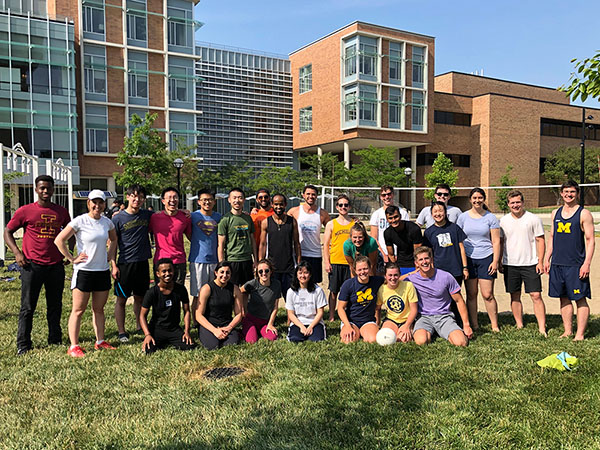 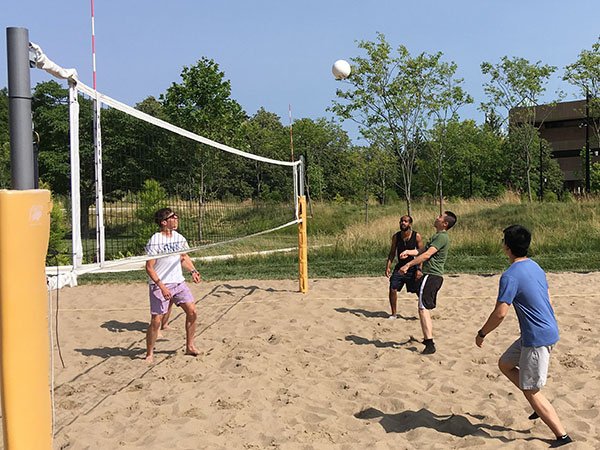 |
July 9, 2019
CHEPS decided to expand its volleyball horizons by arranging a tournament with MLD3, another engineering research group MLD3. We actually played with two groups on campus the first being MLD3 (Machine Learning for Data-Driven Decisions), who develops machine learning methods within healthcare. The second was a group of rising Freshman in an organization called M-STEM. The group happened to be walking by as the tournament started and ending up joining in! It was a hot day outside, comfortable in the shade but scorching in the sun. The sand was almost unbearably hot on our feet. Shoes or socks were a must or you were jumping on or digging into the sand. We played every possible combination of games, with each group having two teams. Each team played every other team. Teams sitting out played rounds of 4 square, refined their volleyball skills on the sidelines, or sat in the grass and on the swings enjoying the summer jams. Ultimately, the two CHEPS teams faced off and both ended with 2 wins and 1 loss. So who were the ultimate champs? Guess we’ll have to find out next time. |
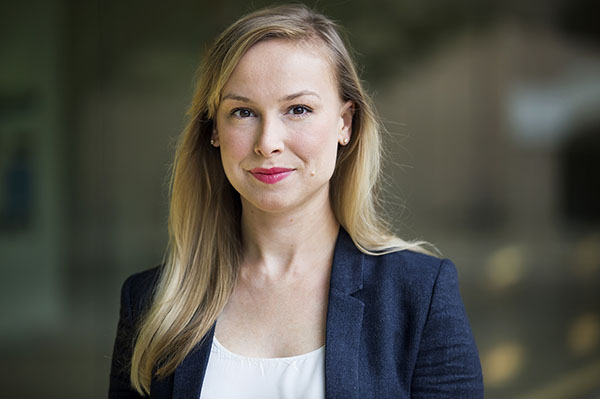 |
July 8, 2019
CHEPS affiliate Jenna Wiens, Assistant Professor of Computer Science and Engineering, has been named the incoming Co-Director of Precision Health at the University of Michigan. The position will be effective on September 1, 2019. Professor Wiens has worked with CHEPS in her current role as Co-Lead for Precision Health’s Data Analytics & IT Workgroup which successfully expanded access to data and research tools across the university. CHEPS collaborated with her team on issues of cohort development and working to merge and effectively utilize data from disparate sources. Congratulations, Professor Wiens! We look forward to continuing to work with you in your new position! |
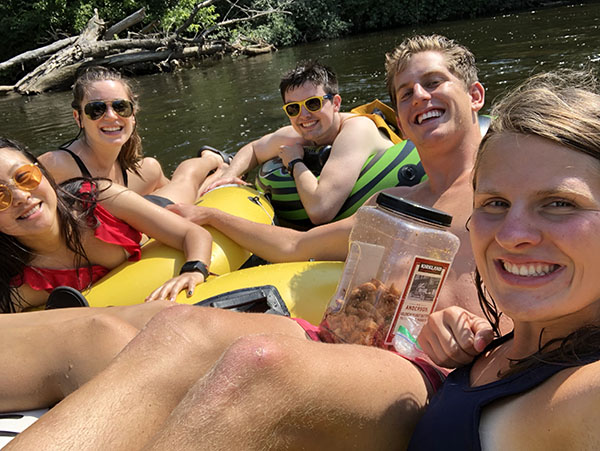 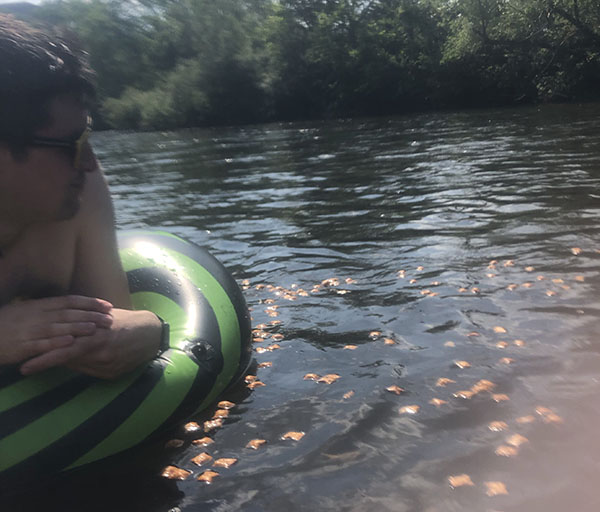 |
July 7, 2019
On Sunday, July 7th, five CHEPSters decided to embark on a river tubing adventure down the Huron River. At a balmy 86 degrees, they began the journey at Argo park with a water-resistant* box of Costco pretzels and plenty of water to stay hydrated. But, after a perilous encounter with the white water cascades, the seemingly water-tight container was compromised and the fish began to dine on the CHEPSters’ last source of sustenance. Nonetheless, after a grueling hour of fighting off tree branches and sharp rocks, the crew survived the expedition to see another day. |
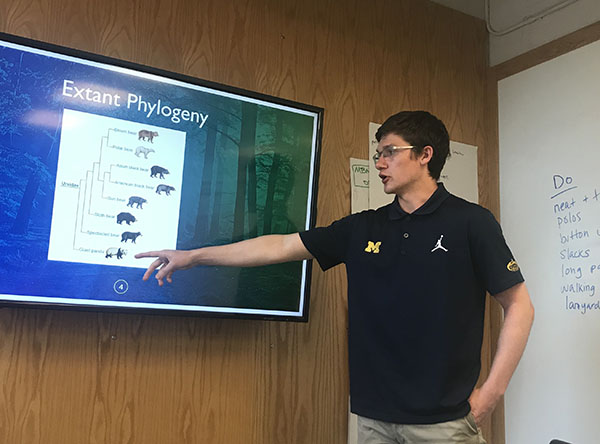 |
July 3, 2019
On Wednesday, July 3rd, CHEPS students gathered together for the long-awaited Lunch and Learn on bears, presented by Theodore Endresen. Through this brief introduction to bears, Theodore not only met but exceeded the expectations of his co-workers. Theodore began his presentation by describing classifications: There are 8 main types of bears and 2 proposed phylogenies. He then sketched out how appreciation of bears has manifested itself across different countries. China, for example, has a breeding facility for pandas, which is greatly responsible for the slowly increasing panda population. Starting with his favorite bear, the panda, Theodore went into in-depth explanations of each bear type, mentioning each type’s most important attributes. Panda bears, for example, have the largest molars of any bear, whereas polar bears have the highest bite force of any bear. Interestingly enough, the sloth bear, a seemingly harmless bear based on its name, is the most dangerous bear and tends to initiate attacks immediately. After each bear type description, Theodore provided CHEPS students with “survival tips”, often accompanied by comical strips emphasizing the danger that bears present. These survival tips brought out Theodore’s humor, which all CHEPS students know and love. Towards the end of the presentation, Theodore described different stances on bear conservation. Most importantly, he reminded us that, despite the friendly depiction of bears in the media and animation, bears are, in fact, very dangerous. |
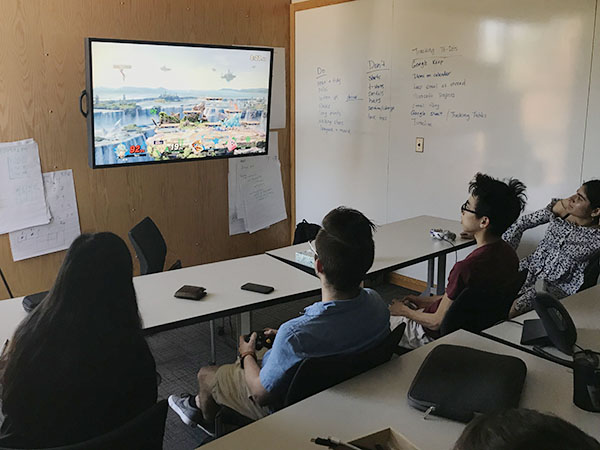 |
June 27, 2019
Continuing our tradition of summer social events, CHEPS students took a break at the end of the workday to play various Nintendo Switch games. Many of them got into some intense competition with Super Smash Bros while others decided to do some racing in Mario Kart. In a close tournament battle, CHEPSter Malcolm Hudson came out on top as the Super Smash Bros champion, while Dean Golan, Fumi Abe-Nornes, Jake Martin and Trevor Hoffman finished close behind with honorable mentions. |
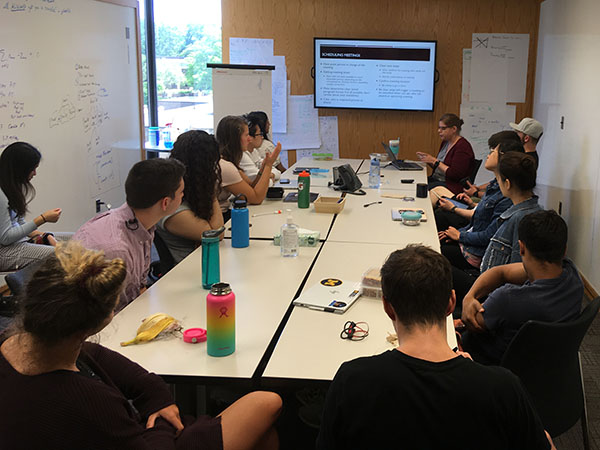 |
June 21, 2019
CHEPS students gathered together on Friday, June 21st to hear our very own Julia Warner conduct a Lunch and Learn on effective meetings. Julia started off the presentation by explaining how to schedule a meeting. She explained that it is important to always have a point person in charge, identify people whose schedules will be the bottleneck when planning a meeting, and to appropriately word emails to communicate effectively about meeting logistics. She then described characteristics of a good meeting attendee, the top qualities being: provide the times you can arrive, review the agenda prior to the meeting, plan your outfit based on your meetings, and plan ahead to be on time. Julia also talked about how to structure your agendas. Announcements should be first, and the least important items should be tabled last. It is important to include the assignments of the timekeeper, the scribe, and the facilitator. Additionally, “parking lot items”, items to be put on a later agenda, should be recorded and followed up on. We ended the Lunch and Learn with an interactive whiteboard activity, brainstorming the Do’s and Don’ts of conference calls and the Do’s and Don’ts of dressing to meet with collaborators. Julia reminded us at the end, to always end meetings on a positive note, by thanking everyone for their time and highlighting progress and accomplishments! |
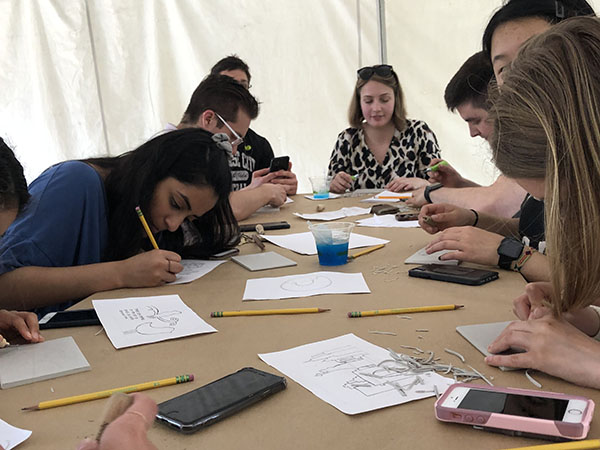  |
June 19, 2019
CHEPS students headed to the Ann Arbor Summer Festival (AASF), otherwise known as Top of the Park on Wednesday, June 19. They enjoyed dinner, snacks, and ice cream from AASF’s various food tents. Later they attended a free Block Printing & Letterpress Workshop in the annex tent. Each CHEPS student carved a block with unique designs. Trevor Hoffman created a cute “CHEPS @ TOP” print design, while Camille Phaneuf created a design with the skyline of New York City. Overall it was a great Ann Arbor summer event that the students partook in after a productive day of work. |
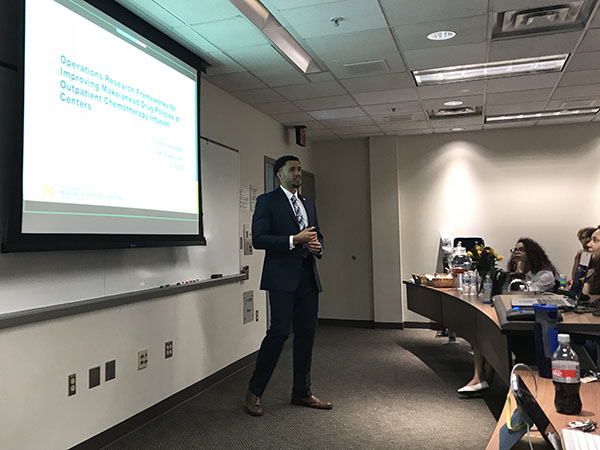 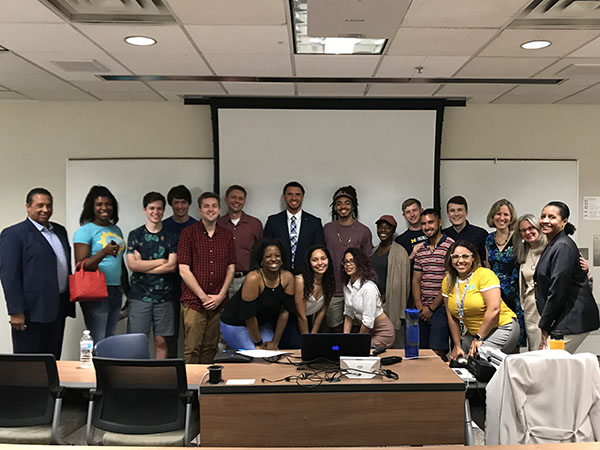 |
June 19, 2019
CHEPS PhD student Donald Richardson successfully completed his PhD defense on Wednesday, June 19th, making him Dr. Richardson officially. Donald’s dissertation was titled “Operations Research Frameworks for Improving Make-ahead Drug Policies at Outpatient Chemotherapy Centers.” Delays are possible at each step of an outpatient chemotherapy infusion visit. These delays can negatively impact individual patients and have a ripple effect which can negatively impact staff and other infusion patients. Donald’s research, conducted with CHEPS and the UM Rogel Cancer Center, looks at ways to reduce those delays by helping hospitals determine which drugs can be made ahead and when in a way that saves time and creates little to no drug waste. Donald’s PhD is in Industrial and Operations Engineering. CHEPS Associate Director and IOE Professor Amy Cohn was his thesis advisor. Current students, faculty, staff, and alumni from both IOE and CHEPS attended the defense along with Donald’s family and friends. Matt Rouhana, who worked on the chemotherapy project when it first started, even returned for the occasion! Donald concluded his presentation by thanking everyone who had supported him throughout his PhD including Prof. Cohn, his thesis committee, his collaborators at the UM Rogel Cancer Center, The Bonder Foundation, The SROP program, the Meyerhoff Scholars program, his family, and Peter and Josi who baked goodies for his defense! Congratulations, Dr. Richardson! |
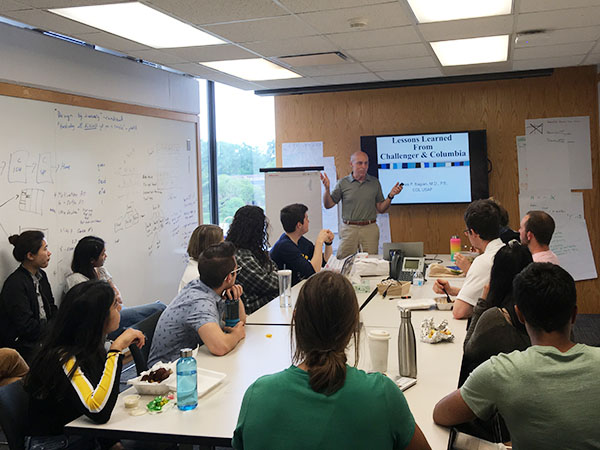 |
June 18, 2019
On Tuesday, June 18th CHEPS Director Jim Bagian led a Lunch and Learn on the Columbia and Challenger shuttle investigations which he took part in during his time at NASA. Jim first discussed why the Challenger failed before diving into the investigation process and how it led NASA to conclude that the unusually cold weather on the day of the launch was ultimately to blame for the unfortunate accident. He also talked about how NASA added new safety features for future missions with all the problem solving and testing that went into it. Jim next discussed the Columbia shuttle accident. He emphasized the importance of looking at all data available before coming to conclusions. By doing this, his team was able to recover 38% of the Columbia shuttle, which helped in their investigation as to what happened. Within the shuttle’s wreckage, some items had virtually not suffered any damage, examples such as an ink jet printer and Tonopen (a medical instrument used to measure intraocular pressure) were virtually untouched and still worked normally after the accident. This led to an interesting discussion about why some items survived how understanding the reasons for their lack of damage played a part in making the design of future space vehicles safer in the future. Overall, Jim’s talk emphasized how the investigation process and data collection played a vital role in analyzing both the Challenger and Columbia accidents. These processes made for an interesting Lunch and Learn! |
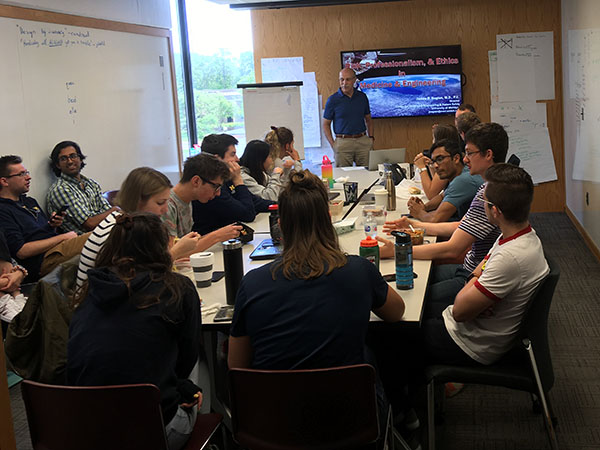 |
June 14, 2019
On Friday, June 14th, CHEPS Director Jim Bagian spoke to CHEPS students on Risk, Professionalism, and Ethics in Medicine and Engineering. Dr. Bagian spoke to the necessity of clearly defining the goal of any undertaking and balancing the acceptable risk of failure in executing the intended plan to achieve the goal against the value to be realized if successful and the opportunity cost associated with the endeavor. Recounting real-world examples, Dr. Bagian spoke to the necessity of clearly communicating the hazards and risks associated with any undertaking to all concerned parties as an essential attribute of professionalism in making decisions grounded in logic, not emotion. The importance of distinguishing hazards from risks was emphasized so that groups would be better equipped to make effective decisions. Commercial aviation was used as an example to illustrate that while one of the hazards of flying is death resulting from a crash, the risk of being killed in a crash while traveling on a commercial airliner is less than one in 14 million. This illustrated that in considering hazards, the truly important point is really the risk that a hazard will cause an undesired outcome rather than the existence of the hazard itself. Dr. Bagian also spoke to the necessity of maintaining a good sense of teamwork among coworkers and colleagues. One of the critical elements of a well functioning team is the deliberate efforts to breakdown hierarchical barriers to communication. Dr. Bagian gave an example from his time as the Chief Patient Safety Officer and the director of the National Center for Patient Safety at the VA where he would intentionally travel to meet with others in the VA who were his subordinates at locations that were of the greatest convenience to them to demonstrate by action that he respected them and valued their cooperation rather than have them meet at locations that were more convenient to him. In this way, he felt that he was able to develop more meaningful and productive working relationships. He also spoke to being willing to openly acknowledge when help was needed in order to obtain the best performance from team members. Being able to draw on Dr. Bagian’s vast knowledge and experience is an amazing opportunity for CHEPSters and his accomplishments are a great reminder of what can be achieved through hard work. |
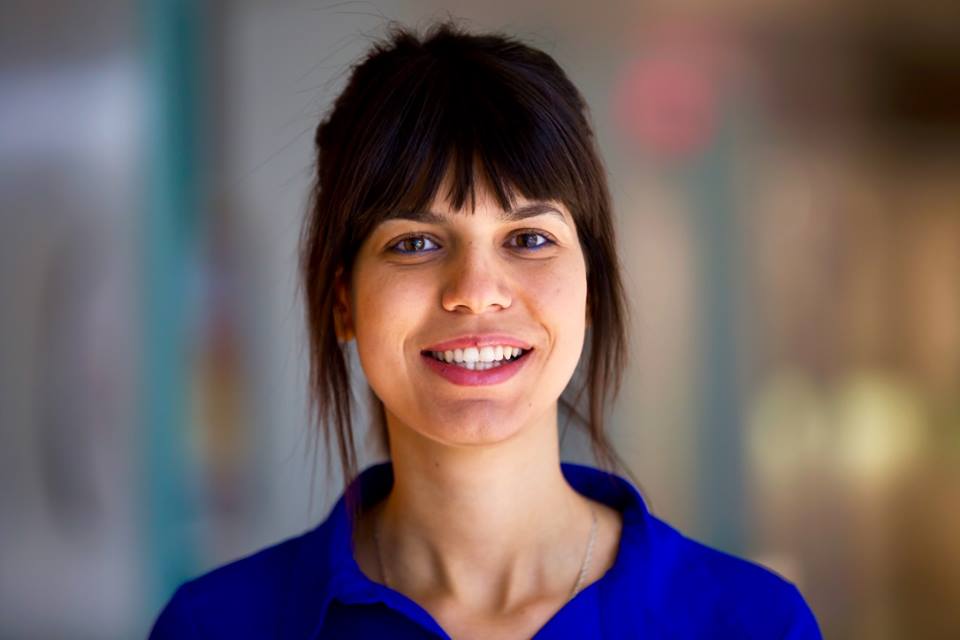 |
June 14, 2019
CHEPS and Industrial and Operations Engineering PhD candidate Karmel Shehadeh, along with co-authors Prof. Amy Cohn and Prof. Marina A. Epelman, has had a paper accepted for publication in the European Journal of Operational Research (EJOR). The paper, titled “Analysis of Models for the Stochastic Outpatient Procedure Scheduling Problem (SOPSP),” is motivated by the work Karmel and her team at CHEPS have done with the University of Michigan Medical Procedure Unit. The outpatient clinic performs a variety of procedures, including a large number of colonoscopies. The team is working to build higher-quality schedules that incorporate the variability in procedure durations and other patient characteristics; with this work, it is possible to improve patient and provider satisfaction, reduce costs, and even achieve better clinical outcomes. A valuable tool in creating such schedules is the ability to solve the simpler (and yet still challenging) SOPSP as an embedded sub-problem. Shehadeh, Cohn, and Epelman propose a new stochastic mixed-integer linear program (SMILP) that overcomes the challenges of solving this well-known complex stochastic, combinatorial, and multi-criteria optimization problem. “Publishing this work in a top OR journal such as EJOR inspires me to continue working on developing tractable and implementable Engineering and Operations Research frameworks for solving challenging real-world optimization problems,” said Karmel. “However, the more important reason for feeling thrilled about publishing this work is knowing that it will provide a valuable long-run solution for issues that we all face during a medical appointment. I very much enjoyed this intellectually rewarding research adventure with Prof. Cohn and Prof. Epelman, and am thankful for their support.” |
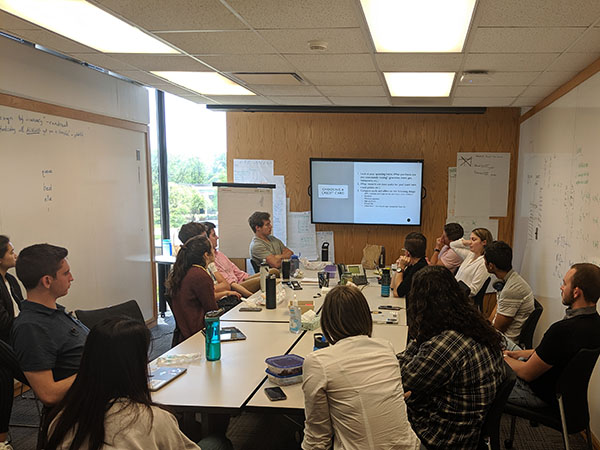 |
June 12, 2019
Now that many CHEPSters have graduated and will soon enter the real world, Anna Learis presented a Lunch and Learn on personal finance and affordable seasonal eating to aid everyone with this transition. When it came to budgeting, she discussed the 50-30-20 rule and the importance of knowing one’s own credit score. Additionally, she highlighted the importance of choosing a credit card that offers rewards that correlate to an individual’s normal spending habits. Now that our recent graduates won’t be eating ramen noodles daily, Anna also overviewed how to create an effective and healthy meal plan. In addition to a few flexible recipes, CHEPSters learned how to identify which fruits and vegetable were in season to help them make tastier and more affordable meals. |
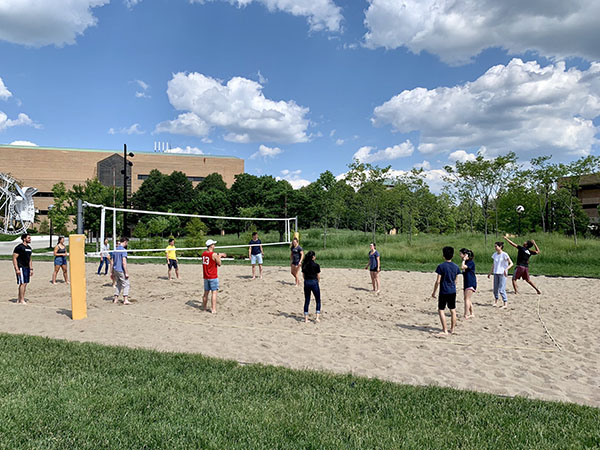 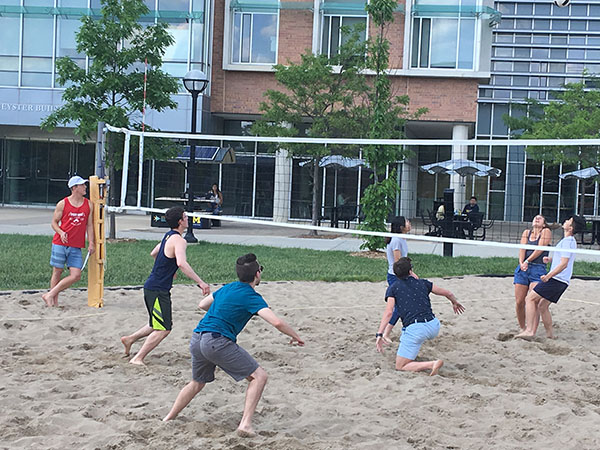 |
June 11, 2019
To continue our tradition of CHEPS summer socials, we held a competitive volleyball tournament in the North Campus Grove after work ended. After gauging everyone’s skill level, we broke up into five teams of four and held a double-elimination bracket with games to 11. During the event, we had some CHEPSters playing four square, drawing with sidewalk chalk, or enjoying time on the swings when they weren’t too busy slamming spikes on the court. At the end of the tournament, we had CHEPsters Amanda Moreno Hernandez, Nicholas Zacharek, Ryan Lentine, Fumya Abe-Nornes, and Laura Hatter represent the Grieving Pigeons in first place, followed by the Greasy Monkeys in second, and the Regular Sheep in third. This event was a great way for the new and old CHEPS students to get to know one another and develop some team-building skills while having a great time on the court! |
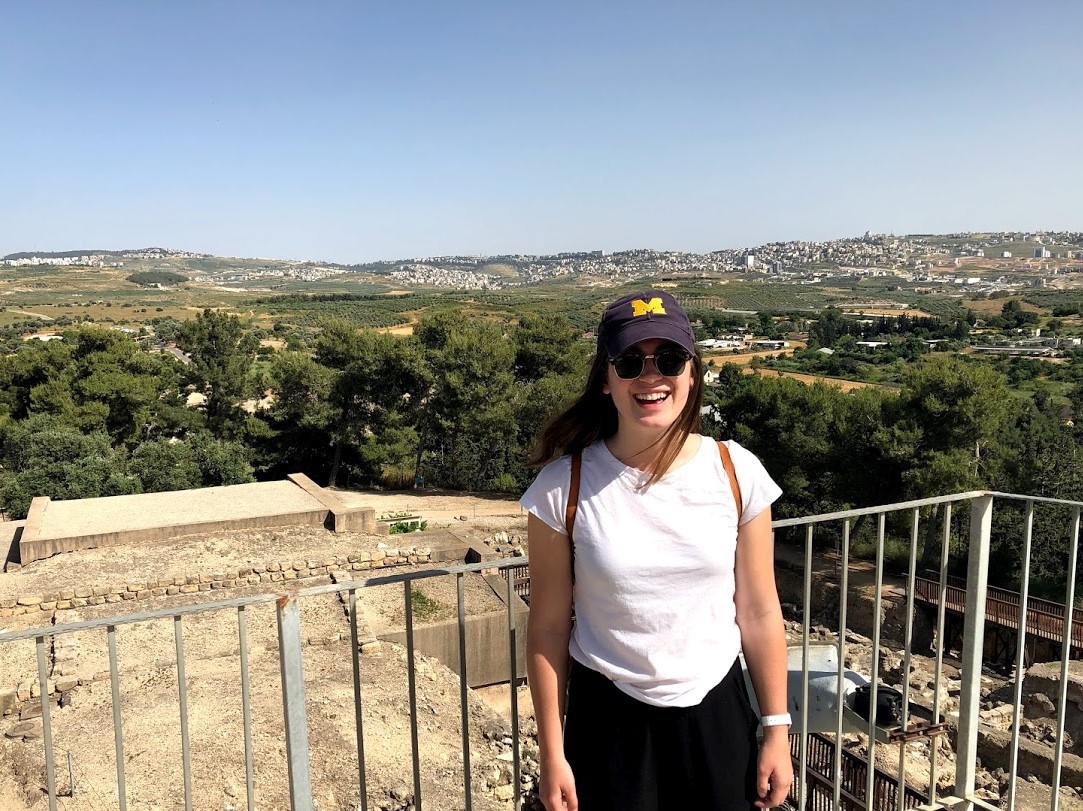  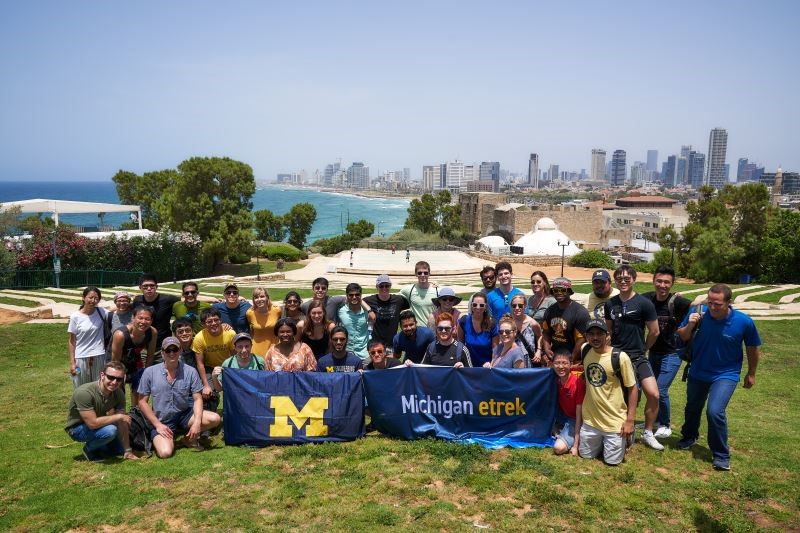 |
June 10, 2019
In May 2019, CHEPS Masters student Hannah Strat attended the 2019 Michigan Israel Engineering Trek. This student-led trip to Israel was designed to introduce engineering graduate students from the University of Michigan to the Israeli tech industry. Hannah was one of 30+ engineering graduate students who had the chance to tour the country and meet with local Israelis working in a variety of technical fields. Engineering highlights included touring the Sorek Desalination Plant, and meeting with engineers from the autonomous driving technology company MobilEye, the non-profit private space company SpaceIL, and the non-profit organization Milbat which applies creative solutions to expand the independence of people with disabilities. Other highlights included visiting Nahalal (one of Ann Arbor’s sister cities), Masada, the Dead Sea, and the Old City of Jerusalem. |
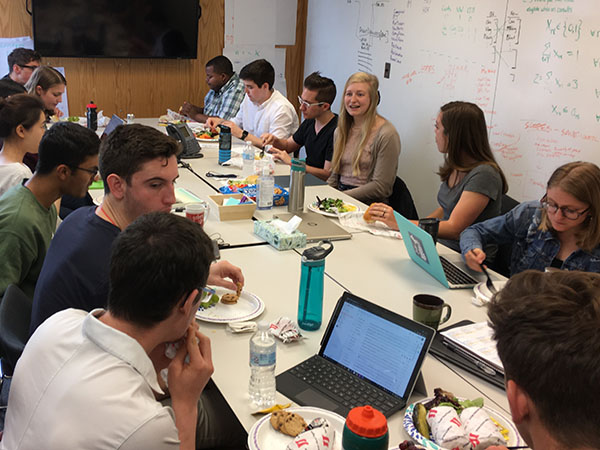 |
June 5, 2019
CHEPS students, faculty, and staff met for a Lunch & Learn on Wednesday to hear about Rachel Moeckel’s career as a Health Systems Specialist in the VA Ann Arbor Healthcare System. Rachel is a CHEPS alum and graduated with a Masters in IOE with a HEPS concentration in 2017. After graduation, she discovered her current VA position through another CHEPS graduate! Now, she works on interdisciplinary teams to improve patients’ access to care throughout the VA. These projects lead change in a variety of departments, but Rachel has been working most frequently in surgery. Specifically, she tracks changes in access metrics, then collaborates with doctors, nurses, medical support assistants, administrative officers, and more to fix any issues that have arisen and that she has identified. Rachel noted that CHEPS prepared her well for her position as a Health Systems Specialist, but she encourages recent graduates to also ask a lot of questions, engage in a variety of trainings, and immerse themselves in their new positions. That is how she grew to feel comfortable and competent at the VA and jumpstart her career! Rachel also recommended that CHEPsters find supportive managers to work for; from her experience, the people she works with makes the job productive, rewarding, and enjoyable. In sum, the Lunch & Learn attendees enjoyed an informative session that provided advice for transitioning into post-graduation positions, as well as how to be successful in those roles. Thank you, Rachel, for returning to CHEPS to share your wisdom! |
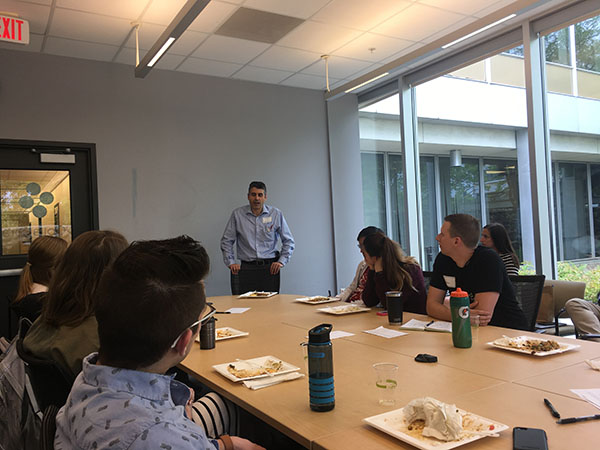 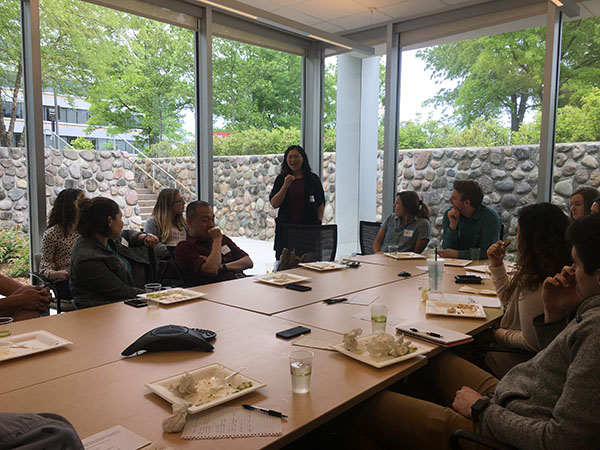 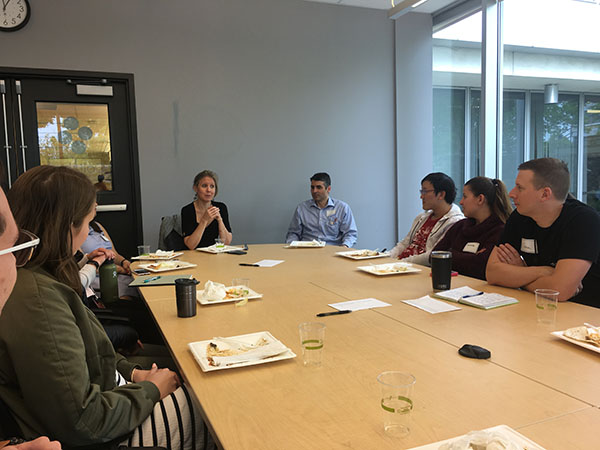 |
June 4, 2019
On June 4, 2019, the Institute for Healthcare Policy & Innovation (IHPI) had a Lunch and Learn seminar for students. The event was co-hosted by CHEPS Associate Director Professor Amy Cohn, Professor Ivo Dinov from the School of Nursing, & Dr. Sunghee Lee from the Survey Methodology Program. During the first half of the seminar, each host gave their career story and explained the path that they took to get where they are today. As the hosts spoke, an unexpected theme of changing career paths became clear. Each of the speakers talked about the ways in which their paths had changed over the years and how they were happy with their direction, but it was different than they expected. For example, Professor Dinov talked about choosing mathematics over statistics for his undergraduate degree, even though he came from an accounting secondary school. During the second half of the seminar, students were able to ask each speaker questions. Students seemed interested in the work of the speakers and the ways that they found to balance work and life in higher education. |
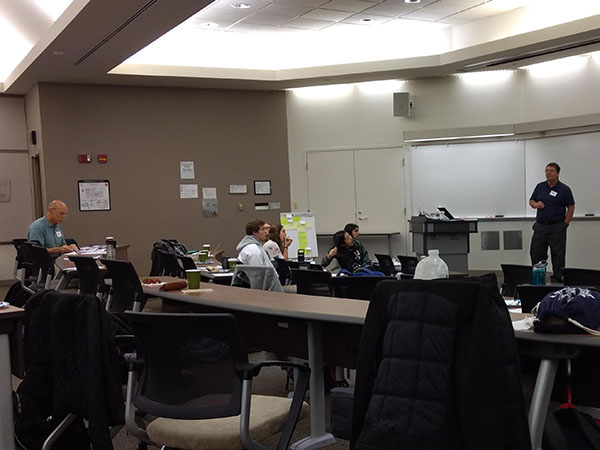 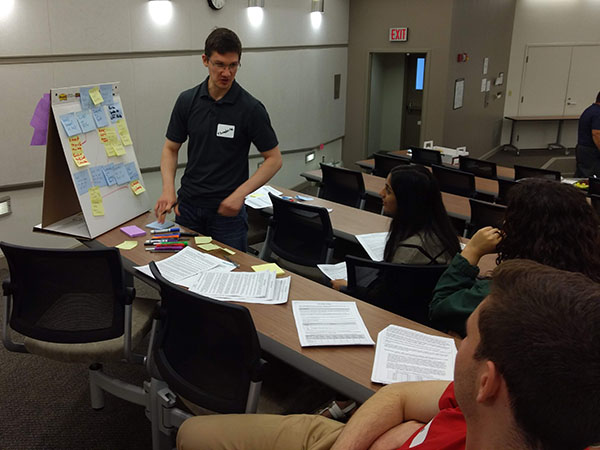 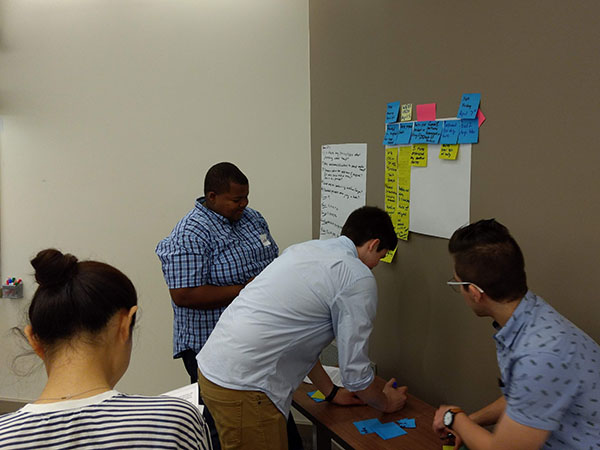 |
June 4, 2019
In an environment such as healthcare, where the stakes are constantly high, it can be easy to resort to superficial knee-jerk resolutions that focus only on proximate causes of patient adverse events and close calls. In most organizations, close calls are even ignored and interpreted as events caused by good or bad luck and are not used in a proactive manner to identify and mitigate the threats to safe patient care that they represent. As systems grow increasingly complex, it is imperative that we choose to analyze the underlying contributing causes of a problem or vulnerabilities and mitigate them through actions that address the underlying systems-based contributing factors. It is important to go well beyond superficial actions that are limited to placing blame on individuals and focus exclusively on individually focused interventions such as training or changes in policy alone. On Tuesday, June 4th, CHEPSters attended a Root Cause Analysis and Action (RCA2 = RCA Squared) training given by Director Jim Bagian and Program Manager Joe DeRosier. They developed this program which has been implemented in hospitals across the nation. Its premise may seem simple; break down an event until root causes and contributing factors are exposed, and identify system-based actions to address system vulnerabilities. The RCA2 process includes cognitive aids and tools to help teams consistently complete thorough and credible reviews. RCA2 utilizes multidisciplinary teams with a combination of unique perspectives that meet to analyze adverse events with the objective being to minimize or eliminate the risk of future harm to patients. Traditional healthcare related investigations typically stopped at identifying causes such as human error or failure of an individual to follow a policy or procedure. RCA2 goes deeper to understand what contributed to the human error or why a policy or procedure wasn’t followed. Jim and Joe also detailed the importance of formulation and implementation of actions following these assessments (and how it wouldn’t be RCA2 without this). They highlighted the necessity of structural design changes that employ stronger actions that rely on characteristics such as forcing functions rather than those actions that only require individuals to rely on their memory such as only policy and procedure changes or training. Above all, it is important to carry forward the mentality that RCA2 is built upon — a systems-based analysis to elucidate the root causes and contributing factors and the implementation of actions that mitigate these vulnerabilities. This is especially true in an environment such as healthcare, where patient safety is a constant top priority. Problems are multidisciplinary, multifaceted, and should always result in actions that concentrate on systems-based interventions that focus on prevention or mitigation of harm over the all too superficial and common responses that simply blame the individuals associated with the event in question. |
 |
June 2, 2019
The University of Michigan Rowing Team captured two bronze medals and finished in third place at the NCAA Championships held at Eagle Creek Park in Indianapolis, Indiana on June 1st and 2nd, 2019. Three CHEPS Students, Victoria Glunt, Kate Burns, and Emily Krebs, are members of the team. Congrats to them and the whole team on an excellent showing at the NCAA Championships! More information is available in the full story at MGoBlue.com. |
   |
June 1, 2019
On Saturday, June 1st, CHEPS students explored Detroit experiencing some of the things that make the city great. The students’ first stop was Eastern Market, one of the oldest and largest year-round public markets in the United States. The students enjoyed visiting the stands which contained things such as fresh food, plants, and art. They also enjoyed speaking with vendors and hearing their passion for their product. The next stop was El Asador Steakhouse, a restaurant located inside Mexicantown. They pride themselves on creating food from scratch that is locally sourced. The food was amazing, the students raved about the guacamole made fresh at the table. The last stop of the day was to the Detroit Shipping Company, an eatery, for handmade ice cream. |
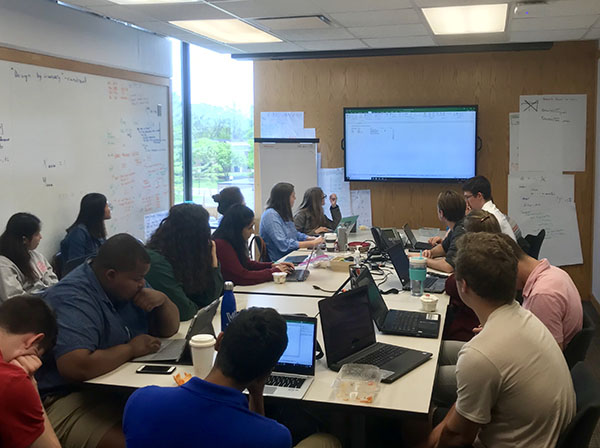 |
May 31, 2019
CHEPS staffer and resident Excel wizard Billy Pozehl led a Lunch and Learn on Excel Tips and Tricks on Friday, May 31. More than twenty CHEPS students and staff attended to learn from Billy and his vast experience using Excel. Most CHEPS projects, particularly Provider Scheduling projects, make heavy use of Excel for creating data files, visualizations, and sharing information with collaborators. Billy went over basic navigation shortcuts, logical and conditional formatting, data validation, basic lookup functions and more, ending with the reminder that “the less you use your mouse the faster you’ll be.” |
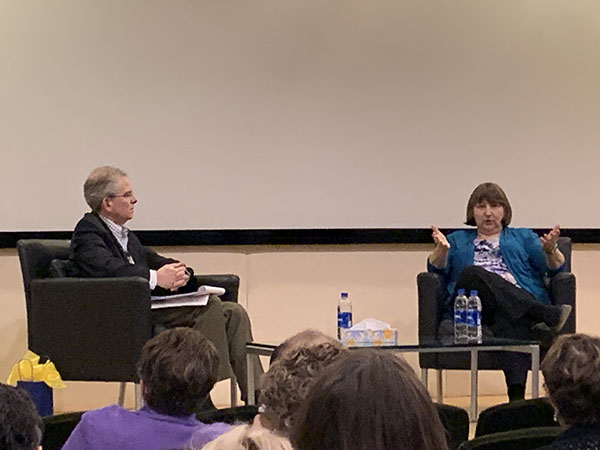 |
May 31, 2019
CHEPS students and staff attend the Institute for Healthcare Policy and Innovation (IHPI) Director’s Lecture on May 31 with guest speaker, Julie Rovner. Ms. Rovner, a UMich alumna, is the Chief Washington Correspondent for Kaiser Health News and also hosts the “What the Health?” podcast. Dr. John Ayanian, IHPI Director, conducted a fireside chat with Ms. Rovner about health policy and politics, including looking forward to the 2020 election. Ms. Rovner shared her knowledge on topics covering billing, prescription drug pricing, tobacco policy, and re-authorization of PCORI funding. She also provided an in-depth perspective on recently passed state-level abortion laws. A big focus of the discussion was also how 2020 Democratic presidential candidates are considering healthcare coverage, ranging from Medicaid expansion to how the US might transition to Medicare-For-All. Ms. Rovner concluded her talk by encouraging health services researchers to continue pursuing evidence-based investigations that are critical to moving policy forward. |
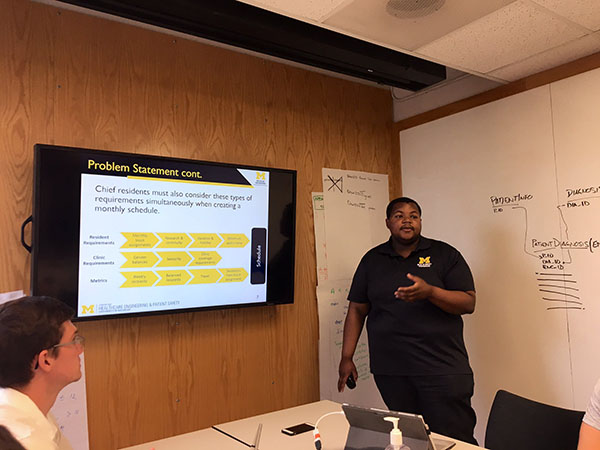 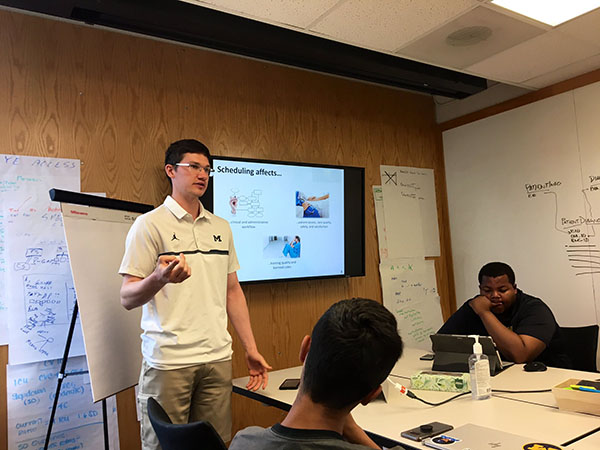 |
May 29, 2019
On Wednesday, May 29th students gathered for another installment in our weekly Lunch and Learn series to hear about various projects currently going on at CHEPS. This week we had the pleasure to hear from two recent CHEPS graduates, Justin Rogers and Theodore Endresen, about the Dermatology and Block scheduling projects respectively. The Dermatology project deals with creating a computerized tool to schedule dermatology residents each month in the dermatology clinic at the university hospital. The Block project, on the other hand, deals with scheduling residents in the internal medicine and pediatrics clinics in the university hospital. Head residents used to create these schedules manually which would take many days or even weeks of their time. With the help of these scheduling projects, we have been able to help them free up their time. |
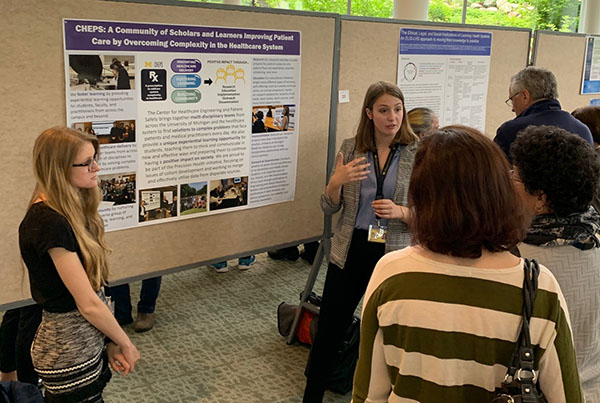 |
May 29, 2019
Recent CHEPS graduates, Anna Learis and Camille Phaneuf, attended the Precision Health Symposium on Wednesday to share the purpose of CHEPS with physicians and academics across the University of Michigan and Michigan Medicine. They presented a poster, titled ‘CHEPS: A Community of Scholars and Learners Improving Patient Care by Overcoming Complexity in the Healthcare System,’ and engaged in an afternoon networking session. Anna and Camille really enjoyed discussing the various projects that CHEPS students, faculty, and staff are involved in, and learned so much about other Precision Health initiatives underway across campus. They are so grateful for their experiences at CHEPS, and had a wonderful time communicating this sentiment to others! Overall, symposium attendees were excited about the multi-disciplinary teams that CHEPS promotes, as well as the solutions that students have been able to pose for solving complex problems. |
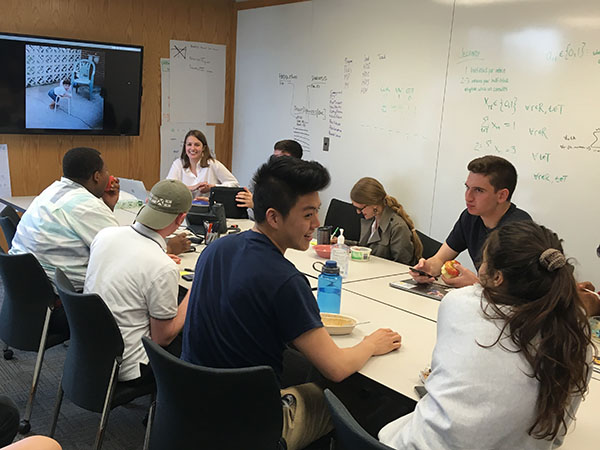 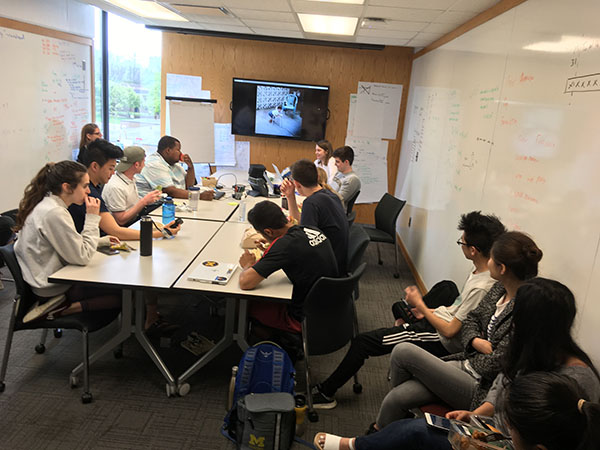 |
May 24, 2019
In May 2019, a tradition returned to CHEPS: Baby Photos. Last done in 2017, students and staff uploaded pics of themselves as babies and then took guesses on which photo belonged to which person. The event was a fun and unique way for summer students to bond. This year’s Baby Photo event was organized by Anna Learis and included a friendly competition for a prize. On Friday, May 24, a baby photo reveal occurred; students discovered which people they correctly connected to their baby photo and which they did not. Many did exceptionally well, but Malcolm Hudson surpassed them all. He guessed all 27 photos correctly to win the competition and prize. |
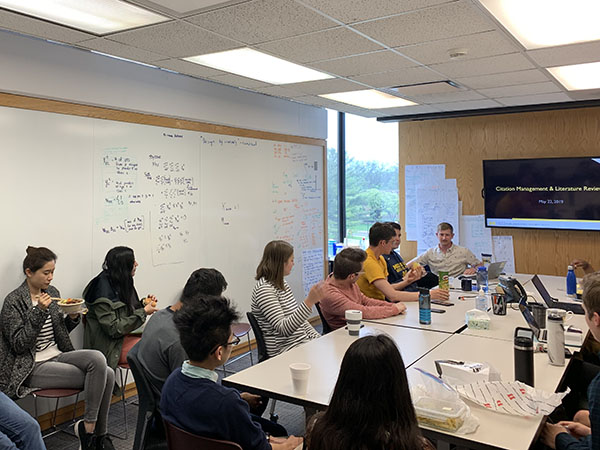 |
May 22, 2019
On Wednesday, May 22, Adam shared citation management options and discussed a process for conducting and documenting literature reviews. In particular, Adam recommends the Zotero Chrome Extension for a seamless and easy way to gather and store articles and other citations in Zotero. Other students also shared their challenges and best practices for conducting literature reviews. Students who took IOE 413 (Optimization Modeling in Health Care) discussed how they conducted literature reviews for their major class deliverable. |
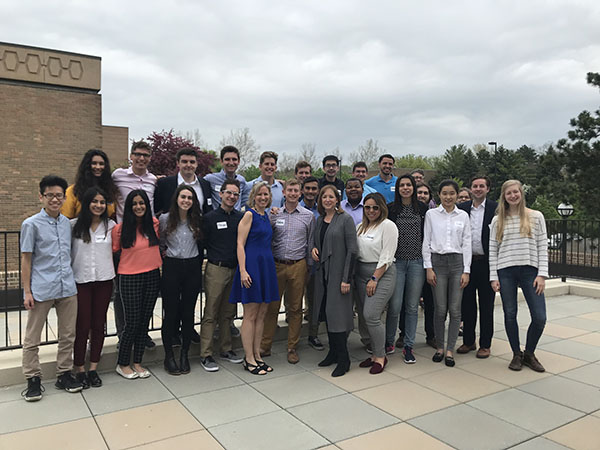 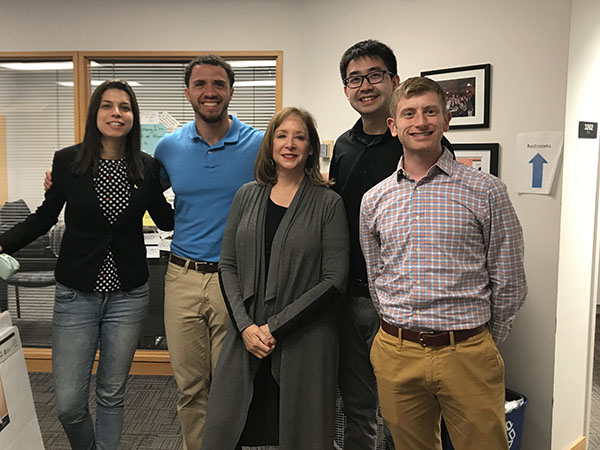 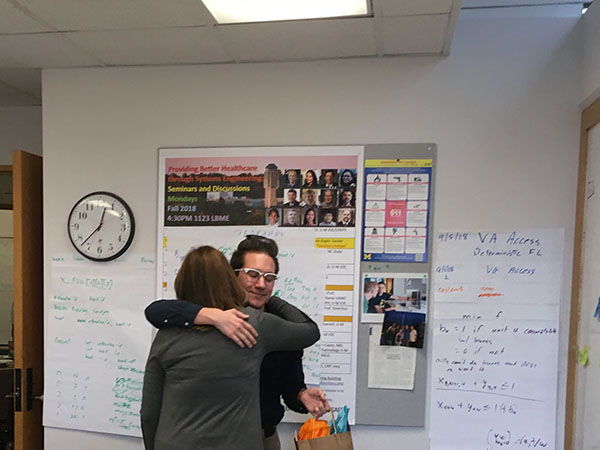 |
May 17, 2019
What a time to be a CHEPSter! Last Friday, CHEPS welcomed Ms. Merrill Bonder, Executive Director of the Seth Bonder Foundation and long-term CHEPS supporter and friend, for a lunch with students and staff members. Favorite memories from CHEPS were shared during what Professor Cohn called one of her favorite CHEPS days of the year. Among memories and fun stories, there was something that resonated. CHEPS is the place “you can check out any time you like, but you can never leave!”, said Merrill referring to all the CHEPSters around the world and how they stay in touch and involved with CHEPS while quoting the Eagles. Merrill and her late husband, Dr. Seth Bonder, have helped to support students across the country for years. IOE and HEPS Masters student Trevor Hoffman shared a few words: “On behalf of Hannah and myself we wanted to get you a gift to show our appreciation. Being a first-generation college student myself, if not for your and the Bonder Foundation’s generosity I wouldn’t be able to be where I am today.” Longtime friends and colleagues Larry and Bev Seiford shared a few words about the Bonders and their vision. College of Engineering Dean Alec Gallimore also joined us and shared his appreciation for the Bonder Foundation and his memories of working with Dr. Bonder. Ms. Bonder expressed the importance she sees in helping and mentoring students as they are the ones to dictate the future and leave a mark. PhD candidates Donald Richardson and Karmel Shehadeh expressed how Merrill has supported them in multiple conference presentations through their graduate career. Caring and affable, Merrill embodied the mission and support at the heart of the Bonder Foundation. |
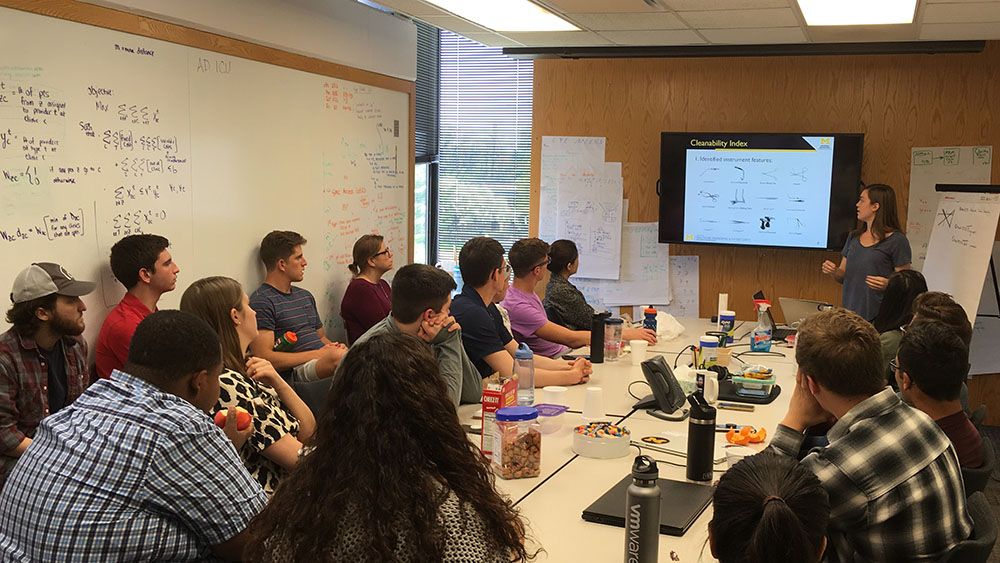 |
May 15, 2019
On Wednesday, May 15th students gathered for a lunch and learn to hear about the CHEPS Glaucoma and Surgical Instruments projects. Since we have several ongoing projects, these lunch and learns are a great opportunity for students to learn about what their peers are working on and to share thoughts and ideas across projects. Trevor Hoffman talked about the Glaucoma project which utilizes RFID tracking to capture real-time patient and provider location information enabling the team better model patient flow through the clinic in an effort to identify potential reductions in wait time. Hannah Strat discussed the Surgical Instruments project which works on the reprocessing of surgical instruments as well as fire safety in the operating room. |
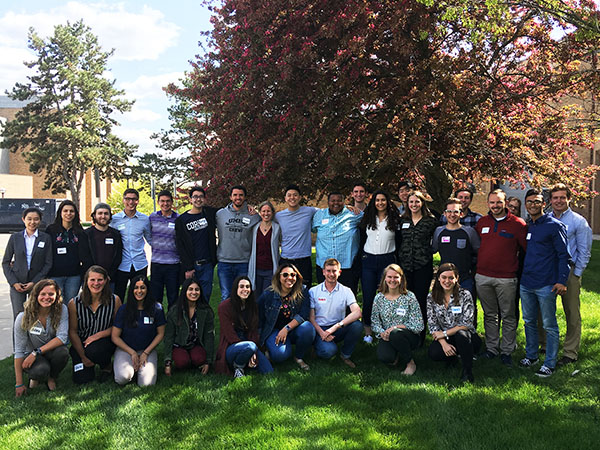 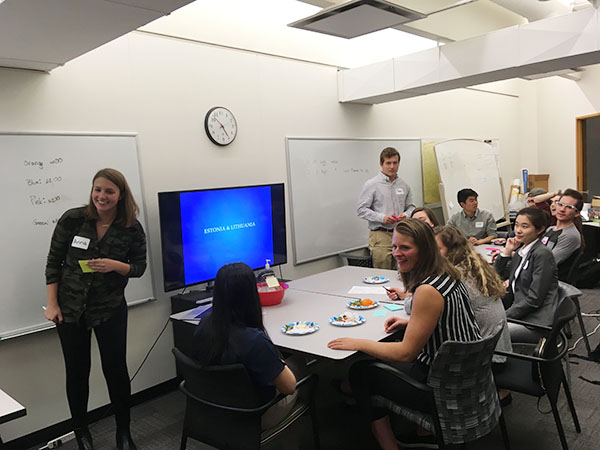 |
May 14, 2019
Tuesday, May 14th was the official first day of the summer semester at CHEPS. The day started with an orientation for our new students. They learned some of the ins and outs of CHEPS and got a brief introduction to all of our projects. In the afternoon we held kick-off meeting for the entire CHEPS crew, new and old. At the kick-off, students all introduced themselves with a fun fact, ranging from one student’s ability to sneeze on command to another student’s ability to twist their arm in a full circle. Yes, we’re a multitalented group! We also learned that we have several athletic students from rowers to football players! And we capped off the day with some fun. Anna Learis led a game of CHEPardy, a trivia game with a CHEPS twist. |
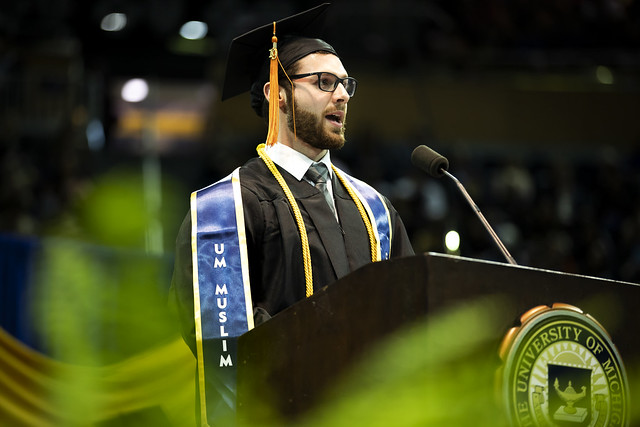 |
May 4, 2019
“It’s the small actions we do, even if we’re not aware of them, that have the impact of shaping our lives,” said Bassel Salka, a CHEPS student graduating with a B.S.E. in Industrial and Operations Engineering, as he spoke at the College of Engineering graduation ceremony on Saturday, May 4th. He was also a speaker at the University of Michigan graduation ceremony at the Michigan Stadium on the same day. At both ceremonies, Bassel spoke about his experience at the University of Michigan as a Muslim student, an engineering student, and a CHEPS student, as well as his commitment to community activism. In addition to his work at CHEPS, Bassel co-founded Michigan Lean Consulting and has served as co-president of the Arab Student Association and the Muslim Coalition. He spoke of the potential he and his fellow students hold to continue to make an impact on the world after graduation. Bassel’s next step is working as a Next Generation Healthcare Delivery Engineer at the Johns Hopkins Applied Physics Lab. Congratulations on your graduation, Bassel. We look forward to following your future steps! Video of Bassel’s talks at both graduation ceremonies is included below.
— Written by Liz Fisher, CHEPS Staff |
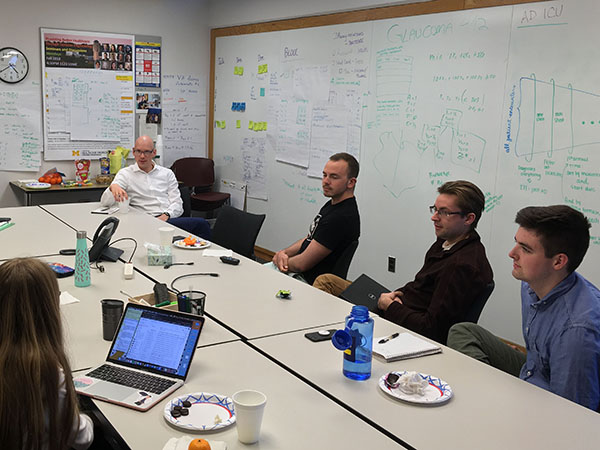 |
April 22, 2019
CHEPS Alum Joe East, Director of Patient Access and Flow at Maine Medical Center, was kind enough to stop by CHEPS on his recent visit to Ann Arbor for a “Snack and Learn.” Joe spoke broadly about his experiences at Maine Medicine and how CHEPS had prepared him for his work there, as well as addressing more specific questions from CHEPSters. Joe spoke to some of the key pain points he’s identified with incoming patient transfers at Maine Med, challenges which relate closely to those CHEPS students are working on in the AD ICU project which looks to ensure appropriate capacity in the cardiac ICU for aortic dissection patients. Joe sees two key components to patient transfers: accepting the patient and assigning them to a bed, noting that it’s not uncommon for a physician to accept a patient without realizing there’s no bed available for them. Improving the communication between hospital staff, especially across units, has proven key in solving these challenges at Maine Med. In addressing a question about how to communicate with physicians, who generally have a less analytical background than engineers, Joe spoke to using data as a jumping off point. Joe spoke to using data to get physicians and engineers on the same page and using data as a common communication tool. Tying data to positive financial impacts and/or patient outcomes is also very important. Along similar lines, Joe advised that young professionals should get to know the language of the healthcare providers they work with. “Don’t make them dumb it down for you,” he said, meaning know the abbreviations and shorthand they use so they don’t feel like working with you is an arduous task. Hearing from such a motivated and capable professional like Joe was a great reminder of the kind of work CHEPS is preparing us for and was inspiring to make sure we take advantage of all the great opportunities we have here. Thanks to Joe for the great visit and we hope to see you again soon. |
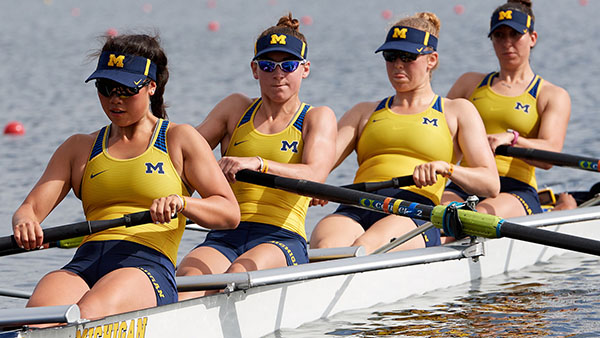 |
April 8, 2019
CHEPS student and Biomedical Engineering undergraduate Emily Krebs is also a senior leader on the University of Michigan rowing team. In addition to being an Academic All-Big Ten honoree in her sophomore and junior seasons, she and the 1V4 boat won a bronze medal in the 2018 Big Ten Championships. Emily is featured in an article on MGoBlue.com titled “Scholar Stories: Krebs Seeks to Be Positive Influence in Healthcare, Rowing.” She discusses her rowing career, her academic career, and her desire to positively affect patients through her work in healthcare. The full article is available at MGoBlue.com. |
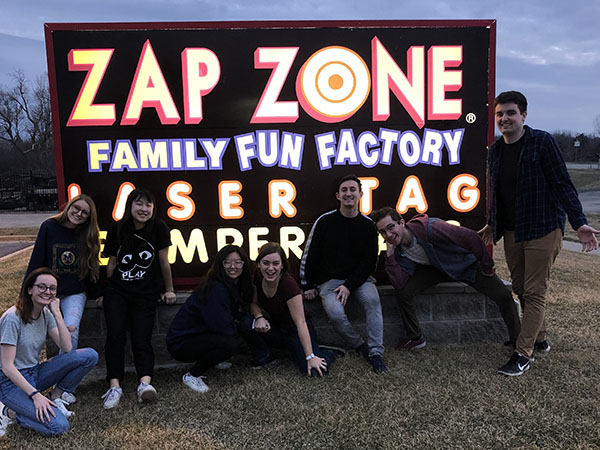 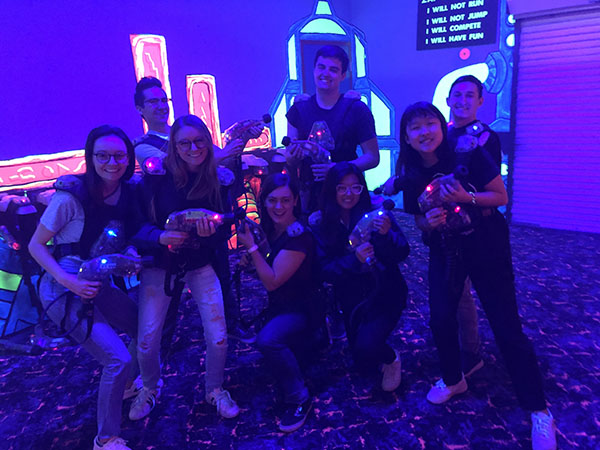 |
April 5, 2019
CHEPS students went to Zap Zone on Friday, April 5th to officially kick off the weekend. The students started with an intense 4 v 4 game of laser tag before moving on to playing some cool virtual reality games. We can’t wait to go back! A big shout out to CHEPS student Caroline Owens for organizing a great social event! |
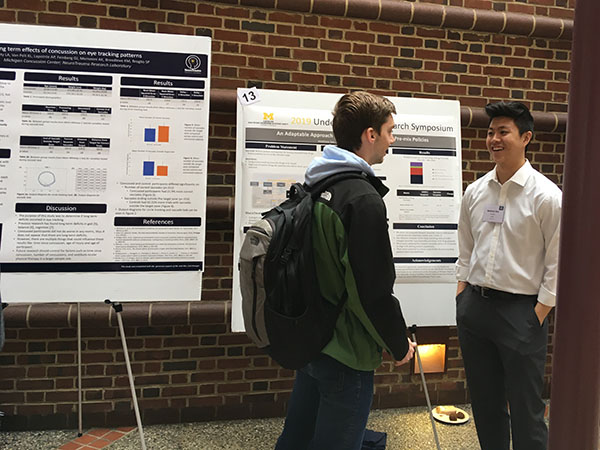 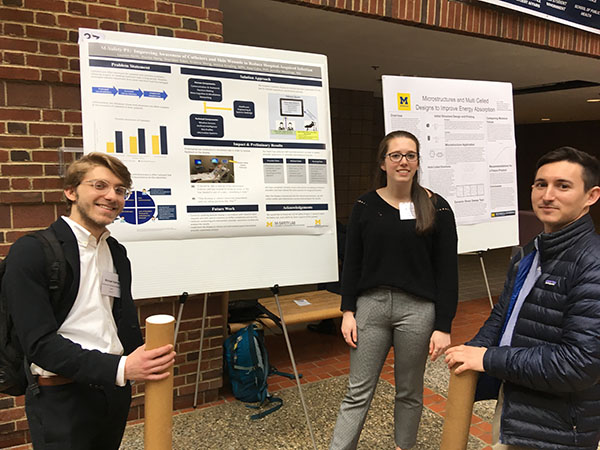 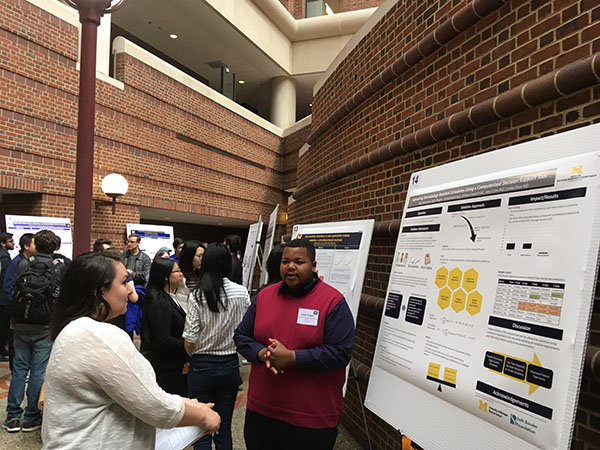 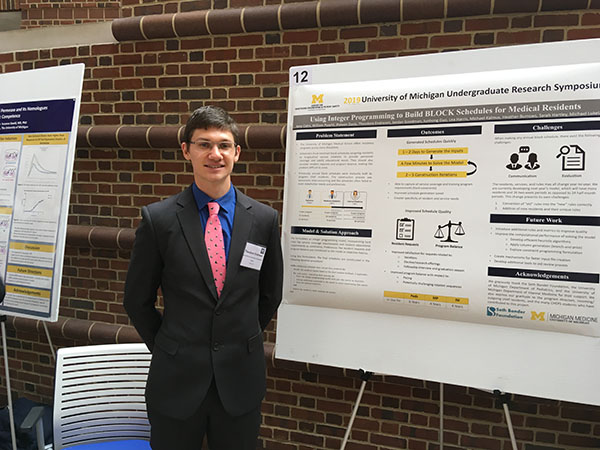 |
April 5, 2019
Several CHEPS students participated in the Undergraduate Research Symposium on Friday, April 5th. The event showcased the diverse research undergraduates conduct at the University of Michigan and CHEPS was proud to have a strong showing. “When speaking with the check-in volunteers, they were amazed at how many posters we, as a collective, were presenting. I immensely enjoyed having the opportunity to speak with others about the BLOCK Scheduling Project and introducing them to one of the many applications of Integer Programming,” said Theodore Endresen, an Industrial and Operations Engineering (IOE) Undergraduate. Caroline Owens, also an IOE undergraduate, thought the symposium succeeded in showing the breadth of research undergraduates are doing at the University. “I was surprised to recognize many of the other participants who I had not known were involved in research. Hearing about their experiences and the work they had accomplished gave me a greater appreciation for the breadth of the university and all that can be accomplished by undergraduate students,” she said. Often, CHEPS students are presenting at healthcare or engineering specific events. Lauren Hirth, a Biomechanical Engineering (BME) Undergraduate, enjoyed the chance to connect with undergraduate researchers from a variety of fields. She said, “I enjoyed talking to people about my work that I would normally not talk to at the university, and who did not know about CHEPS. The Symposium was also a great way to see what research other students at the university have been doing, and to catch up with friends I knew from other experiences on campus.” Riley McKeown, an IOE undergraduate, said, “I was not only able to engage other students by discussing the methodologies of the Shift Scheduling project, but I was also able to tell students from outside of the CoE about CHEPS! While presenting, I ran into old friends I hadn’t seen for a couple of years, it was great to catch up and share our work with each other!” For Sheridan Tobin, a School of Public Health undergraduate, presenting gave her an important reminder about her research. “Presenting the poster and answering questions was a great reminder of the real-world impact that our project has. It was great to talk with different people who work in healthcare and in other research areas and hear that they were interested in the work we’re doing,” she said. The following students presented CHEPS work:
— Written by Liz Fisher, CHEPS Staff |
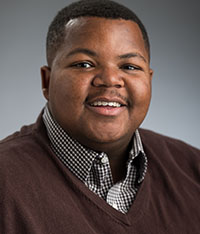 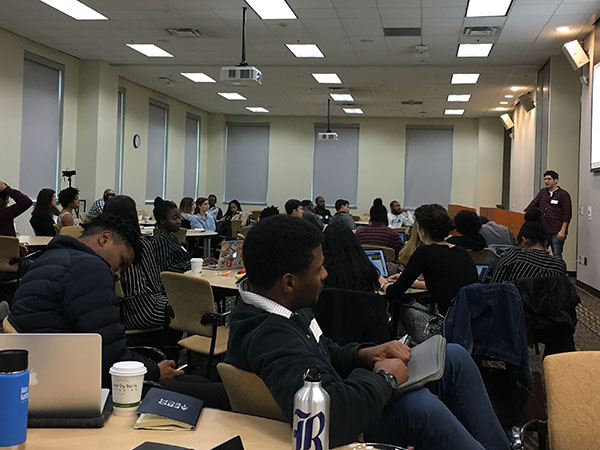 |
April 2, 2019
CHEPS student and IOE undergraduate Justin Rogers traveled to the Data Science for Social Good (ds4sg) Workshop hosted at Georgia Tech from April 1 – 2, 2019. The workshop focused on the application of data science techniques to problems of significant societal impact, such as healthcare, data privacy, renewable energy, and transportation. This workshop brought together student and professionals in a variety of disciplines (computer science, industrial and systems engineering, public policy, mathematics, economics, and psychology) and helped them to form meaningful connections through lightning talks, breakout sessions, and presentations. Speakers included Rediet Abebe, Sean Barnes Ph.D., Kira Goldner, Sanmi (Oluwasanmi) Koyejo Ph.D., Destenie Nock Ph.D., Jennifer Lewis Priestly Ph.D., Kaitlin Rizk, Alba C. Rojas-Cordova Ph.D., and Eric Sodomka Ph.D. Each spoke about their research and how it related to the use of data science for social good. Research domains included algorithmic fairness, mechanism design, artificial intelligence, simulation, machine learning, and optimization. |
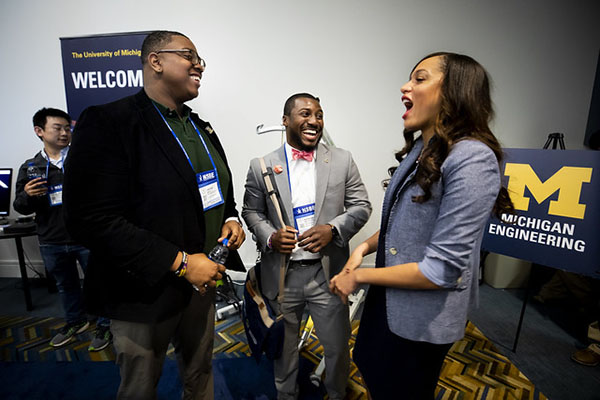 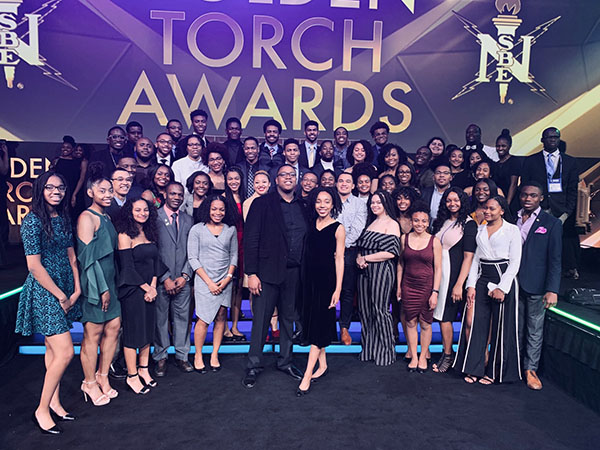 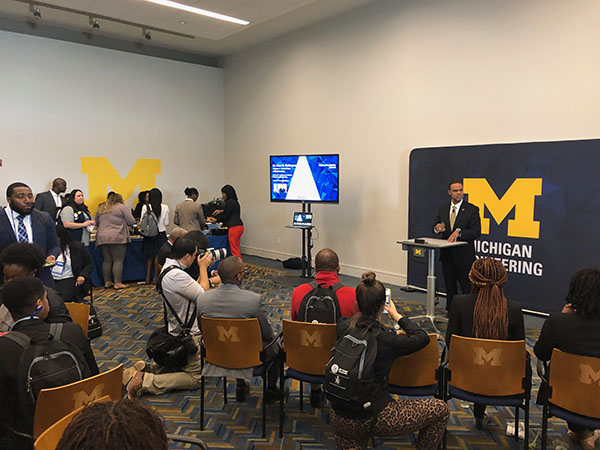 |
March 31, 2019
CHEPS and Industrial and Operations Engineering (IOE) students Jhawan Davis and Donald Richardson attended the National Society of Black Engineers (NSBE) 45th Annual Convention in Detroit from March 27–31, 2019. According to the NSBE website, “The Annual Convention showcases Black students and professionals who have a passion for science, technology, engineering and math (STEM), who are high achievers in these fields and are channeling their dedication to advance their communities and society at large.” Both Donald and Jhawan also appreciated how the conference shone a light on Detroit. Jhawan said there were, “over 14,000 attendees roaming around and realizing how amazing the city of Detroit actually is. Additionally, there were over 300 companies who participated in the career fair, hiring the best diverse talent in the country, providing a direct influence on the job market in Detroit, which actually revitalizes the city.” Jhawan is president of the University of Michigan NSBE chapter, which brought home its 4th consecutive Chapter of the Region award this year. He helped to bring the conference to his hometown of Detroit and found the effort well worth it. “It means a lot,” he said. “I’m excited because, just driving around downtown – I went to high school ten minutes from here – and just seeing different signs like ‘welcome NSBE’ and all the beautiful black people walking around, it’s very exciting. And I’m happy people are getting to see the more positive views of Detroit. We’ve got a reputation for being hard-working. Apparently, our new nickname is the comeback city. I’m glad everybody else is becoming aware of that.” Donald enjoyed his time working at the University of Michigan recruiting booth. “You’re there talking with prospective students through the entire process from navigating the application process to what students can do now to set themselves up for success in a PhD program. We almost have mini advising sessions. I came from an undergrad program, the Meyerhoff Scholars, that focused on preparing us for pursuing a PhD or MD/PhD, not everyone is fortunate enough to have that. Maybe they’re coming from a school where, as an underrepresented minority, they’re one of two in their program. So they can sometimes feel isolated and not as comfortable to ask questions or be aware obtaining a PhD is in their grasp. NSBE provides a space where you’re with a lot of people that look similar to you, a lot of people that are excelling and genuinely want to see you join them in doing the same. It’s a super friendly environment filled with peers and mentors that are doing everything they can to ensure you get the opportunities they had.” Donald said that, in addition to taking the time to mentor younger students, he has benefited from the advice of junior faculty and young professionals attending NSBE. “Two years ago, I got advice that if you don’t know what path you’re going in post receiving your PhD regarding faculty vs. industry, make sure you set yourself up to be able to have those options open to you when you make that decision later.” He was especially excited this year to run into IOE and CHEPS alum Brandon Pitts who is now an Assistant Professor at Purdue University as well as other Meyerhoff scholars and professionals helping pave the way for him and many others. |
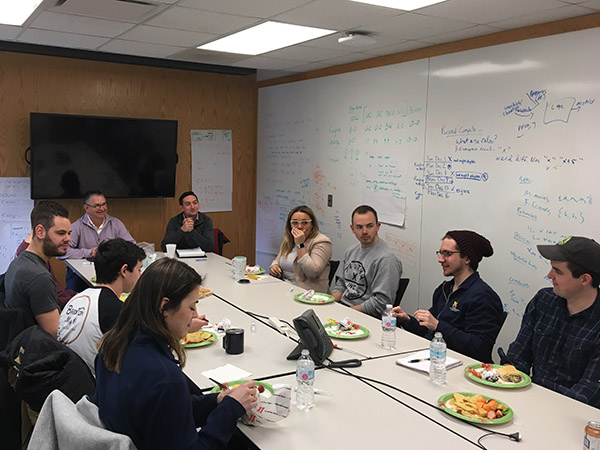 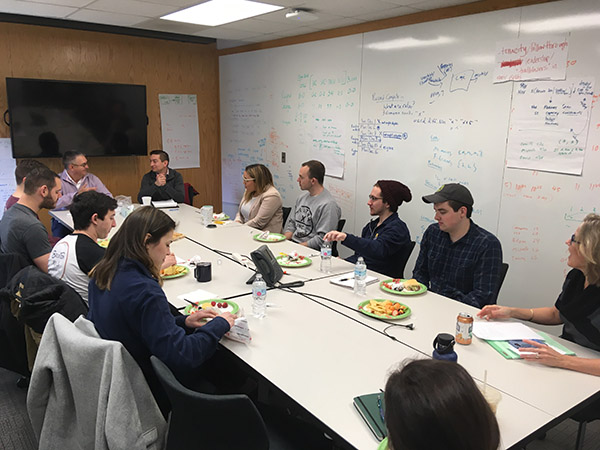 |
March 29, 2019
On Friday, March 29th, we were expecting a Lunch and Learn with Mark Van Sumeren at CHEPS. Then we got a pleasant surprise, not just one but two Van Sumerens! Mark, a valued friend of CHEPS who recently moved back to Ann Arbor, brought along his son, Andy. Both Mark and Andy are alums of Industrial and Operations Engineering at the University of Michigan and work in healthcare consulting so they could not be more suited to deliver a CHEPS Lunch and Learn. Mark is Managing Director of Health Industry Advisor LLC, which “offers health systems, medical device and health care suppliers the requisite critical thinking and expertise to address challenges [in healthcare], head-on.” Andy is a Lean Manufacturing Manager at GE Healthcare and operates his own consultancy. After Andy and Mark introduced themselves and their work, students had plenty of questions to keep them talking through lunch and beyond. The two were able to provide thoughts on a wide range of topics including the differences between internal and external consulting, how to become an independent consultant, networking, self-promotion, and strategies to keep a project on track. They also told stories of the coolest experiences they’d had while consulting and threw in a few fun family stories, making it both an entertaining and informative lunch. Andy stressed the importance of getting a wide range of experience and finding opportunities to learn the ins and outs of both internal and external consulting. He stressed that experiencing a project at all stages is the way to grow to be able to handle whatever is thrown at you. “The role you sign up for is not the job description you’ll actually have. The smaller the company, the more hats you’ll wear,” he said. Mark offered students some solid advice as far as keeping projects on track. He said this starts before the project even officially begins. “The real art is, before accepting the job, really knowing what success is,” he said. He explained this meant not only having a firm understanding of what you want to do and what you’re good at but also defining the scope of the project so you know exactly what you will and won’t do. This also helps maintain your “say/do ratio” so that anything you agree to do, you are sure you can deliver on. Thank you to Mark and Andy for the visit and the great conversation. We look forward to seeing you in CHEPS again soon! |
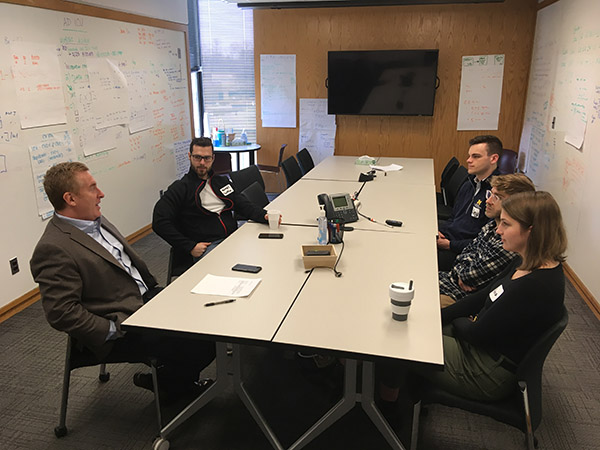 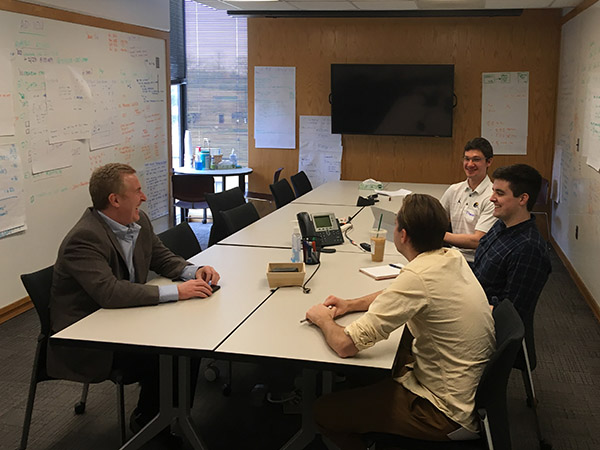 |
March 28, 2019
We were delighted to have a Jim Molloy, long-time friend of CHEPS, visit the Center on March 28th. Jim is a Managing Director heading up the Not-For-Profit Health Care Group at Citi. His over 25 years of experience in the healthcare industry gave him a great deal to discuss with everyone here at CHEPS. Jim spent his day in mentoring sessions with groups of CHEPS students, discussing CHEPS operations with Associate Director Amy Cohn, and meeting with members of the provider scheduling teams to provide his insights on their work. He was also kind enough to share everything from reading recommendations, job application tips, and career path advice with students. Justin Rogers, Industrial and Operations Engineering undergraduate, said, “Jim offered great insight into the challenges that healthcare systems are facing, and how the skills of an IOE student can be utilized to solve these challenges.” Students who will be on the job market soon also got some valuable perspective from Jim. “He was quite helpful in offering advice about ways to distinguish oneself when applying to jobs. I really enjoyed speaking with him and thought that he offered great mentorship in the time that we had together,” said Matthew Levenson, Industrial and Operations Engineering undergraduate. Hannah Strat, HEPS masters student, also appreciated the chance to learn from Jim’s experience. She said, “Jim provided insight into the variety of industrial engineering career paths within the healthcare sector. We talked about the lifestyle difference between working for a hospital system vs a consulting firm.” Camille Phaneuf, Neuroscience and Cognitive Science Undergraduate, walked away with some new project management techniques. She said, “Jim offered great insight on effective management styles, emphasizing the need to listen and to implement performance reviews – of oneself and others. In doing so, he explained how these techniques can help individuals and organizations reach their goals. Overall, the conversation was incredibly helpful, and I am excited to apply what I have learned!” And, finally, Neil Gollapudi, Computer Science undergraduate, walked away with some universal advice. “One major insight I took from him, was that genuine interest often drives success in the field,” he said. Many thanks to Jim for taking the time to meet with so many CHEPS students and share his experience! |
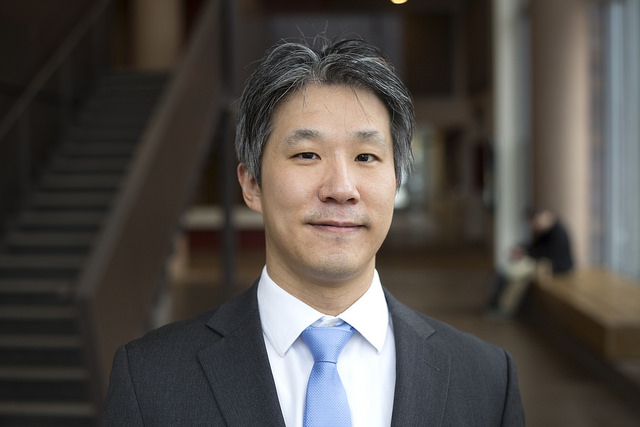 |
March 22, 2019
CHEPS alum Young-Chae Hong has had his manuscript titled “Using Optimization Techniques and Multi-Disciplinary Collaboration to Solve a Challenging Real-World Residency Scheduling Problem” accepted for publication in the INFORMS Journal on Applied Analytics. CHEPS Associate Director Amy Cohn and CHEPS Research Area Specialist William Pozehl are co-authors on the paper along with Stephen Gorga, Edmond O’Brien, and Jennifer Zank. The paper focuses on a collaboration between CHEPS and the C.S. Mott Children’s Hospital to address challenges of assigning medical residents to shifts within a pediatric emergency department. Specifically, it details the authors’ “integer programming formulation and the iterative, interactive approach in which [they used] this integer program as a tool within the broader process of schedule development.” Congratulations to Young Chae on the paper’s acceptance for publication! We’ll share a link when it’s available. |
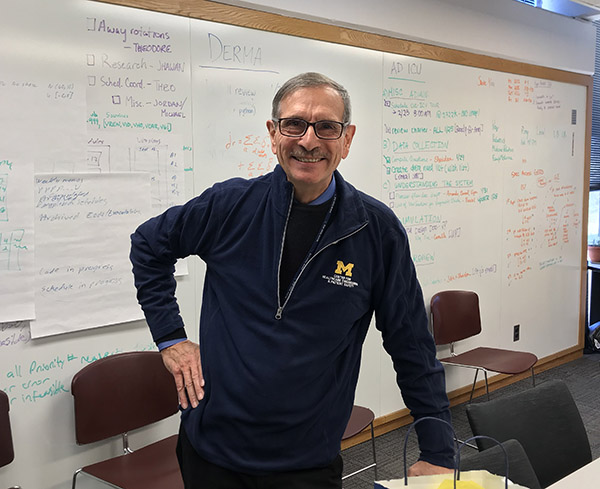 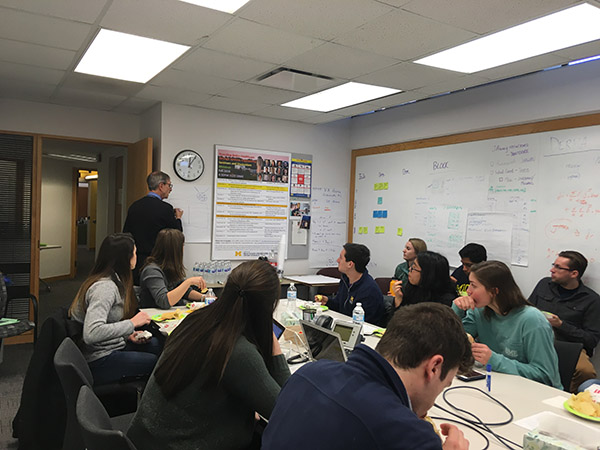 |
February 25, 2019
CHEPS students, faculty, and staff met for a Lunch & Learn on Monday to hear about the use of lean thinking from Dr. Jack Billi. Dr. Billi is a Professor in Internal Medicine and Learning Health Sciences (Medical School), Health Management and Policy (Public Health), and Integrated Systems and Design (Engineering) at the University of Michigan. Lean thinking can positively affect the way team members think about problems in a way that improves the quality and efficiency of projects. More specifically, lean thinking involves seeking the root of the problem, separating the root from the goal state, and clearly identifying the gap between the current and future states so that the gap can be taken ownership of and subsequently addressed. When considering a problem, Dr. Billi encouraged “rotating the gem” to see every face of the obstacle because granularly laying out the problem helps identify team members’ gaps in knowledge and their misunderstandings. In order to apply the lean thinking framework to the ongoing work at CHEPS, we walked through aspects of the Surgical Instruments and Aortic Dissection Intensive Care Unit projects. While doing so, Dr. Billi emphasized going to the (often physical) site of the problem to observe, to learn, and to ask ‘why’ questions. After all, “a problem understood is half solved.” In sum, CHEPsters enjoyed an informative session of learning how to use the A3 template and lean thinking to mentor problem solving, enabling global thinking, and local action. Thank you, Dr. Billi, for sharing your wisdom! |
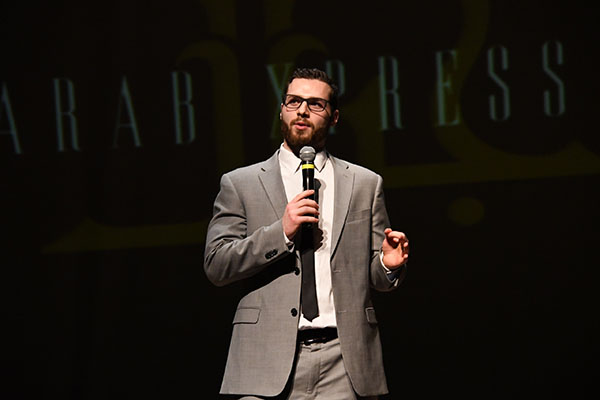 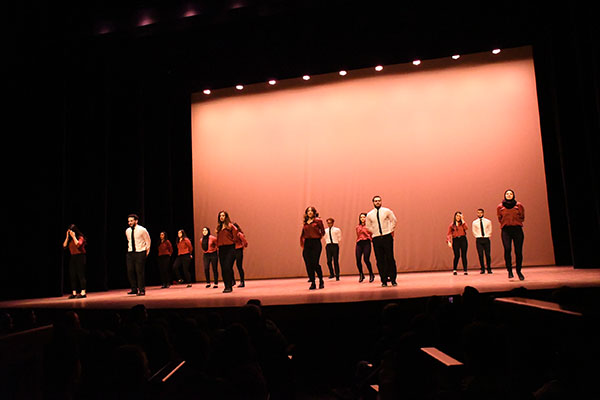 |
February 23, 2019
On February 23rd, the Arab Student Association (ASA) held its annual Arab Xpressions show at the Power Center for the Performing Arts. The show consisted of music, dance, and skits that showcased the unique culture, experiences, and challenges of being Arab American. Bassel Salka, an IOE student finishing his fourth year at CHEPS, has been a member of ASA throughout his four years at Michigan and even served as the organization’s president last year. This year, he not only organized and choreographed dances for the event, but he also emceed. “It’s heartwarming to see how much the Arab community has grown during my time as a student,” Bassel said, referring to the increase from 300 audience members his Freshman year to 1400 this year.” As an engineering student it’s incredible to work with others from various academic and social backgrounds.” He hopes to see the community grow even more in the coming years as representation increases and more students are attracted to the event. |
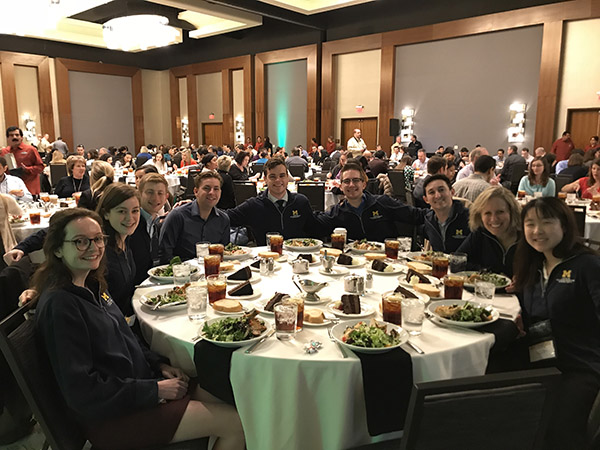 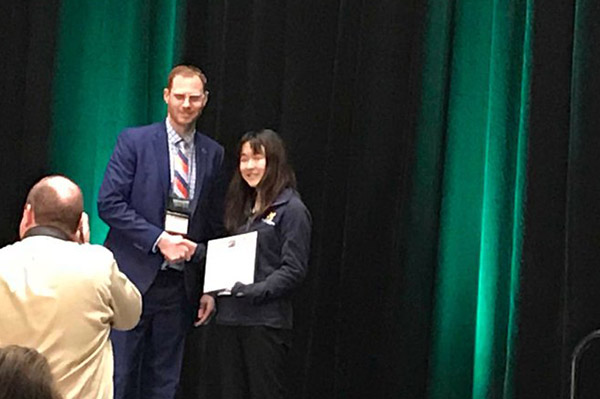 |
February 22, 2019
CHEPSters traveled to San Antonio, Texas, for the Society of Health Systems annual Health Systems Process Improvement Conference, which took place February 20-22. The conference brings together thought leaders in industrial engineering working to make a positive impact in healthcare. CHEPS talks were:
CHEPS posters were:
CHEPS students took part in several sessions, and Computer Science undergraduate Kristine Wang won the “Best Student Poster” (and 2nd Place overall) for “Scheduling Resident Shifts in the CS Mott Children’s Hospital Emergency Department.” The conference kept students busy, but they took time to sample tacos from San Antonio food trucks, explore the city’s parks, and of course a stop at The Alamo! [View photos from the conference here.] — Written by Adam VanDeusen, Industrial and Operations Engineering PhD Student |
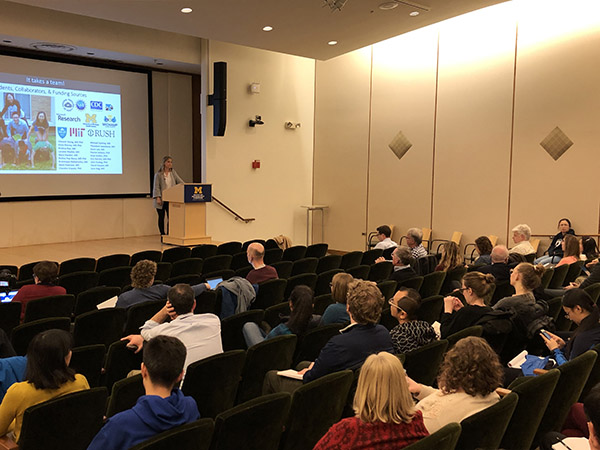 |
February 21, 2019
On Thursday, February 21, Dr. Jenna Wiens spoke to attendees at the Michigan Institute for Healthcare Policy and Innovation’s (IHPI) ongoing research seminar series. Dr. Wiens is a Morris Wellman Assistant Professor of Computer Science and Engineering (CSE) at the University of Michigan and is interested in researching the intersection of machine learning, data mining, and healthcare. In her presentation titled “White Coat, Black Box – Augmenting Clinical Care with AI in the Era of Deep Learning,” Dr. Wiens described the exciting future of machine learning in healthcare as well as the challenges that still need to be tackled. Dr. Wiens described the troubling circumstances facing the healthcare field in the US including a significant physician shortage, physician burnout, and frequent medical errors in hospitals. Although Dr. Wiens acknowledged that increasing computerization is actually a problem, with doctors using more of their time to enter data, she explained several promising applications of machine learning in healthcare. For example, machine learning can be used to detect patterns that sort a patient from high-risk to low-risk for a particular disease, leading to a decreased length of stay, transmission, costs, and improved outcomes. The question remains, however: “What do we have to do to make artificial intelligence (AI) work in healthcare?” To address this question, Dr. Wiens expounded on several key principles of deep learning and the current technical challenges of applying machine learning to healthcare. Although these technical challenges remain part of a lively debate among the scientific community, it is clear that these conversations are necessary in order to ensure that AI properly augments clinical care. Dr. Wiens’ work remains at the forefront of developing the infrastructure for the integration of AI into healthcare. |
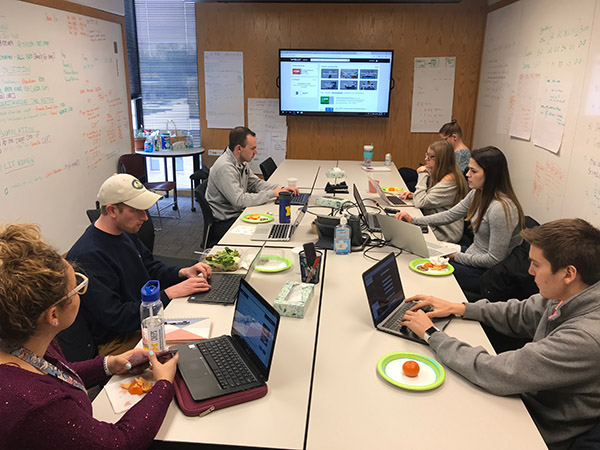 |
February 20, 2019
A group of CHEPS students got together for a Lunch & Learn on Wednesday to learn about and practice using Tableau. Tableau is a tool for visualizing data and has been useful for presenting results from CHEPS projects. During the Lunch & Learn, students downloaded Tableau and some practice data and followed along with training videos to practice using the interface. It was a great opportunity to become more familiar with a powerful data tool. Thanks to CHEPS Master’s student Andrea McAuliffe for coordinating and facilitating! |
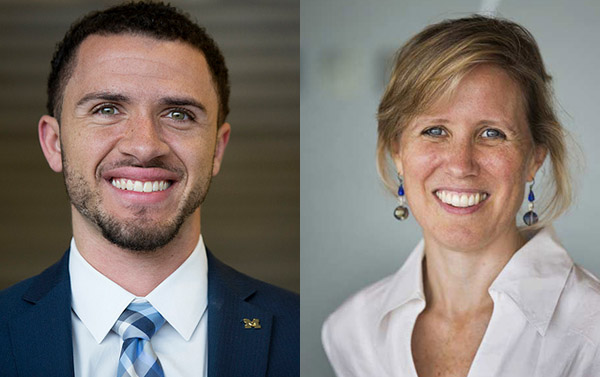 |
February 19, 2019
CHEPS and IOE PhD student Donald Richardson and CHEPS Associate Director Amy Cohn are authors of “Modeling the Impact of Make-Ahead Chemotherapy Drug Policies through Discrete-Event Simulation” published at IEEE Xplore. Delays are possible at each step of an outpatient chemotherapy infusion visit. These delays can negatively impact individual patients and have a ripple effect which can negatively impact staff and other clinic patients. According to the abstract, the authors “present a discrete-event simulation model to predict the effectiveness of various make-ahead drug policies utilizing data from our collaborators at the University of Michigan Rogel Cancer Center (UMRCC).” A sign-in may be required to view the full paper at the link provided above. |
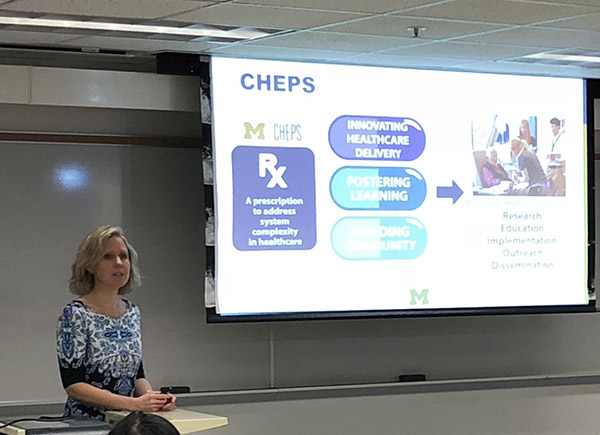 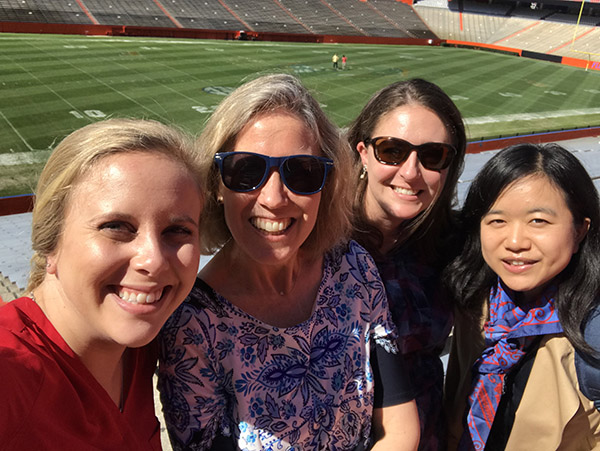 |
February 15, 2019
CHEPS Associate Director Amy Cohn recently visited the University of Florida. She shared her experience addressing challenges in scheduling healthcare providers with multiple, ill-defined objective criteria in a talk titled “Solving Complex Combinatorial Scheduling Problems in Healthcare with Multiple Objective Criteria” at the Department of Industrial & Systems Engineering. Dr. Cohn also enjoyed the opportunity to connect with University of Florida faculty including Elif Akcali, Katie Basinger, Michelle Alvarado, Xiang Zhong, Wayne Gian, and Hongchang Liu. And she was able to reconnect with Mustafa, a former student of her in IOE who is now pursuing a master’s degree at the University of Florida. “One of the many perks of teaching IOE 310 has been the hundreds of alums around the world that I get to keep in touch with!” she said. She finished up the trip by taking some time for herself to run on the beach where she heard plenty of “Go Blue!” while wearing her Michigan gear. She was also able to spend a day with her parents and soak up some extra sun before returning to the Michigan winter. |
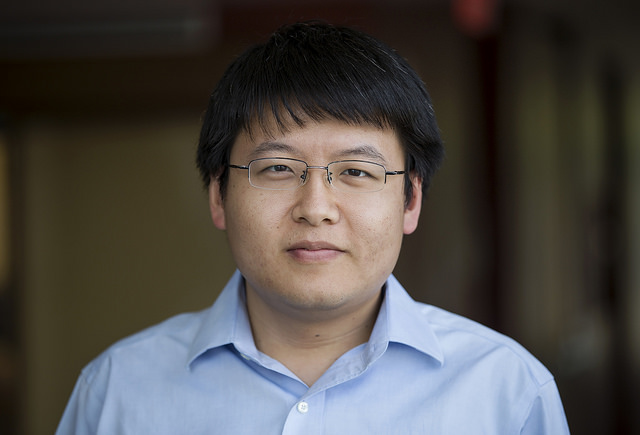 |
February 14, 2019
Ruiwei Jiang, Assistant Professor of Industrial and Operations Engineering and a CHEPS affiliate, has received a 2019 National Science Foundation (NSF) Career Award for his project titled “Incorporating Decision-Dependent Uncertainty via Distributionally Robust Optimization: Models, Solution Approaches, and Applications.” His work will focus on evaluating the potential benefit of incorporating decision-dependent uncertainty and investigating new optimization approaches to maneuvering such uncertainty in industries such as power, healthcare, and transportation. According to the NSF, “The Faculty Early Career Development (CAREER) Program is a Foundation-wide activity that offers the National Science Foundation’s most prestigious awards in support of early-career faculty who have the potential to serve as academic role models in research and education and to lead advances in the mission of their department or organization.” |
 |
January 25, 2019
A big welcome to Andreas, the newest member of the CHEPS family, who is already showing his CHEPS pride in this stylish onesie. Congrats Andreas’ parents Kathryn Schumacher, CHEPS alum, and Johannes Strom! |
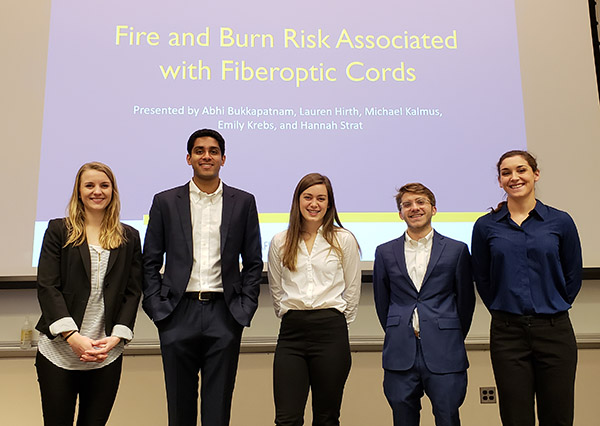 |
January 24, 2019
On Thursday, January 24th the Surgical Instruments team presented to over one hundred nursing staff at a Michigan Medicine nursing in-service. These regular meetings serve to keep nurses at Michigan Medicine up to date on the latest procedures, equipment, and research related to their work. The presenters were Abhi Bukkapatnam, LSA undergraduate; Lauren Hirth, BME undergraduate; Michael Kalmus, IOE undergraduate; Emily Krebs, BME undergraduate; and Hannah Strat, IOE/HEPS masters student. “We presented our experiments, findings, and potential solutions from a project designed to understand and mitigate the fire and burn risks posed by fiber optic cords used in the operating room,” said Michael Kalmus, an IOE undergraduate who is part of the Surgical Instruments team. The team tested several different fiber optic cords at various light settings with and without safety features such as the Stryker Safelight system and GloShield. Their work initially concentrated on the fire/burn risk that results when fiber optic cords are placed on top of surgical drapes or patients which was the initial hazard identified by Michigan Medicine. However, as they explained in their presentation, the team discovered that fiber optic cords placed near and not in direct contact with patients or drapes can cause fire/burns through the mechanism of radiation. This new understanding regarding the importance of radiation as a hazard substantially influenced the conclusions and recommendations of the group. “It was a really good experience from start to finish from doing the experiments to concluding with this presentation that had direct impact on Michigan Medicine’s approach to mitigating the risk of fire and patient burn from this hazard,” said Kalmus who has been on the team since last January, around the time when the fiber optic cord research began. |
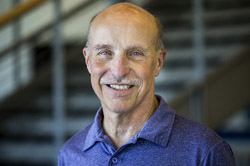 |
January 23, 2019
CHEPS Director James Bagian is author of an editorial titled “How Safe is Safe Enough for Space and Health Care? Communication and Acceptance of Risk in the Real World” published in JAMA Neurology on January 23, 2019. (Link requires journal access.) |
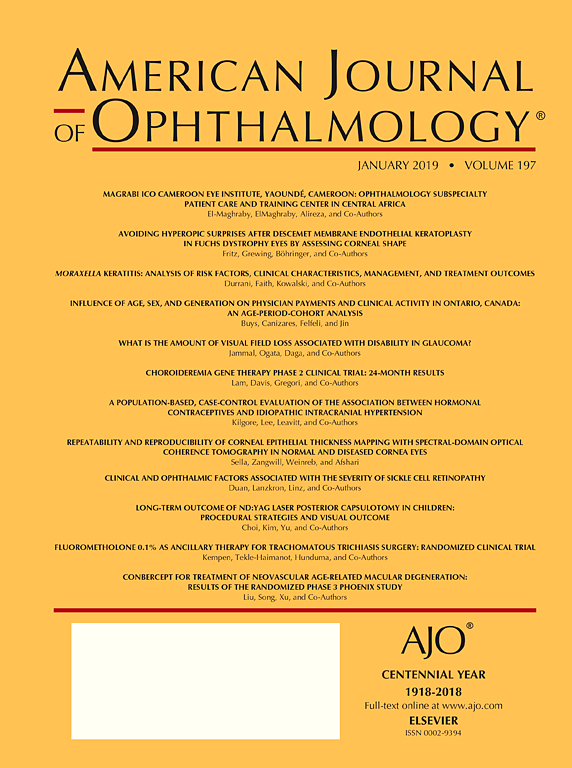 |
January 8, 2019
CHEPS affiliates Gian-Gabriel Garcia, Mariel Lavieri, Xiang Liu, and Mark Van Oyen recently published a manuscript titled “Using Kalman Filtering to Forecast Disease Trajectory for Patients With Normal Tension Glaucoma” in the American Journal of Ophthalmology. Garcia and Liu are PhD students in the Industrial and Operations Engineering (IOE) Department at The University of Michigan. Lavieri is an Associate Professor and Van Oyen a Professor, both in IOE. According to Garcia, the team “applied Kalman filtering – the same mathematics used for trajectory estimation in the Apollo space program – to forecast future disease trajectory for patients with Glaucoma.” The authors of the manuscript are Gian-Gabriel P.Garcia, Koji Nitta, Mariel Lavieri, Chris Andrews, Xiang Liu, Elizabeth Lobaza, Mark Van Oyen, Kazuhisa Sugiyama, and Joshua Stein. |
